




Black In Business is an initiative dedicated to elevating and growing Black-owned businesses across the UK through the power of TV advertising. In collaboration with Channel 4 and Lloyds Bank, we are searching for four stand-out Black-owned businesses ready to scale.
Selected businesses will receive:
£150,000 worth of TV advertising on Channel 4
The creation of your own TV commercial
Six months of tailored marketing and business mentorship to accelerate your growth
Entry deadline: Monday 28th October 4pm

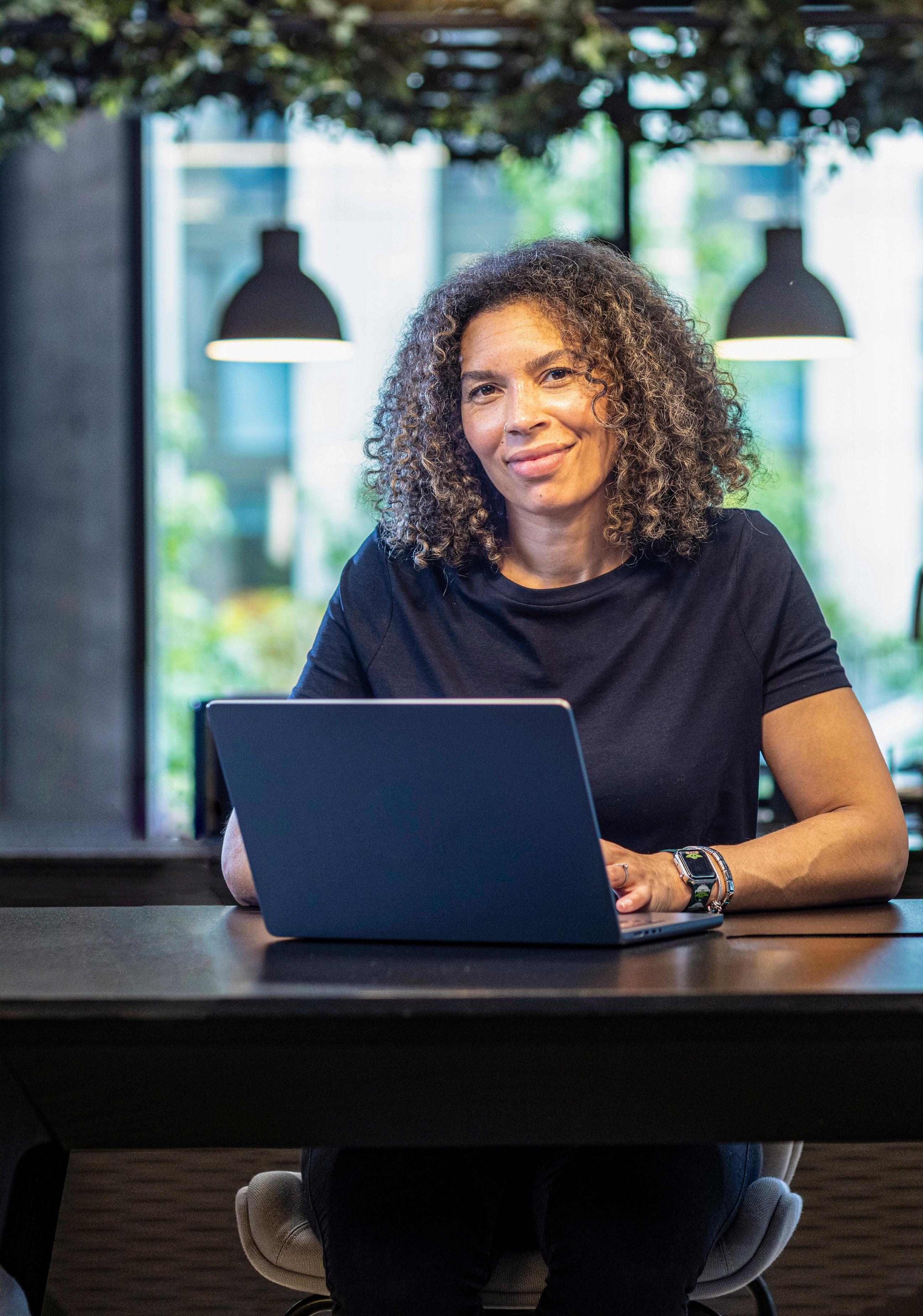

Issue 06 October - December 2024
The Tech Revolution: Redefining the Future Edition
EDITORIAL MANAGEMENT
Editor in Chief: Justice Williams MBE @justiceamariah
Managing Editor: Afua Hagan @afuathescot
EDITORIAL
Creative Director: Leona Vernon
Editorial Assistant: Lizzie Griffiths
Bayile Adeoti
Judith Pelucchini
Rory D Chambers
DESIGN
Art Direction: Gloss Agency Designer: Dee Vadgama
ADVERTISING
Media Packs are available upon request
ADVERTISING, BRAND & CORPORATE PARTNERSHIPS
Media Packs are available upon request
Dr Tru Powell tru@Blackbusinessmag.com @tru_powell
MANAGEMENT
CEO: Dr Tru Powell tru@blackbusinessmag.com
@blackbusinessmag
@blackbusinessmag
COO: Justice Williams MBE justice@blackbusinessmag.com SUBSCRIPTIONS
Email: readers@blackbusinessmag.com
Black Business Magazine Ltd Unit 763 JQ Modern 120 Vyse Street Birmingham B18 6NF info@blackbusinessmag.com
Front Cover featuring Timothy Armoo Photography: Lensi Photography @lensi_photography
Styling: Philip Dada JR
Makeup Artist: Tatiana @_tatianaxox
Videography: Savannah Pictures @savannahpictures.tv
This issue of Black Business Magazine is sponsored by Lloyds Bank.
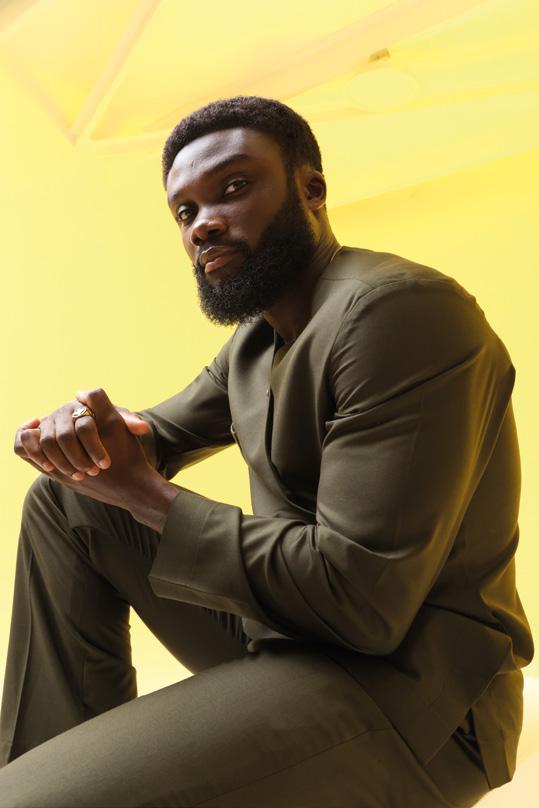
Black Business Magazine is fully protected by copyright. No part of this magazine may be reproduced or reprinted without the complete and expressed permission of the publisher. The greatest care has been taken to ensure accuracy. However, the publisher can accept no liability for errors and omissions. We cannot, under no circumstance, be held responsible for any material matter or photographic copy submitted for publication or not within the website or magazine. We cannot be held responsible or liable for any copyright breaches from advertising materials, all photography, or any other material supplied by a third party. The views and opinions expressed within our publications are not necessarily those of the publisher, Black Business Magazine Ltd, sponsors, advertisers or any featured parties.
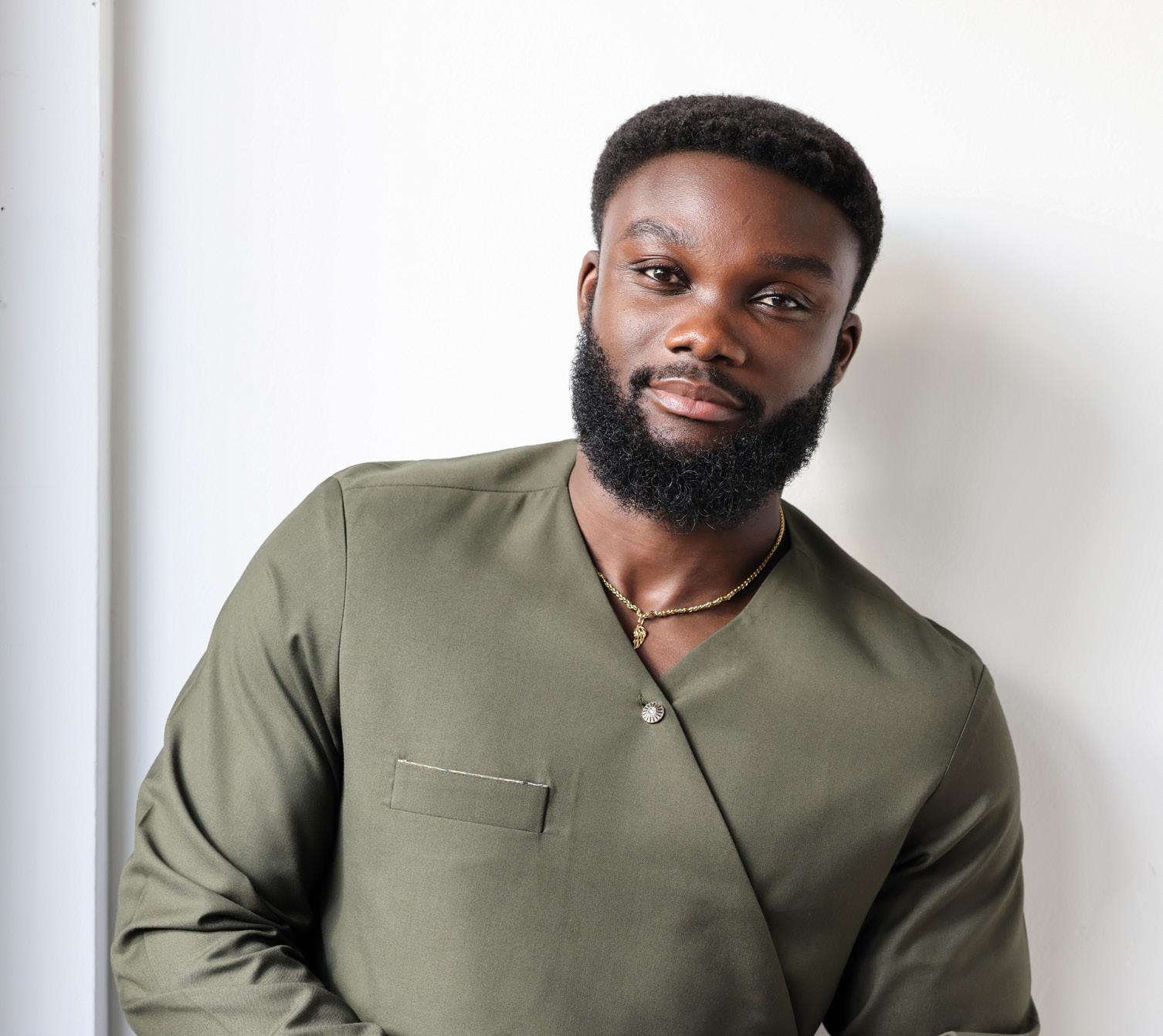
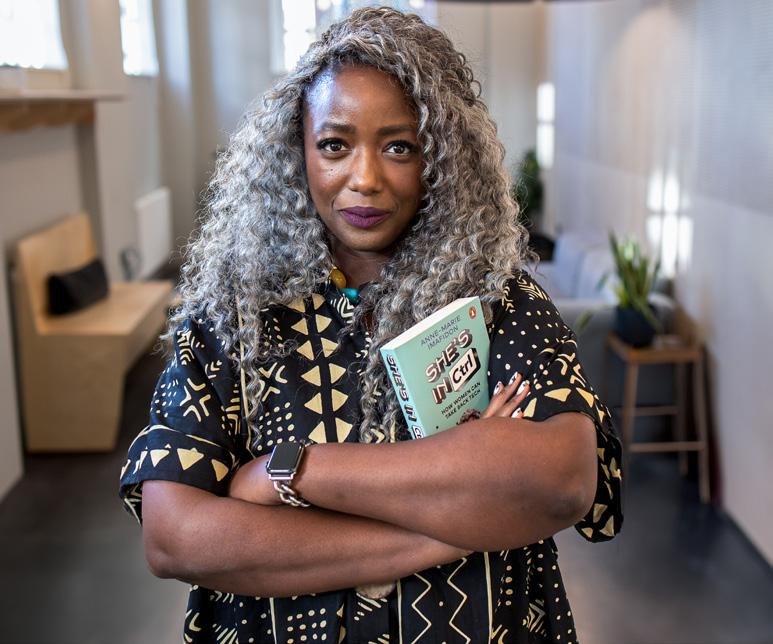

From the Ring to the Director’s Chair: The Cinematic Rise of Leroy Kincaide
Side Hustle to Industry ChangeMaker: How Colin Mordi is Championing Diversity in
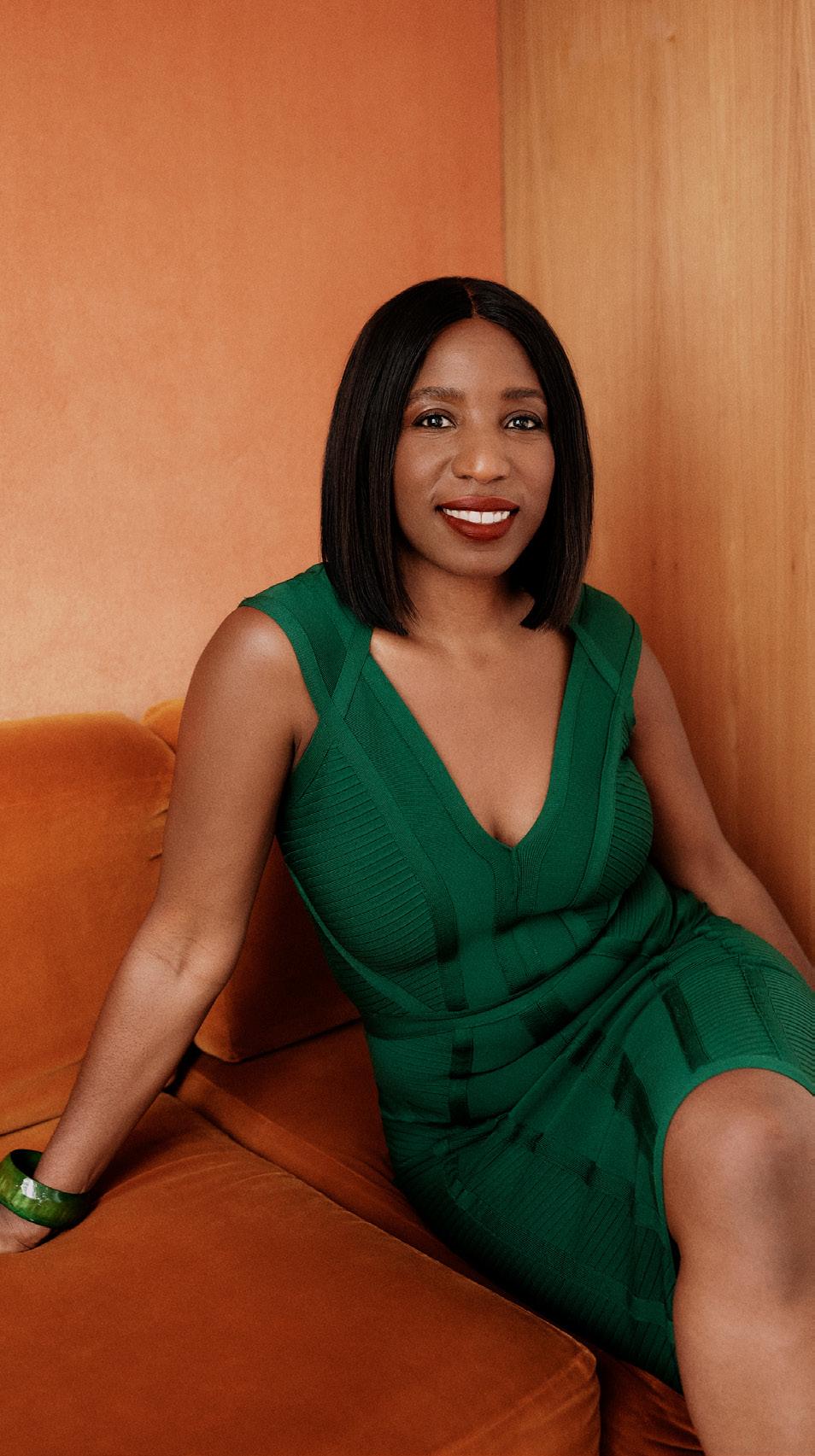
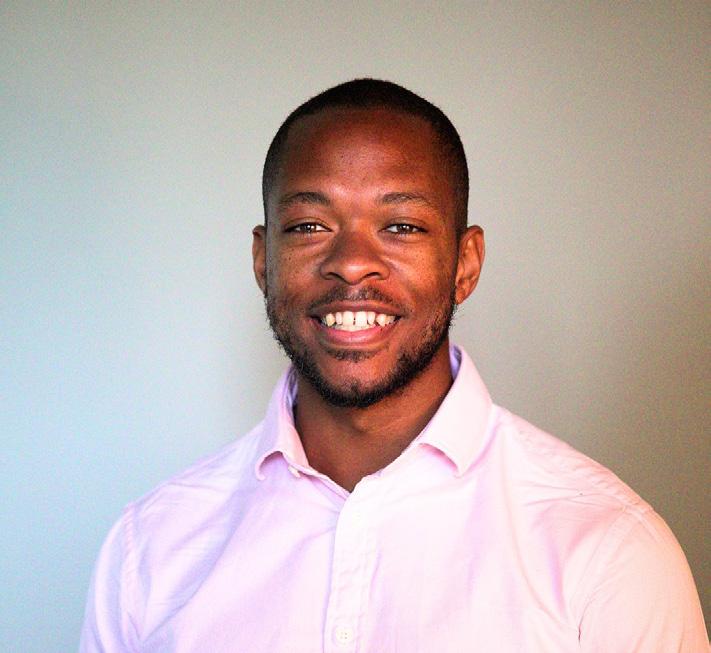
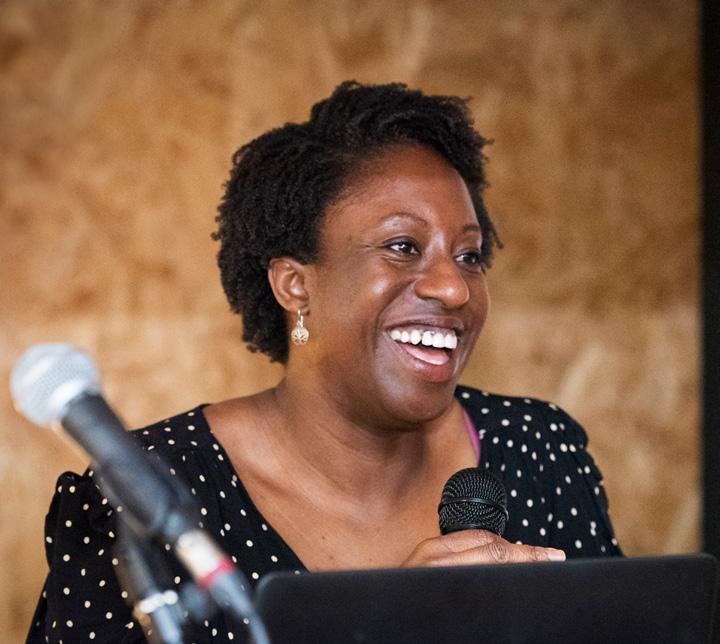
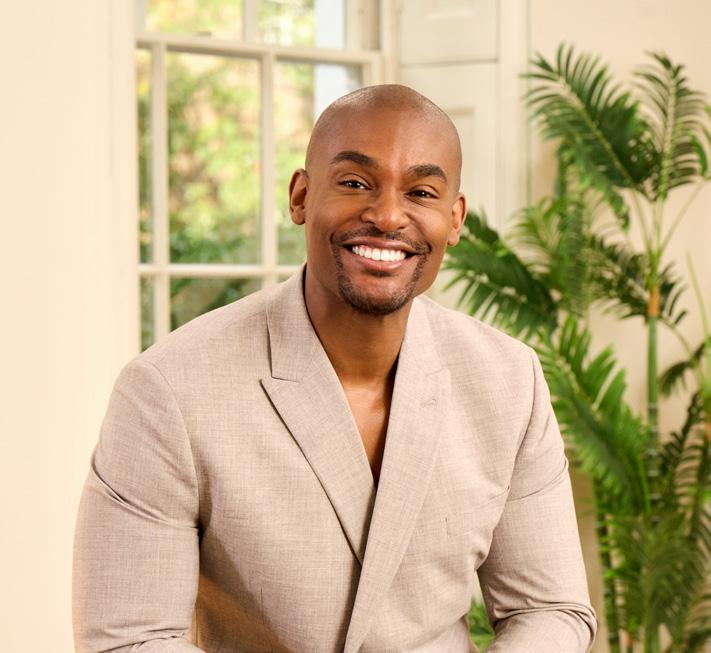
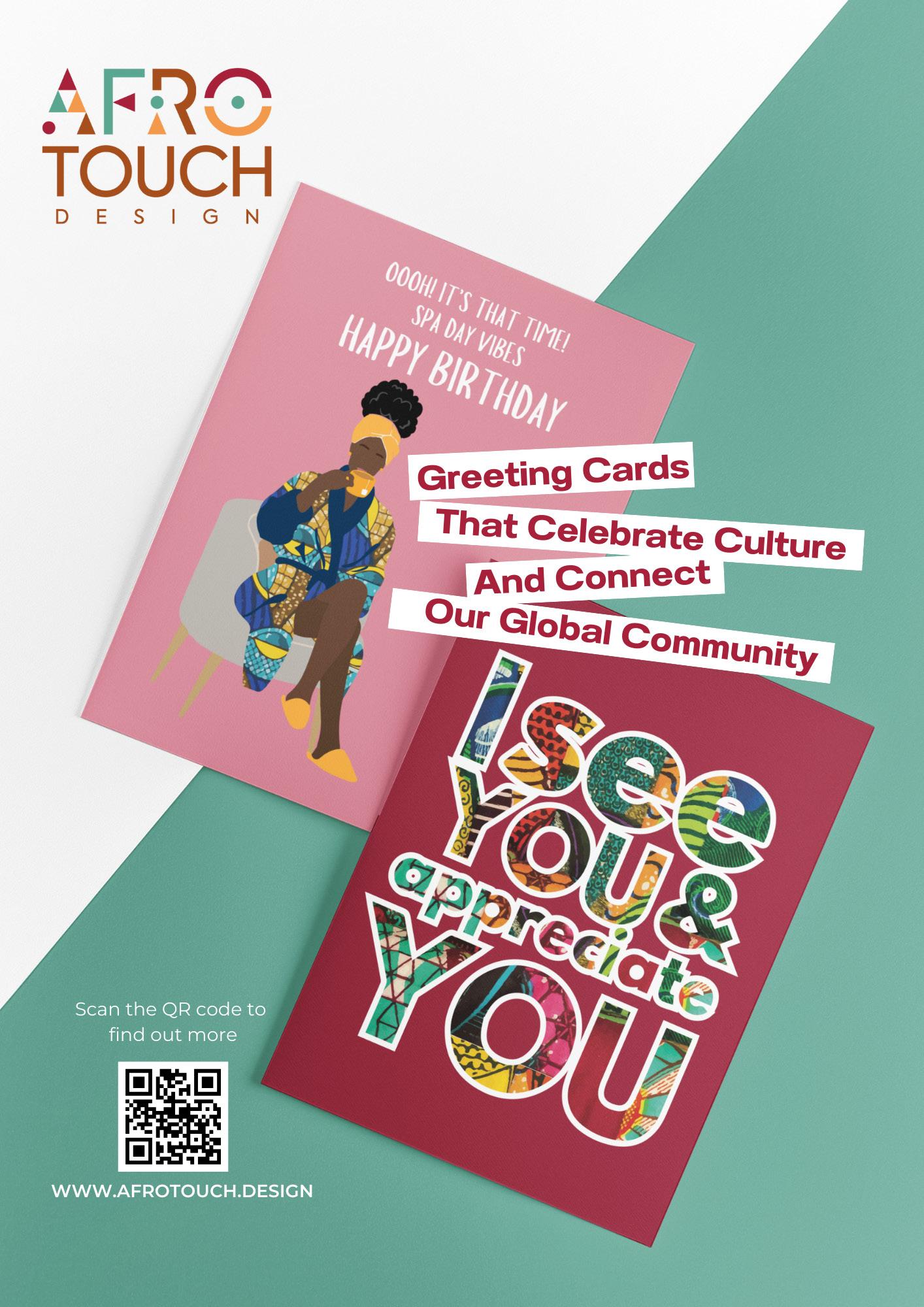

Welcome to the Tech Edition of Black Business Magazine.
What a momentous issue it is. Not only do we shine a spotlight on groundbreaking innovators, entrepreneurs, and disruptors in the tech world, but we also celebrate this during Black History Month, a time to reflect on the profound contributions Black individuals have made across all industries, including technology.
On our cover, we have Tim Armoo, a trailblazer whose remarkable journey from co-founding Fanbytes to becoming a leading voice in entrepreneurship showcases the power of resilience, vision, and audacity in tech. His story reminds us that Black talent continues to break barriers in spaces that have historically underrepresented us.
Technology is shaping the future, and Black entrepreneurs are taking their rightful place at the forefront of this transformation. From AI to smart homes, the individuals featured in this issue are creating innovations and rewriting the narrative about who gets to lead and thrive in tech.
This issue is dedicated to those pushing boundaries, building legacies, and inspiring the next generation. As we celebrate Black History Month, we are reminded that our contributions are not just part of the past but integral to the future.
Thank you for joining us on this journey of discovery, empowerment, and, most importantly, Black excellence in tech.

Justice Williams MBE Co-Founder & Editor-in-Chief
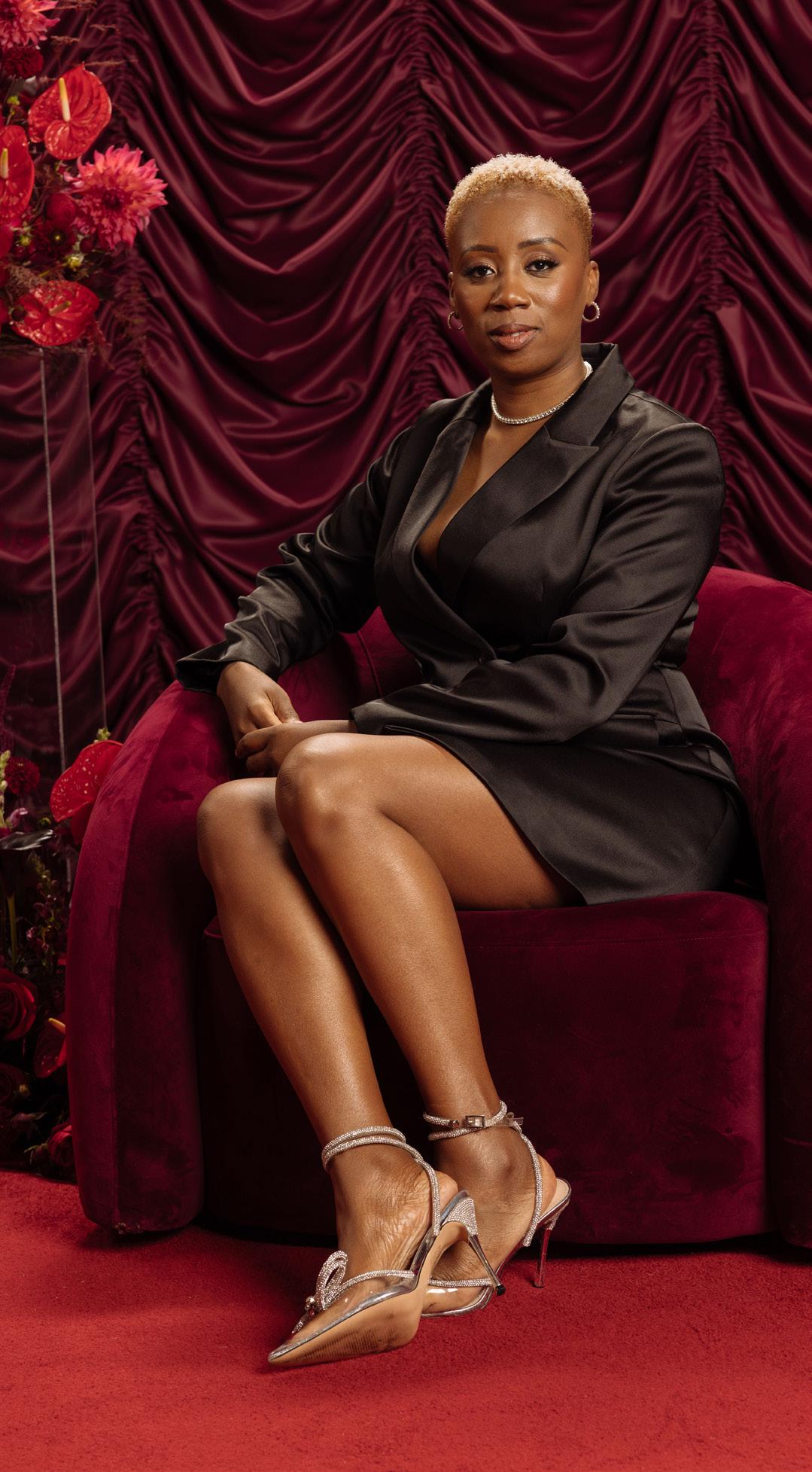
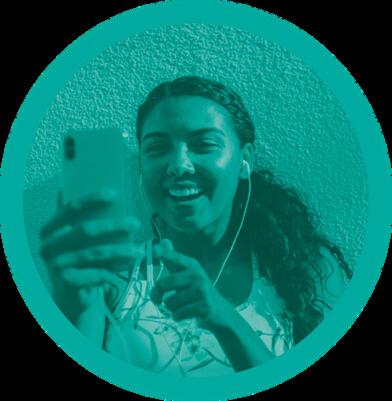










The Social Switch Project supports professionals with CPD-certified Online Harms Training, helping them understand young people’s online behavior and foster positive digital habits
Our Digital Skills & Employability Programme also empowers 16-30 years olds with vital digital skills for today’s workforce.





If you’re interested in our Mentorship opportunities, please get in touch by emailing: inspiringconnections@catch-22.org.uk


We are back again for edition six of the magazine!
If you are new to the magazine, welcome. I hope you enjoy your read. If you are a returning reader, we hope you enjoy this edition and spread the word for others to tune into the world of Black Business Magazine. By way of reminder, our mission at Black Business Magazine has been clear from inception: to celebrate, empower, champion and uplift the voices and achievements of Black entrepreneurs and professionals. We are committed to providing a platform where your stories are heard, your successes are celebrated, and your contributions are recognised.
I need first to thank our readers. It goes without saying that you are the beating heart of this magazine, and your engagement and feedback will only fuel our drive to deliver content that resonates with your needs and aspirations. Whether you’re a digital or print subscriber - we thank you.

I would like to thank Lloyds Bank for their partnership on this journey. Your commitment represents a significant stride in supporting Black businesses across the UK by celebrating the achievements of Black entrepreneurs and professionals in the hope that others will be inspired to follow in their footsteps. Continue to do the work. It’s necessary.
To the incredible entrepreneurs and professionals who are featured in this edition. Thank you for your stories. Thank you for the incredible work you do. I am confident your stories will inspire and empower our magazine readers.
To our team, all I can say is we did it again. We welcomed Afua Hagan as our Managing Editor and we couldn’t be happier and excited to see what Afua brings to the team.
The journey is never an easy one but always an enjoyable one. Each time we get better, learning from the last. Thank you for your commitment to the cause. To our team of writers, editors, photographers, designers, stylists, makeup artists, researchers and more, we thank you for working with us on this initiative. I know we are going to achieve something special together.
Sincerely,

Dr Tru Powell Co-Founder & CEO
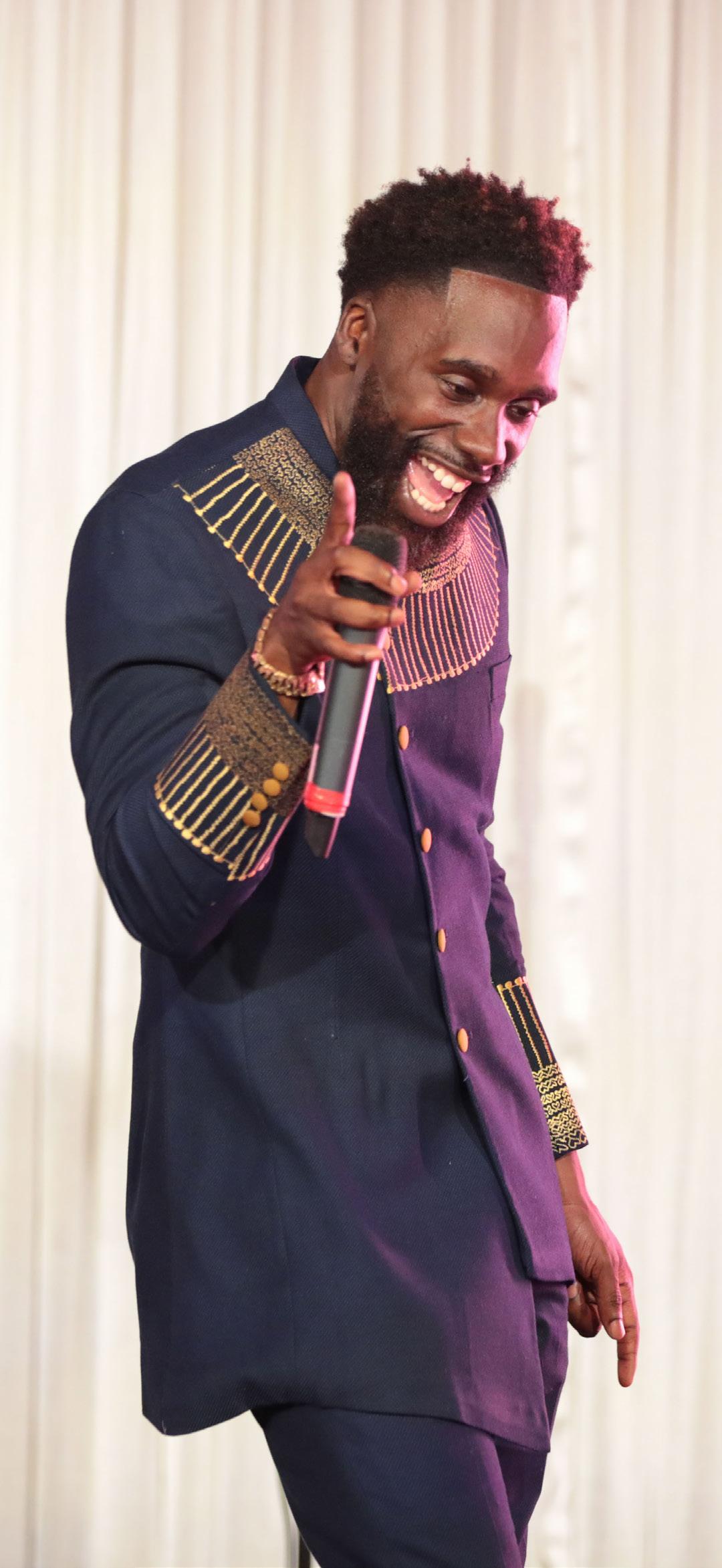

By Afua Hagan, Managing Editor
Timothy Armoo is a leader in the world of influencer marketing and brand building. At just twenty-one, he founded Fanbytes, a company that helped global brands like Nike, Samsung, Deliveroo, and the UK Government connect with Gen Z through influencer marketing. In 2022, just five and a half years after launching Fanbytes, Timothy made headlines by selling it to global marketing giant Brainlabs in an impressive eight-figure deal. Remarkably, this was his second successful business exit, having sold his first venture, EntrepreneurXpress, a business media publication, to Horizon at the age of seventeen.
As one of the few prominent Black leaders in marketing and tech, Timothy is widely regarded as a thought leader in areas such as engaging Gen Z audiences, nurturing a Gen Z mindset, navigating the evolving media landscape, and building a future-proof, multi-generational workforce.
He has captivated audiences globally, speaking at high-profile organisations like Goldman Sachs, YouTube, Barclays, PwC, and Nespresso. He has shared stages with industry heavyweights, including Facebook COO Sheryl Sandberg and Netflix CEO Reed Hastings. Over the years, Timothy has garnered numerous accolades, including being named Huffington Post’s Entrepreneur of the Year, Social Media Person of the Year by The Drum, and the face of Forbes30u30. The Times also recognised Timothy as one of the most influential people in the media industry.
Managing Editor Afua Hagan had the exclusive opportunity to speak to Timothy to discover the key trends shaping Gen Z marketing, learn more about his impact as a global keynote speaker, and learn more about his latest book, Cheat Codes.
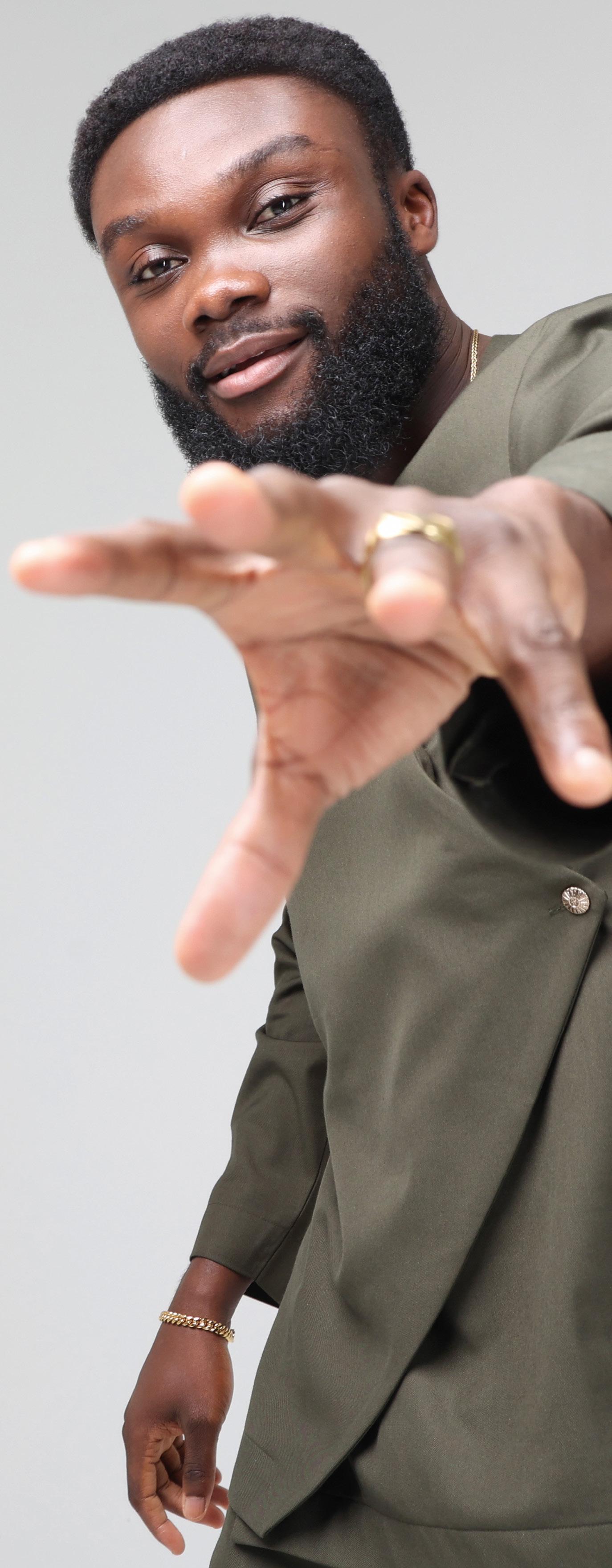
What key trends are shaping Gen Z marketing, and how do brands need to evolve to stay relevant to this audience?
The key trends aren’t just about Gen Z but more about social media marketing in general. The world is moving towards hyper-niche audiences. When I started Fanbytes, we had broad categories like fashion, beauty, food, and fitness. Now, within those categories, there are niches within niches. In fitness, for example, you have HIIT, CrossFit, yoga, powerlifting, etc. Each of these has its subniches. You can have influencers with 100,000 followers who only talk about something specific, like hot yoga, and are thought leaders in that space.
This trend will only keep growing, presenting a huge opportunity. Brands can build a fantastic business if they focus on a particular niche and go deep. I know a company that did this with seafood and became a multiseven-figure business. Additionally, every brand should have a media component. Whether you’re a furniture or mortgage firm, you should produce cool content to engage people, but many don’t because they’re lazy.
What’s been your most impactful experience as a keynote speaker, and how do you approach sharing your insights with diverse audiences?
My first impactful talk was at the Jack Petchey Foundation when I was 15. It made me realise that public speaking wasn’t intimidating; which was powerful. Another impactful experience was a talk I gave in Dubai to a group of sheiks on engaging Gen Z audiences. I was worried about language barriers but focused on delivering one key message. Afterwards, I got a standing ovation from around 500 people.
Another memorable experience was in Beijing, where I spoke in front of 3,000 people. I was 26 then, and it was surreal to think that a kid from a council estate was flown to China to deliver a talk. I’ve learned that for impactful public speaking, you need to focus on one core message. People will remember the macro picture, not the details.
Fanbytes was acquired by Brainlabs in 2022. What was that process like for you personally, and what does it mean for the future of influencer marketing?
From the start, the plan was always to sell Fanbytes. We knew that we didn’t want to run the business forever. If you look at any business, there are only four outcomes: failure, going public, passing it on, or selling it. Fanbytes wasn’t going to fail; it wasn’t going to be a $100 million business to go public, and we didn’t have a family to pass it on to. So, selling was the goal.
Personally, it felt surreal but also validating, especially since we were the only influencer company with Black founders. The influencer industry, particularly for entrepreneurs, is very middle-class and white, so being the only Black founders made me feel proud. Since then, I’ve seen other entrepreneurs inspired by Fanbytes’ success, and that’s been rewarding.
How
has writing for publications such as The Financial Times and This Is Money shaped your perspectives on business?
Writing for these outlets made me realise how filtered business journalism can be. Many writers focus on what they think should be true rather than what is. For example, when I wrote about preparing for a business exit, I didn’t sugarcoat it. I wrote about the emotional roller coaster, the excitement of becoming rich, and the subsequent identity crisis.
Writing has also given me the space for introspection. After Fanbytes, I realised that while we were good, external factors like market timing and low interest rates also contributed to our success. Writing helps me explain the substance behind the headlines, which many people don’t often see.
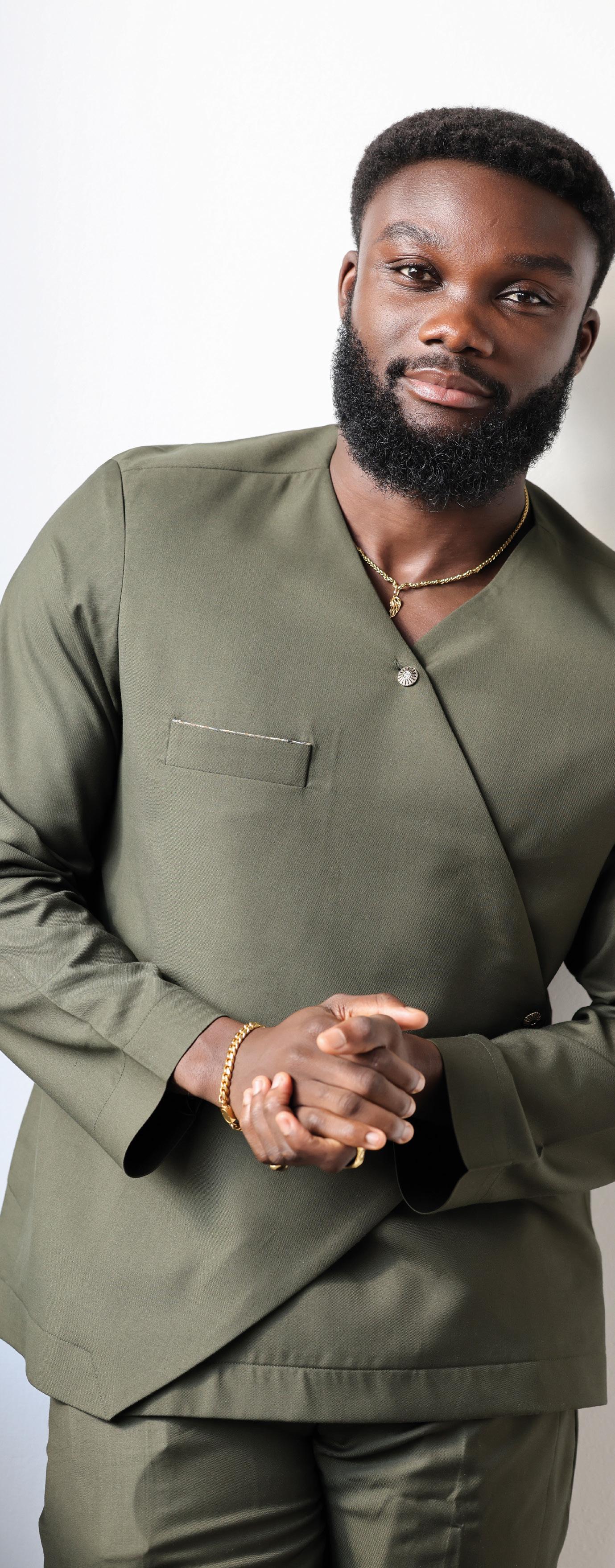
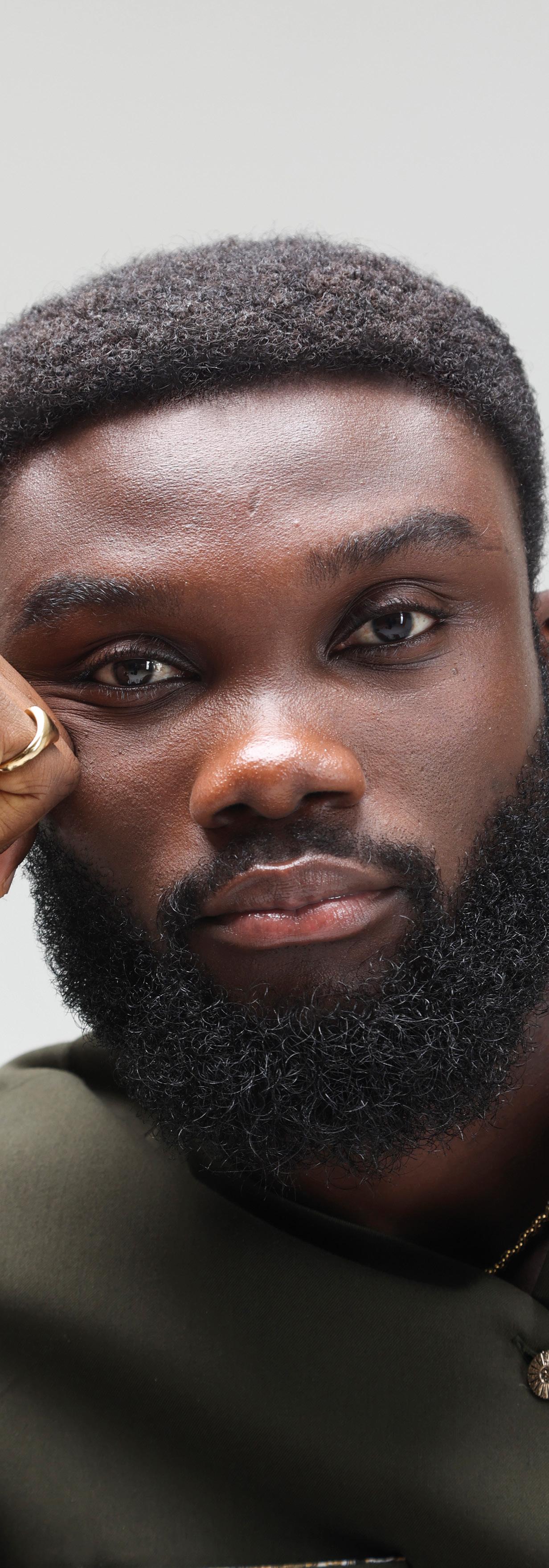
You have a book coming out with Penguin. What can we expect from the book, and what inspired you to write it?
The book, Cheat Codes, is about sharing mental models and strategies to help people succeed faster. It was inspired by my public speaking engagements and the desire to package my knowledge into something tangible. I believe what we did with Fanbytes wasn’t magical — it was about having a specific mindset and approach to life and business. If Fanbytes hadn’t worked, we would’ve figured out something else.
The book is meant to provide those “cheat codes” for people who want to reach their goals more efficiently, not just for young entrepreneurs but for people of all ages.
You’ve diversified your portfolio across various industries. How do you identify opportunities, and what advice would you give entrepreneurs looking to broaden their investments?
After selling Fanbytes, I wrote down 103 things I didn’t do well, and a lot of it came down to people — choosing the right ones and hiring correctly. That became my investment thesis: focus on who to invest with, not just what to invest in.
I don’t need to know everything about a particular sector. For example, I don’t know much about property or luxury cars but invest with people who do. My advice is to pick the right people to partner with and leverage your knowledge. For me, that’s marketing and social media. Find your edge and then collaborate with experts in other fields.
What’s the key to long-term financial success for entrepreneurs, especially those from underrepresented communities?
First, focus on market trends rather than what you want to be true. Look at where the market is heading and capitalise on that. Secondly, assume you don’t know anything. The humility to constantly learn was a huge part of our success at Fanbytes.
Also, I believe a healthy ego is essential. You need to believe that if someone else can do something, you can do it too — and better. It’s important for underrepresented entrepreneurs to have this mindset, take up space, and not just be “happy to be here.”
What advice would you give to young entrepreneurs, especially those looking to break into tech and marketing industries?
First, figure out your competitive edge. If you don’t have one, create one. Don’t just say you’re good with people; learn valuable skills like sales or design. In tech and marketing, standing out is crucial, especially if you don’t fit the norm.
Second, understand that there are levels to this game. Don’t aim for incremental growth; think bigger. And lastly, remember that it’s not that deep. You’ll have ups and downs in business, but keeping a level-headed perspective will help you enjoy the journey rather than suffer through it.
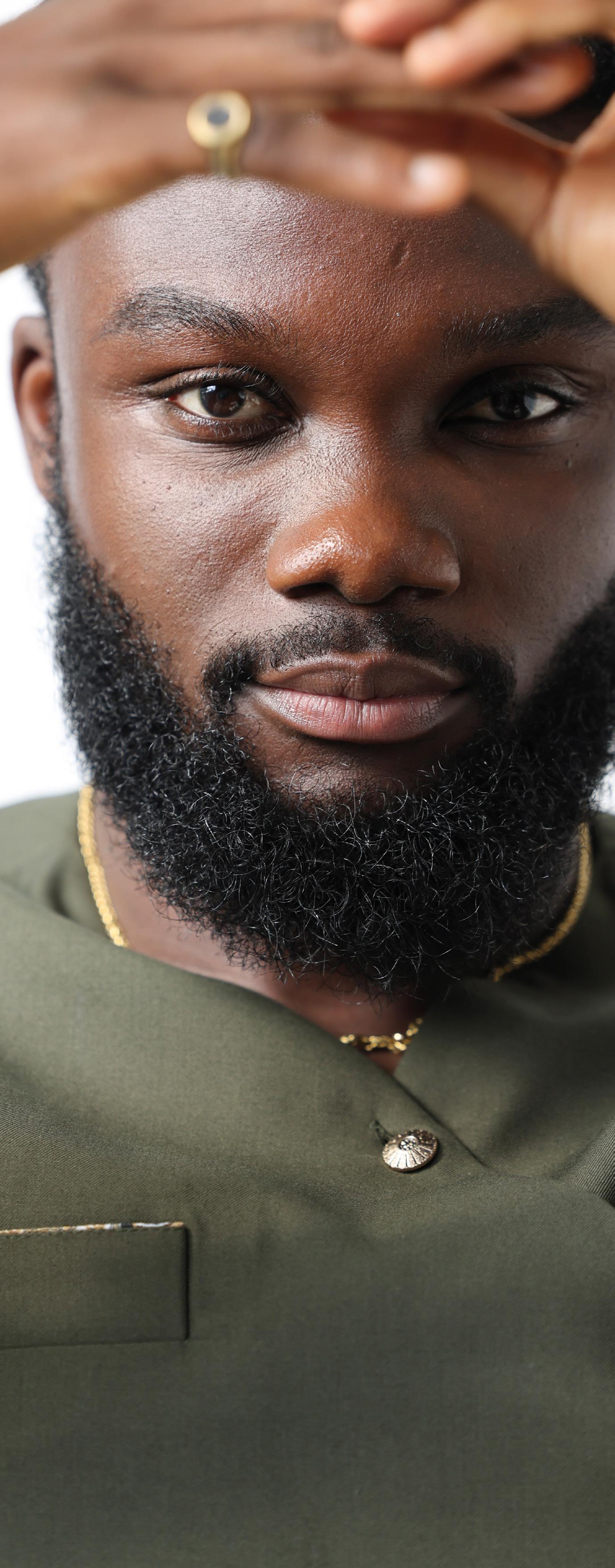

Looking back on your entrepreneurial journey, what’s been your biggest lesson, and how has it shaped the way you view things today?
The most important factor in success is choosing the right market. I spend more time evaluating market direction than anything else. Another key lesson is that there’s a lot of money in the world — people just need problems solved. Once you understand that, you realise you don’t need to be a genius; you just need to know where the attention and money are going and position yourself to be part of that.
To explore more about Timothy Armoo, scan the QR code
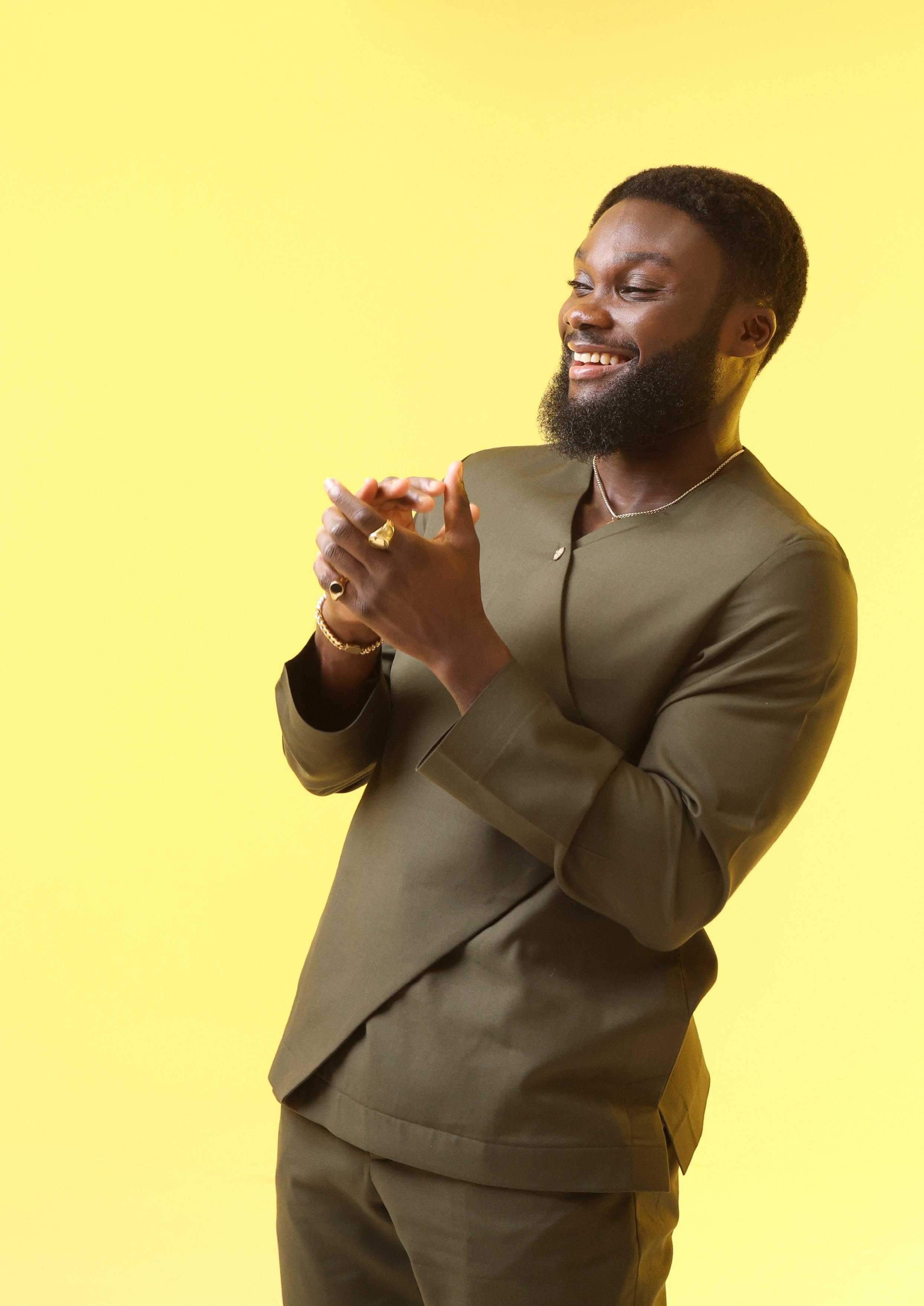


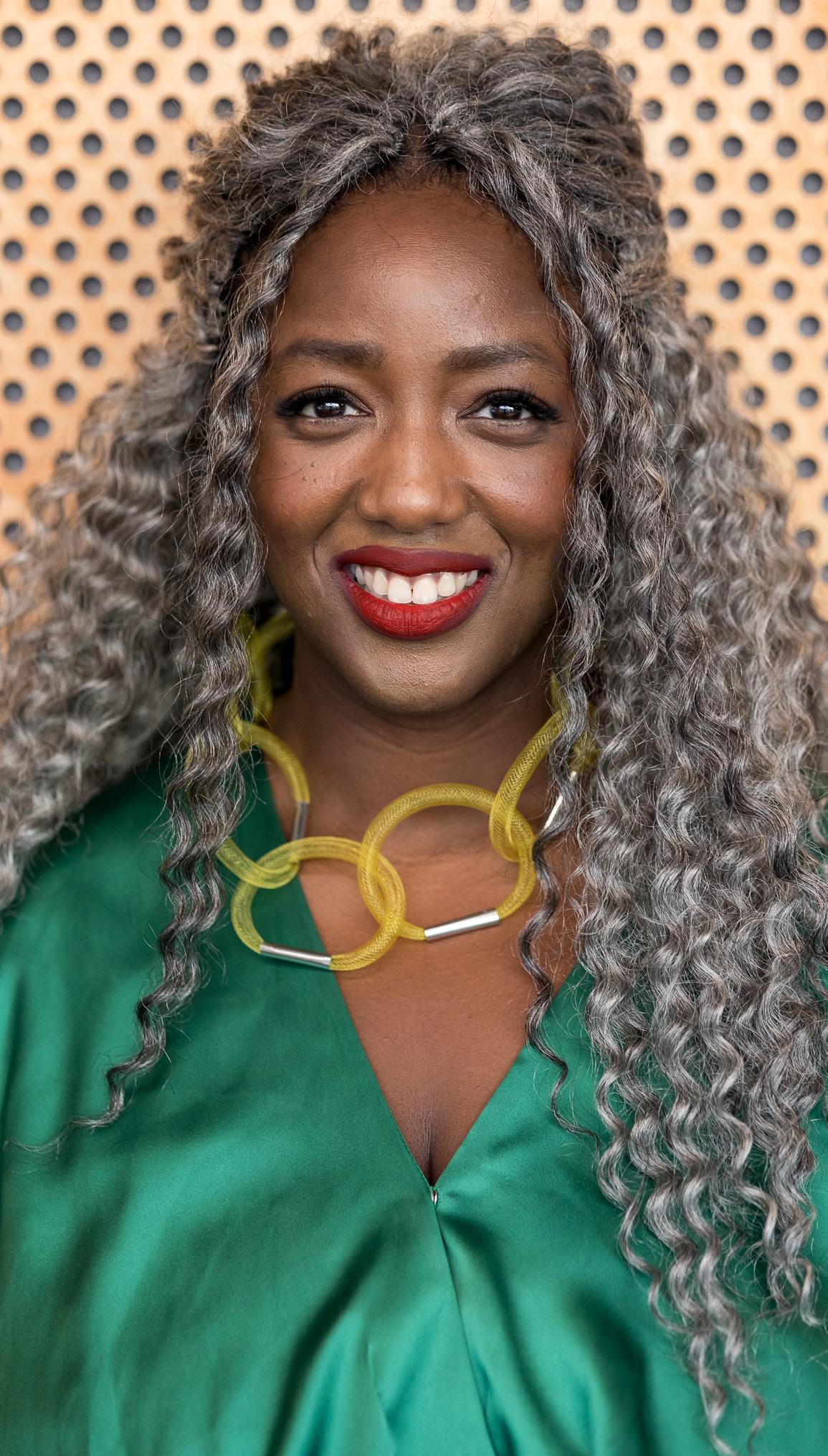
At just 11 years old, Dr Anne-Marie Imafidon MBE became the youngest girl ever to pass A-level computing. By age 20, she had earned a Master’s Degree in Mathematics and Computer Science from the University of Oxford. Dr. Imafidon’s remarkable career includes prestigious roles at Goldman Sachs, Hewlett-Packard, and Deutsche Bank, alongside honorary doctorates from several esteemed universities, including the Open University, Kent University, and the University of Bath. Dr. Imafidon has also served as the 2022-2023 British Science Association President and became Glasgow Caledonian University’s Chancellor in 2024.
A passionate advocate for diversity in STEM, Dr. Imafidon co-founded Stemettes. This award-winning initiative has inspired over 65,000 young women to pursue science, technology, engineering, and mathematics careers. Her 2022 book, She’s in CTRL, empowers women to reclaim their place in the tech world. Recognised for her contributions, Dr. Imafidon was awarded an MBE in 2017 and named the most influential woman in tech in the UK by Computer Weekly.
Our Managing Editor, Agua Hagan, learned more about Dr. Imafidon’s pioneering Tech career and why she created the initiative Stemettes.
Anne-Marie, you’ve achieved so much at such a young age. A Master’s in mathematics at age 20 is incredible. What motivated you to pursue technology and maths so early on in life?
Firstly, I just really enjoyed it. It made a lot of sense to me. I was incredibly logical, and things felt more random in other subjects, not as reliable or structured. Maths was like this consistent thread. If I understood one thing, I could apply it to the next. I loved that dependability. It’s still the same for me now. Even in meetings or complex situations, I know I can work through a problem step by step because the principles remain consistent.
The other motivation was always being able to create or solve something new. Learning maths or tech opens doors to building something amazing, something innovative. That thought of “what cool thing can I make next” drove me to keep learning. And now, with AI and
everything else, the world is catching up with what I’ve always loved about it. You understand the principles, and suddenly, you can apply them in exciting new ways.
You’ve inspired over 65,000 young people in STEM, which is incredible. What inspired you to co-found Stemmettes, and what’s been your proudest moment since its launch?
Wow, yes, Stemettes is 11 years old now. The inspiration came from attending the Grace Hopper Celebration of Women in Computing in the U.S. It was a transformative experience. I had never seen many women in Tech, let alone Black women in Tech. Suddenly, I was in this space with 3,500 women, and it was like, “Oh my goodness, this is what it feels like to be part of something bigger.” It made me realise that if more young girls, especially from underrepresented groups, had been exposed to these environments earlier, we wouldn’t have the diversity problem we see today.
That’s why we started Stemettes - to give young girls and non-binary people the opportunity to explore STEM before they hit those pivotal decision-making moments in life. It’s a space where they can try out science, technology, engineering, arts, and maths and see how these subjects touch real life. They can create, build, and imagine without the pressure of thinking they must be engineers forever.
My proudest moments are hearing from alumni who have gone on to do amazing things in industry, study, and create the future.
You’ve met with some of the biggest names in tech and finance, such as Goldman Sachs, Hewlett Packard, and more. How have those experiences shaped your vision for a more diverse and inclusive STEM community?
Funny enough, I don’t think they’ve shaped my vision as much as you might expect. I came into this industry before Stemettes without feeling underrepresented or a minority. My personal experiences in those environments were positive. Still, it wasn’t until I started speaking to others - those who hadn’t had such positive experiences, that I realised how significant the issues were.
My motivation to create a more inclusive space didn’t come from my journey but from recognising the need for others to have better experiences. This isn’t just about my path. It’s about making the wider industry accessible and welcoming for people who don’t fit into the traditional mold.
As someone who has held leadership positions across academia, industry, and nonprofit sectors, how do you balance all those roles?
Honestly, practice makes progress. Leadership overlaps across those spaces, but each has its unique challenges. For instance, things acceptable in academia may not fly in industry and vice versa. I try to apply a logical, almost computer sciencelike approach to leadership. Still, humans aren’t as predictable as code, so there’s always a bit of fuzziness around the edges.
One of my advantages is that I get to listen to people from all these different spheres, young people, academics, and professionals, and I can bring their insights into the spaces where I lead. That diversity of input allows me to push for new ideas and rethink priorities at leadership tables, which I feel fortunate to be able to do.
Let’s talk about your book She’s in CTRL. What’s the key message you want readers to take away?
The key message is that Tech is for you, no matter who you are or what you do. Many people think, “I’m not a coder” or “I didn’t do well in maths at school,” so they assume that Tech isn’t for them. But tech touches every field, whether you’re a writer, a teacher, or even into fishing. Start from where you are and see how tech can enhance what you already love doing. It’s about making tech relatable and accessible for everyone.
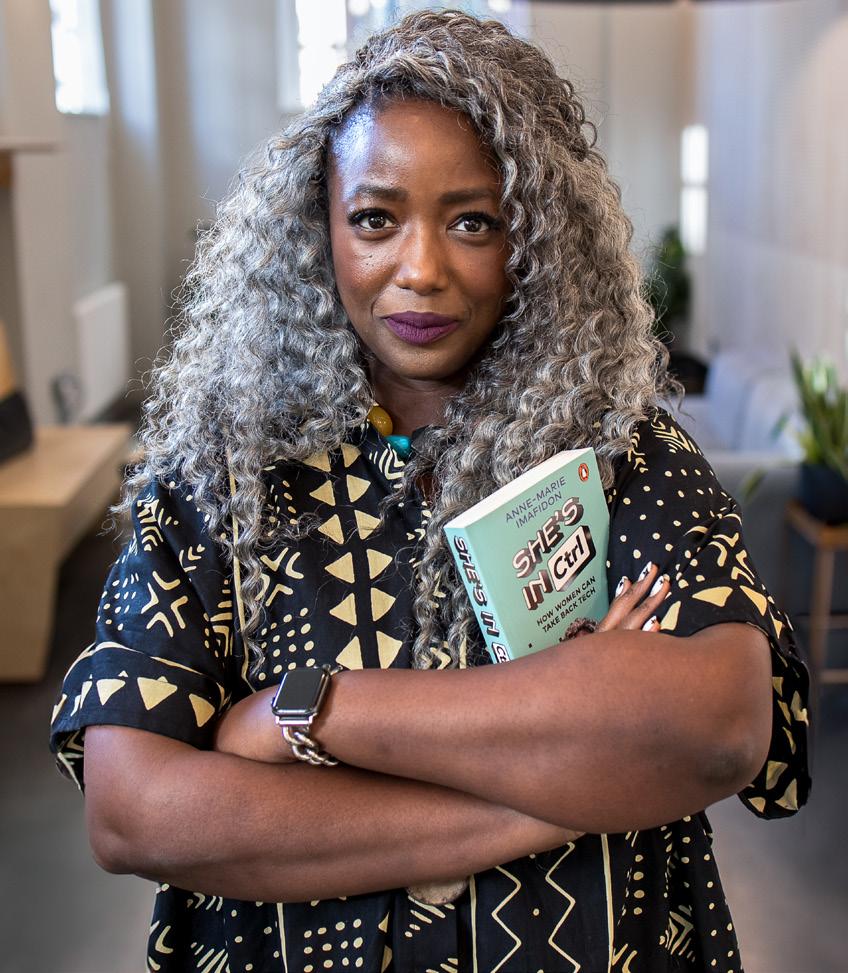
To explore more about Dr. Anne-Marie Imafidon MBE, scan the QR code
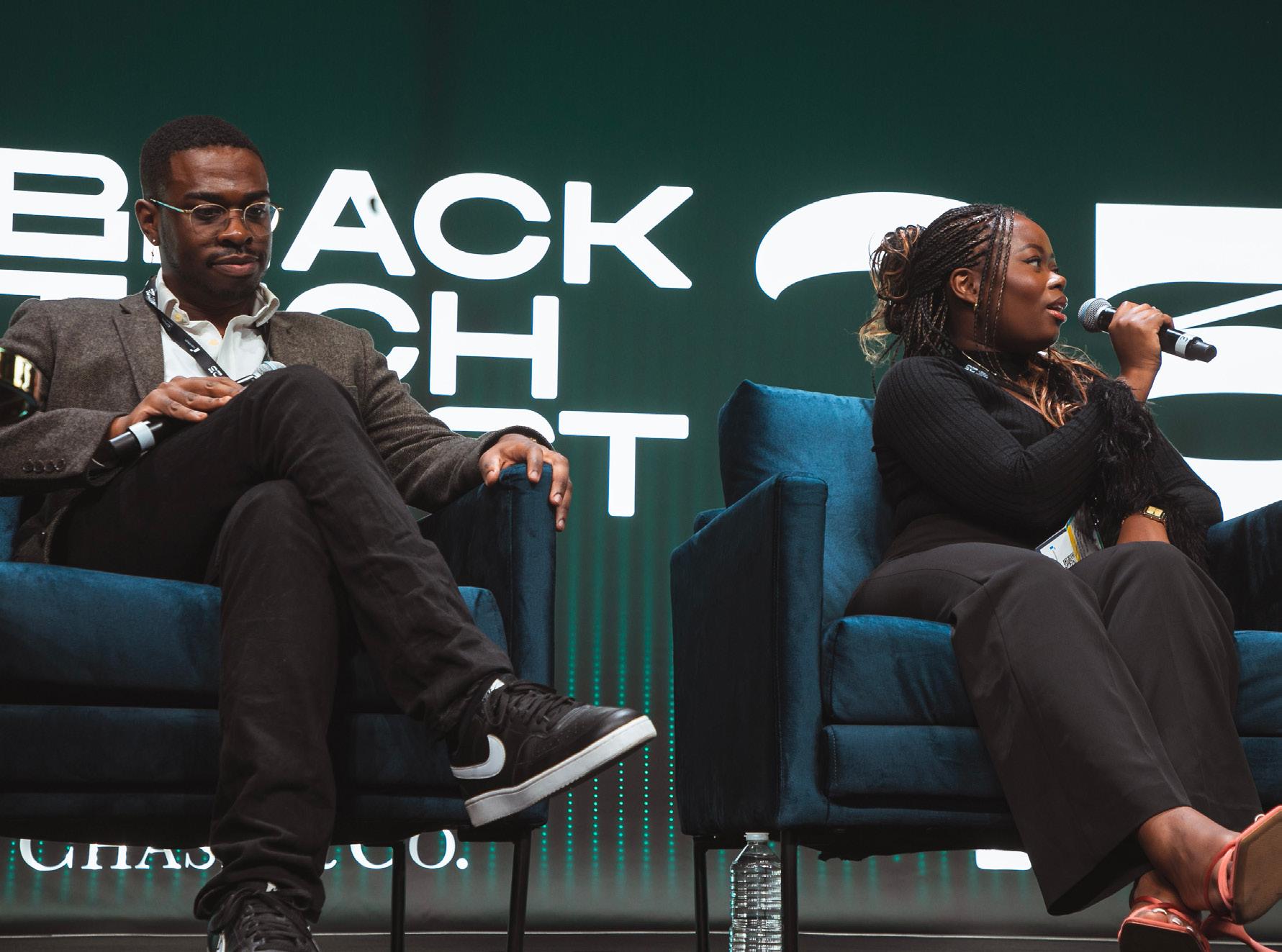
Ashleigh Ainsley is the Founder of Black Tech Fest (BTF). BTF is a dynamic celebration of Black innovation and culture within the tech industry. Since its inception, BTF has become a platform to highlight the contributions of Black professionals and challenge corporate gaslighting around diversity in tech.
In this interview, we explore how BTF has evolved over the years, its significance during Black History Month, and its mission to amplify underrepresented voices and drive tech innovation.
Black Tech Fest is an important celebration of Black culture and innovation in the tech industry. What inspired BTF’s creation, and how has the festival evolved since its inception?
Part of it was a response to corporate gaslighting. People questioned the presence of Black people in the tech sector, mainly whether we existed and if we weren’t in senior positions because we weren’t good enough. It was all gaslighting. We wanted to show that there’s a big, vibrant community of people from Black backgrounds doing innovative things in the tech sector. So, we decided to create an event.
Unfortunately, COVID-19 curtailed our first few years, and we had to go virtual. But that didn’t stop us.
We had great speakers like Michelle Williams from Destiny’s Child, amazing technologists, and fantastic partners who shared our ambitions. Many of them continue to support us every year. That’s a great sign, not just a fleeting thing. Over the years, the event has grown. In our fifth year, we expect over 5,000 people in person. It’s incredible to see it become the premier event of its kind in Europe.
BTF takes place during Black History Month in London. How does this timing add significance to the festival?
A big part of it is that Black History Month (BHM) focuses people’s attention. It’s hard to get people to support our cause outside of this time, but during BHM, companies and individuals are more engaged in supporting their colleagues and championing Black talent. It’s a great focal point for celebrating the achievements and contributions of Black professionals. For our community, it’s a time when many seek inspiration and innovation from people making history today. It’s an excellent opportunity for us to share that and showcase it.
How do you ensure the celebration of Black talent is highlighted throughout the events?
We ensure that Black people are included in every
aspect of the event. Every session, panel, and conversation features Black voices. But it’s not just about discussing being Black - we’re showcasing these individuals’ amazing work. From our supply chain, where we aim to work with Black-owned businesses, to the wide range of speakers, we ensure that Black talent is front and centre.
One of BTF’s key goals is to foster inclusivity and amplify underrepresented voices. How do you curate the speakers, panellists, and participants to reflect this mission?
BTF is run by Colour in Tech, a nonprofit with a community of around 40,000 people. We run events year-round, so we’re constantly engaging with people in tech to understand their concerns, what excites them, and what innovations they’re following. This feedback helps us shape the discussions and ideas for the festival. We receive many speaker requests and work closely with our partners to identify industry leaders advancing technology. We also prioritise giving a platform to new voices and those who might not typically get the chance to speak on such stages. It’s a key part of our philosophy.
Tech innovation is central to BTF. How does the festival spotlight the latest trends and developments in tech, and what role does Black talent play in driving these innovations forward?
Black talent is fundamental to the tech industry’s success. Whether you’re looking at CEOs, CTOs, entrepreneurs, or investors, Black people are leading innovation in all these areas. They also play a crucial role in opening doors for others in the industry. Our role at BTF is to amplify and champion their contributions. We also aim to challenge some of the established paradigms in tech by ensuring that Black people and other underrepresented groups are in the room to bring unique perspectives and solutions based on their lived experiences. This isn’t about tokenism; it’s about adding genuine value to the conversation and ensuring equitable technology.
With big-name sponsors and tech leaders participating, how do partnerships with companies like these help further BTF’s mission of inclusion and representation in the tech industry?
As a nonprofit, BTF relies on sponsorship to survive, especially since we keep the base ticket free to make the event accessible. Sponsors play a significant role in making the event happen and contributing content, speakers, and cutting-edge technology. We feature everything from driving simulators to Teslas. Our partners help bring those elements to life. We want to work with various organisations, big and small, that are doing interesting things. Our event offers a platform for them to showcase their work and contribute to our mission.
BTF provides networking tools for participants to connect with industry leaders. How do these networking opportunities help attendees make meaningful connections, and what impact do you see this having on underrepresented talent?
The tech sector can sometimes feel disjointed, hindering the sharing of ideas with the people who could make a meaningful difference. At BTF, we aim to address this by facilitating networking opportunities. Whether through events, newsletters, or our community, we share what’s happening and encourage collaboration. When people come together, they can form greater partnerships than the sum of their parts. We aim to help attendees meet potential mentors, collaborators, and industry leaders who can support their journeys and create impactful relationships.
BTF’s major focus is inclusion. What initiatives or discussions at the festival aim to address Black professionals’ barriers in the tech industry, and how does BTF work toward breaking these down?
Simply existing is the first step. If BTF didn’t exist, there wouldn’t be an event of this size and scale for the Black tech community. We created this platform because no one else had. We aim to showcase people doing amazing things, regardless of their background. While BTF celebrates Black achievements, it invites others to witness and participate. Many leaders driving the strategies in tech companies aren’t from Black backgrounds, and they need to see the talent and capabilities of our community. By normalising Black excellence, we hope to challenge the stereotypes and barriers that exist around the quality of Black professionals’ work, pay disparities, and other forms of discrimination.
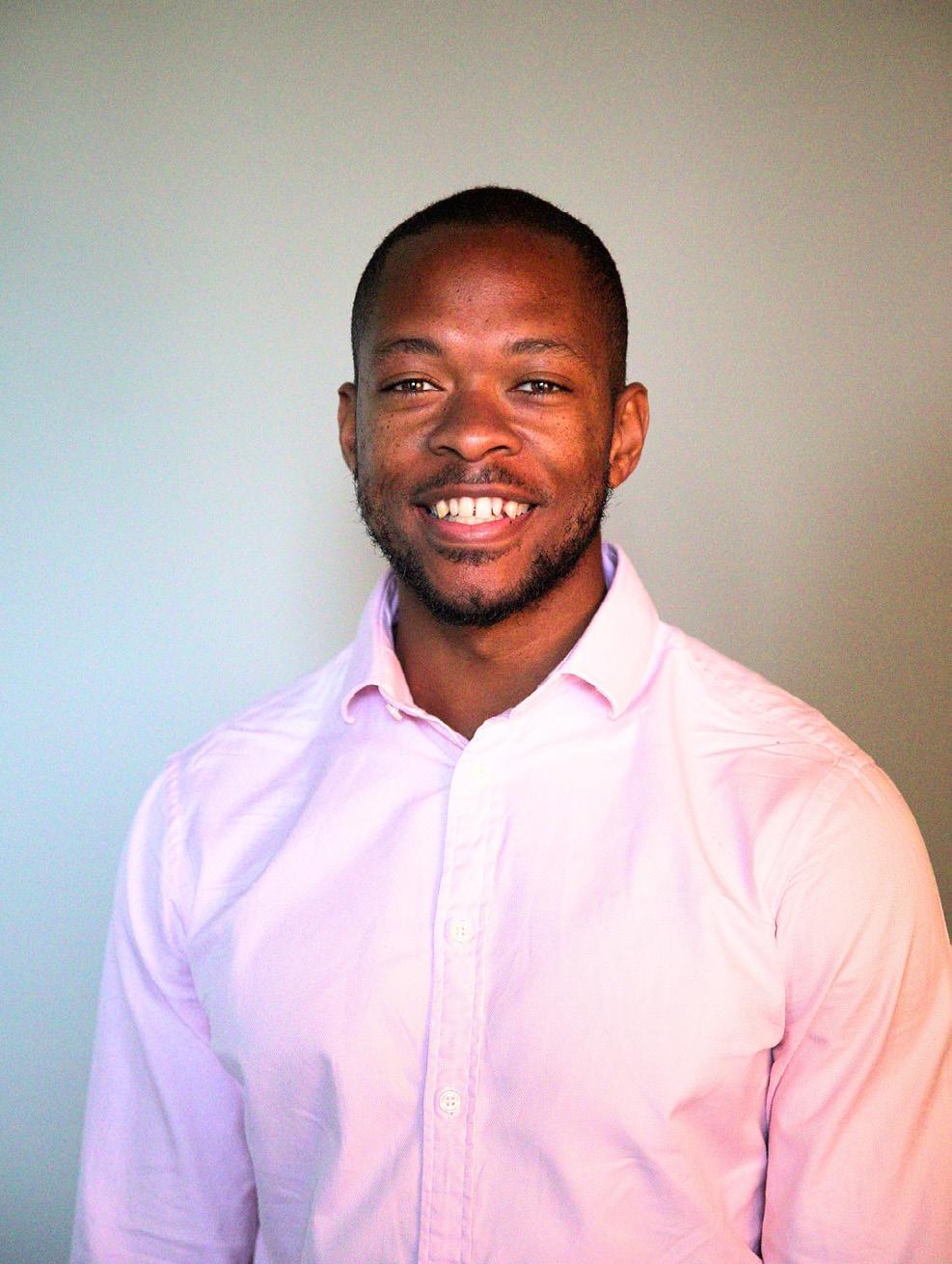
To explore more about Ashleigh Ainsley, scan the QR code
THE POWER OF INCLUSIVE LEADERSHIP: A JOURNEY FROM HUMBLE BEGINNINGS TO TRANSFORMING GLOBAL ORGANISATIONS
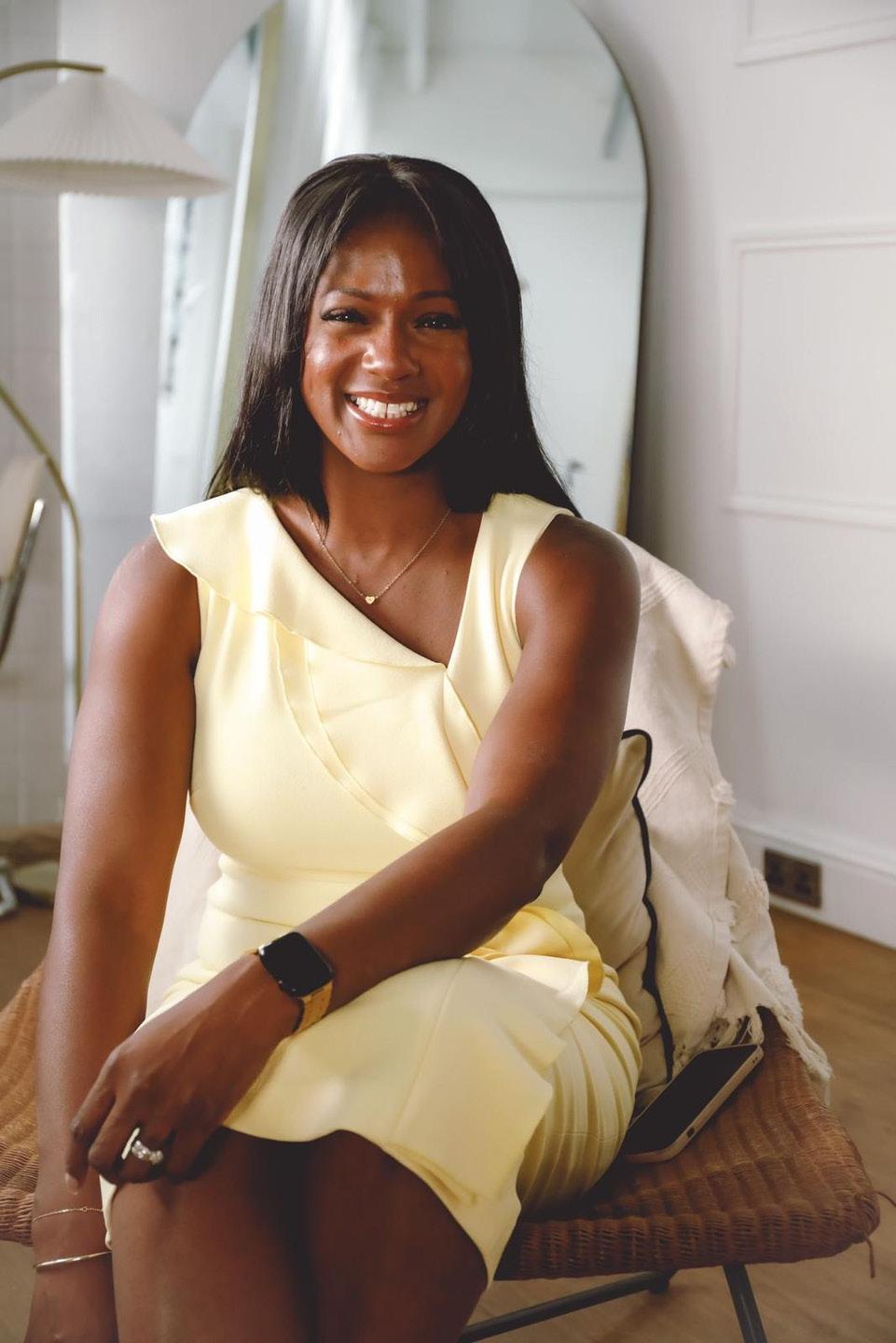

HI! I’m Hannah Awonuga an experienced Diversity, Equity, and Inclusion (DEI) speaker, and thought leader with over 20 years of corporate experience in both banking and real estate I have spent over a decade of my career deeply committed to creating spaces where every individual feels valued, respected, and empowered I learned early on in my career what it means to work hard and push through systemic barriers, which has led to my unique perspective that I now share with global stages
Over the past decade, I’ve had the privilege of addressing and consulting with global executive teams on topics ranging from cultural transformation and inclusive leadership to socioeconomic inclusion, race and ethnicity, gender equity, and more My experience as a Black woman from a lower socioeconomic background has shaped not only my worldview but also the way I approach inclusion I’ve come to understand that true inclusion is about more than checking boxes it’s about fostering a deep cultural shift that transforms how organizations function at their core
One of the key messages I share with leaders is the profound impact that DEI can have on organizational performance Through data-driven insights and proven strategies, I help leaders connect the dots between DEI and their company’s goals, be it driving innovation, enhancing employee engagement, or boosting profitability Inclusive cultures aren’t just good for people; they’re good for business
I speak passionately about the power of inclusive cultural transformation, emphasising that it’s not just about diversity numbers but about how we create environments where people from all backgrounds can reach their full potential This requires courageous leadership and a willingness to confront uncomfortable truths about race, gender, socioeconomic background, and other dimensions of diversity Through realworld examples and actionable strategies, I show leaders how to cultivate workplaces where everyone feels they belong
for Strategic Change
I’ve partnered with executives across industries to articulate the complexity of DEI through impactful
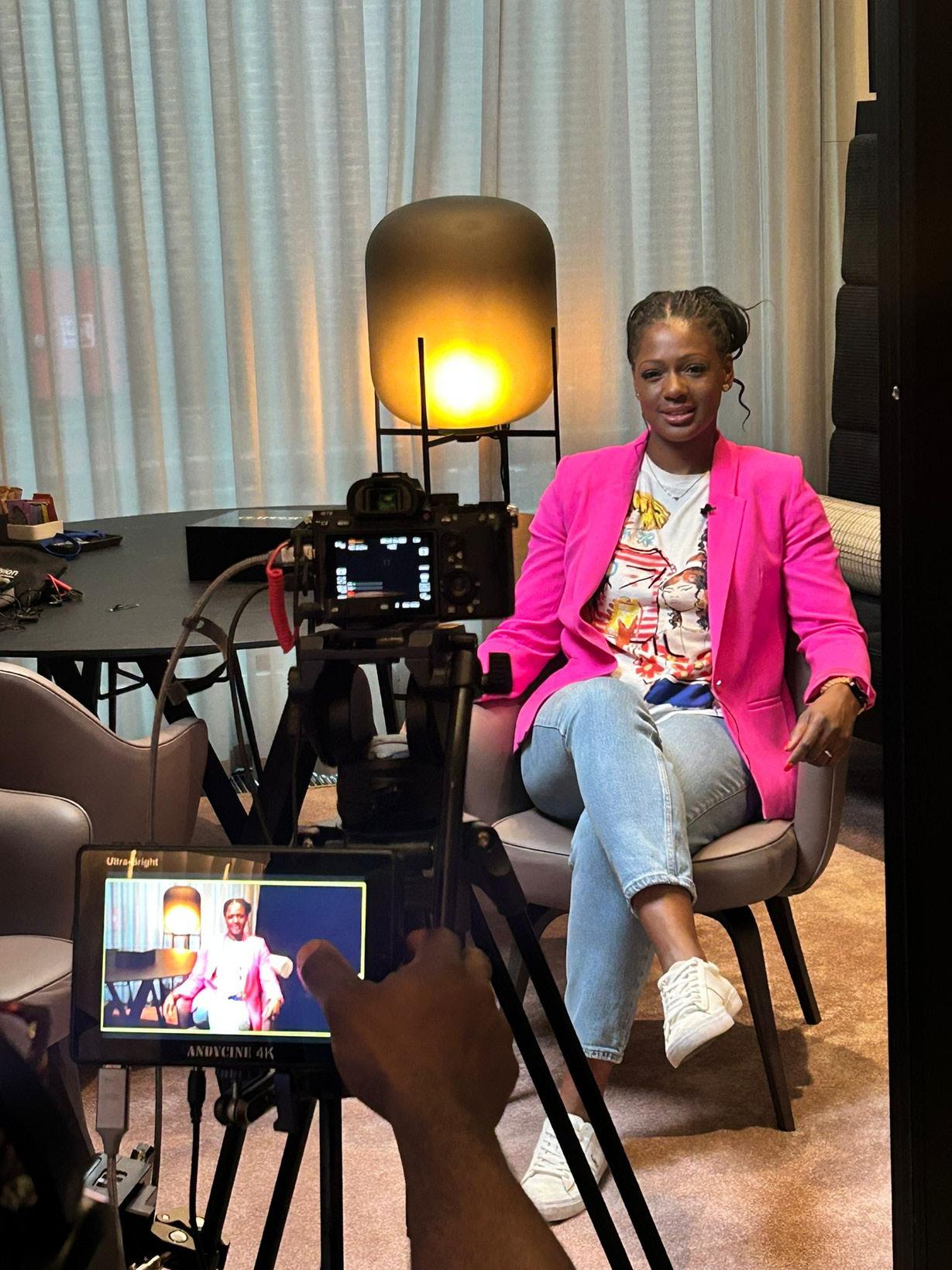
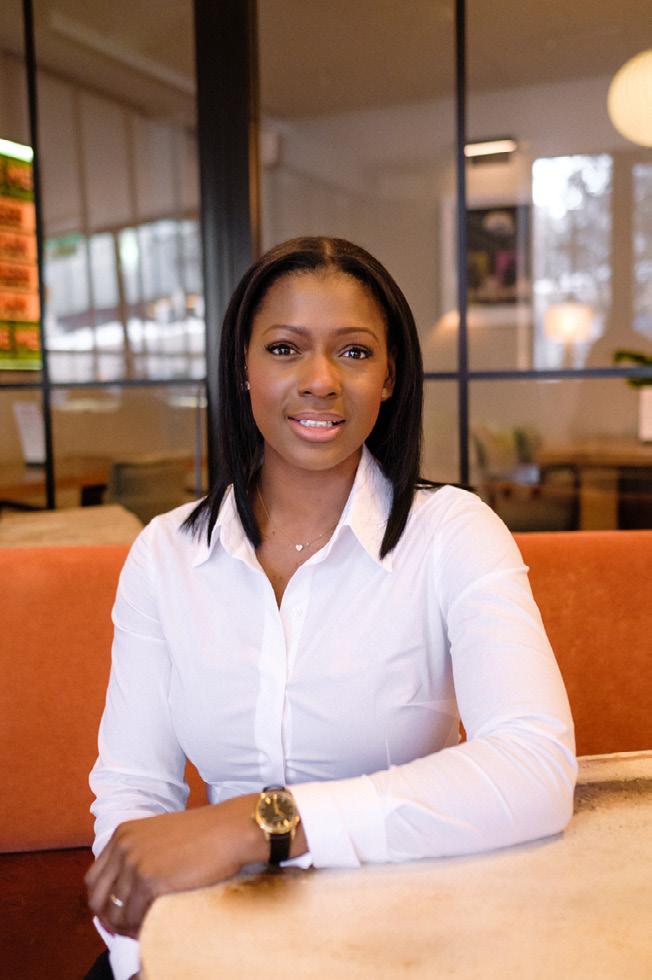
70 000+ LinkedIn Followers
3 million impressions in 12 months on LinkedIn
Average of 82,521 post impressions per post on LinkedIn
3,000 search appearances in the last 7 days on LinkedIn
Qualified Executive Coach
Founder of ‘Meet My Future Self’ inspiring over 150 School Girls to see women from low socioeconomic backgrounds in senior positions
Years ago I realised that finding ‘purpose’ in your work transforms your career into your passion! I've had many experiences in live, and now, through the power of storytelling I teleport audiences into a world filled with grit, determination and resilience!

Hannah A
Flavilla Fongang is a multi-award-winning serial entrepreneur and leader in the tech and branding industries. Starting her career in the oil, gas, and fashion industries, she became a leading figure in the UK tech space and was named Computer Weekly’s most influential woman in tech. As the founder of 3 Colours Rule, an award-winning branding agency, and Global Tech Advocates – Black Women in Tech, Flavilla has transformed businesses with her innovative D.A.C. system and Beyond Marketing Approach. Known for her international speaking engagements, podcast hosting, and mentorship roles, Flavilla continues to inspire through her commitment to diversity, inclusion, and excellence.
You’ve had a remarkable journey across various sectors, from oil and gas to fashion and technology. What inspired your transition into the tech industry, and how did your diverse background shape your approach to business in tech?
I came across the documentary of a young Black girl in Africa who travelled many miles daily to school. Some kids were getting lost on their way back. She identified a problem and created a technology solution to ensure her friends could safely find their way home. That story triggered me – it made me realise how technology could create a scalable impact, solving real-life problems at a massive scale.
My diverse background in fashion and oil and gas industries shaped my approach to tech by reinforcing the importance of creativity, adaptability, and resilience. I saw tech as another medium to create change, with far broader potential to reach millions.

As the founder of 3 Colours Rule and Global Tech Advocates –Black Women in Tech, you’ve built platforms championing inclusivity and innovation. How do you balance running a successful agency while advocating for diversity and inclusion in tech?
It’s about creating synergy between my work and my advocacy. At 3 Colours Rule, I implement inclusive marketing strategies that align with my advocacy efforts through Global Tech Advocates – Black Women in Tech. Both companies revolve around creating environments where everyone feels empowered to contribute and innovate. The balance comes from understanding that diversity isn’t just a side mission – it’s essential for innovation and business success. So, by fostering diversity and inclusion in both spaces, I can drive growth while championing what I believe in.
The D.A.C. system and the Beyond Marketing Approach you developed have become critical tools for many businesses. Can you share how neuroscience influences your branding strategies and why this approach is effective in today’s market?
Neuroscience plays a pivotal role in understanding how people make decisions. The D.A.C. System and Beyond Marketing Approach I developed are rooted in the science of human behaviour – how emotions and cognitive biases influence choices. By tapping into how the brain processes information, I help brands create emotional connections with their audiences, which is far more effective than just pushing features or benefits. This approach works because today’s consumers are bombarded with information and crave genuine experiences. Neuroscience allows us to cut through the noise and build trust with our audiences.
Global Tech Advocates – Black Women in Tech has become the largest organisation of its kind. What impact has this community had on the tech industry, and how do you envision its growth and influence in the coming years?
The impact has been profound. We’ve created a space where Black women in tech can connect and thrive. We’re showing the industry that diversity isn’t a buzzword. It’s a critical business advantage. The community has also sparked more visibility for Black women in leadership roles and more conversations around the barriers they face. In the future, I see our community expanding globally, continuing to drive systemic change, creating key partnerships, and creating more opportunities for Black women to lead within tech.
Your book, The Voices In The Shadow, is a testament to amplifying the stories of Black women in tech. What has the response been from the young people who’ve accessed the book, and why do you feel preserving these legacies is essential?
The response has been incredibly positive. Young people, especially Black women and girls, have reached out to share how inspired they are by the stories in the book. Many have said it gives them hope and a sense of belonging in an industry where they may not always
see themselves represented. Preserving these legacies is essential because it creates a roadmap for the next generation, showing them what’s possible and that they, too, can break barriers in tech.
Computer Weekly named you the most influential woman in tech in the UK. What does this recognition mean to you, and how do you hope it inspires other Black women in tech?
It’s an honour, but more than anything, it’s a responsibility. Being named the most influential woman in tech means I have a platform to keep pushing for more representation, opportunities, and inclusion in tech. I hope it inspires other Black women to see that they can make their mark in this industry. It’s a sign that our work matters and that we can influence change.
As an international speaker and thought leader, you’ve addressed audiences at conferences worldwide. What key insights or trends in the tech space do you believe businesses need to focus on to stay ahead in the future?
AI and automation are transforming industries, and businesses that don’t integrate these technologies risk falling behind. However, to fully capitalise on AI, companies must invest in ethical data privacy and sustainability practices, as consumers are becoming more discerning. Another critical factor is the need for re-skilling. As AI evolves, companies must prioritise upskilling and re-skilling their workforce to stay competitive.
Your story is one of resilience, from moving to London without speaking English to achieving academic and entrepreneurial success. What advice would you give young Black women looking to break into tech or entrepreneurship but facing significant obstacles?
My advice is to own your story and leverage it as a strength. Every obstacle is a learning opportunity. Surround yourself with a strong support network, whether it’s mentors, peers, or professional groups like Global Tech Advocates Black Women in Tech. Don’t be afraid to take risks; remember that resilience is key. Tech and entrepreneurship are tough industries, but if you stay focused and true to your values, you will break through.
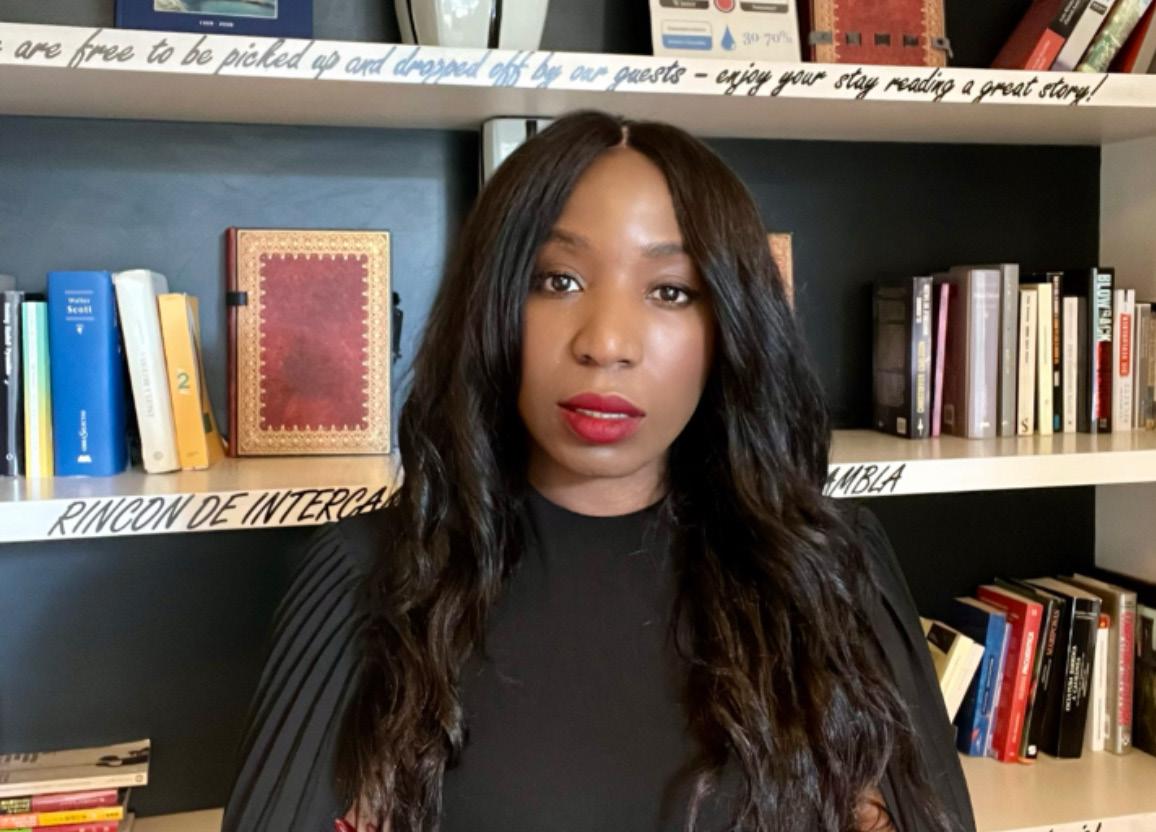
What’s your go-to productivity hack?
ChatGPT4.
Favourite tech gadget you can’t live without?
iPhone.
Best piece of advice you’ve ever received?
Make it easy for someone to choose you.
Who inspires you in the tech world?
Not a person but a company. Duolingo drives innovation through the entire company. Love it.
One book every entrepreneur should read?
48 Laws of Power and The Psychology of Money.
I’m an enabler; I can see the potential in someone before they see it.
If you could give one piece of advice to your younger self, what would it be?
Being a Black woman is your superpower. Don’t let the world fool you.
I’m excited about creating and developing the Black Rise business platform and seeing more Black professionals and businesses connect and share knowledge and opportunities. Mixing the wise words of Tosin Lanipekun, it’s time for the stars to create a constellation.
To explore more about Flavilla Fongang , scan the QR code
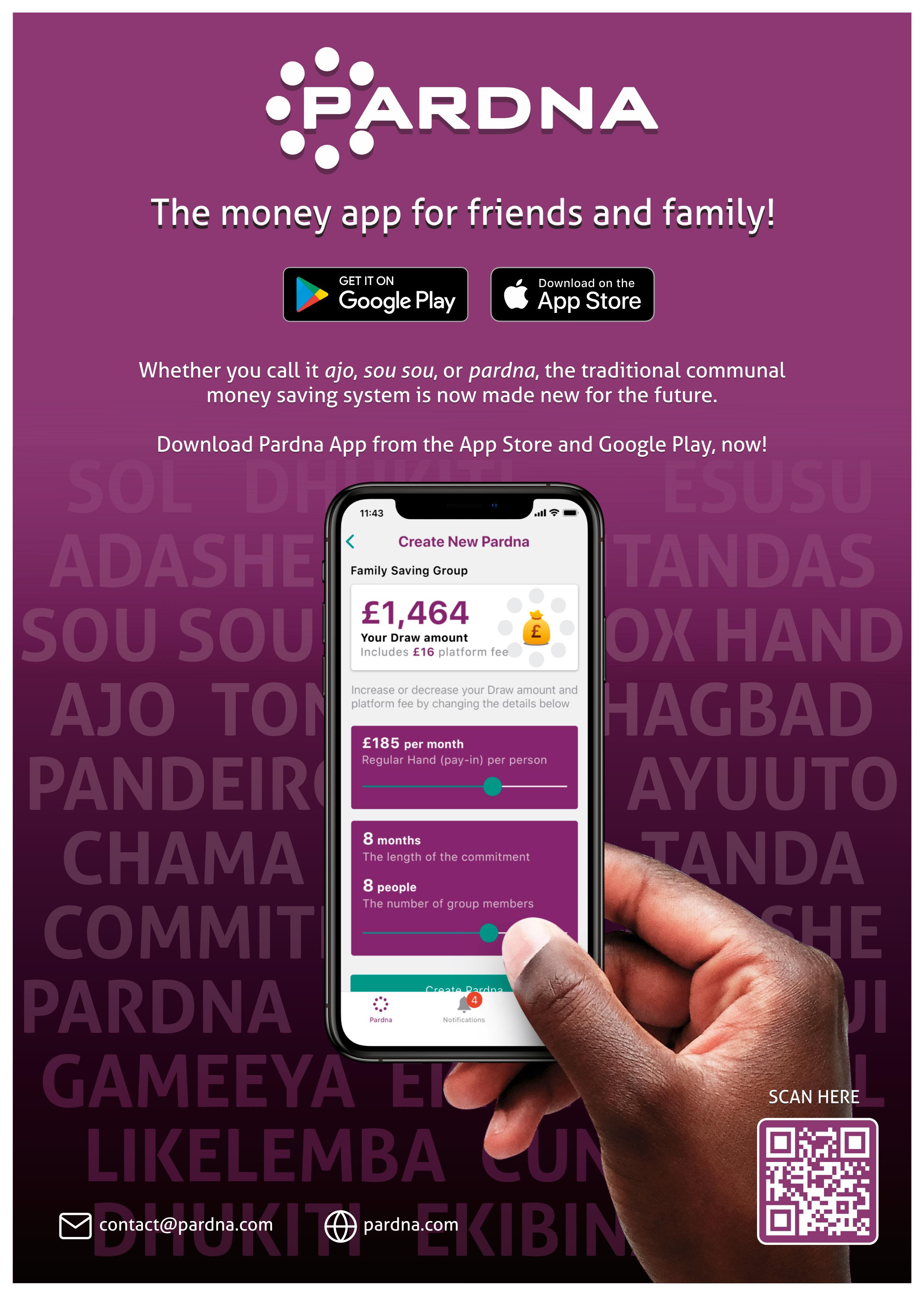

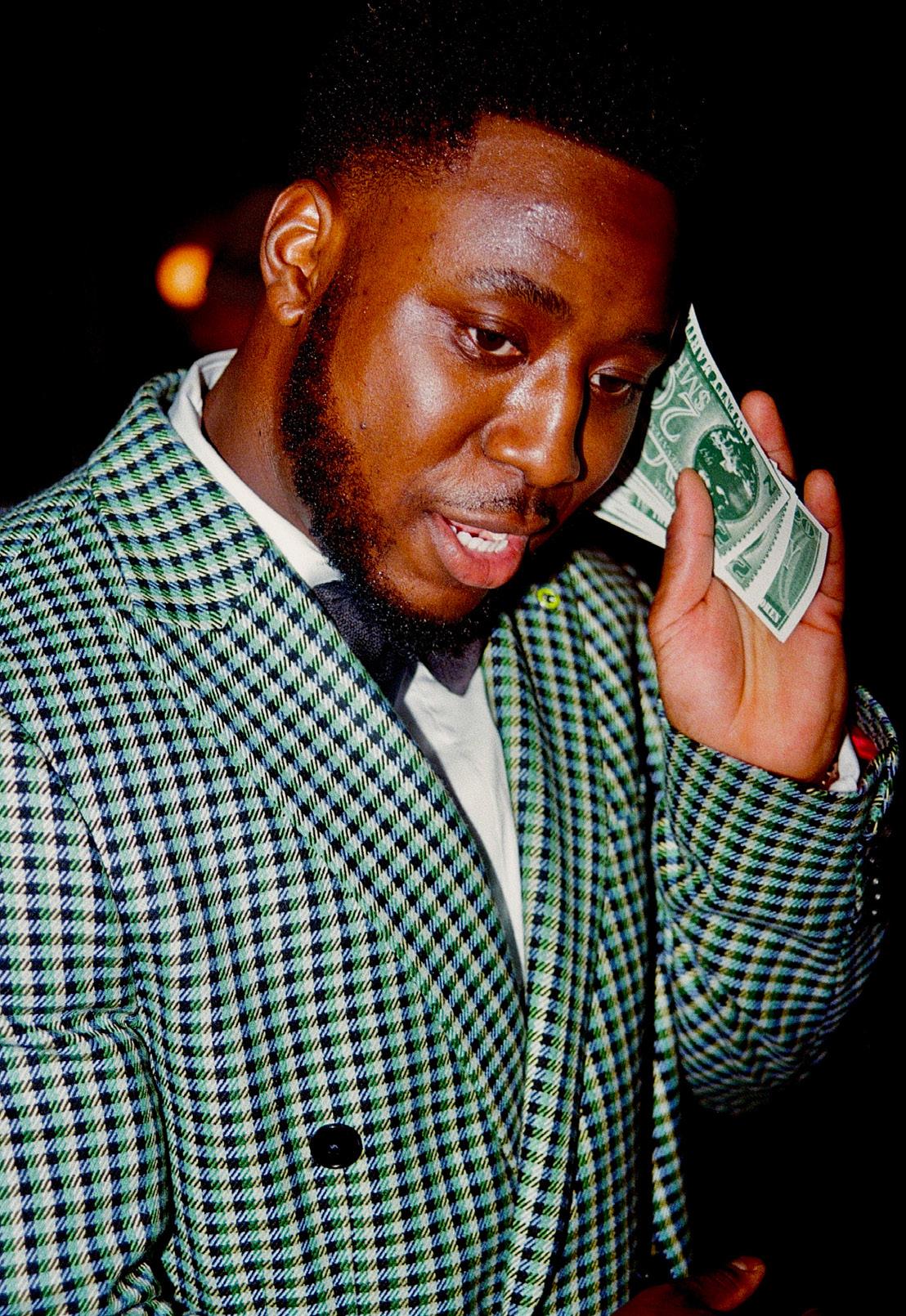
Amarí Lewis-Simpson is the founder and CEO of Naitram, a pioneer in the Web3 space focused on revolutionising the entertainment industry. With over three years of experience, he has expertly bridged the gap between entertainment, music, and cuttingedge technologies like blockchain, NFTs, and virtual reality. Amarí played a pivotal role in helping Barbados acquire land in the Metaverse and has sourced deals for top crypto platforms like Binance. As a respected speaker at global events such as NFT LDN and Dubai’s Binance Blockchain Summit, Amarí continues to push boundaries in the evolving Web3 landscape.
Naitram is at the forefront of integrating blockchain and NFTs into entertainment. What challenges have you faced in mainstreaming these technologies, and how have you overcome them?

At Naitram, one of our primary challenges is driving mass adoption and educating consumers and decision-makers about the transformative potential of blockchain and NFTs in the entertainment industry, particularly in event ticketing. Convincing stakeholders to move beyond traditional frameworks and embrace digital assets has required significant awareness and understanding of the long-term benefits.
We have successfully addressed these challenges by presenting compelling case studies and positioning ourselves as a proof-of-concept. Through our innovative solutions, we have demonstrated the tangible impact of these technologies, such as eliminating over £200 million worth of fraudulent tickets from the system. This real-world success has been instrumental in showing the value of our approach and accelerating the shift towards new-age, secure, and transparent ticketing systems.
As a young Black entrepreneur in the competitive Web3 space, what unique challenges have you faced, and how have you navigated them to build Naitram into the innovative company it is today?
I’ve encountered unique challenges that go beyond just navigating a rapidly evolving industry. When I decided to take Naitram to the next level, I had a 6-month-old child and another on the way. Balancing the demands of family life with the pressures of building a startup was incredibly difficult, especially when I started with just £100 to my name.
Despite these challenges, I persevered and pushed forward. Many would consider raising £1.2M from that starting point impossible, but I approached it with an unwavering mindset. In moments when the vision seemed impossible, I became unstoppable. I’ve always believed that with the right determination, there are no limits. That mentality has been key to growing Naitram into the innovative company it is today, overcoming personal and professional obstacles.
You’ve been a speaker at major global events like NFT LDN and the Dubai Binance Blockchain Summit. How has speaking at these events shaped your perspective on the evolution of Web3 in entertainment?
Speaking at major global events like NFT LDN and the Dubai Binance Blockchain Summit has given me a unique perspective on the future of Web3 in entertainment. Sharing panels with industry giants such as Ticketmaster and Eventbrite, platforms often viewed as competitors, has been particularly impactful. Hearing leaders from the Web2 ecosystem openly acknowledge that the future of ticketing is what we’ve built at Naitram is a powerful validation of our vision. These experiences have reinforced my belief that Web3 is not just a passing trend but a fundamental shift in how we interact with entertainment and digital assets.
With your extensive experience working with crypto exchange platforms like Binance, what role do you think crypto will play in the future of entertainment and events?
Cryptocurrency will revolutionise the entertainment and events industry by redefining engagement and value exchange. At Naitram, we are leading this
transformation by developing our token, $MRT, which is a universal currency for events. This token simplifies transactions and enhances user engagement through our “Party 2 Earn” model, where attendees earn MRT tokens by participating in events. These tokens can then be used to purchase tickets or converted into fiat currency, fostering a seamless integration between virtual assets and real-world entertainment.
How did your involvement in helping Barbados acquire land in the Metaverse come about, and what impact does it have on the future of digital real estate?
In late 2021, I immersed myself in the metaverse, buying and selling virtual land through platforms like Decentraland and Sandbox VR, earning £1,000 per transaction. I also built virtual meeting spaces during the pandemic on the platform Spatial, transforming that skill into a profitable venture, but it all started just as a bit of fun.
My Bajan heritage and connections with government officials led me to serve as a consultant between Decentraland & Ministries of Foreign Affairs and Science and Technology. Through multiple meetings, I guided them through the process. In regular meetings, I collaborated with Decentraland architects, analysing land proximity and discussing how ownership via LAND tokens could unlock the potential of an “In-world Economy.”
By providing innovative strategies and directing architectural work, I helped the embassy engage with consumers in revolutionary ways. This collaboration allowed me to bridge government operations with the metaverse, showing how institutions can capitalise on virtual economies. Through consultation and careful planning, I turned a vision into reality, shaping a new digital frontier for the Bajan government. Making them the first country with an Embassy in the metaverse.
What excites you the most about the intersection of virtual reality and live entertainment? How do you envision Naitram leading that charge?
The convergence of virtual reality and live entertainment excites me because it breaks down the barriers that have long kept people apart, offering the chance for truly global, shared experiences. What truly inspires me is the ability to democratise access to world-class events, allowing anyone, anywhere, to be part of extraordinary experiences that were once limited by location or circumstance.
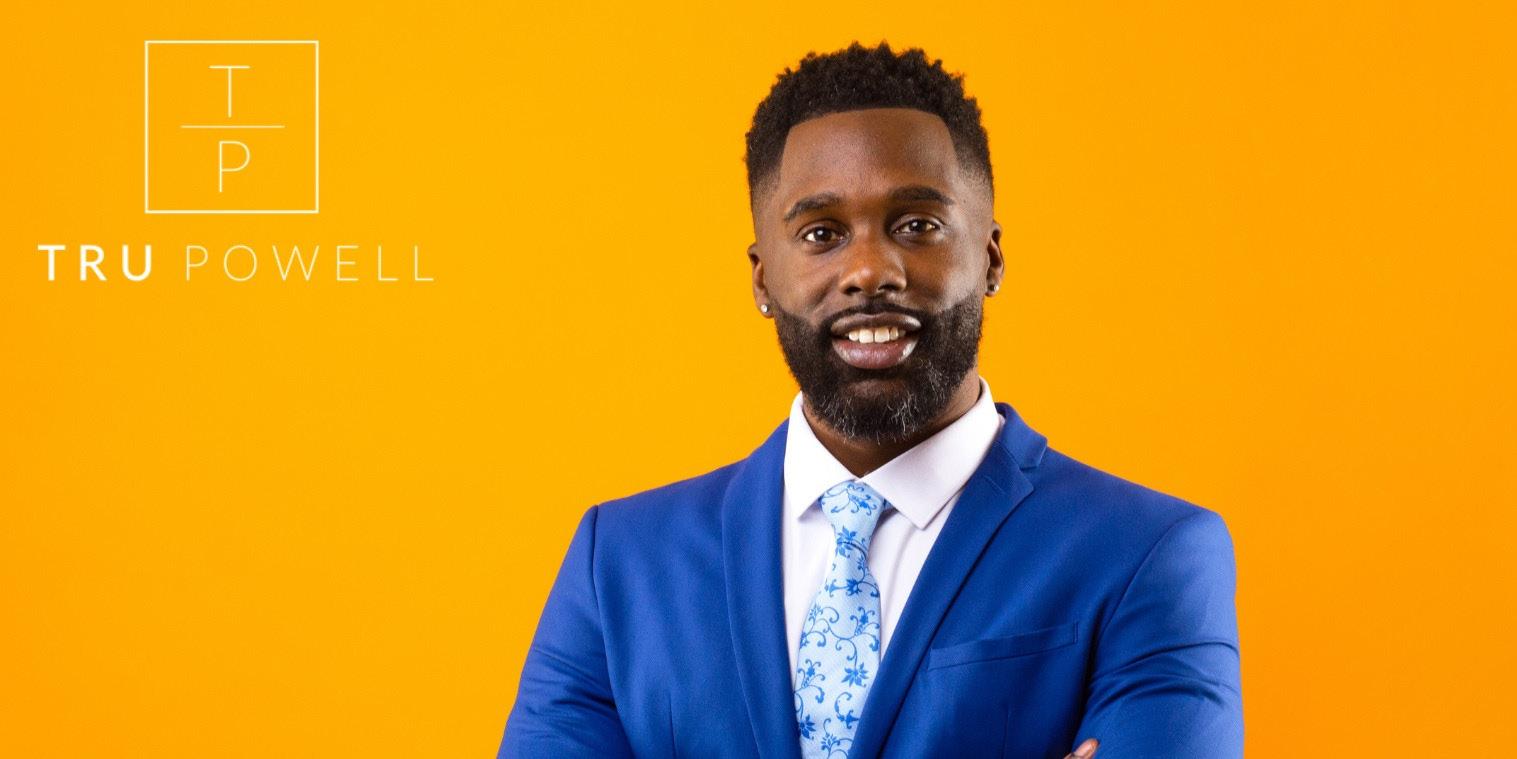
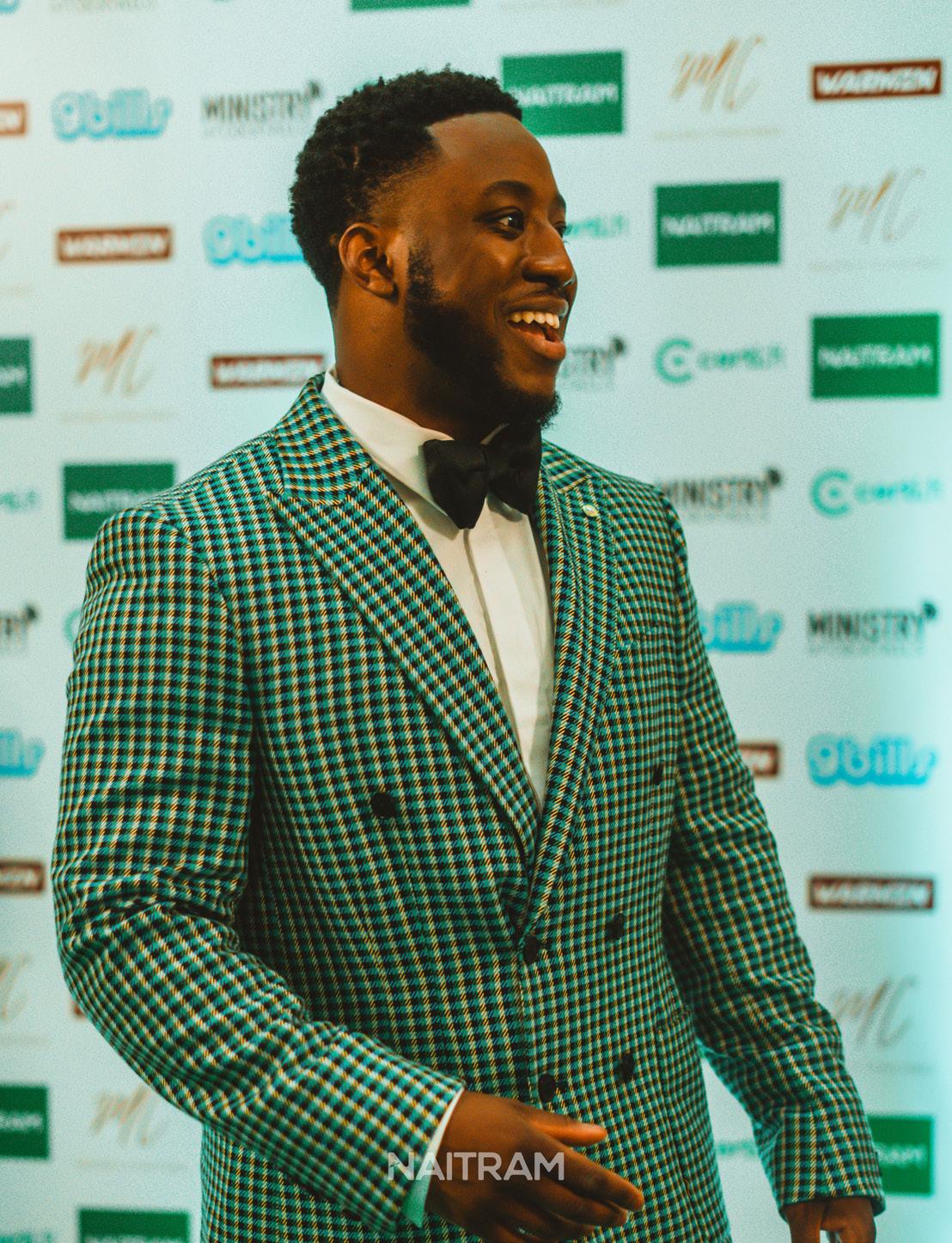
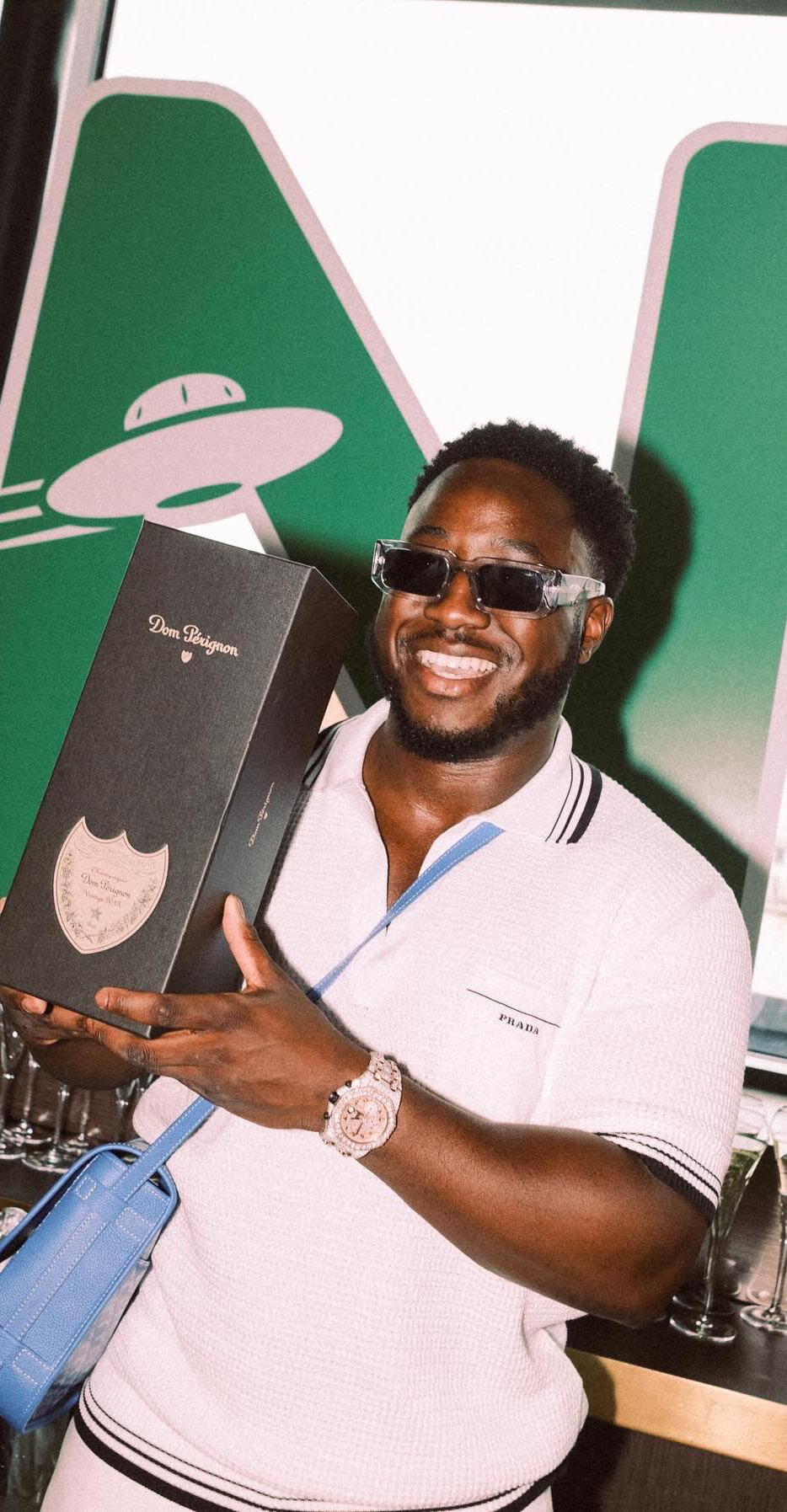
To explore more about Amarí Lewis-Simpson, scan the QR code


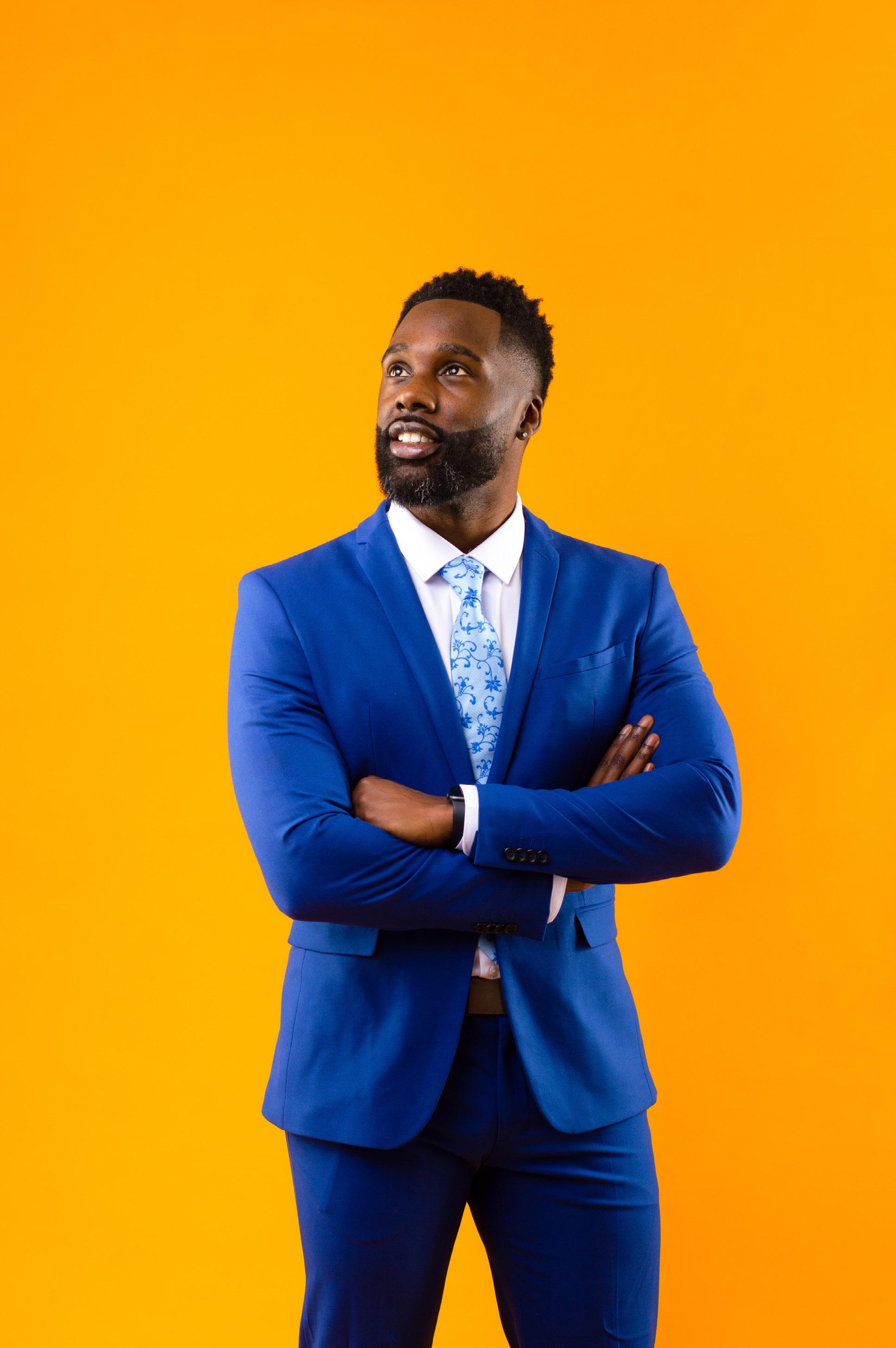


body butter launching 19th February 2024

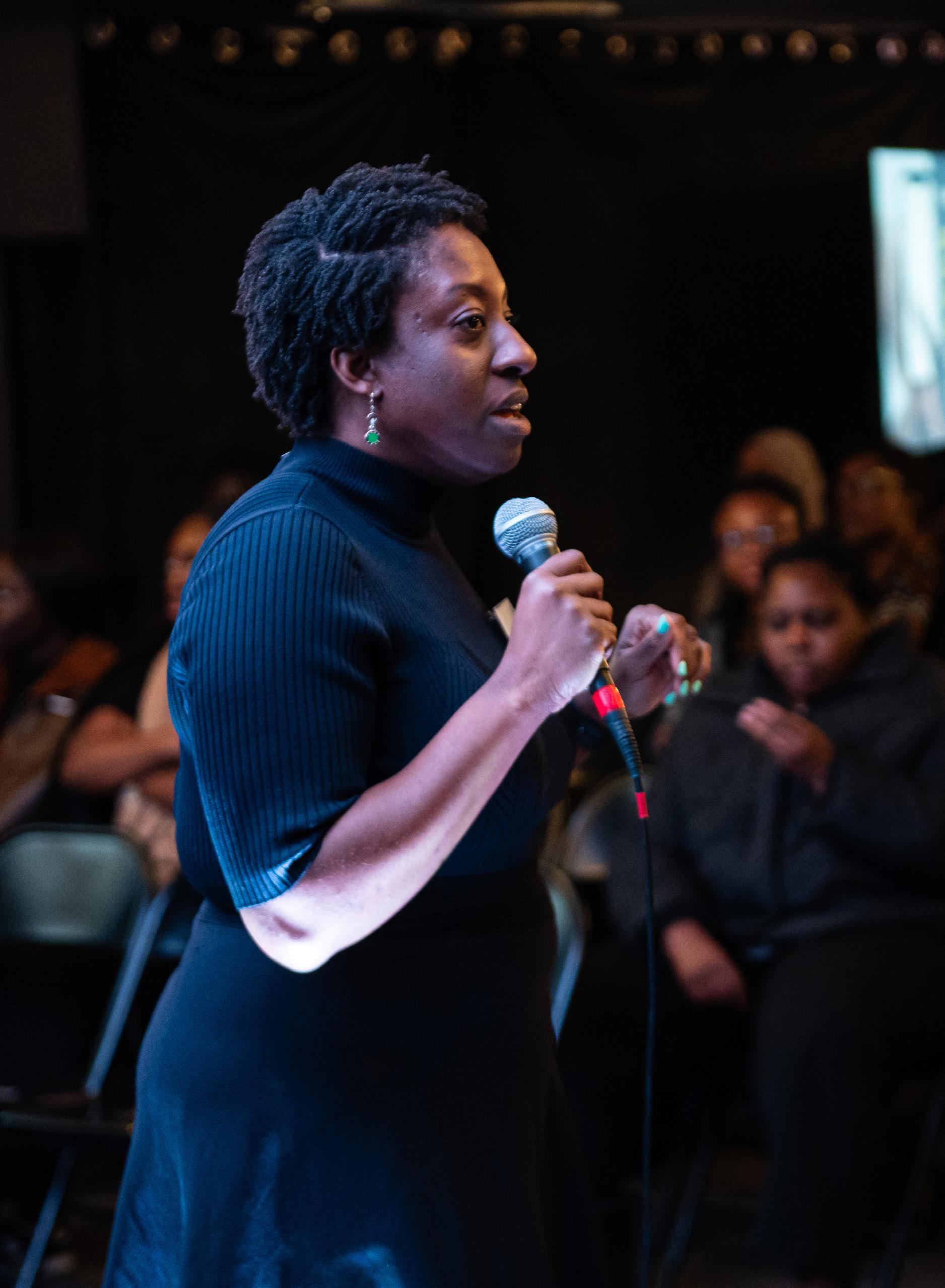
Hunter MBE
Championing Diversity and Empowerment in Tech
Charlene Hunter MBE is the CEO and founder of Coding Black Females, a pioneering organisation dedicated to increasing the representation of Black women in tech. With over 15 years of experience as a software developer and technical architect, Charlene launched the initiative in 2017 to provide mentorship, role models, and career development for Black women in the tech industry. Her work has garnered widespread recognition, including an MBE in 2022. As a respected speaker and advocate for diversity and inclusion, Charlene continues championing systemic change in the tech world.
Charlene, you founded Coding Black Females in 2017 to address the underrepresentation of Black women in tech. What sparked the idea, and how has the mission evolved since then?
I had been working in tech for years and often found myself as the only Black woman in the room, and I knew there had to be others like me who needed that sense of community. In 2017, after being inspired by the movie Hidden Figures, I decided it was time to bring us together to create a space where Black women could connect, share knowledge, and grow in their careers.
Over time, the mission has evolved beyond just creating a community. It’s become about removing the systemic barriers that Black women face in tech. We now run events, coding boot camps, workshops, and mentorship programs, all to increase representation and create tangible pathways into and progress in the industry. It’s about empowerment and ensuring Black women have the skills, network, and confidence to thrive.
With over 15 years of experience as a software developer and technical architect, how have you seen the tech industry change throughout your career, especially regarding diversity and inclusion?
When I first started, there was little talk about diversity in tech. You rarely saw people advocating for inclusion, and if they did, it wasn’t always backed by action. Over the years, though, I’ve seen a shift; more organisations recognise the importance of diversity, but it’s still a long way from being truly inclusive. There’s been progress, particularly with more awareness and initiatives around women and underrepresented groups in tech. Still, we need to move beyond surface-level changes and work on creating inclusive cultures where Black women can excel.
Coding Black Females offers coding boot camps and professional development workshops. What critical skills and knowledge areas are crucial for Black women to thrive in today’s tech landscape?
Technical skills are crucial, but equally important are problem-solving and leadership skills. Tech is about innovation, and to innovate, you need to be able to think critically, adapt quickly, and collaborate effectively. A growth mindset and being open to learning new things and continuously improving is also important. At Coding Black Females, we ensure that alongside the technical, our members gain the confidence and resilience to take up space and excel in the tech world.
Your work has led to collaborations with major corporations and government bodies. How important are these partnerships in creating sustainable pathways into tech for Black women, and how have they impacted your organisation’s growth?
Partnerships have been instrumental. Collaborating with various corporations and government bodies allows us to open doors that might otherwise stay closed. These relationships help us secure funding, offer our members access to opportunities, and give us a platform to amplify our message. It’s not just about resources, though. It’s about creating real change within these organisations, helping them understand the value of diversity and the talent within our community, and encouraging them to be part of the solution. These partnerships have fuelled our growth and allowed us to scale our impact significantly.
As a Black woman in a predominantly male-dominated industry, what unique challenges have you faced, and how has your journey influenced your leadership and advocacy for systemic change in tech?
To explore more about Charlene Hunter MBE, scan the QR code
In the early stages of my career, one challenge I faced was having my suggestions overlooked in meetings. It was frustrating to propose ideas that would later be acknowledged only when repeated by someone else. However, gaining more experience, I became more assertive and ensured my ideas were no longer ignored. I learned to speak up and advocate for myself, ensuring my voice was heard. This experience has deeply influenced my leadership style. I’m committed to creating environments where Black women don’t just have a seat at the table but where their ideas are recognised and valued. It’s also fueled my passion for driving systemic change in tech so no one has to fight hard to be seen and heard.
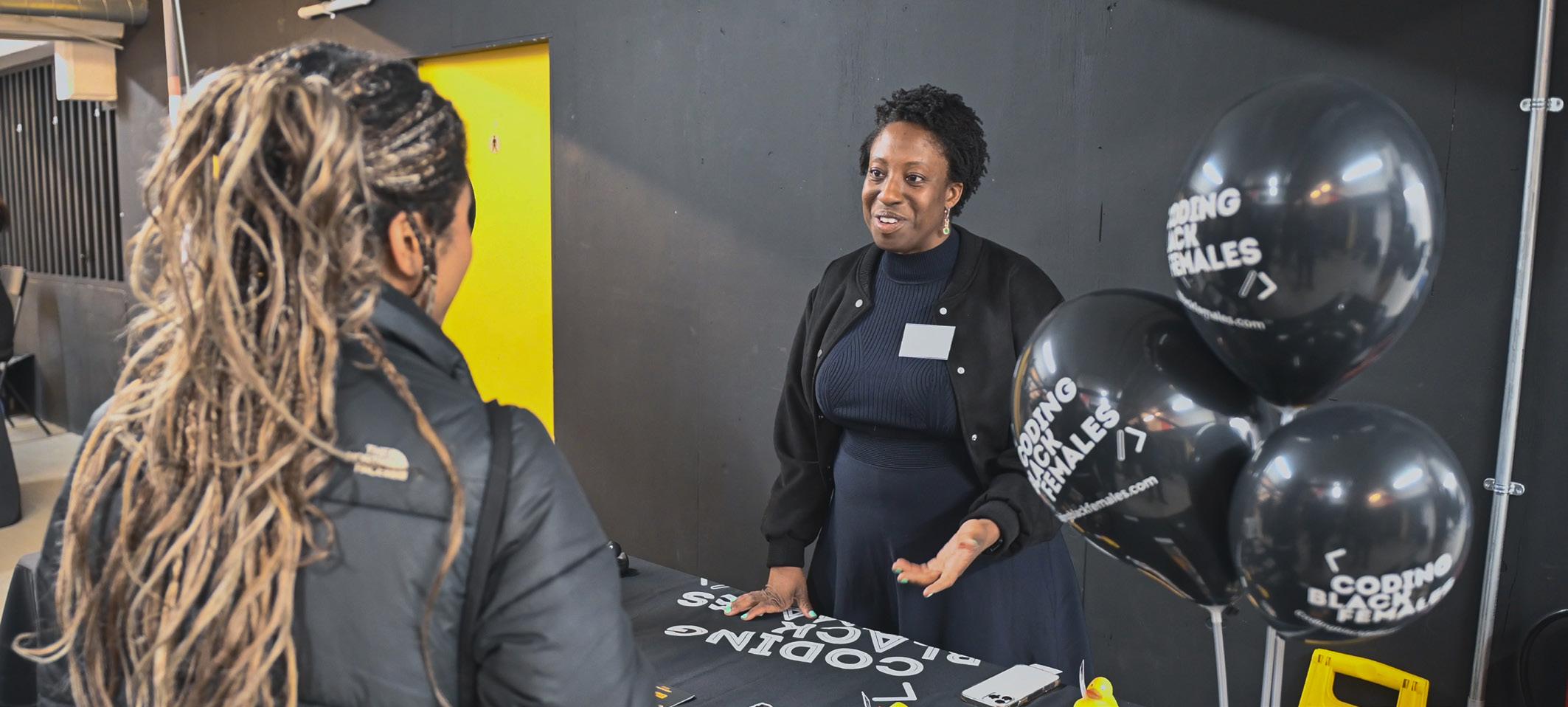
Receiving an MBE for your contributions to diversity in technology is a huge achievement. What did this recognition mean to you, and how has it motivated you to push further for inclusion in the tech industry?
Receiving the MBE was incredibly humbling. It’s a recognition of the work we’ve been doing at Coding Black Females, but it’s also a reminder that there’s so much more to be done. The honour motivates me to keep pushing for change - a responsibility comes with that recognition to ensure we keep moving the needle and that diversity isn’t just a talking point but a real, lived reality in the tech industry.
What is the most significant barrier preventing more Black women from entering and excelling in tech, and how can the industry work together to break down these barriers?
One of the biggest barriers is access, whether it’s access to education, opportunities, or networks. Many Black women don’t see themselves represented in tech, so they don’t even consider it a viable option. The industry needs to work on creating visible role models, making tech education more accessible, and actively creating inclusive environments where Black women can not only enter but excel. It’s not just about recruitment; it’s about retention and creating spaces where we can grow and lead.
What are your goals for Coding Black Females, and how do you envision the future of diversity and inclusion in the tech sector?
I want to see Coding Black Females continue to grow in the UK and internationally, not just in numbers but in impact. I’d love to see more Black women step into leadership roles in tech, and we’re already playing a part in that. My vision for diversity and inclusion in tech is one where it’s no longer a conversation. It’s just the norm. We shouldn’t have to keep advocating for it because it should be embedded in the fabric of every organisation.
What’s the one tech tool you can’t live without?
I used to spend most of my time in VS Code and IntelliJ, but now I use many no-code tools like Zapier to automate my work and be more efficient.
Who is your biggest inspiration in the tech world?
So many people inspire me in tech; Dr Anne Marie-Imafidon MBE, the CEO of Stemettes, is a huge inspiration. She’s paved the way for so many.
What’s the best piece of advice you’ve ever received?
“Be yourself.” It’s simple, but staying true to yourself is the key to personal and professional success.
If you weren’t in tech, what career would you pursue?
I’d be a seamstress. Sewing is a creative outlet I love, and it’s surprisingly technical, much like coding. It’s about taking an idea and turning it into something real through skill and precision.
I love Dope Black Women - it’s empowering and full of honest conversations about life, work, and personal growth as a Black woman. It’s a great mix of inspiration and real talk.
What’s the next big trend in tech that excites you the most?
I’m really excited about AI’s potential and how, if done right, it can drive social impact.


Explore more opportunities for your business. Talk to us about accelerator programs, networking events, finance options and more.
Scan the QR code to find out more
Lending is subject to status.
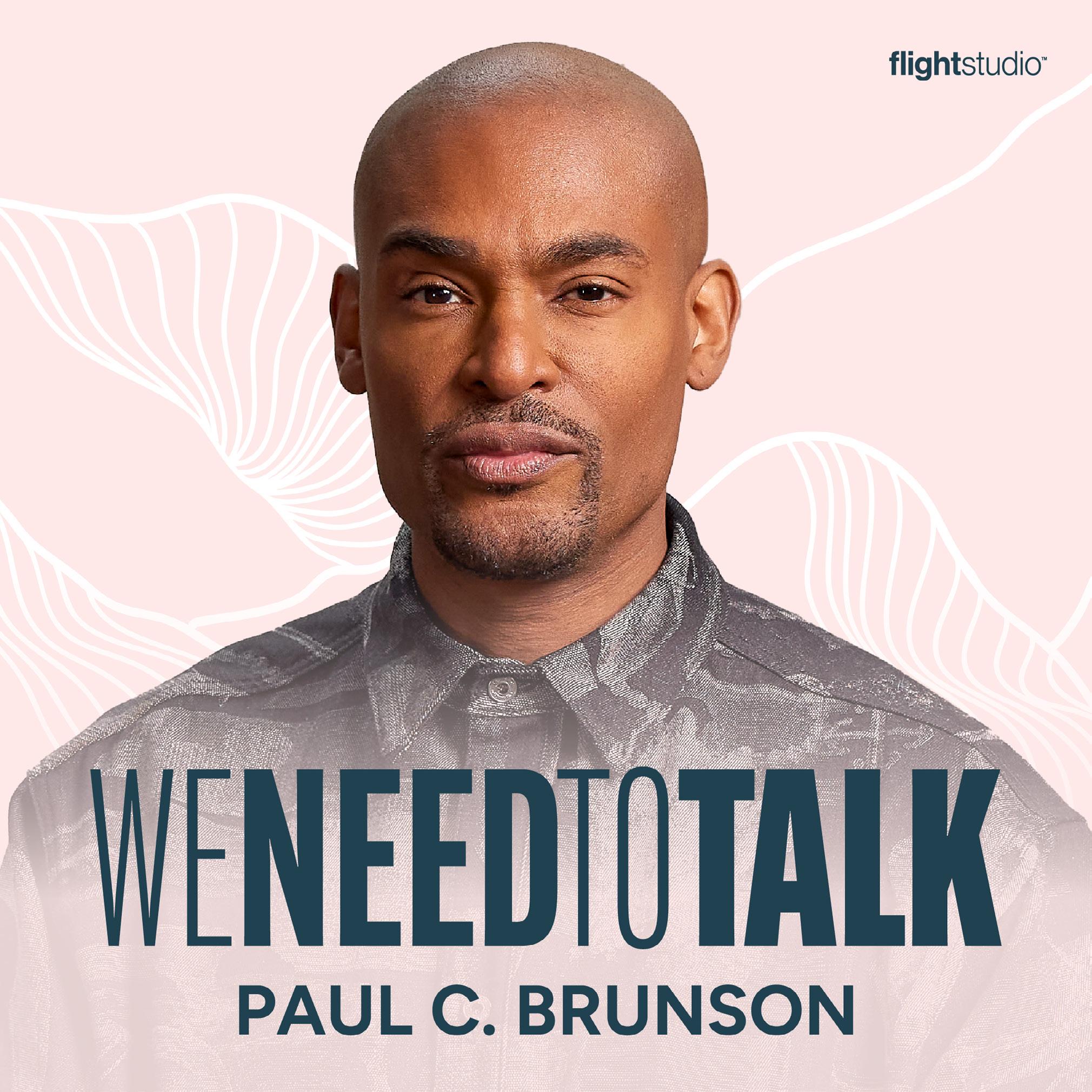
Paul C. Brunson is a global authority on relationships, widely recognised for his roles on Married at First Sight UK and Celebs Go Dating, and as a relationship expert on Lorraine. His career spans from working closely with Oprah Winfrey to the position of Global Insights Director at Tinder, where he shapes the future of online dating. Paul’s mission has always been to foster genuine human connections through his entrepreneurial ventures, such as co-founding Bay Atlantic University or his role in the BAFTA-nominated series Lovetown, USA, where he highlighted how love can transform entire
communities. His passion for creating inclusive spaces has also led him to co-own Sutton United, where he’s working to make football safer and more welcoming for Black fans and families.
Paul’s latest project, We Need To Talk, a show that explores the power of vulnerability in conversations. His belief that vulnerable conversations are key to transformation is at the heart of the podcast, making it more than just a show; it’s a call to embrace openness and growth in our everyday lives.
Your new podcast, We Need To Talk, is launching soon. What inspired you to create this platform, and how does it differ from other relationship podcasts?
We Need To Talk was founded on my solid belief that communication is the foundation of every relationship in our lives. We really do need to talk. I wanted to address the often-overlooked aspects of relationships, and I noticed a gap in the market for a podcast that delved deeper into the complexities of human connection beyond the surface level of dating advice. I aim to foster open conversations about love, intimacy, and personal growth.
What sets We Need To Talk apart from other relationship podcasts is its emphasis on vulnerability, authenticity, and self-discovery. I want to encourage guests and listeners to explore the emotional nuances of relationships, addressing topics such as communication challenges, heartbreak, and personal growth. I want this podcast to go beyond traditional dating advice, focusing on the underlying factors contributing to healthy and fulfilling partnerships.
With the podcast focusing on love, sex, dating, and fulfilment, what key topics or trends do you feel are most pressing in today’s relationship landscape?
The impact of technology is a key issue for all generations. While there are so many positives around dating apps and how they open our possibilities for dating outside of what we would have considered our “closed community,” there is no doubt that the vast number of options they offer users can be overwhelming. Users report fatigue, even burnout and, sadly, a decreased connection.
Social media comparison: Comparing one’s own relationships to idealised portrayals on social media can create unrealistic expectations and dissatisfaction. Likewise, privacy concerns and sharing personal information online can pose risks to safety and privacy.
Changing expectations and values: As individuals delay marriage and children, the shift in societal norms regarding marriage and family can lead to relationship challenges and uncertainties.
Changing views on sex: We are now more open and have more accepting attitudes towards sex, which can create both opportunities and challenges in relationships.
Communication challenges: the lack of faceto-face interaction and the reliance on digital communication can hinder the development of deep
connections and understanding.
Fear of vulnerability: Many people struggle to express their true feelings and needs, leading to misunderstandings and conflicts. Ghosting and breadcrumbing are also problems in the dating world. The rise of these behaviours can create emotional turmoil and uncertainty in relationships. This can lead to relationship anxiety, insecurity, and a fear of commitment.
Concerns about rejection, abandonment, and infidelity can negatively impact relationship satisfaction. Past experiences of betrayal or heartbreak can make it difficult to trust new partners, which is why I emphasise the importance of open communication, vulnerability, and authenticity in building healthy and fulfilling relationships. Setting boundaries, prioritising self-care, and being mindful of your needs and desires is key.
You’ve worked with some of the world's biggest organisations, including Microsoft, Google, and JP Morgan. How did these opportunities come about, and what have been some of the most rewarding aspects of these collaborations?
A lot of these opportunities came about through referrals. I have intentionally documented all my speaking engagements since the age of 15, which means people found it easier to refer me because I was constantly posting! So, visibility is something I have learned to be critical for my bookings.
A young Black girl had been told she couldn’t sit on the board of brands like Wagamama, so it’s been rewarding to return to my former secondary school or speak with young women who come from lowincome backgrounds and are shattering their glass ceilings.
How has your experience on shows like Celebs Go Dating and Married at First Sight UK shaped your perspective on modern relationships, and how do those insights influence the content of your podcast?
All of my work, through television, personal clients, and my role as Global Relationship Science Expert at Tinder, has given me unprecedented access to witness firsthand the challenges that couples face in the dating and early stages of marriage. I have seen the importance of communication, compromise, and emotional connection in building a healthy relationship and what happens if those foundations are not in place.
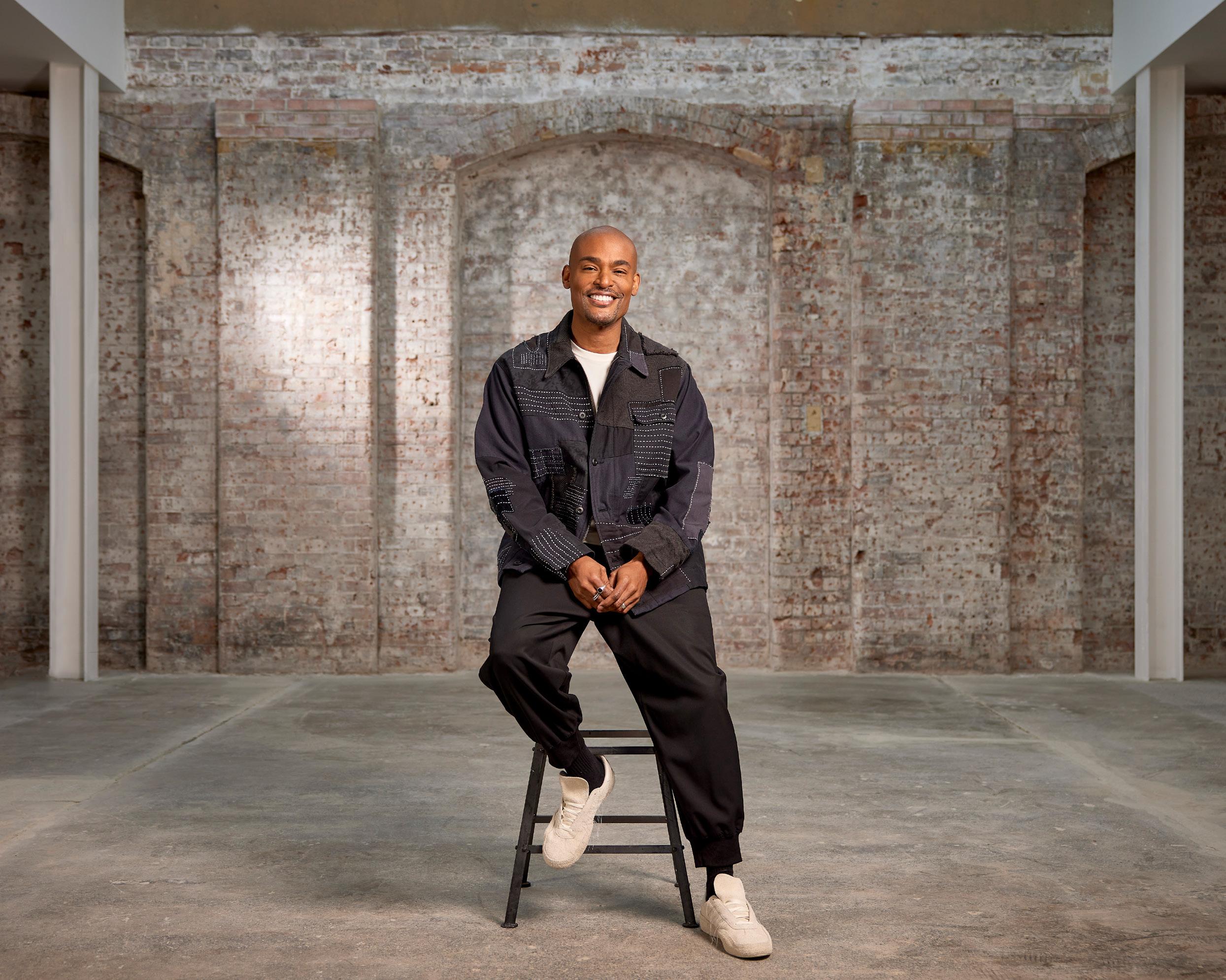
My experiences have influenced and informed my podcast, We Need To Talk, in several ways. Most importantly, the more I see and hear, the more determined I am to help people navigate relationship challenges. I want the podcast to address many relationship-related topics, such as communication, intimacy, conflict resolution, and self-love, to help people build happier, healthier, and more fulfilling lives.
You’re known for blending relationship science with data-driven insights. How do you see the role of technology and data evolving in dating and matchmaking?
Technology, generally, especially with dating apps and social media, provides tools for efficiency. Their algorithms can streamline the process of finding potential matches, saving time and effort for both individuals and matchmakers. They provide invaluable sources of insights from data collected from user interactions and preferences and can provide valuable insights into dating trends, behaviours, and compatibility factors.
Technology can enable more personalised matchmaking experiences by tailoring recommendations based on individual preferences and compatibility metrics. However, I would always say it’s about balance and encourage caution against over-reliance on technology. Human connection and chemistry are still crucial elements in successful relationships, and technology should be used as a tool to enhance, not replace, these factors.
You’ve had an impressive career journey, from co-founding Bay Atlantic University to becoming a globally recognised relationship expert. What key moments or decisions helped shape your path to success?
I feel very blessed and am so grateful for the experiences in my life and the opportunity to continue my work. I think the variety of my professional. Starting as an investment banker in a very corporate, moneyoriented environment with individuals so focused and driven to explore relationships and their impact on us and our decisions gives me a diverse outlook and perspective. experiences has helped.
Working with individuals from all walks of life has given me a deep understanding of the intricacies of human relationships.
I have been very blessed with the support and endorsements I have received from some very influential and powerful individuals, of course, Oprah Winfrey being one of them. But most importantly, I am blessed with the support of my wife and family. Through all the big decisions, quitting my job in investment banking, starting my own matchmaking business, and, of course, the move to the UK, Jill, my wife, and our two boys, Liam and Kingston, have always backed and supported me and having their confidence in me, has provided me with the confidence to push myself into new spaces and territories, literally and metaphorically.
Your podcast aims to explore the relationship we have with ourselves. Why do you believe self-fulfilment is the foundation for all other personal and professional relationships?
Self-fulfilment is a crucial component of healthy relationships, both personal and professional. But interdependence can also be a beautiful thing. While self-fulfilment is important, it’s not a solitary pursuit. Relationships are built on interdependence, where individuals work together to meet each other’s needs and support each other’s growth. Shared values and goals are another key foundation. Relationships thrive when individuals share common values and goals because it provides a strong foundation for mutual respect and understanding. And, of course, open communication. Effective communication is vital for building and maintaining healthy relationships. Open and honest communication allows individuals to express their needs, desires, and concerns, fostering trust and understanding.
Congratulations on becoming the co-owner of Sutton United FC, a fifth-tier football club. What drew you to invest in football, and how does your newfound passion for the sport compare to your work in relationship science and matchmaking?
I am so proud to be a co-owner of Sutton United. I was not a football fan six months ago, but when I was encouraged to attend a football match and experience the game, I just fell in love. I sat next to a stranger, and we bonded through the highs and lows of the game. When we scored, we hugged in a way I can’t explain. But I knew then the potential for community and becoming part of something. From that moment, I was hooked and wanted to be part of it in a big way.
What’s the best relationship advice you’ve ever received?
Communication is key. We really do need to talk!
If you could invite one guest, dead or alive, onto your podcast, who would it be?
It would have to be not one but two - Michelle and Barack Obama – to unpack their relationship!
What’s the biggest misconception about modern dating?
That physical attraction is the most important deciding factor in taking a relationship from a first to a second date. Gen Z are the first generation to prioritise authenticity and the ability to be your true authentic self with someone over physical attraction, and I think we could all learn a lot from that!
In one word, how would you describe your matchmaking style?
Personal. Everyone is different, and everyone has different needs and wants in a relationship. It’s about identifying what someone wants to really understand how they can achieve fulfilment for themselves and within a relationship.
Morning person or night owl?
Definitely a morning person. I typically wake up at 4.45 am and I am most productive in the mornings!
What would be your dream date night?
I think the same as my wife Jill, and it would be doing a new activity together that involves learning something new together, namely about culture. So it could be a line dance from the black sea of Turkey, or it could be, and we were just talking about this last night, a barista class but not a typical barista, more like Ethiopian coffee making to learn more about that. Or a lecture on Rastafarianism. Anything that involves being together, learning together and experiencing something new together.
To explore more about Paul C. Brunson, scan the QR code
Alex Cave, Head of Data Science at Lloyds, delves into the power of AI and the potential it has to help small businesses prosper.
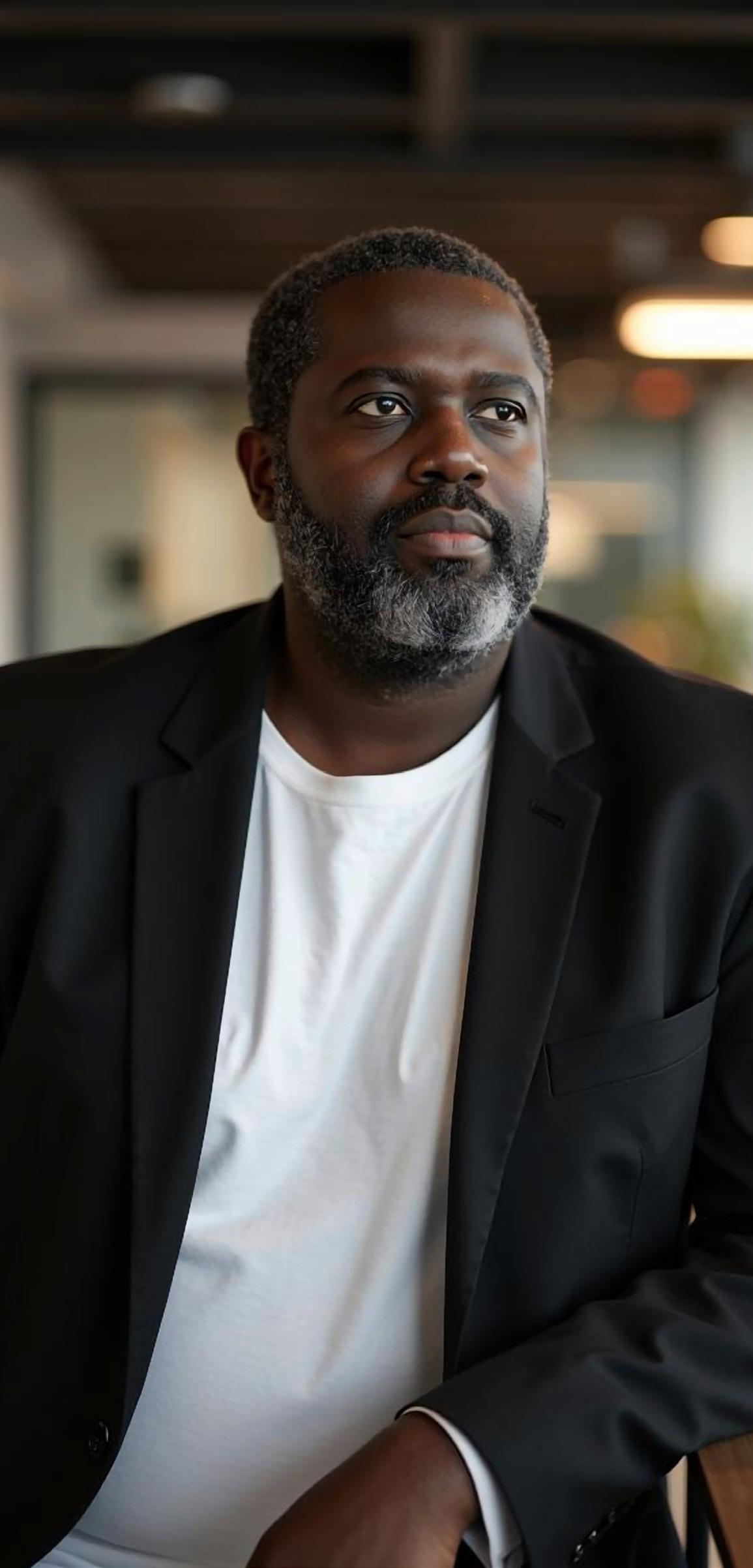
Alex is Head of Applied Sciences & Analytics at Lloyds. His team is responsible for the machine learning and Artificial Intelligence that drives personalisation as well as research in frontier sciences such as Generative AI and Quantum computing.
Here Alex explains some of the potential benefits and applications of AI technology for small businesses.
AI explained
Artificial Intelligence (AI) typically refers to software that performs automated tasks that we would usually do ourselves, such as understanding language, recognising images, making decisions and solving issues. AI automatically processes data using information and generates results, in return freeing up time for people to focus on the more complex responsibilities such as sales, service and business strategy.
Alex believes the one question we should ask ourselves is how often do we all use AI in our day to day lives? Many of us possibly don’t even realise that we are using it – for example, you begin composing a text message on your mobile phone and you start to see some predictive text words appear, or you log into your account to place an online grocery order, however instead of having to search for all of your frequently purchased items, they are automatically saved there for you on a ‘favourites’ or ‘frequently purchased’ list. Both of these examples use AI.
Sponsored Feature
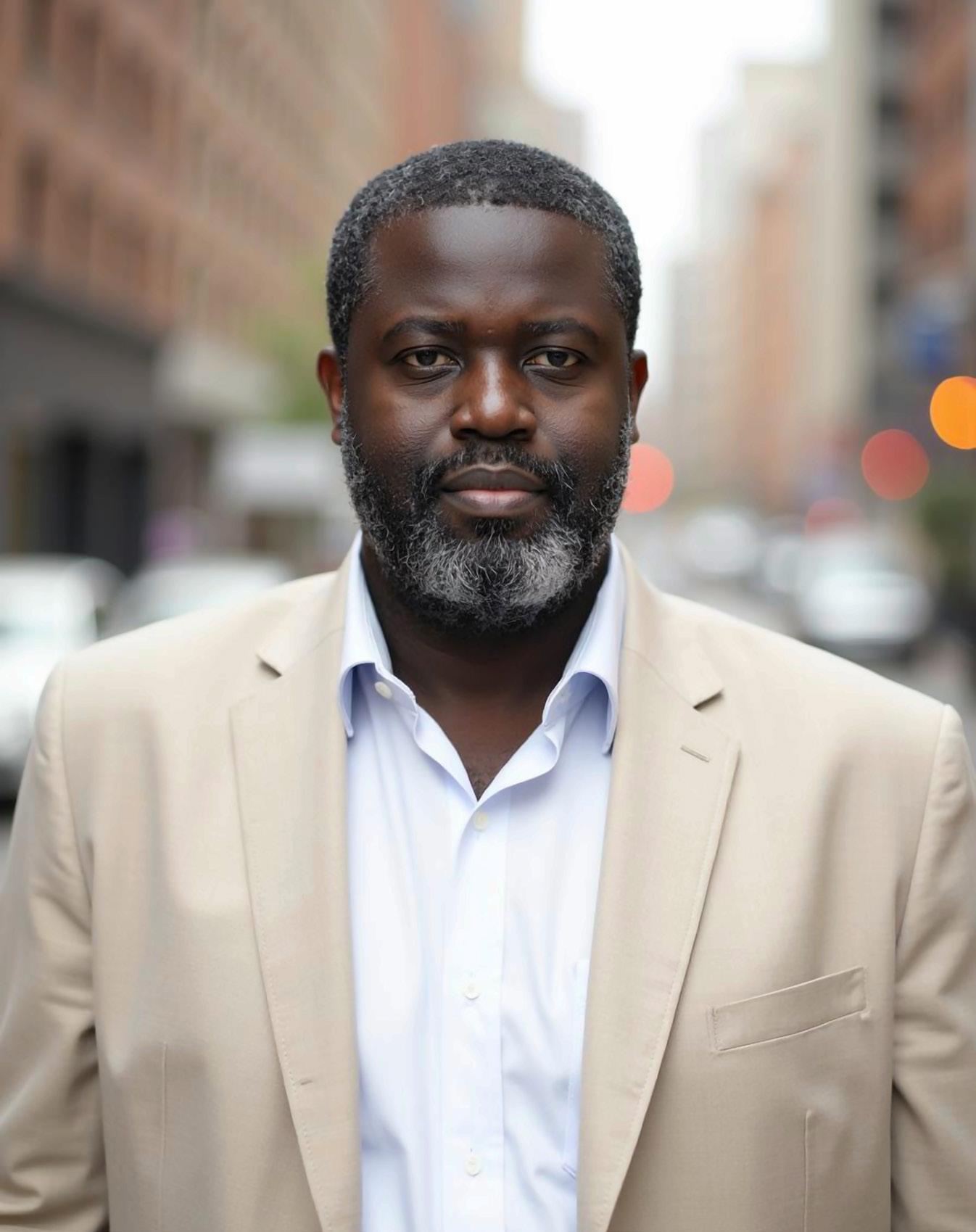
Everyone is talking about Al and asking should we embrace it? If you’re a small business owner, you should be asking, can you afford not to?
AI helps small businesses by automating routine and administrative tasks –think of it like a Digital PA that does jobs quickly and accurately. For example, a small bakery owner used to spend a lot of time manually writing down orders, counting inventory and scheduling deliveries, but with AI’s automation a smart computer program will automatically handle these tasks, freeing up the baker to focus on creating and trialling new recipes.
Another way AI can help small businesses is by analysing data and providing valuable insights. AI can quickly process substantial amounts of data and identify patterns that a human being might miss. For instance, a small retail store owner wants to ensure that they have enough products in store to meet customer demand, but equally they do not want to have too much surplus stock. Using AI, they can track customer purchases and adjust their business inventory ensuring they always have the right amount of stock to hand.
Many modern accountancy packages are now supported by AI, including Business Finance Assistant from Lloyds.. AI is used in this instance to reconcile transactions, helping to match expenses and income received to invoices. It is also used for cash flow forecasting based on categorisation and algorithms. Almost half of the UK population have an account with Lloyds, and the organisation has over 60,000 employees. Alex believes that leveraging knowledge of the intersection of business and technology to drive superior outcomes for customers and colleagues, and more importantly being able to tangibly observe the impact, is truly rewarding.
It is important to remember that, as with many business processes, using such technology comes with risks and challenges. For larger SMEs, questions and concerns may arise around the impact on the workforce, bias, data privacy, ethics, inaccurate results and legal implications.
The best way to mitigate such risks is to have a clear, transparent strategy in place for the use of AI within the organisation. Consulting your workforce and having open and honest conversations on the use of AI will help to alleviate any fears or concerns. Part of this is highlighting how it allows you to consider more information to make the best judgements.
When adopting AI, the implementation phase can be cumbersome, particularly for small businesses. Many small business owners are time poor as they navigate precarious trading conditions. However there are opportunities to take advantage of the benefits that larger companies are experiencing by working with third-party software companies who are specialised in AI relating to a specific part of your business. For example, transcribing your calls with a tool such as Otter, or automated diary management tools such as Motion or Akiflow.
AI is a vital tool to help all business owners grow and succeed in today’s competitive marketplace.
Alex shares his three tips to start making Al work for you:
1. Be reflective. Taking a step back in your business is critical. What area do you find most challenging to run? Start with the parts that you find most time consuming, or can potentially deliver the biggest benefit.
2. Be curious. Have a continual learning mindset. Take the most challenging areas of your business and research ways to automate those tasks. Find out which businesses can help. The British Business Bank is a great place to start, as they have produced guides on how to help with different areas of your business.
3. Start small. Taking the first step can be daunting, but by testing on a small part of your business, you can monitor the change closely, and if it doesn’t work as intended, the consequences of failure are low. But as you can see, the possibilities are amazing.
It is easier than ever before to incorporate AI into your business, as there are plenty of start-ups and other companies that provide dedicated services specifically for individual tasks that may be beneficial for most businesses to use. Particularly within the realms of customer service, Freshworks and Kustomer are examples that can help. The Lloyds Bank Academy has a short online video that will help you to understand the benefits of AI as well as hearing from two small businesses on how they are using AI.
Alex continues to have an impact as a respected and knowledgeable tech leader both internally at Lloyds and externally amongst clients and his broader networks. Stating that first and foremost he is driven to make an impact, support digital transformation and create opportunities for all, he also cites collaboration as one of his key drivers of success. He recently launched the first homegrown Generative AI powered solution in the bank to colleagues, a project which was incubated by Lloyds’ Applied Sciences Research team.
“It was a true collaboration between those that have knowledge of the technology with
those that will be using
it, to ensure that it would deliver a material benefit. I was particularly proud because we have been able to help colleagues with wide ranging abilities to obtain the right information for their role, in their time of need.”
Alex was also recently nominated as a Diversity Champion in the 2024 Black Tech Awards which recognise those who are actively helping improve and increase the level of diversity within the tech industry. On the topic of representation, Alex is keen to embrace positive change and to hire and nurture talent wherever he can find it.
It’s clear to see both through his work at Lloyds, his work from a diversity and talent perspective, as well as applying his knowledge to support small businesses in embracing AI, Alex is making a difference to many aspiring entrepreneurs and future tech leaders.
Sponsored Feature
To find out more about Lloyds support for Black-owned businesses, scan the QR code
Lloyds and Lloyds Bank are trading names of Lloyds Bank plc.
Black In Business is an initiative dedicated to elevating and growing Black-owned businesses across the UK through the power of TV advertising. In collaboration with Channel 4 and Lloyds Bank, we are searching for four stand-out Black-owned businesses ready to scale.
Selected businesses will receive:
£150,000 worth of TV advertising on Channel 4
The creation of your own TV commercial
Six months of tailored marketing and business mentorship to accelerate your growth
Entry deadline: Monday 28th October 4pm

Having taught himself to build websites and apps in his early years, Gori Yahaya was aware of the fact many people can feel really intimidated by tech. He wanted to help people reduce their fears and build their confidence around tech and this became the catalyst for launching his third start-up. Partnering with large tech firms such as Google and others, whilst training businesses up and down the UK, he saw the wider benefits of the increased confidence and career progression that learning new, in-demand skills, such as data and AI, can bring.
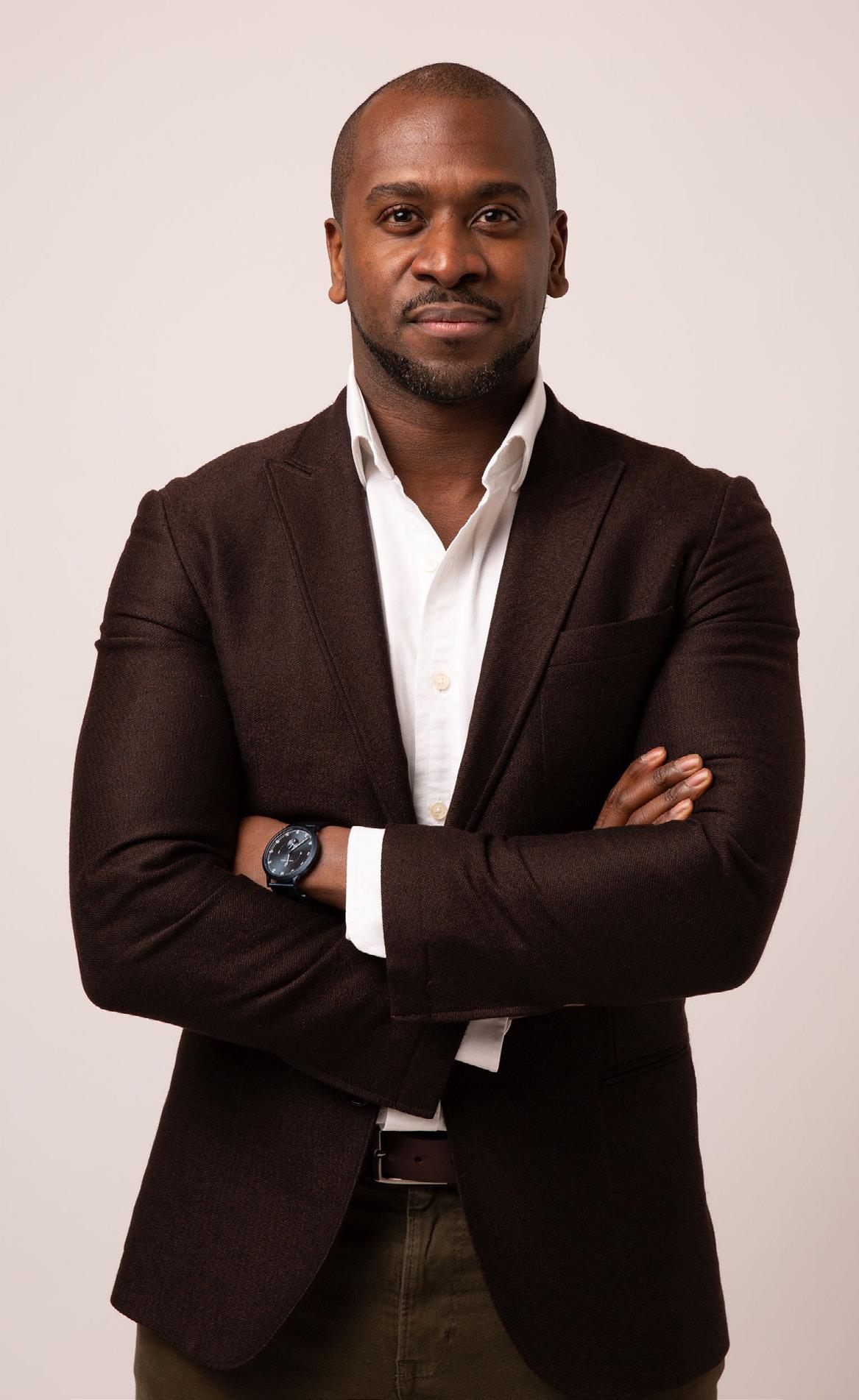
Gori is the founder and CEO of UpSkill Universe, which counts Google, the NHS and BT amongst its clients. In the past nine years, he’s expanded his bootstrapped tech start-up into a team of 20-plus in six different countries, providing live training to over 700,000 people.
One of Upskill Universe’s main goals is to deliver courses that align business success with societal progress. Diversity and inclusion are a huge part of that focus, with Gori quoting a statistic from 2016 as a major motivation for him - Black employees in the UK with degrees earn 23.1% less on average than their white counterparts.
UpSkill Universe is Gori’s third tech start-up and he’s tackled plenty of barriers along the way. The first of these was facing his fear of finances head-on. This resulted in him taking evening classes to learn more about the basics of cash flow and accounting.
The second significant hurdle was having to go out and find his own mentors and role models in other sectors because there was a real lack of people he could relate to from similar backgrounds in the tech space.
And when trying to grow his previous business, it quickly became apparent to Gori there are more barriers
for Black business owners when it comes to raising investment than for white founders, hence he focussed on bootstrapping his business. Unfortunately, he’s not alone in finding it difficult to access funding. Between 2009 and 2019, Black founders, who represent 3.5% of the UK’s population, represented just 0.24% of the total sum invested by venture capitalists.
After finally finding a good accountant who helped him to upskill, he also ran into recruitment difficulties. Gori confesses that he got the ‘hire slow, fire fast’ approach the wrong way around initially. He improved his people management skills by gathering honest feedback from employees and ex-employees.
“I was always hiring fast and firing super slow. I didn’t have the people management skills to move people out of the business when it was clear they weren’t the right fit,” he admits.
The business has developed its Learning Experience Platform (LXP) not just to train people in new technologies. It’s about a tailored approach to boosting the more human and technical skills needed in the workplace, overcoming resistance to change and levelling up to boost your value or inspire people to start their own businesses.
Gori passionately believes the current education system doesn’t leave people with the necessary skills to thrive in the modern workplace. His purpose is to create a happier, healthier and wealthier life for everyone, especially those from minority ethnic backgrounds globally.
He has many innovative ideas on how to achieve this through encouraging greater diversity in the tech sector, including:
• Elevating pioneer stories and sharing their pathways to success
• Educating hiring managers whilst challenging incestuous recruitment policies where employers are all fishing in the same talent pools
• Equipping leaders and people managers with the conversational frameworks to have better career conversations with diverse team members and build pathways to leadership
“If as much was invested in diversity and inclusion as has been invested in innovation, the tech sector landscape would look very different right now,” Gori states.
Here’s a brief look at just two of the many courses and programmes within his platform, aimed at addressing the common barriers people face.
This course trains people on improving their communication skills so they can thrive and amplify other voices at the same time. It’s about becoming more confident in elevating others while they climb and not being afraid to have conversations around sensitive topics.
This training provides hands-on, role-specific training helping you to avoid code-switching in a corporate setting, build your confidence through a supportive network, and harness your authenticity as a powerful tool for personal and professional success.
UpSkill Universe is leading by example when it comes to representation. With many of its trainers coming from minority ethnic backgrounds and delivering community-based training and bootcamps, the business is investing in society to put more skilled individuals into tech careers or self-employment.
While more of this type of training is being done now than 10 years ago, there’s still a long way to go. Gori and his team have already achieved so much, and are ambitious for the future. Their future goals include:
• To hit the milestone of 1 million people trained in the next two years
• To become an even larger borderless business by doing more work globally with a focus on the US and Asia
• To reduce the barrier to entry for tech careers so the next generation of AI leaders, pioneers and game-changers can thrive
Despite being immersed in the tech sector, Gori hasn’t lost sight of the importance of face-to-face relationships. UpSkill Universe has been a Lloyds Bank business customer since its foundation, which has delivered many benefits.
For example, the Black Entrepreneurs Programme is proving hugely beneficial. Gori has learnt from his peers in roundtables on common growth challenges, international trading and launching new products.
“We’re part of the seven-figure-plus group hosted by Lloyds Bank. These meetings have been super insightful for me, hearing from other Black businesses that are at the level we’re at and facing similar issues has been beneficial in shaping our growth strategy,” he says.
On the flip side, UpSkill Universe partners with Lloyds Bank to deliver the Lloyds Bank Academy Start Up, Scale Up Programme, which guides businesses through a free course to build a roadmap for growth.
While Gori’s already achieved an incredible amount in less than 10 years, not least getting a mention from Beyonce’s charity team during a concert and being invited to speak at 10 Downing Street on how to help black communities invest in skills, there’s so much more to come.
As the worldwide expansion of UpSkill Universe gathers pace, make sure to watch this space.
Search the following terms online to discover more about the support and training available:
• Lloyds Black business hub
• Start Up, Scale Up
• UpSkill Universe
Sponsored Feature
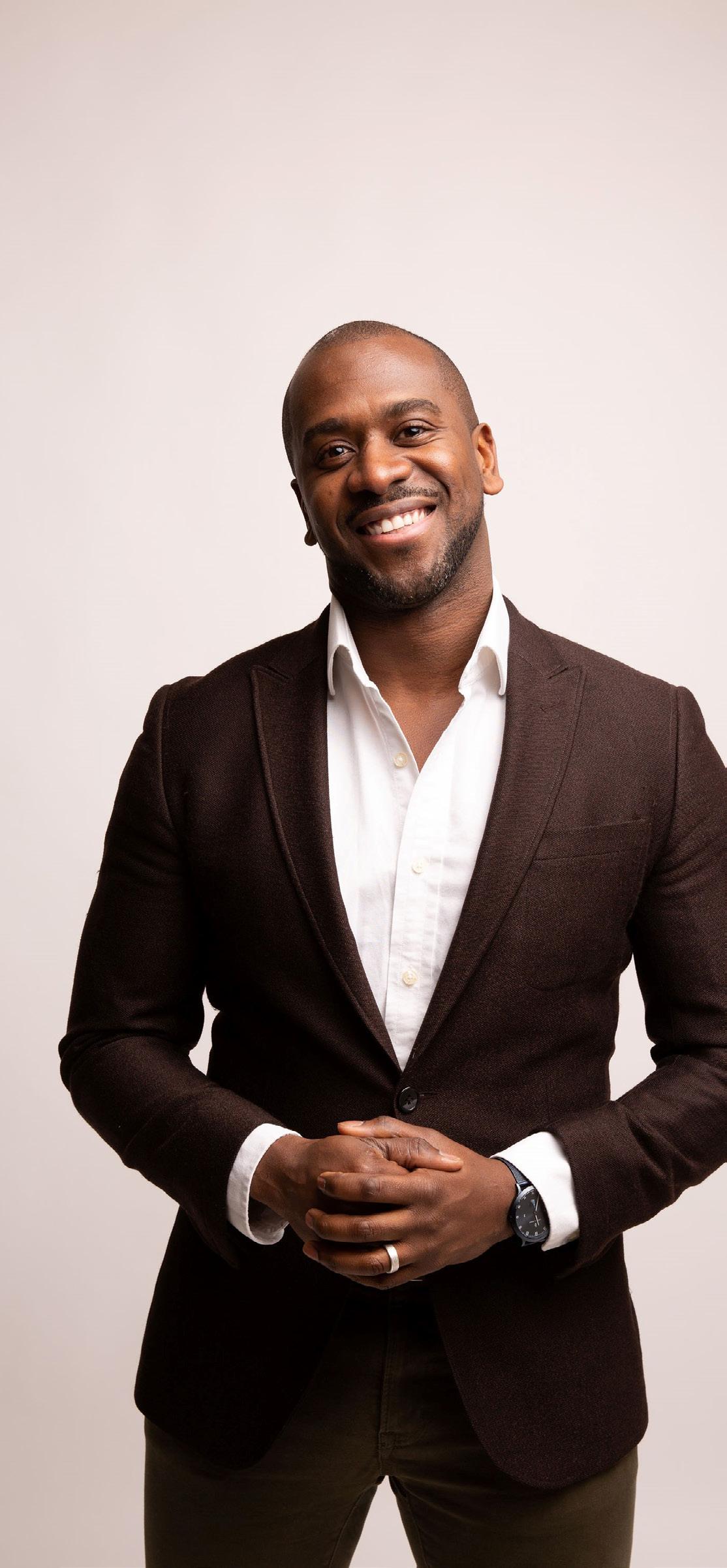
To find out more about Lloyds support for Black-owned businesses, scan the QR code


TO CELEBRATE THIS NEW PARTNERSHIP, WE'RE OFFERING ALL OUR READERS AND COMMUNITY A 90% DISCOUNT ON THE QUICKBOOKS PLATFORM.
Through this strategic partnership, our customers will now have access to a suite of powerful QuickBooks tools to streamline their accounting, invoicing, and expense tracking, saving you time in running your business e iciently.
Dr Raphael Sofoluke is a serial entrepreneur and visionary behind several transformative initiatives, including the UK Black Business Show, UK Black Business Week, and the Black Tech Achievement Awards in the UK and US. Since founding the UK Black Business Show in 2017, Raphael has become a leading advocate for Black entrepreneurship, garnering recognition from major publications and receiving
an honorary doctorate in 2023. His impactful work extends internationally with the launch of the Black Tech Achievement Awards in Times Square, and he continues to inspire with his forthcoming book, Together We Thrive. Raphael’s dedication to fostering Black business excellence remains a driving force in his mission to amplify Black voices and create meaningful opportunities.
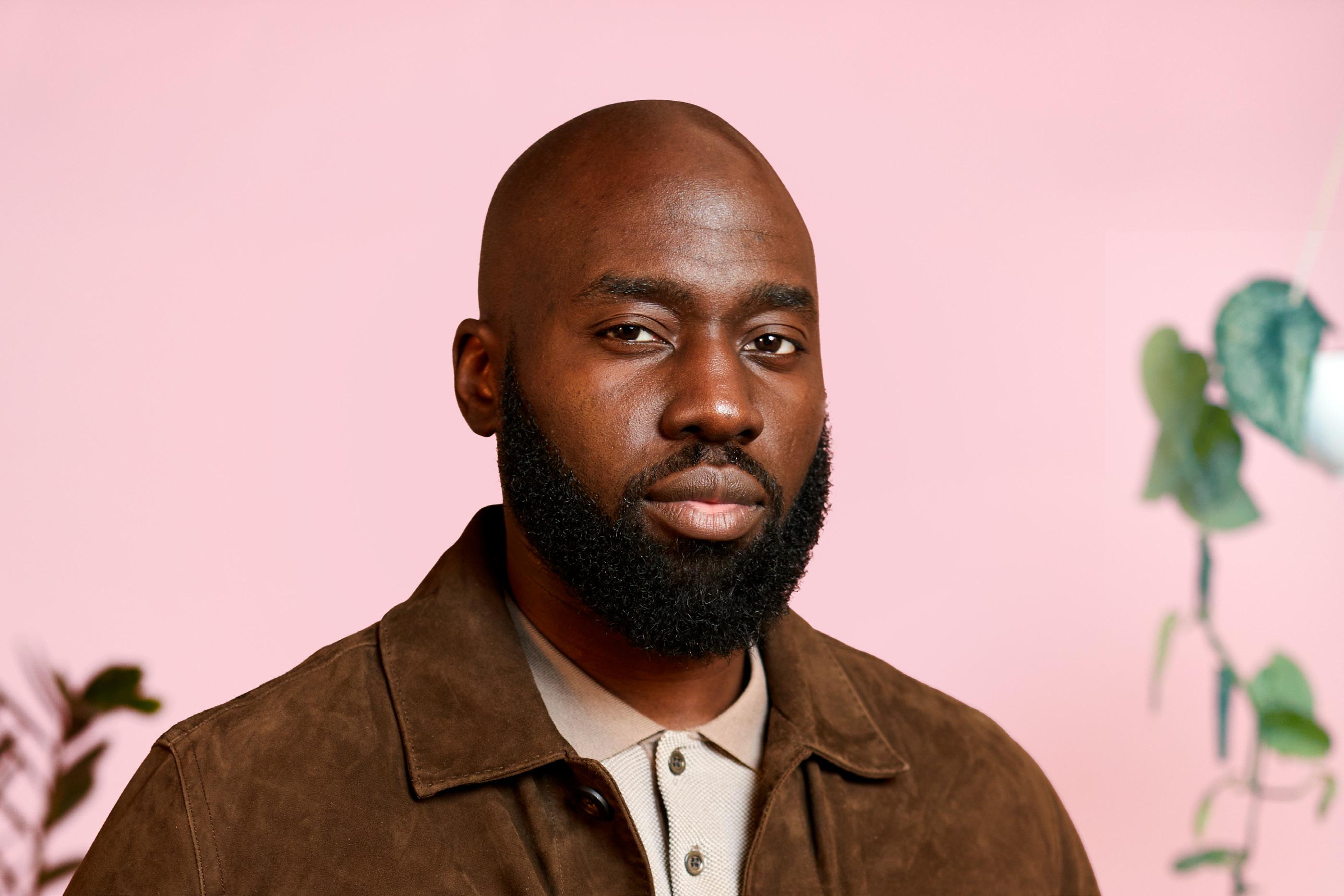
Raphael, you founded the UK Black Business Show in 2017, and it has since grown into one of the largest events of its kind in Europe. What inspired you to create this platform, and how has the event evolved?
UK Black Business Show was born out of a desire to create a space where Black professionals and entrepreneurs could connect to network, learn, and be inspired. I recognised a lack of representation and opportunities for Black individuals in the business community. I wanted to build a platform highlighting Black excellence and providing tangible support for those looking to advance their careers or businesses.
Since its inception in 2017, the show has grown tremendously. We’ve gone from a single-day event to a whole week of activities under the UK Black Business Week umbrella. This growth reflects the hunger for such platforms within our community and the increasing willingness of the wider society to engage in these crucial conversations.
The UK Black Business Week now attracts thousands of attendees, including notable sponsors and speakers. What do you believe has been the key to its growing success, and what impact do you hope it continues to have on Black entrepreneurs and professionals?
The success of UK Black Business Week can be attributed to a few key factors: community engagement, a focus on quality content, and strategic partnerships. We’ve been fortunate to work with notable sponsors and bring in speakers who resonate with our audience and provide valuable insights. The event’s impact lies in its ability to inspire, educate, and connect Black entrepreneurs and professionals. I hope it continues to catalyse economic empowerment within the Black community, creating an environment where Black entrepreneurs and professionals can thrive and contribute to the broader economy.
You’ve launched multiple initiatives, including the Black Tech Achievement Awards and Soar. What are some unique challenges Black entrepreneurs face in the tech sector, and how do these initiatives help address those barriers?
Black entrepreneurs in the tech sector often face
barriers such as limited access to funding, a lack of representation, and insufficient networks to support their growth. Initiatives like the Black Tech Achievement Awards aim to address these challenges by celebrating and showcasing Black talent in tech. By shining a light on the achievements of Black tech professionals, we help challenge stereotypes and create role models for the next generation. Additionally, programmes like Soar are designed to provide mentorship, resources, and networking opportunities, equipping Black entrepreneurs with the tools they need to overcome these obstacles.
Your book Twice as Hard was a major success, and now you have a new book, Together We Thrive, coming out soon. Can you share what readers can expect from this new book and why community-building is your critical focus?
Together We Thrive focuses on the power of community and collective effort in driving change. While Twice as Hard highlighted the resilience required to navigate spaces where we are often underrepresented, this new book emphasises the importance of building supportive networks.
Readers can expect a blend of personal anecdotes, insights from successful professionals, and practical advice on leveraging the community for personal and professional growth. It’s a call to action to lift each other up and create an ecosystem where we all can thrive.
As someone recognised on platforms like Forbes and named among the most influential people of African descent globally, how do you use your platform to amplify Black voices in the UK and internationally?
Being recognised on platforms like Forbes and being named among the most influential people of African descent is both an honour and a responsibility. I use my platform to advocate for more inclusive spaces within industries where Black voices are often underrepresented. Whether through events, initiatives, or my writing, I aim to highlight the contributions of Black professionals and entrepreneurs, start conversations around diversity and inclusion, and push for systemic changes that will allow for a more equitable future.
The Black Business Show has gained recognition from notable figures like Mayor Sadiq Khan and MP David Lammy. How important is it to have political and public sector support for initiatives like yours, and how do these endorsements impact your work?
Political and public sector support is crucial in amplifying the reach and impact of initiatives like UK Black Business Show. Endorsements from figures like Mayor Sadiq Khan and MP David Lammy not only validates the importance of our work but also helps draw attention to the systemic issues we aim to address. Their support can lead to policy changes and increased funding opportunities, making driving meaningful change easier. It’s a collective effort; these endorsements enable us to create a wider impact.
What advice do you have for aspiring Black entrepreneurs and professionals looking to break into industries where they may be underrepresented, especially in tech and finance?
I would advise seeking networks and mentors who can provide guidance and support. Breaking into underrepresented industries can be challenging, but surrounding yourself with a strong support system can make a significant difference. Also, don’t hesitate to take up space and advocate for yourself. Your voice and contributions are valuable. Lastly, continuous learning and adaptability are key, especially in fast-evolving sectors like tech and finance.
What are your long-term visions for the UK Black Business Show, Black Tech Achievement Awards, and other initiatives you’ve founded?
My long-term vision is to see these platforms evolve into global movements that continue to support and celebrate Black excellence. I envision the UK Black Business Show expanding to other regions, collaborating more internationally, and serving as a blueprint for similar initiatives worldwide. For the Black Tech Achievement Awards, I hope to see them become the go-to platform for recognising and uplifting Black talent in tech on a global scale. Ultimately, the goal is to drive sustainable change and create ecosystems where Black businesses and professionals can survive and thrive.
To explore more about Dr Raphael Sofoluke, scan the QR code
Quick Fire Questions
What’s your top piece of advice for entrepreneurs?
The journey will have its ups and downs, but perseverance and adaptability are key.
Which Black business leader or role model do you admire the most?
My peers are my biggest role models, and I’m constantly inspired by the work my community is doing.
What’s a technology or trend you’re excited to see grow in the next few years?
Definitely AI and how we can use it to create more inclusive solutions across industries.
Favourite speaker or session from one of your past UK Black Business Shows?
Too tough, but Sir Trevor Mcdonald, Akala, Trevor Nelson and Steven Bartlett have been very memorable experiences.
What’s a must-read book for any entrepreneur?
My new book, Together We Thrive.
One lesson you’ve learned from your entrepreneurial journey?
Don’t take anything personally, and don’t be scared to be audacious.
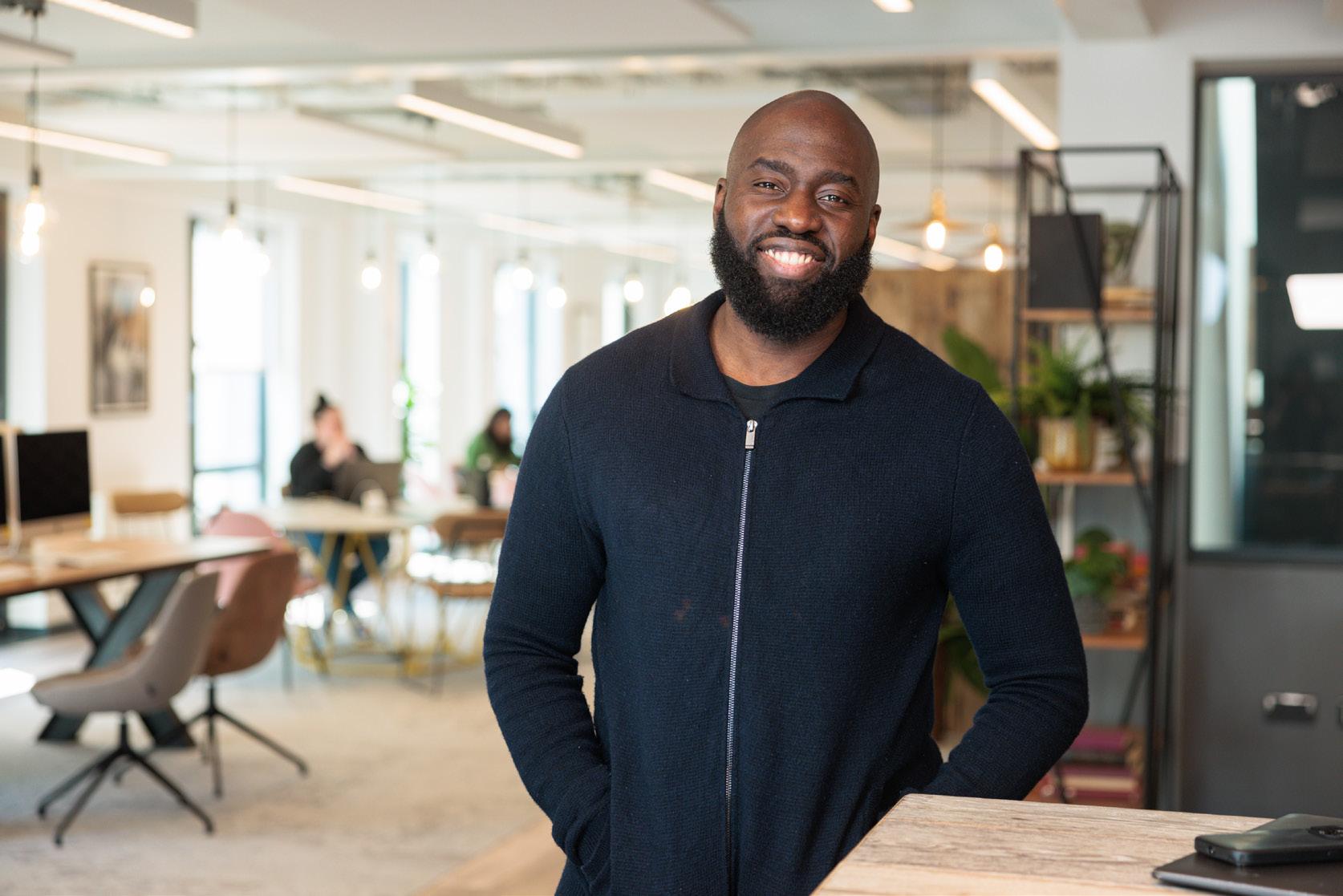
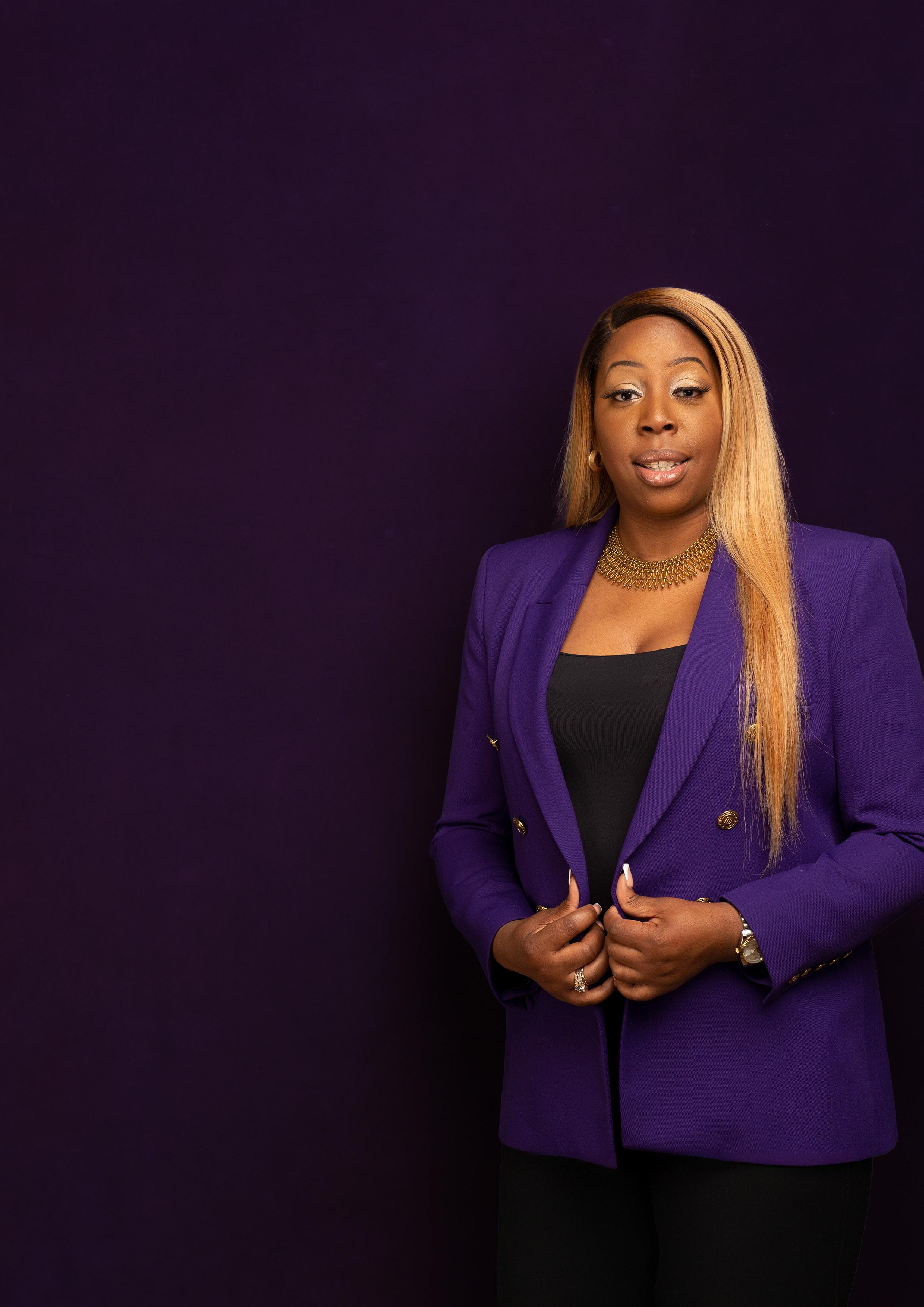

The Diverse Business Summit 2024 will bring you all this and more. The theme: Advancing Ahead will leave you with a concrete plan on how to build a business that lasts and show you how to build relationships with corporates. This event will be a gamechanger!
Tobi Demuren on Shaping the Future of B2B Marketing and Advocacy
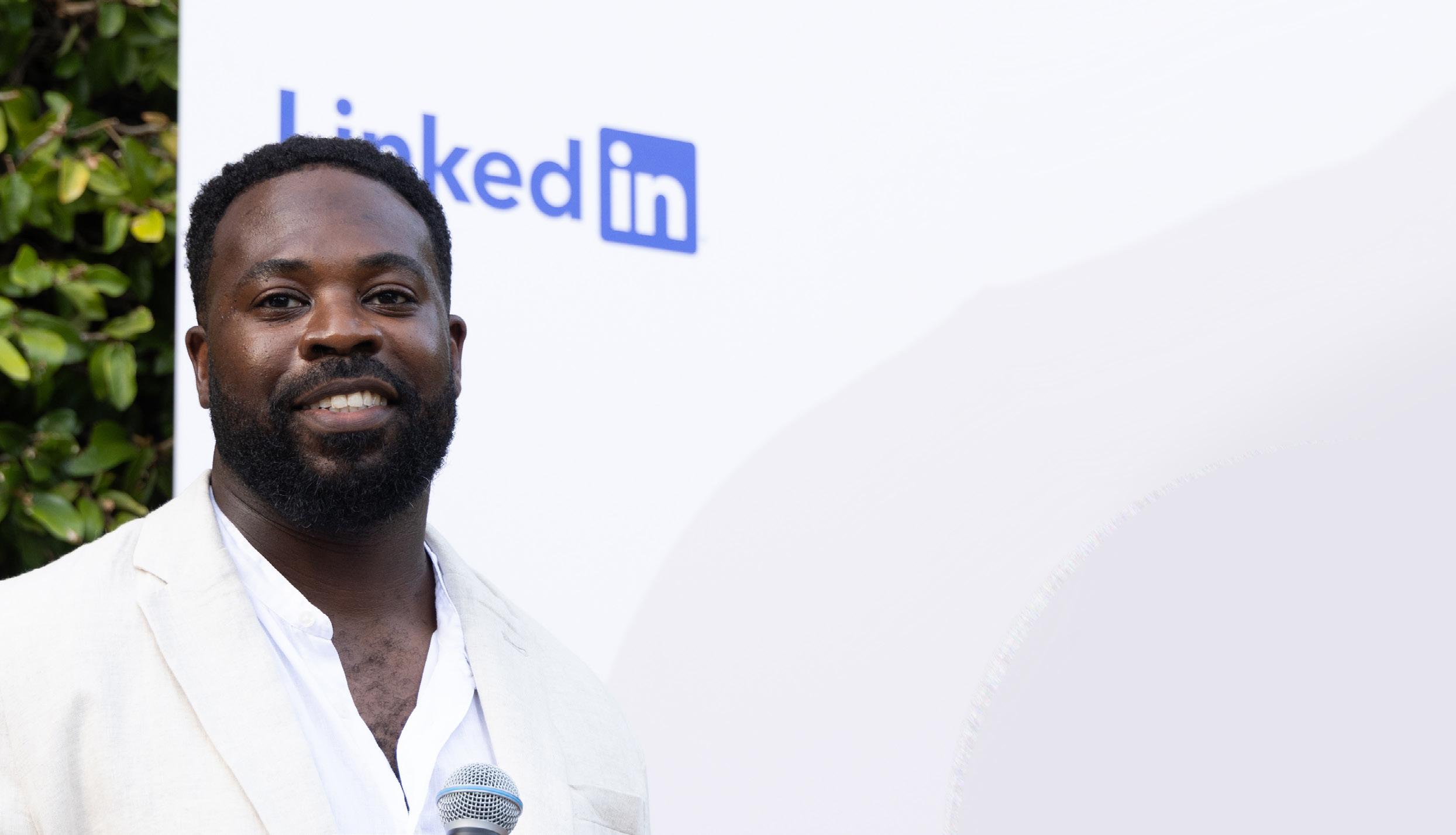
Tobi Demuren is a dynamic leader at the intersection of technology and advertising. As the Global Head of Advocacy Marketing for LinkedIn’s advertising business, Tobi is shaping the future of B2B marketing by forging meaningful connections between agencies, brands, and audiences. With a wealth of experience from previous roles at IBM and leading creative agencies, Tobi’s influence in the industry has been widely recognised, including being a finalist at the Black British Business Awards and being featured in publications like The Telegraph and Campaign. Beyond his professional accomplishments, Tobi is a passionate advocate for diversity and inclusion, playing a key role in LinkedIn’s partnership with the 10,000 Black Interns initiative.
Can you describe your journey in the technology and advertising sectors leading up to your current role at LinkedIn? What key experiences have shaped your career?
My journey has been shaped significantly by my time working at creative agencies. These experiences were foundational in my understanding of creativity, innovation, and marketing. At a creative agency, you’re exposed to a broad range of clients, and your unique value lies in your ability to generate and sell innovative ideas. It’s about consistently pushing boundaries in thinking, design, and capability. This mindset has carried through into my roles at IBM and now at LinkedIn, where I continue to focus on innovation and creative problem-solving.
As the head of global advocacy marketing for LinkedIn’s advertising business, what are your main objectives, and how do you plan to shape the future of B2B marketing?
My primary focus is on the agency side of LinkedIn’s advertising business, particularly in helping marketers navigate the complexities of B2B marketing. One key area we’re working on is how marketers reach and influence buying groups, which we believe will be a major focus for the industry. Simplifying the process and demonstrating ROI is crucial. Another trend we’re seeing is the rise of B2B influencers—this will play a huge role in shaping the future of B2B marketing, along with improving measurement techniques to better track and prove value.
What unique challenges do you face in your current position, and how do you approach them?
One of the biggest challenges I face is ensuring LinkedIn stays top of mind in an increasingly noisy market. With so many brands and messages competing for attention, positioning LinkedIn effectively to maximise opportunities is essential. It’s about making sure we show up in the right spaces and that our message resonates with the right audiences at the right time.
You’ve worked with various creative agencies. How do you think your experiences there have influenced your approach to marketing at LinkedIn?
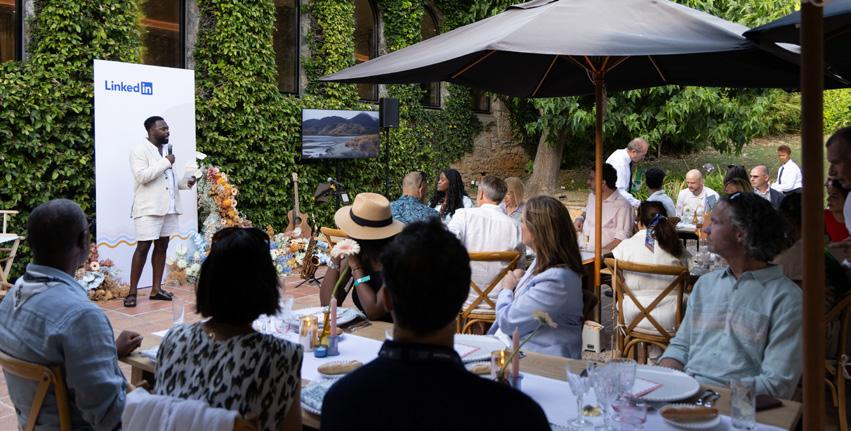
My time at creative agencies has deeply influenced my approach to marketing, particularly in terms of problem-solving. As a marketer, your greatest asset is your ability to generate ideas. The more you push the boundaries of what’s possible, the more memorable and impactful your campaigns and events become. We’re in the business of creating memories, and I’ve always strived to deliver experiences that are as creative and memorable as possible.
What innovations in marketing do you believe are most impactful today, and how is LinkedIn leveraging these trends?
AI is undeniably shaping the future of marketing. Whether it’s agentic AI or generative AI, incorporating these technologies into the creative and operational processes will be key. Personalisation driven by AI is already having a huge impact, especially from a product perspective. At LinkedIn, we’ve integrated AI into features like post creation, where the AI assists users in drafting their posts. We’re committed to making AI a core part of our proposition moving forward.
Being a finalist for the Black British Business Awards and featured in The Guardian Nigeria’s PR Power List are significant achievements. How do these accolades motivate you in your career?
These accolades are validation that we’re moving in the right direction. However, I don’t see them as individual achievements. They represent the collective efforts of the team around me, and I’m incredibly grateful for the support system I have. It’s a reminder to keep doing what we’re doing, with a focus on collective success rather than individual accolades.
Can you share more about LinkedIn’s partnership with 10,000 Black Interns? What impact do you hope this initiative will have on the industry?
Working with 10,000 Black Interns has been a privilege. The partnership is deeply aligned with LinkedIn’s mission of creating economic opportunity for the global workforce. A key phrase we use is “talent is everywhere, but opportunity is not.” This initiative is about making opportunities more equitable, broadening the scope of talent we celebrate and include in the industry. The goal is to create pathways for underrepresented talent and ensure the industry becomes more inclusive and diverse.
Representation is key. It’s crucial that people see themselves reflected at every level, from entry-level positions all the way to senior leadership. When individuals from diverse backgrounds see others like them in positions of power, it sends the message that they too can achieve those heights. This applies to the work we do, the people we hire, and how we recognise talent within the industry—whether through awards, leadership, or even the juries that judge creative work. Diversity drives innovation, and for the industry to stay relevant, we must continue to prioritise inclusive representation.
My advice would be to find an environment where you can truly flourish. Be mindful of the culture of the companies, agencies, or brands you’re considering— make sure it’s a place that supports your growth and learning. Additionally, invest in building your personal brand on LinkedIn. The platform offers powerful opportunities for exposure and professional development. Use it to showcase who you are, what you stand for, and the skills you bring to the table.
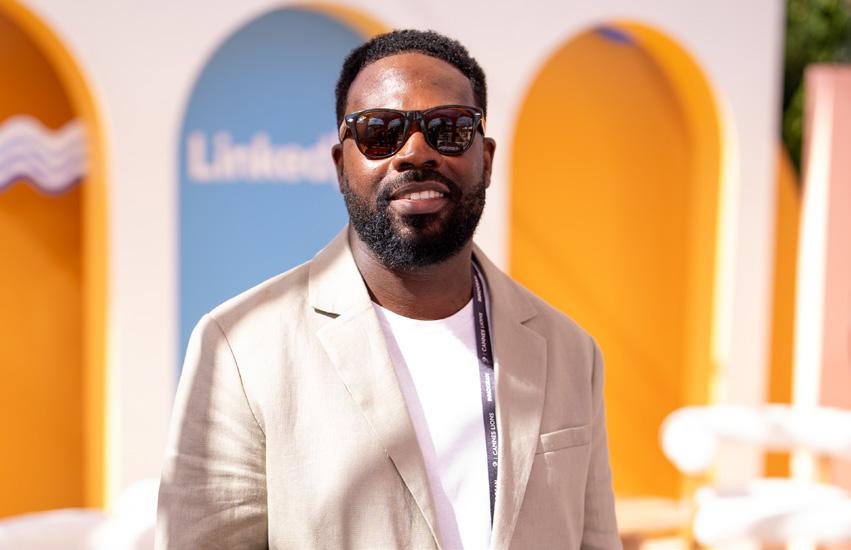
Scan the QR Code to learn more about Tobi Demuren
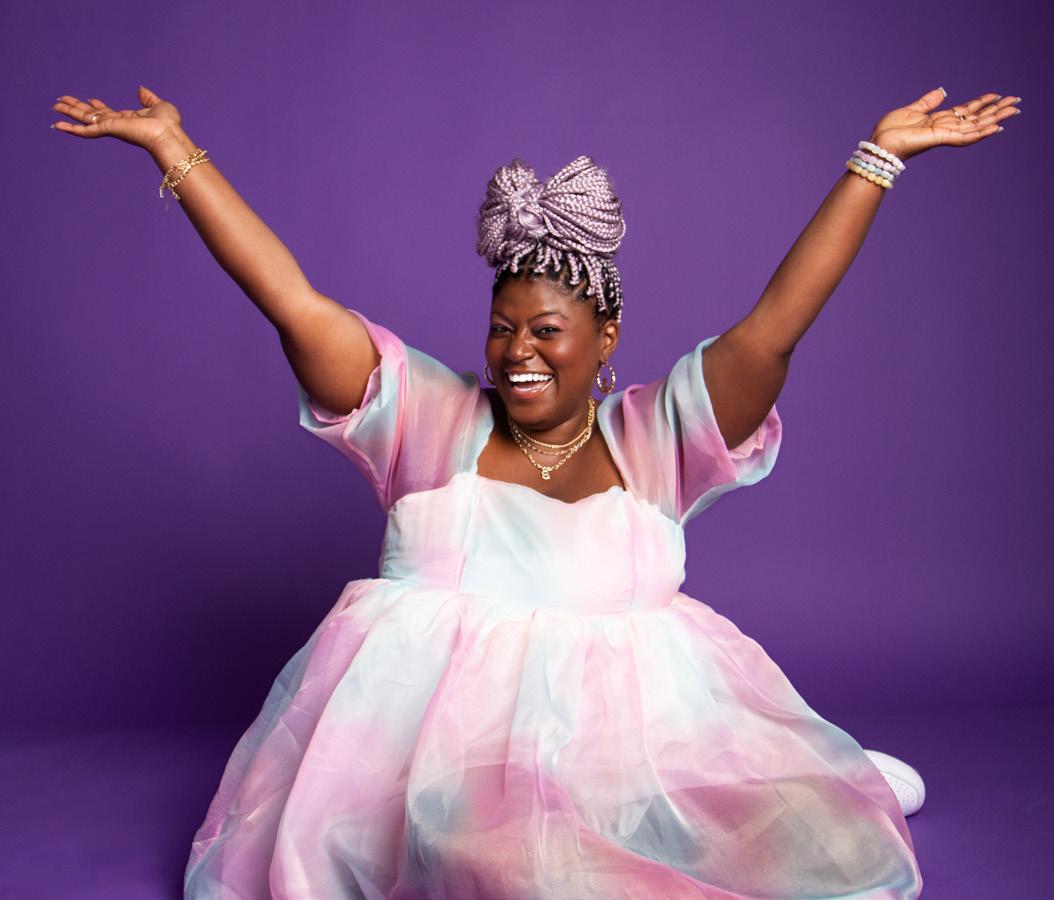
Founderland and R/GA have established a powerful partnership over recent years that has helped foster diversity and inclusion in technology. Founderland, cofounded by Deborah Choi, is Europe’s fastest-growing community for women of colour founders, providing them access to resources, networks, and funding opportunities. R/GA is a creative innovation agency, and its Global Director of Sustainability and Impact, Bayyina Black, has long championed purpose-driven initiatives that align with social impact and sustainability.
The collaboration between Founderland and R/GA is a natural fit, with both organisations dedicated to closing equity gaps for underrepresented communities. R/GA’s Make/Good for Businesses programme, spearheaded by Bayyina Black, offers pro and low bono creative and strategic services to underrepresented businesses, mirroring Founderland’s mission of supporting women of colour entrepreneurs. By working together, Founderland and R/GA combine their business,
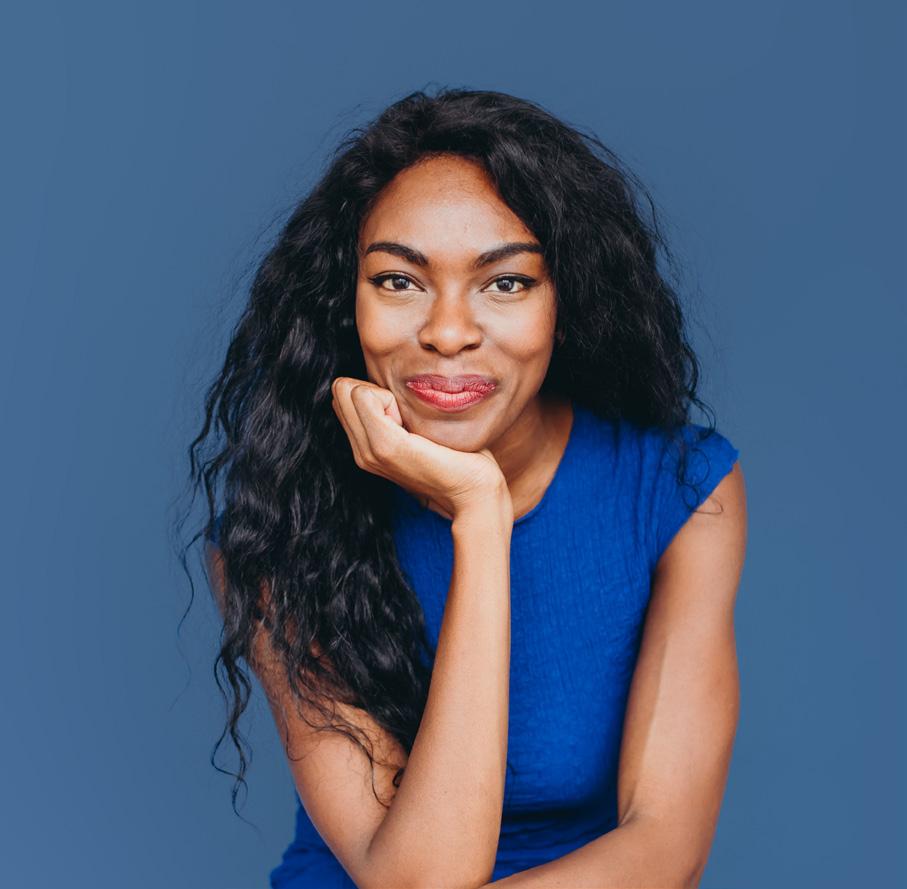
creativity, and tech expertise to empower founders from diverse backgrounds, equipping them with the tools and visibility they need to scale their ventures.
Through projects such as the recently launched PAM (Pitch AI Mentor), an AI-powered tool designed to help female founders of colour refine their investor pitches, and other innovative programs, the partnership continues to drive meaningful change, expanding opportunities and creating lasting impact in the entrepreneurial ecosystem. This collaboration highlights the power of cross-sector partnerships in promoting social mobility and fostering an inclusive future for underrepresented founders.
We had the opportunity to speak to Deborah and Bayyina about their entrepreneurial journeys and how the partnership is helping to elevate overlooked founders.

Deborah, you’ve built six companies and collectively raised over €2M in funding. What inspired your entrepreneurial journey, and how do you decide which industries to explore next?
So far, my entrepreneurial journey has been inspired by the desire to create meaningful solutions to problems I’ve experienced firsthand, such as exclusion in the business ecosystem. I choose industries based on where I see significant gaps, typically at the intersection of technology and culture. I always identify where my skills and experience can drive the most impact.
Founderland is Europe’s fastestgrowing community for women of colour and underrepresented founders. What gap did you see in the startup ecosystem, and how has Founderland helped close it?
The gap I saw was the severe underrepresentation of women of colour entrepreneurs across the board regarding funding, who was being covered in business media, and who you might see at a local startup-focused event. Founderland addresses this by building a community with tailored support, funding opportunities, and visibility. We’ve helped hundreds of founders access resources they would typically be excluded from.
R/GA and Founderland are leaders in nurturing underrepresented talent and driving social impact. Can you share any insights or key takeaways from the collaboration between these two organisations and how their partnership is helping to elevate
overlooked founders in the tech and creative industries?
The R/GA and Founderland partnership has modelled how our partner relations should be and raised the bar regarding communication and output. We’ve provided underrepresented founders with critical support, from strategic mentorship to developing our AI-powered pitch mentor, PAM. We’ve empowered founders to overcome biases in fundraising, giving them a better chance to succeed in the competitive tech and creative sectors.
You’ve advised fast-growth startups across multiple continents. From your experience, what are the key factors that drive a startup’s success in such diverse markets?
I don’t think we admit enough just how big a role luck plays. That said, luck without adaptability, strong partnerships, and a solid understanding of the local market doesn’t work either. Each market is unique, so having the flexibility to pivot and adjust the business model is crucial for scaling successfully across continents.
Your work in building communities like Founderland, Bom Diaspora, and Black Creative Nights is remarkable. What do you see as the long-term impact of these initiatives on the entrepreneurial ecosystem?
These initiatives and my professional purpose lay elevating diverse voices and creating opportunities for Black and Brown communities to collaborate meaningfully. The long-term vision of my initiatives is twofold.
First, they foster a new generation of entrepreneurs, investors and leaders with the resources and networks to succeed and approach their work with a strong sense of purpose and community. Second, my work is rooted in systemic change. By carving out dedicated spaces, I’m cultivating ecosystems that actively reshape what inclusion looks like in practice, fostering collaborations that reach far beyond the room or Zoom.
Ultimately, I hope these initiatives will serve as sustainable models for other communities, proving that when diverse perspectives are centred, our ecosystems become more equitable and far more dynamic and resilient.

What unique challenges have you faced as a Black woman in the tech and finance industries, and how have these experiences informed your approach to leadership?
Challenges include consistent underestimation and bias, which have forced me to build resilience, boundaries and assertiveness early in my career. These experiences have shaped my leadership style to be direct, inclusive, and mission-driven, always prioritising tangible outcomes over optics.
You’re frequently recognised for your leadership and community impact. What does it mean to you to be named Woman of the Year by BGA, and how do you plan to continue advancing your mission?
Being named Woman of the Year is a validation of our work to close gaps in access for underrepresented founders. Moving forward, I’m focused on scaling Founderland’s impact, increasing access to funding for diverse founders, and leveraging this platform to drive systemic change in Europe’s startup ecosystem.
What’s one tech innovation you’re most excited about right now?
AI-driven tools for underrepresented founders, particularly our AI pitch mentor, PAM, which simulates VC meetings and helps founders navigate bias.
What is your favourite tool for productivity?
Loom – it’s perfect for quick, clear communication without endless meetings or long emails.
One piece of advice you would give to your younger self?
I would tell her that her career will have many chapters, but the first is for building character. Focus on seeking roles that challenge you and offer a steep learning curve.
A book or podcast you’d recommend to aspiring entrepreneurs?
Find Boundaries, Find Peace by Nedra Glover Tawwab. It’s essential reading for learning how to set healthy boundaries, which is crucial for maintaining balance and focus as an entrepreneur. I’ve gifted it 3x and read it at least 4x now.
What’s a non-negotiable part of your daily routine?
Getting my daily steps in, rain or shine. It’s a simple but essential way to stay active and clear my mind.
What’s your go-to activity to relax and recharge?
Spending quality time with my daughter, completely screen-free. It’s the best way for me to disconnect and recharge.
What is the most inspiring place you’ve ever visited?
It’s a mix of Earth’s natural beauty and human ambition. Machu Picchu, the Sahara Desert, the valley of argan trees, and every time I fly into NYC, remind me of what nature and humanity can create.
To explore more about Deborah Choi, scan the QR code
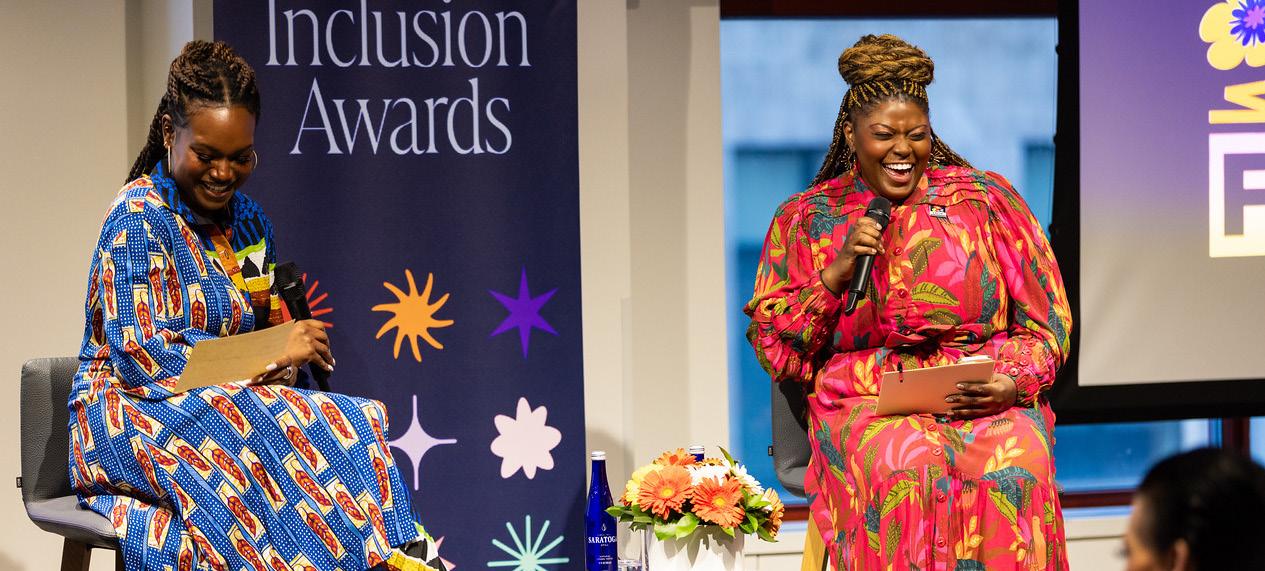
Bayyina, You’ve held various roles at R/GA, from Producer to Art Director to Executive Global Director of Sustainability and Impact. What has been the driving force behind your many pivots?
My unwavering drive to find happiness and fulfil my life’s purpose, leveraging business as a force for positive impact, has fuelled every pivot in my career. While many struggle to discover their purpose, my challenge was never about finding mine. Instead, it was about figuring out how to bring it to life and take meaningful action. After graduating from university, I aspired to land a role like the one I hold today. However, entering the workforce during a recession meant that purposedriven jobs were often the first to be cut, leading to a decade-long journey to reach my dream.
Looking back, I see each pivot as part of an adventurous quest that allowed me to acquire new skills, collaborate with industry experts, and experiment with innovative approaches to using an organisation’s resources and talent for the greater good. Along the way, I evolved into an intrapreneur, instrumental in building Make/Good at R/GA.
Can you share more about Make/ Good and its role in bridging the racial wealth gap for underrepresented businesses and nonprofits?
Make/Good is R/GA’s sustainability, social impact, and volunteer programme, launched to support underestimated, underfunded, and underrepresented entrepreneurs. In 2020, I was tasked with defining sustainability for R/GA and aligning our talent with global goals to reduce inequalities. During my research, I learned that if 15% of Black-owned businesses could hire one more employee, it would add $55 billion to the U.S. economy and create 650,000 jobs. This insight
inspired Make/Good for Businesses, offering marketing and tech services to help Black, Indigenous, Latine, and Asian-led businesses scale. We provide brand design, digital experiences, and campaigns to help them thrive. One of our successes includes helping Founderland rebrand and secure a $750,000 Google for Impact grant. We also helped Viledge, an Afro-Latina-owned business, increase revenue by 60%. Make/Good empowers businesses to create wealth and lasting community impact.
Your work with PAM, an AI-powered platform for female founders of colour, is incredibly forward-thinking. How do you see technology, particularly AI, shaping the future of entrepreneurship for Black women?
PAM exemplifies how AI can revolutionise the entrepreneurial landscape for Black women and other underrepresented groups. For centuries, Black women have been the backbone of their communities, often doing the impossible with limited resources. I know firsthand how valuable an extra hand can be in managing the demands of entrepreneurship, which made building PAM with my team at R/GA and Founderland so fulfilling. We designed it to support women of colour, offering a bias-free space to practice pitches and receive tailored support.
If there’s one thing Black women excel at, it’s getting things done. AI helps streamline mundane tasks, allowing us to focus on our strengths. I’ve built custom ChatGPT bots, like Zia, my personal assistant, Wanda the Recap Wizard, and Ellie, my financial advisor, which have made my work faster and more efficient.
Looking forward, I see AI continuing to empower Black women by helping scale businesses, streamline operations, and eliminate bias from funding. AI fills gaps where resources are scarce, allowing us to work smarter and thrive.
You’ve launched impactful initiatives globally, from Brooklyn to Brazil. How does your global perspective influence your approach to sustainability and social impact?
My global perspective has profoundly shaped my approach to sustainability and social impact. Through initiatives in places like São Paulo, Portland, Jamaica, and Brownsville, I’ve seen how diverse communities face unique challenges but are united by common struggles like access to resources and opportunities. As a global citizen, I connect these dots, helping to raise awareness, build engagement, and secure funding for impactful solutions.
My practice of African Traditional Religion (ATR), rooted in Indigenous wisdom, informs my work. Whether addressing racial wealth gaps in the U.S. or generating revenue for Brazil’s Afro-Brazilian museum, this ancient knowledge guides me.
For me, sustainability extends beyond the environment. It’s about creating lasting economic opportunities for marginalised communities. A global lens reveals the interconnectedness of these issues, driving me to design adaptable, scalable models. Equity, adaptability, and collaboration are key to achieving meaningful, systemic change.
You’ve collaborated with Black Women for Black Lives to create an NFT to aid those stranded in Ukraine. How do you see blockchain and Web3 technologies contributing to social good in the future?
Blockchain and Web3 technologies offer immense potential for advancing social good through transparency, accessibility, and decentralisation. During my work with Black Women for Black Lives, we created an NFT to aid those stranded in Ukraine when traditional financial systems failed. In a chaotic environment filled with fraudulent fundraisers, blockchain allowed us to securely and transparently direct donations, ensuring funds were traceable and safely transferred to crypto wallets when banks were inaccessible due to conflict.
Blockchain empowered us by offering access to decentralised financial systems, bypassing unreliable traditional banks. Technologies like DAOs (Decentralised Autonomous Organizations) also open doors to democratised decision-making and global collaboration. By breaking down barriers, Web3 provides equitable access to resources, driving scalable social impact. I’m excited by the innovation in the blockchain social impact space, with platforms like Open Collective leading the way.
Mentorship is a key aspect of your career. What advice would you give young professionals who want to integrate purpose-driven work into their careers?
Mentorship has been vital in my career, but sponsorship is what truly propelled me forward. My advice to young professionals is first to be honest about what causes you’re genuinely passionate about, not what’s trendy, but what truly resonates with you. Once you’ve identified that, dive into the top three challenges facing that cause. Then, explore how your industry has helped or hindered progress and look for gaps where your skills and company can contribute meaningfully.
Once you have clarity, pilot your ideas, be willing to pivot, and share your results widely. The purpose isn’t just a buzzword. It’s an anchor that guides your career and amplifies your impact. Sometimes, it involves bringing a purpose-driven approach to spaces where it may not yet be the focus. Purpose-driven work can exist in any industry through sustainability, diversity, or community engagement.
Lastly, be patient. Purpose-driven careers are rarely linear, and each pivot or role will teach you something valuable. Trust the journey, stay curious, and remember that even small actions can create meaningful impact over time.
As a digital nomad working from various locations, how has this lifestyle influenced your work and creativity, especially in a field that demands innovation and collaboration?
Working from various locations has profoundly impacted my creativity and work. I find endless inspiration in nature, patterns, art, and the unique rhythms of each city. Spending time at R/GA’s São Paulo office, where people take two-hour lunch breaks for personal errands or appointments, was eye-opening compared to the fast-paced work culture in New York.
I’ve lived in four countries and visited over 35, which has made me a more compassionate leader, especially when managing global teams. Each new environment offers a fresh perspective that enriches my creative thinking and problem-solving. Being a digital nomad has sharpened my adaptability and flexibility, enabling me to stay productive and collaborate seamlessly across time zones.
This lifestyle has also taught me the importance of balance. The freedom to choose where and how I work allows me to create environments that fuel my creativity, from cafés in Cannes to projects in Buenos Aires.
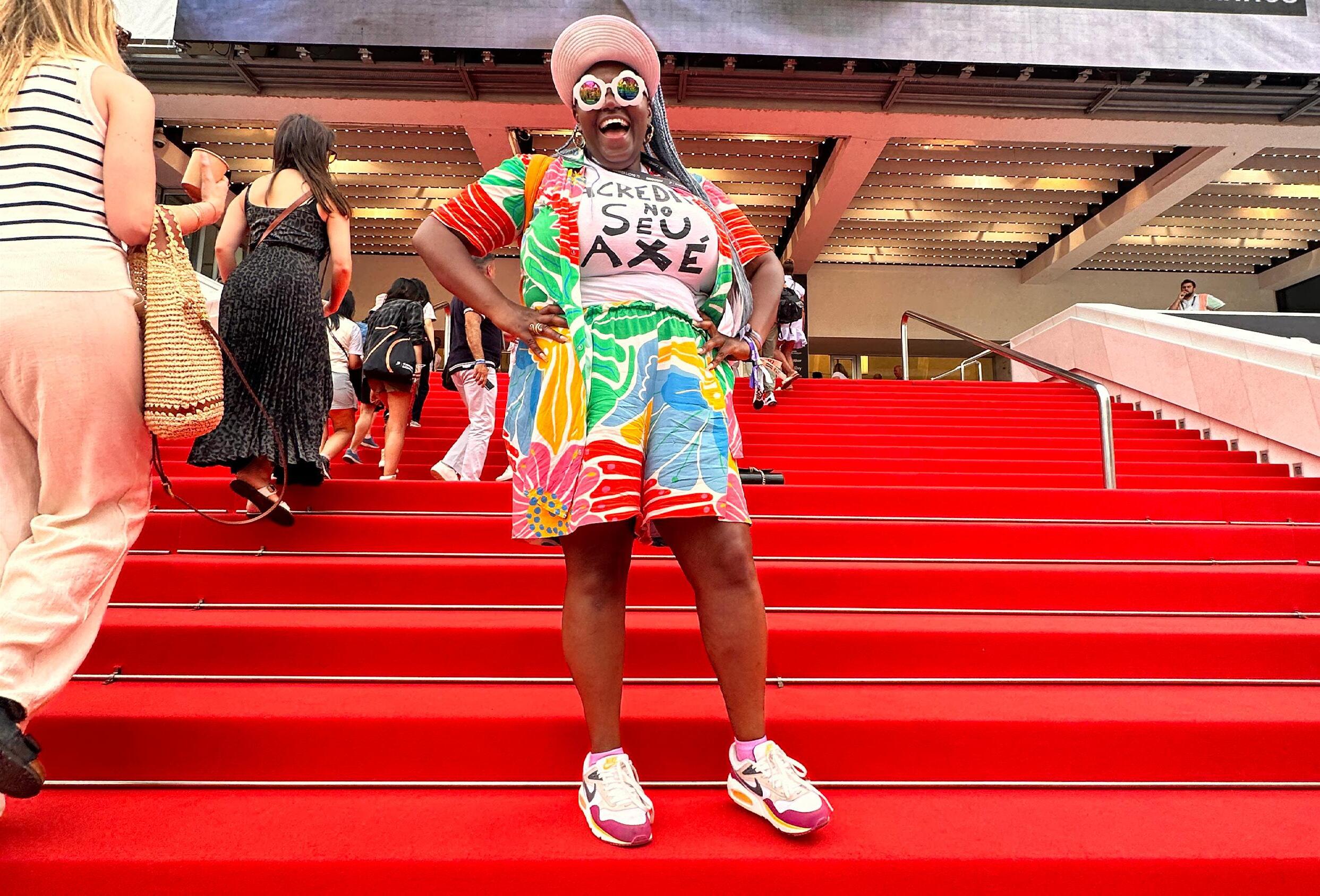
Favourite app you can’t live without?
WhatsApp and Pinterest are directly after that.
The best advice you’ve ever received?
Everything always works out how it’s supposed to so don’t stress so much.
Morning person or night owl?
Night Owl: 1000%. I do my best work when the world is quiet and people are likely sleeping. It’s after 2 a.m. right now, and I’m answering these questions! That’s very on-brand for me.
One thing that always boosts your creativity?
Being in nature, especially by a body of water.
What book or podcast are you currently obsessed with?
Wildflower, Aurora James’ memoir.
Your go-to productivity hack?
Timelapsing myself while doing a task and use my Time Timer clock to put time constraints on my tasks. I do this for three main reasons:
1. It keeps me off my phone because I use my phone to record the timelapse.
2. Instant gratification effect: I get to look at this cool timelapse video of me doing various tasks, and I think I look like a superhero zipping and bopping about. Plus, it’s cool to see the timer’s colour disk get smaller and smaller. It’s the upgraded version of an hourglass.
3. The timelapse makes for great social content.
If you could only bring three items to a desert island, what would they be?
Lighter fluid, a water purifier, and my 48-PACK POSCA Markers so that I can make a lot of art and document my experience.
To explore more about Bayyina Black scan the QR code
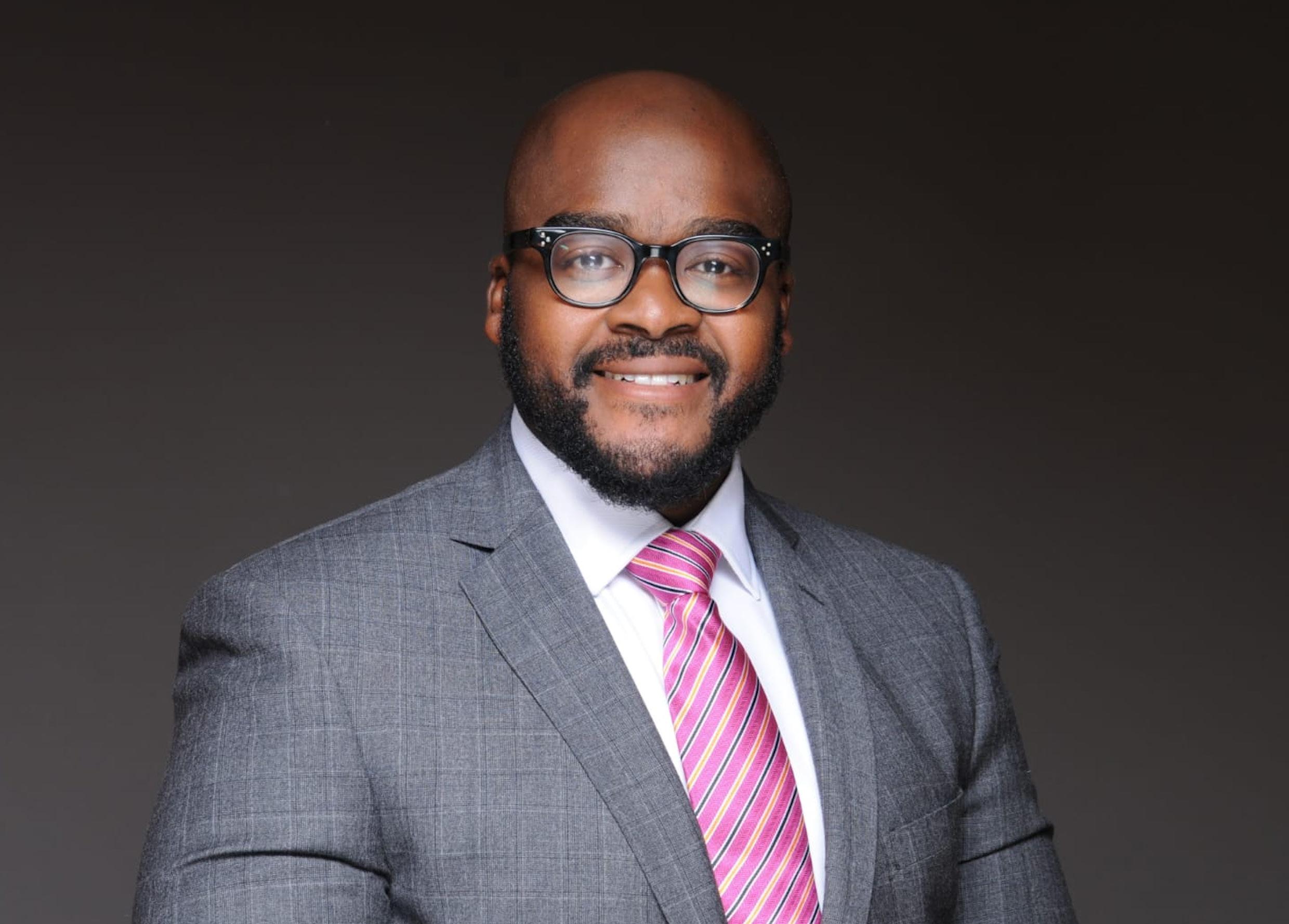
Bolaji Olatoye, an A.I. Business Growth Specialist and co-founder of Altitude AI Consulting is at the forefront of integrating technology with financial services to uplift underserved communities. With a strong track record in digital transformation and a global impact from Ukraine to East Africa, Bolaji has secured over £6 million in sales and revolutionised business operations through AI and blockchain. Alongside his wife, Funmi, he leads the Growth Lab community, empowering founders with tech-driven solutions for sustainable growth. A renowned international speaker, Bolaji champions technology as a social change and financial inclusivity catalyst
Bolaji, you have a remarkable track record blending technology with financial services to empower underrepresented communities. What inspired your journey into AI and tech-driven financial inclusivity?
Seeing big money move in banking through tech made me think: Why not everyone? It felt too exclusive. I knew then that tech should be a tool for all, not a privilege for a few. That’s what inspired me to make tech work for the underserved.
With your global experience in markets like Nigeria and east Africa, how do you see AI and blockchain technology shaping the future of business operations in underserved regions?
Almost everyone has a mobile phone in certain parts of the world where traditional infrastructure might lag. This unique setup paves the way for AI and blockchain to transform everyday business, especially making payments easier and more accessible.
At Altitude AI Consulting, what are some of the key AI-driven solutions you’ve developed that have impacted financial inclusion?
We’ve developed the Growth Lab CRM to make selling easier for businesses and Palette 2 Profit, which helps beauty pros create digital products using AI. I have had the pleasure of flying around the world. I’m having a blast while observing where there is a need. As such, we’re also building more tools like these to support other industries where we see the need.
You’ve helped beauty professionals in Nigeria monetise their expertise through digital products. Can you share how AI and automation are revolutionising non-tech industries like beauty?
We examined beauty influencers’ routine tasks and noticed many were leaving money on the table by getting stuck at certain steps. We introduced AI solutions to streamline these processes, allowing them to monetise efficiently. It is a global platform that was launched in Nigeria first; however since then, we have launched in London, South Africa, and Dubai.
Trust is crucial in business, and you’ve secured significant investment and sales quickly. What strategies do you use to build and maintain trust, especially when introducing cuttingedge technologies like blockchain?
In all my work, I’m on the side of the people, not just the technology. I start with the needs of the industry or the community and then explore how current technologies can effectively address these needs. This approach helps build trust, focusing on real-world applications and tangible benefits rather than just the technology itself.
The Growth Lab community you co-founded focuses on helping founders leverage AI for sustainable growth. What advice would you give entrepreneurs looking to scale their businesses through AI-powered solutions?
I’m passionate about fostering community, particularly through the Growth Lab Community, where we bring entrepreneurs together to explore AI without the overwhelm. Creating a supportive environment is key, not everyone is a tech enthusiast, and it can seem daunting at first, but seeing peers succeed with AI demystifies the technology and puts it within reach. I’m proud to see our members embrace tech and achieve tangible results.
As a global advocate for technologydriven social change, how do you envision AI contributing to a more inclusive and equitable technological future, particularly for marginalised communities?
Our marginalised communities are among the most innovative, ingenious and creative. AI acting as a leveller empowers creativity to flourish, boosting economic opportunities significantly. Beyond economics, AI can also transform education, offering personalised learning experiences that cater to individual needs and healthcare, predicting and preventing issues before they escalate. It’s about using AI to make essential advancements more accessible, enhancing the lives of those often left behind.





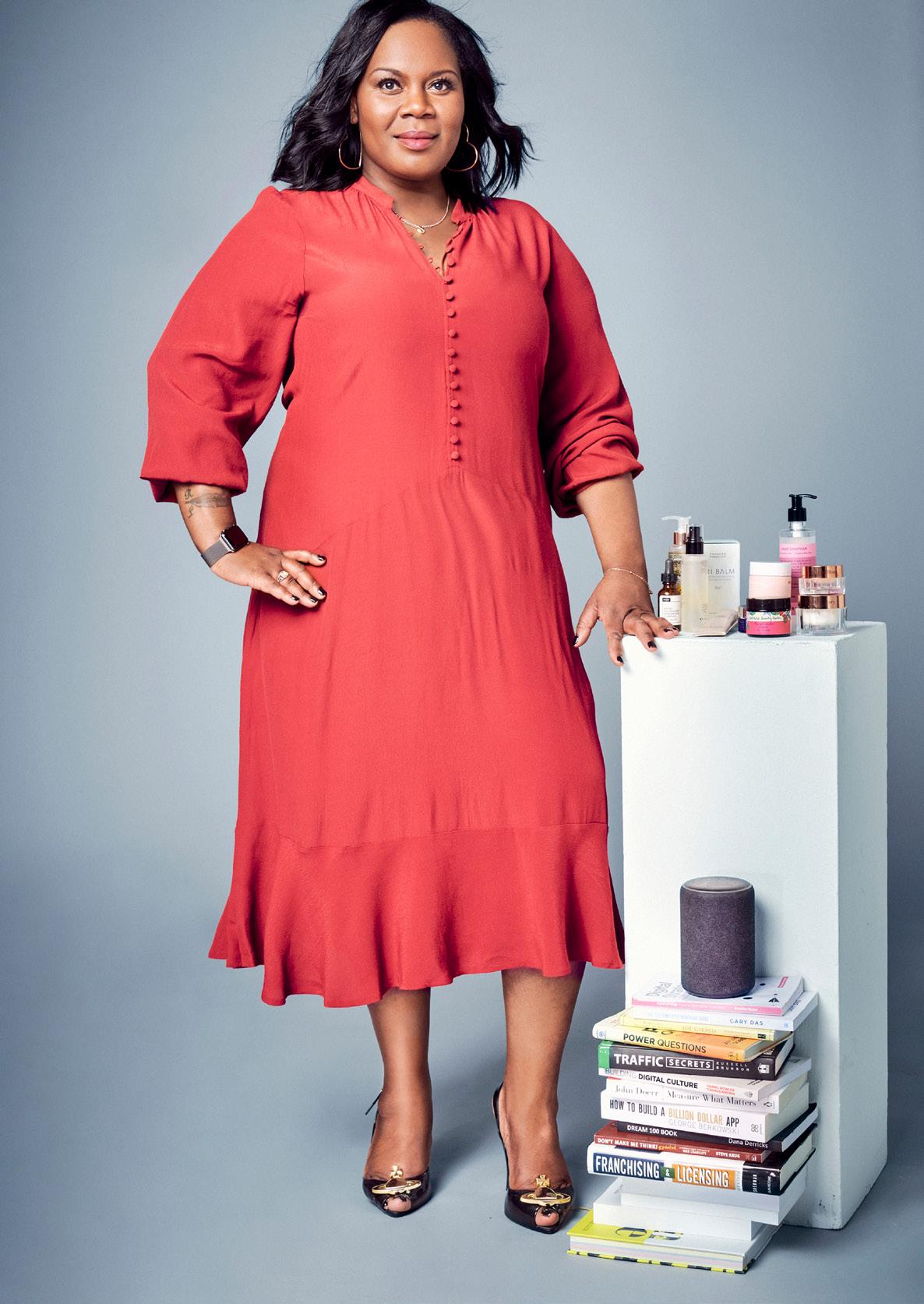
Katrina Young is a distinguished tech leader who seamlessly merges roles as a Technologist, Futurist, EcoSustainable Backend Revenue Architect, CTO, and Venture Strategic Consultant. With a strong dedication to ethical AI, inclusive technology, and green digital solutions, she champions human-centric AI that drives sustainable and responsible digital enterprises. An advocate for SMEs and startups, Katrina leverages AI to propel growth, enhance revenue, and reduce carbon footprints, ensuring smooth digital transformations across various sectors.
As an esteemed speaker, visiting Lecturer, and educator, Katrina emphasises the importance of soft skills in AI while promoting eco-sustainable practices. Her accolades, including being named a top Digital UK Woman to Watch and a finalist for the Digital Women Awards and BTA Tech Awards, highlight her influential role in the digital economy.
Katrina, your career spans multiple sectors, from healthcare to construction, and includes roles as a technologist and futurist. What inspired you to focus on ecosustainable digital solutions?
My focus on eco-sustainable digital solutions stems from my experience as a CTO, where I evaluated, ideated, and implemented innovative solutions across industries.
This unique vantage point has shown me the transformative power of technology and its potential to drive positive change. Through my work in adoption and enablement, I’ve learned that true innovation lies in creation and sustainable integration into business processes. As I’ve navigated the challenges and opportunities of leading technological transformations, I’ve
Katrina Young on Ethical AI and Sustainable Solutions
become convinced that the path forward is utilising innovation to address pressing societal and environmental challenges.
As a leader in tech who merges technology with sustainability, how do you envision the future of tech aligning with global ecofriendly initiatives?
I envision a future where the two are intrinsically intertwined. Through my work and experience, I’ve seen the immense potential for technology to drive positive change and address global environmental challenges.
I believe that the future of tech lies in aligning with and supporting eco-friendly initiatives worldwide. This means developing infrastructure and systems optimising resource usage, sustainability-focused applications that enhance supply chain transparency and accountability, and leveraging devices to build smarter, more sustainable solutions.
I envision a future where the power of technology is harnessed to support and accelerate global efforts to combat climate change, protect biodiversity, and create a more resilient, sustainable world. It’s a future where innovation and ecofriendliness are not just complementary but inseparable, and it’s a future that I’m committed to helping shape through my work at the intersection of technology and sustainability.
Human-centric AI is a key focus of your work. How do you ensure AI remains ethical and inclusive, particularly when integrated into businesses looking to scale?
Ensuring AI remains ethical and inclusive is at the core of my work, focusing on EQ, nonbiased, and humancentric AI. It starts with fostering diverse and inclusive datasets and development teams, as AI systems reflect the values of those who create them. I also advocate the development of robust ethical frameworks, including strict data privacy protocols, transparency in decision-making, and regular audits to identify and mitigate biases.
By prioritising accessibility, diversity, ethics, and inclusivity at every stage of AI development and deployment, we can create AI systems that drive business growth and promote fairness, transparency, and accountability. It’s about ensuring that as businesses scale, they do so in a way that benefits all users, stakeholders, and society as a whole.
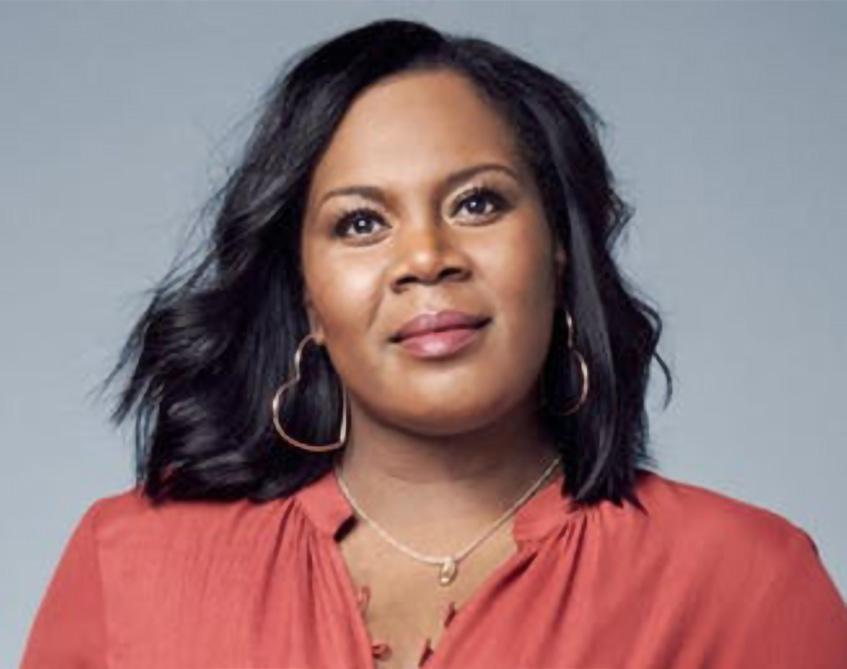
What challenges do businesses face when balancing AI adoption with ethical considerations, and how do you guide companies through that process?
One of the main challenges I’ve observed when balancing AI adoption with ethical considerations is the tension between rapid innovation and adherence to ethical principles. In some scenarios, a governance or quality assurance framework is lacking.
To guide companies through this process, I work to reframe the narrative around ethical AI. I help businesses understand that embedding ethics into their AI practices is not just a moral and legal responsibility but also a strategic advantage. In today’s landscape, trust is a valuable asset, and companies that prioritise ethical considerations are better equipped to foster long-term, trusting relationships with their customers and stakeholders and be inclusive and compliant.
As a specialist visiting lecturer and educator, what emerging trends do you see in AI education, and
how are they impacting how future technologists are trained?
As a specialist visiting lecturer and educator, I’ve noticed several emerging AI education trends shaping future technologists’ training. One significant trend is the growing emphasis on interdisciplinary learning. There’s a recognition that to develop ethical, responsible, and inclusive AI systems, technologists need more than just technical skills. They require a deep understanding of AI’s social, psychological, and philosophical implications. There is a growing need for soft skills.
I believe there’s room for improvement in AI education, particularly in providing users and students with a more comprehensive understanding of AI’s full capabilities. This includes delving deeper into topics such as framing, prompting, and analysis, which are crucial for developing effective AI systems.
What are the biggest technological shifts or innovations you believe will shape the next decade, especially regarding ethical AI and green tech?
Looking ahead, I believe we’re on the cusp of several monumental technological shifts that will redefine the landscape of innovation over the next decade. One of the most significant developments I anticipate is the convergence of AI with other transformative technologies such as quantum computing, blockchain, and IoT. As quantum computing becomes more accessible and powerful, we’ll likely see a surge in AI systems that can tackle complex problems with unprecedented speed and accuracy.
However, with great power comes great responsibility. As AI becomes more sophisticated, it’s crucial that we double down on our efforts to ensure it is developed and deployed ethically. We’ll see a growing emphasis on explainable AI, where systems can clearly articulate their decision-making processes. We’ll also see more robust frameworks for auditing AI systems to detect and mitigate biases.
Another area where I expect to see significant progress is in the intersection of AI and green tech. AI has immense potential to optimise renewable energy systems, streamline recycling processes, and help design more sustainable products. We’re already seeing promising applications of AI in smart grids, precision agriculture, and eco-friendly transportation.
Over the next decade, I anticipate a surge in AIpowered tools that help businesses and individuals measure and reduce their carbon footprint.
This type of future will require a concerted effort from technologists, policymakers, and society. We’ll need to invest heavily in research and development while fostering a culture of ethical innovation, prioritising inclusivity, sustainability, and social good.
What’s your go-to strategy for staying ahead in the fast-paced tech world?
My go-to strategy for staying ahead in the fast-paced tech world is constantly experimenting and pushing boundaries. I’m not afraid to get stuck in, even if it means occasionally failing. I view failure as valuable feedback and an opportunity to learn and grow. Keeping ahead of trends is crucial, but it’s not enough. I also strive to think outside the box and innovate in ways others haven’t considered.
What’s one piece of advice you’d give to a startup founder in 2024?
The business landscape will be dynamic and competitive in 2024 and even more evolving in 2025. As such, my advice to a startup founder would be prioritising adaptability and resilience.
At the same time, keep sight of your core mission and values. In a rapidly changing world, a strong sense of purpose can be a stabilising force and a competitive advantage.
Finally, prioritise building a robust and diverse support network or team. Surround yourself with people who bring different perspectives and skills to the table. Foster an inclusive environment where everyone feels empowered to contribute their best work.
How do you unwind after a day filled with tech and innovation?
I enjoy tech-free moments with loved ones, catching up on a podcast or book, spending time at the gym, and taking time out for well-being. These activities help me disconnect, recharge, and gain perspective on the important things in life.
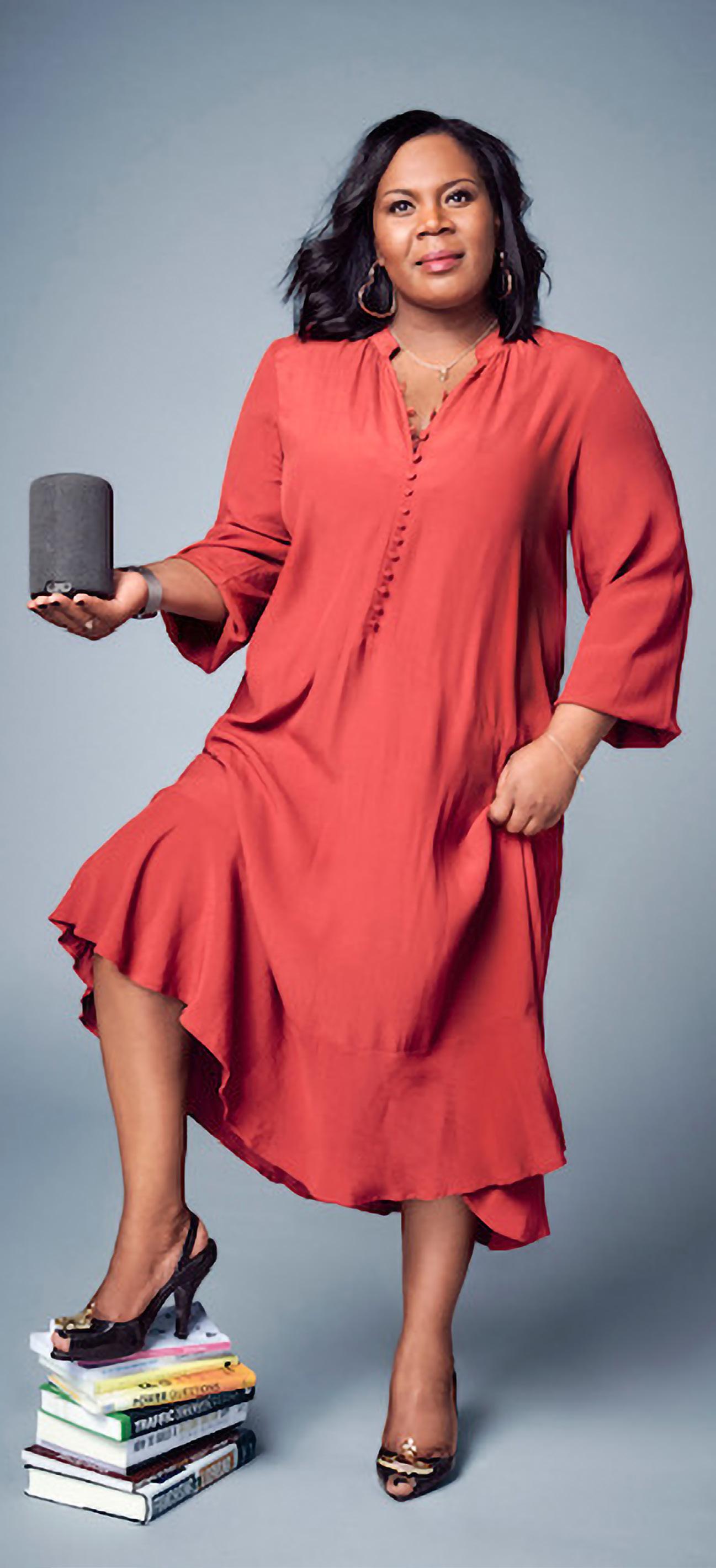
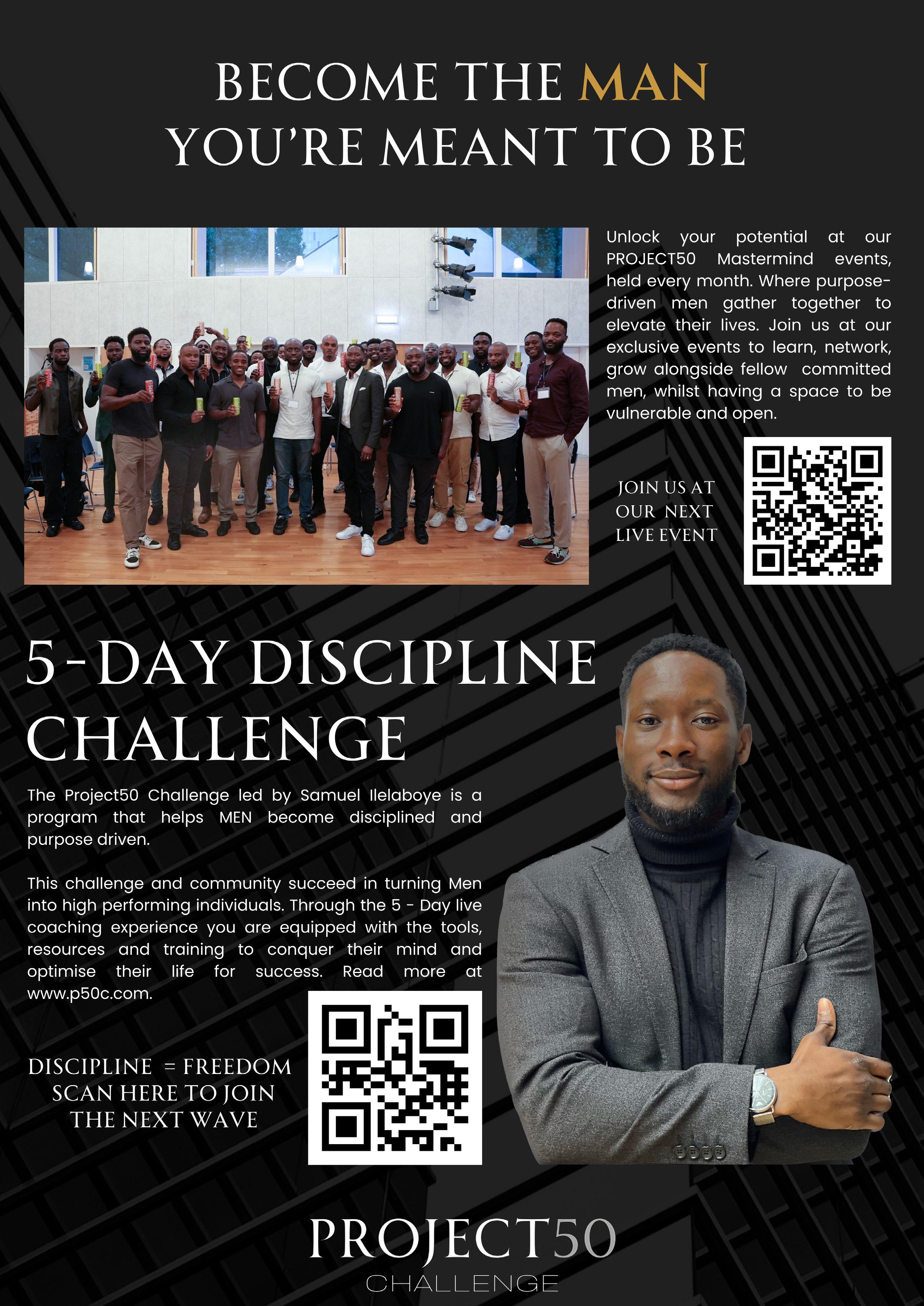
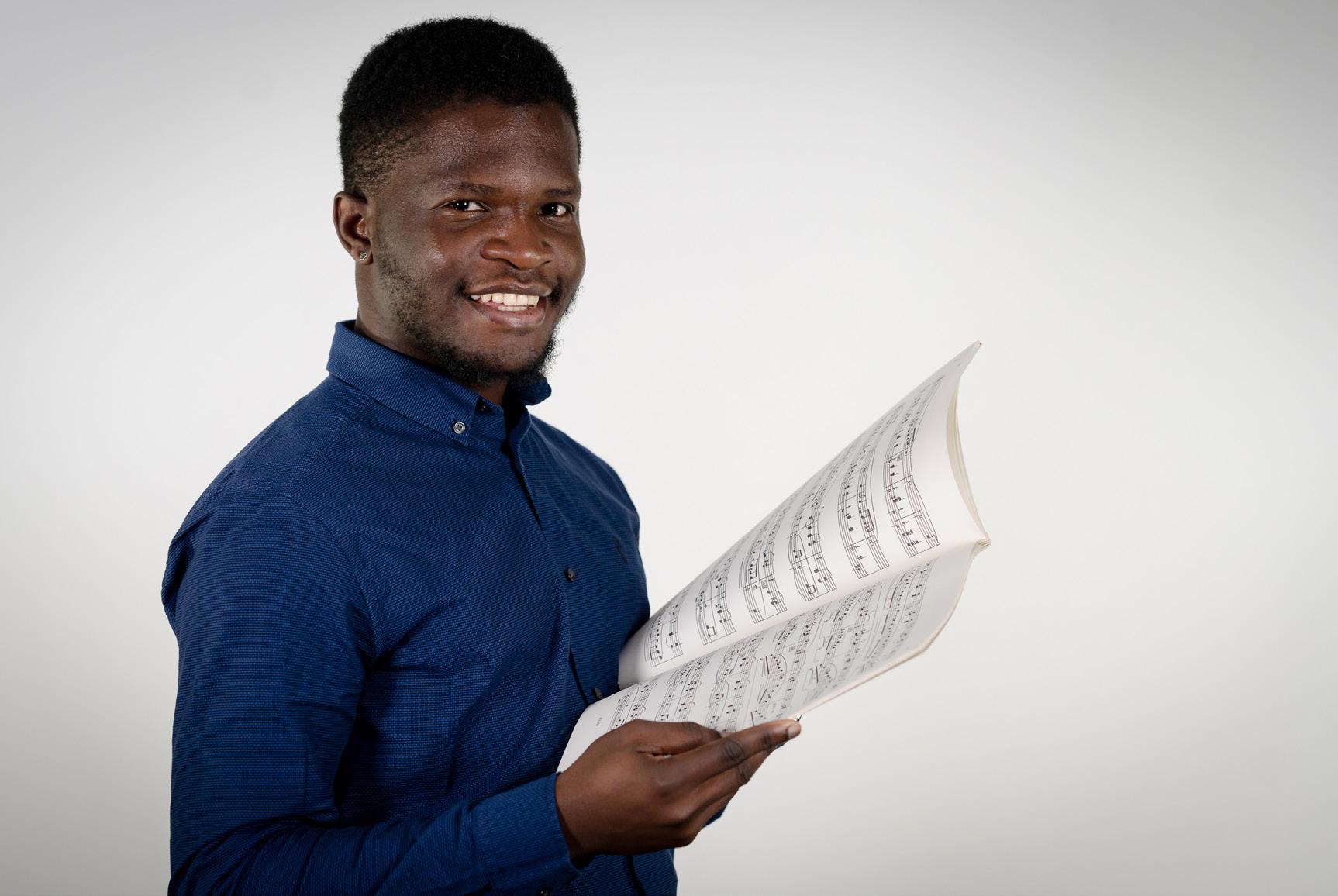
By Bayile Adeoti
Ifeanyichukwu (Ifeanyi) Ezinmadu BMus (Hons) is an Edinburgh-based entrepreneur passionate about using technology to drive innovation in music education. As a Mastercard Foundation Scholar at the University of Edinburgh, where he obtained his degree in music, Ifeanyi has dedicated himself to creating a meaningful impact through techdriven solutions. He is the founder and CEO of SymphoMe, an innovative music education platform that integrates artificial intelligence to provide personalised learning experiences for students. SymphoMe has been recognised as one of the top AI start-ups across Scottish universities and is making strides in the education technology (EdTech) sector.
In this interview, Ifeanyi shares his journey, challenges, and vision for the future of music education.
What inspired you to become involved in technology and innovation?
My experience inspired my involvement in technology and innovation in music education. As a classical pianist and educator, I encountered the limitations of traditional music teaching methods, which often lacked flexibility and accessibility. Many students, especially those without access to private tuition, struggled to engage with the one-
size-fits-all approach used in most music education settings. I strongly desire to bridge this gap and make high-quality music education available to a wider audience. This passion led me to explore the potential of artificial intelligence and how it could transform music education.
By leveraging AI and audio signal processing, I realised we could offer students personalised, real-time feedback, addressing the challenges of traditional methods. This realisation led to my research on music education technology at the University of Edinburgh, ultimately leading to the establishment of SymphoMe, where technology and education come together to create innovative, student-centred learning experiences. The most exciting part of working in tech is solving real-world problems, particularly those that can improve accessibility and engagement in education.
was your biggest challenge in the early
One of the biggest challenges in the early stages of SymphoMe was raising capital and a team with the right blend of technical expertise and passion for the vision. Music education technology is a niche field, and finding investors who fully understood the potential of combining artificial intelligence with music learning was not straightforward. Many were hesitant, as the intersection of music and AI was
still emerging. However, the rapid advancements in generative AI for music in 2024 have attracted more interest in the sector. Additionally, attracting top talent in audio signal processing, AI, and digital education design was challenging, particularly in a competitive market where large tech firms often secure the best candidates. Nevertheless, persistence paid off.
I gradually built a capable team by leveraging connections within the academic world and consistent networking. Collaborations with UK-based research institutions filled gaps in expertise. At the same time, angel investors and funding, such as the SMART grant from Scottish Enterprise, provided the necessary capital to move the project forward. To enhance my business management skills, I have also benefited from programmes like the Edinburgh Innovation Summer Accelerator (2023), Barclays Product Builder Programme (2023), Converge Challenge Finalist (2024), the University of Strathclyde Executive Business Programme (2024), and the Sony Music UK-sponsored accelerator delivered by Digital Catapult (2024).
SymphoMe addresses three key challenges in music education. Firstly, a lack of tools that provide real-time feedback for students when not with a teacher limits independent learning. Secondly, music education in UK schools has faced over a 50% reduction in funding, making quality music tuition less accessible to many. Finally, around 46% of students lose motivation due to the impersonal nature of traditional music programmes.
To tackle these issues, SymphoMe offers realtime feedback via our AI-driven music teaching technology. It supports students by providing personalised guidance based on their practice materials or individual learning goals. For schools affected by budget cuts,
SymphoMe offers a cost-effective solution for instrumental tuition and certification pathways, helping to fill the gap left by funding reductions. To further address motivation loss, SymphoMe integrates gamification elements, keeping students engaged and motivated throughout their musical journey. Combining real-time feedback, AI, and gamification, SymphoMe offers an innovative and holistic approach to music education, bridging the gap between traditional teaching and modern technology.
In your view, what are the risks of rapid technological advancement?
One of the key risks of rapid technological advancement is the ethical concerns surrounding
AI, particularly in data privacy, intellectual property, and fair use of creative works. In the music industry, generative AI is already blurring the lines of ownership and originality, posing a potential threat to the livelihoods of artists and educators. Additionally, biased or poorly trained AI models can exacerbate inequalities or misuse data.
Another significant risk is the widening digital divide. Those without access to the latest advancements may be further marginalised as technology evolves, particularly in education. This is a pressing issue in the EdTech sector, where financial or geographic limitations may restrict access to AI-driven tools.
At SymphoMe, we prioritise the responsible and ethical development of our AI technologies. We are committed to protecting users’ data, maintaining transparency in our AI models’ training, and working closely with the music industry to safeguard intellectual property rights. By doing so, we aim to mitigate these risks while advancing music education.
How do you stay ahead in such a fastpaced
I actively engage with recent developments in music information retrieval and artificial intelligence to stay ahead in such a fast-paced industry. I regularly read publications and research papers to understand the latest trends and breakthroughs, particularly in areas relevant to SymphoMe’s mission, such as AI-driven music education. Collaborating closely with the AI engineers at SymphoMe also keeps me grounded in the practical applications of cutting-edge technology, ensuring our solutions remain innovative and forwardthinking.
Additionally, I follow and engage with industry leaders and trailblazers across key fields, including education technology, AI, music technology, and business strategy. This helps me stay informed about evolving best practices and emerging opportunities. Learning from experts in these areas enables me to continuously refine our approach at SymphoMe, ensuring we keep pace with the industry and position ourselves at the forefront of innovation.
By balancing academic learning, practical application, and strategic networking, I ensure that SymphoMe remains competitive in an ever-evolving landscape.
Scan the QR Code to learn more about Ifeanyichukwu Ezinmadu
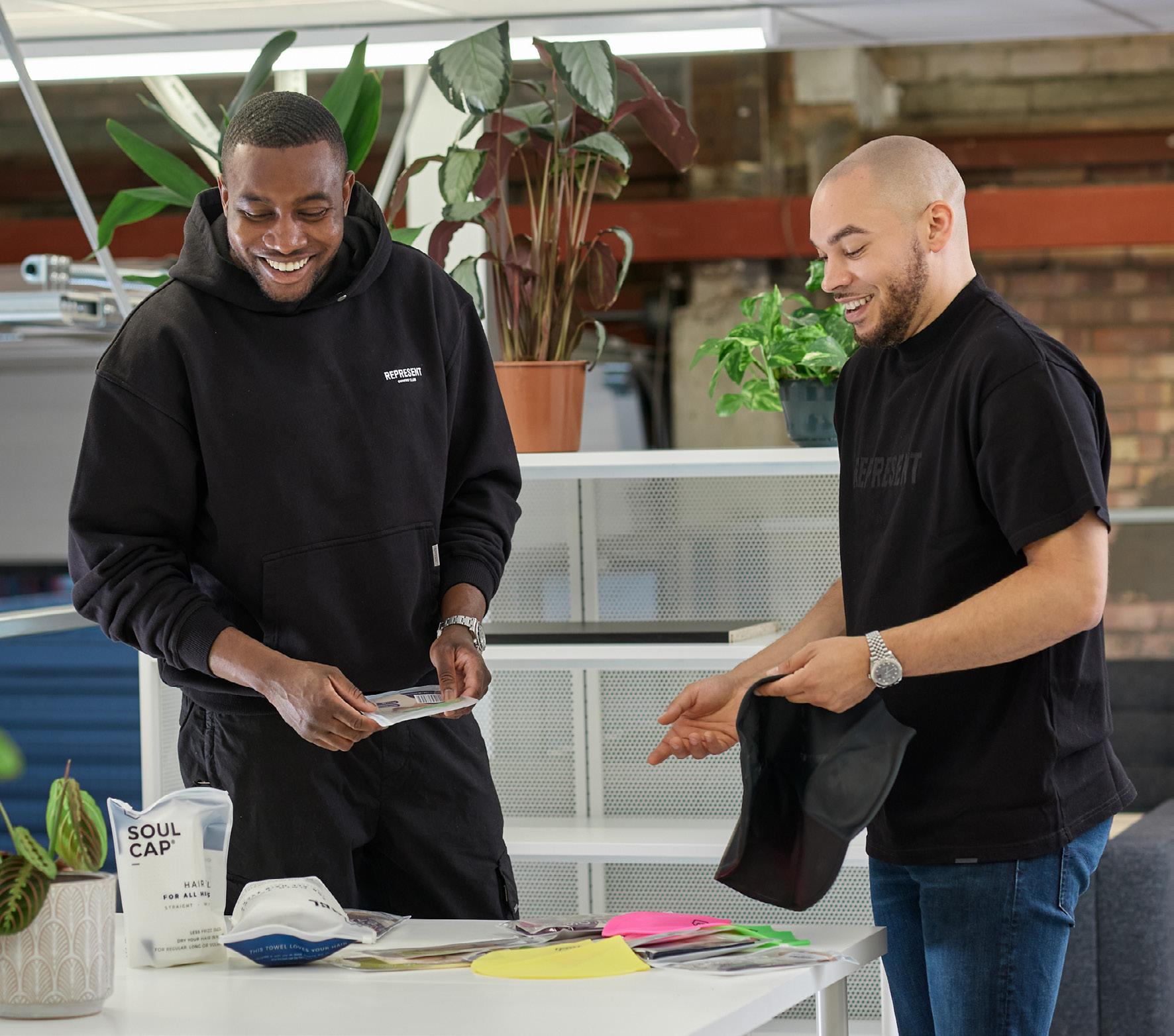
Best friends Michael and Toks co-founded SOUL CAP, a swim brand breaking barriers for diversity and inclusion in the swimming world. After starting adult swim lessons in 2017 and noticing the lack of swim caps for people with voluminous hair like Afros, braids, and locs, they created SOUL CAP to meet this need.
Today, SOUL CAP is featured in major publications like Women’s Health and VOGUE and earned a spot on Time Magazine’s Best Inventions list. Collaborating with Adidas and donating £100,000 to Black swim projects through their Swim Proud Fund, SOUL CAP proves that swimwear can be inclusive for all.
Can you tell us about the moment you first realised the need for more inclusive swim caps and how that sparked the creation of SOUL CAP?
Michael and I grew up not knowing how to swim. We took swimming lessons in primary school, but it was
the classic story of young Black kids who just “couldn’t.”
In our 20s, we finally took the plunge (literally) and took up adult swimming lessons. During these sessions, we met a Black woman with short Afro hair who struggled with the swimming cap she was using. She was willing to sacrifice her hair care to learn to swim, which didn’t feel right to us. It got us thinking: Why don’t you make swimming caps that cater to people with different hair lengths, volumes, and types? And things just progressed from there.
SOUL CAP has gained recognition from major publications and collaborated with global brands like Adidas. How have these milestones impacted your brand’s reach and message of diversity in swimming?
The exposure from being featured in VOGUE, Women’s Health and the New York Times has been surreal.
When we started the brand, we never anticipated the exposure and the impact our products would have on many people’s lives.
The collaborations with Adidas are also really special to us, given that Adidas is a brand we both loved growing up and one that has always resonated within Black culture. We feel that the SOUL CAP story and the reach we’ve been able to amass have truly encouraged so many to get back into swimming, particularly people who historically felt that ‘the water’ wasn’t a space for them. For this reason, it makes the work we do so fulfilling.
The SOUL CAP Foundation’s Swim Proud Fund is an inspiring initiative. What motivated you to pledge £100,000 towards Black Swim projects, and how do you envision it making an impact?
Last year, stats from the National Child Mortality Database in the UK showed that the risk of drowning was 3.5 times higher for children of Black ethnicity when compared to white. Data from the US shows a similar trend of black children drowning at a disproportionately higher rate than their white counterparts. Our mission as a brand is to help change these statistics, and we can do this by encouraging more people of colour to learn how to swim.
We’ve always supported amazing organisations that provide free swimming lessons, education, and mentoring, and we thought, why not formalise this and make a formal pledge? Lots of brands nowadays say good things but just post glossy pictures. We want to put our money where our mouth is to make meaningful change.
Having founded SOUL CAP with your best friend, Michael, what have you learned about each other while building a business, and how has it strengthened your partnership?
Michael and I agree on so many things, even when we make the same judgments or have the same numbers when negotiating with manufacturers! However, we do, on rare occasions, disagree. The great thing about being a co-founder with your best friend is that you can always put egos aside. We agree that any decisions that need to be made are in the business’s best interests. We both trust one another to view things through this lens, making finding a path to the “right” solution much easier when we have differing views.
Swimming has historically been less accessible for underrepresented communities. How is SOUL CAP working to change perceptions and increase water education in these communities?
Through the SWIM PROUD Fund, we partnered with Studio Exception, an inclusive innovation consultancy, to produce a research piece.
We identified several key barriers to underrepresented communities when it comes to swimming, including pride and shame, racism and representation, financial and geographical access, and, of course, hair care.
These insights help us partner with the right groups, non-profits, and communities to ensure we can support them best, e.g., through equipment donations, financial support, or sharing and amplifying their message. Much of our support is to grassroots initiatives, which improve representation, change perceptions, and ultimately increase participation in swimming.
As
disruptors in the swim industry, what challenges have you faced in promoting inclusivity, and how have you overcome them?
Our biggest challenge was when our swimming caps were banned from use at the 2020 Olympics. It was a global news story that captured the attention of many, and we were overwhelmed with the amount of support we received.
We eventually hopped on a call with the CEO of FINA (the World Governing Body of Competitive Water Sports) and received an apology! FINA later overturned the decision, and now all our swimming caps are approved for competitive use.
More recent challenges we’re facing include that many of the access to retail spaces in swim are owned by some of the big brands, who have exclusivity rights. We’re trying to knock on as many doors as possible to provide our offering to as many people as possible.
What are your long-term goals for SOUL CAP regarding product innovation and continuing to drive change in the swim world?
We have some exciting product plans for 2025 and beyond, with reducing barriers to swim, through innovation being at the core of our product development.
We’re hoping to get into more retail spaces and become a brand you think about when you think about swimming, the same way you would with Speedo, Zoggs, or Arena. The difference is that we’ll always be the brand that speaks to everyone, even those who have historically been overlooked. Because of this, we feel like we’re building the best swim brand in the world, and we’re excited for everyone to follow us along on our journey!
Quick Fire Questions
Early bird or night owl?
Early bird (5am gang!)
Favourite swimstroke?
Front crawl because I’m not very good at any others.
Biggest inspiration in life or business?
I’d have to say my mum and wife for being hardworking boss women.
“The people who are crazy enough to think they can change the world are the ones who do.” – Steve Jobs.
“Tell ‘em boy there, hard work pays off.” – Stormzy.
Trying to limit the snacks because Dad-bod is a thing. However, I do like custard creams.

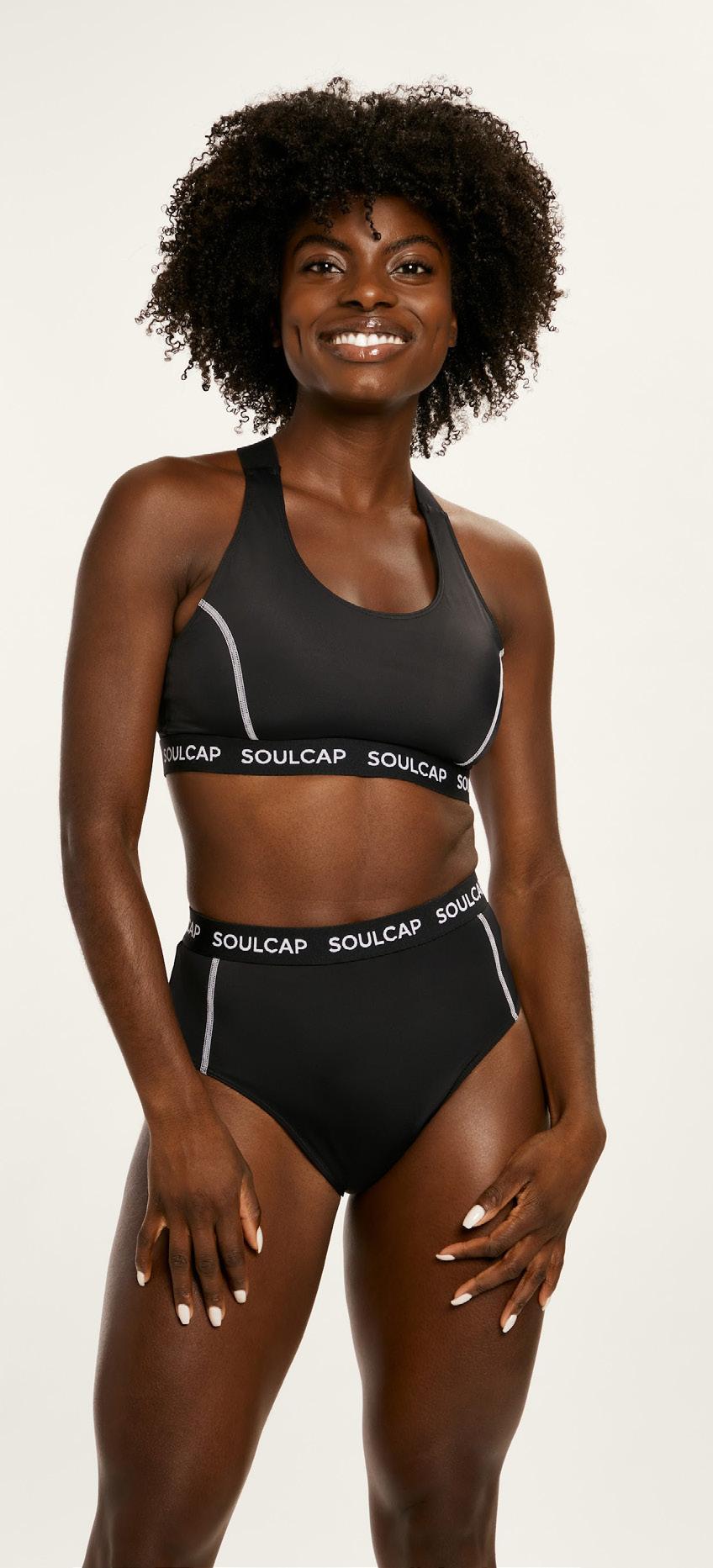
To explore more about SOUL CAP, scan the QR code
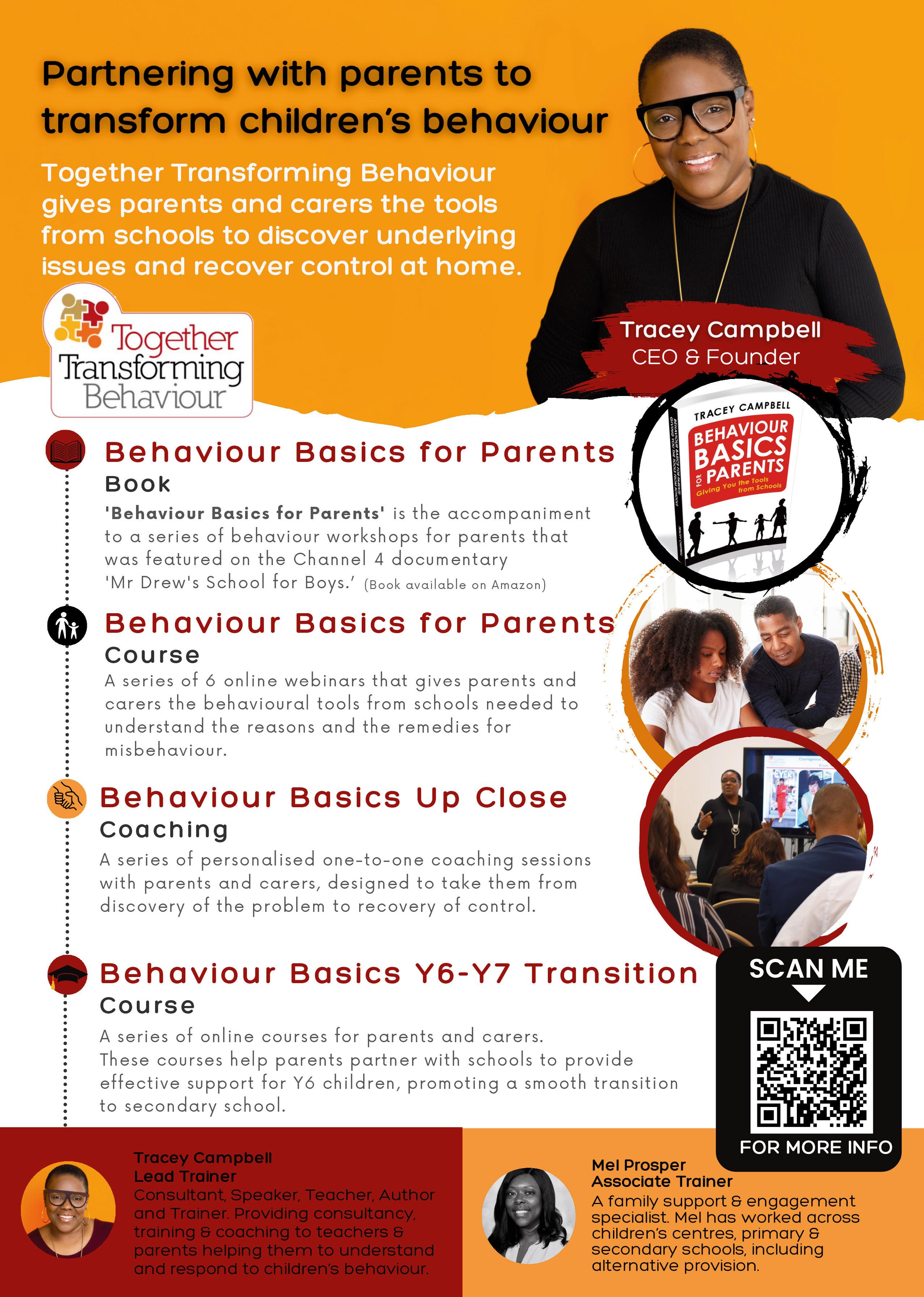

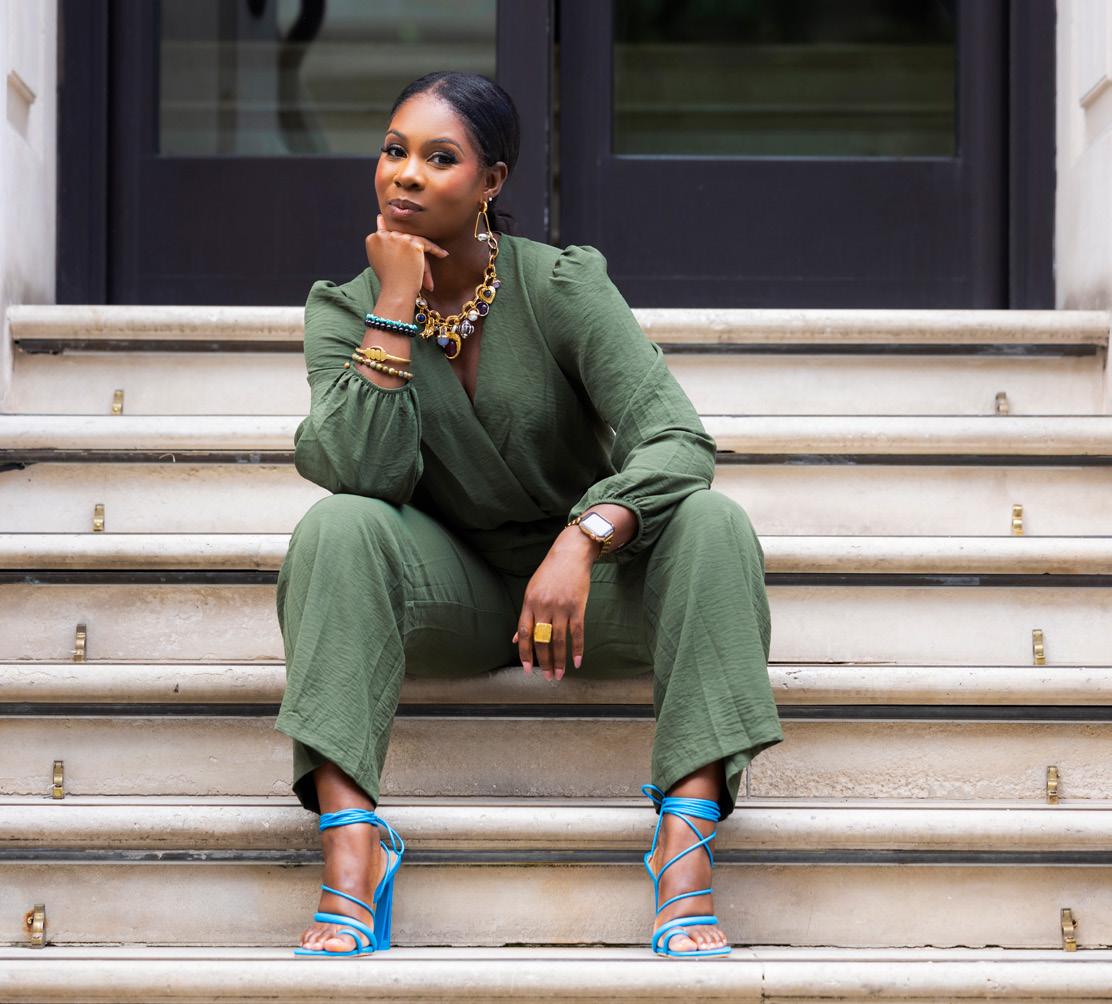
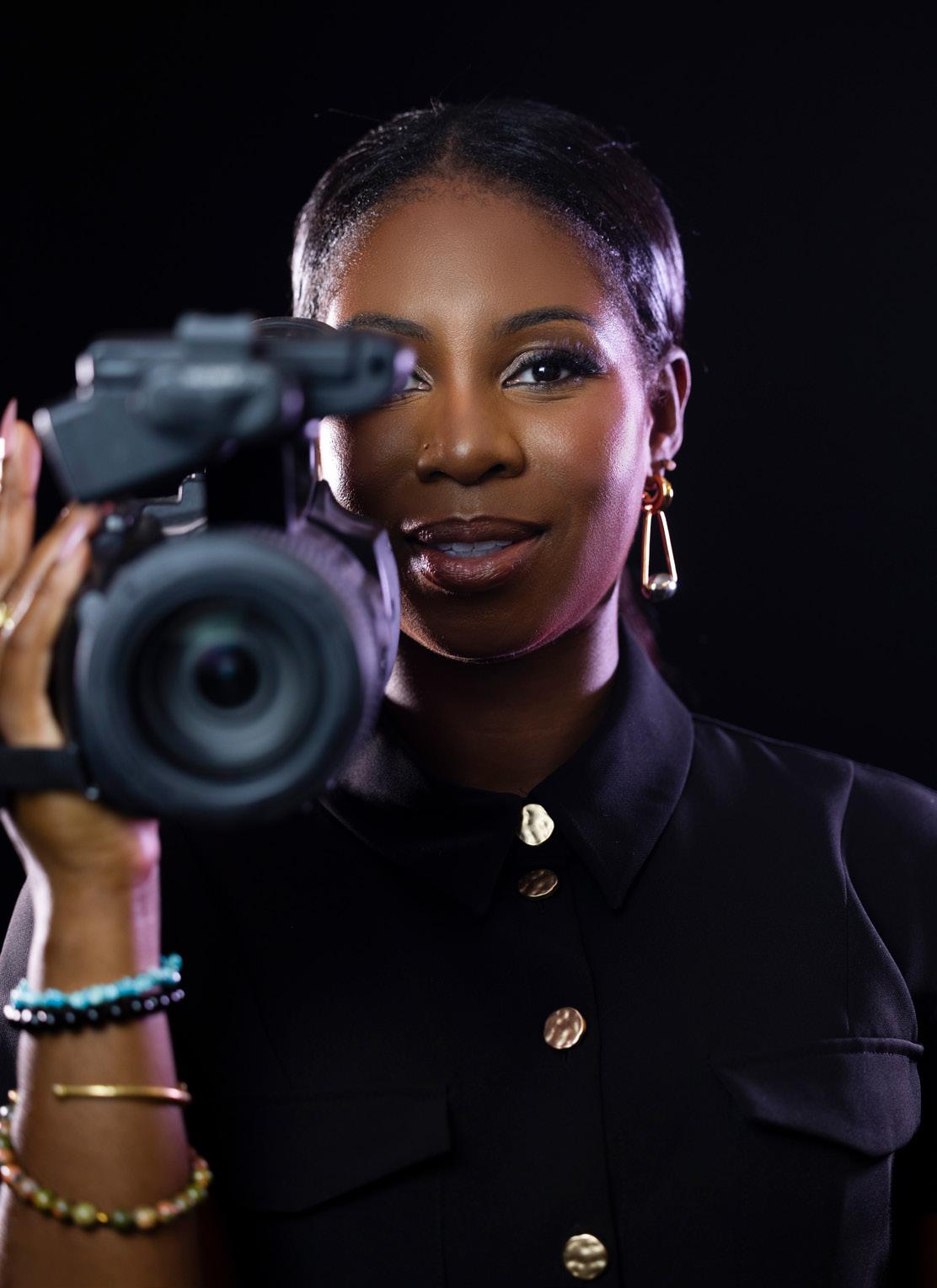
Born and raised in the London Borough of Lewisham with Ghanaian heritage, Louisa Osei has always been driven by the intersection of art and science. After earning a degree in Product Design from Kingston University, she quickly established herself as a multidisciplinary force in graphic design, branding, and marketing. As a founding employee of MyCityDeal, Louisa helped shape the brand into the global powerhouse Groupon, later bringing her creative leadership to companies like Sony Pictures, Ogilvy, Publicis, and Meta.
Now, Louisa is venturing into the film world with her debut documentary, Prompt for Profit. This film explores the transformative impact of AI and the ethical challenges it presents. With a strong focus on generative AI, she is leading the way in integrating this technology into design and filmmaking.
From Product Design to AI: How has your background in the arts and sciences shaped your approach to integrating generative AI into your creative and consulting work?
My background in Product Design, which bridges the arts and sciences, has significantly shaped my approach to integrating generative AI into my creative and consulting work. In design, I was taught to push
boundaries, envision future societies, and consider how we interact with products and technology. This mindset, balancing creativity with functionality, has been at the heart of my use of AI.
AI offers a world of possibilities, but the human element gives it purpose. In my work, I use Gen AI to augment artistic processes while staying mindful of ethical implications.
Your upcoming documentary Prompt for Profit tackles the ethical implications of AI. What sparked the idea for this film, and what message do you hope viewers take away from it?
Conversations during my global travels last year sparked Prompt for Profit. Everywhere I went, the topic of AI and job replacement arose, especially among peers in creative and tech industries. There was concern about AI’s impact on careers, mental health, and society. People were asking: Who ensures AI benefits us all? How do we protect human interests amidst rapid technological change?
This film is my way of addressing these global concerns. I hope viewers understand AI’s positive and negative potential and feel empowered to join the conversation about shaping our future. It’s about advocating for ethical AI use and ensuring it serves humanity, not just profits.
AI is rapidly transforming industries. As someone with experience at companies like Meta and Sony Pictures, what are your thoughts on AI’s impact on the future of creative industries like film, design, and marketing?
AI will no doubt shake these industries. It’s already happening. Tools like Runway AI are a prime example of taking down barriers, as seen in their recent 48hour short film competition, which attracted nearly 4,000 entries - most people without traditional film backgrounds. The ability to create is now at their fingertips! While this empowerment is exciting, it also raises serious concerns about the future of traditional roles in film, design, and marketing. As AI continues to evolve, it will undoubtedly reshape the creative landscape. We must ensure that it enhances, rather than diminishes, human contribution, keeping our creativity and innovation at the heart of these industries.
The tech and film industries are still working towards greater diversity.
What challenges have you faced as a Black woman in these spaces, and how do you think the industry can better support underrepresented voices?
I’ve faced challenges, as many of us have. Often, I’ve been the only woman or POC in the room. Despite that, I see my race and gender as strengths, bringing a perspective often underrepresented in these spaces. To truly hear our voices, the industry needs to move beyond surface-level diversity initiatives and create environments where those voices are empowered and genuinely heard. At Meta, we had Black@, a space to be unapologetically ourselves, driving initiatives for the community. What’s needed is more mentorship, equitable access to resources, and authentic allyship. At the same time, we’re building our own communities and carving out our own paths to reach where we need to be.
In your transition from a successful career in branding and design to filmmaking, what has been the most rewarding aspect of telling stories through film, particularly when addressing complex topics like AI?
The most rewarding aspect of transitioning to filmmaking has been the ability to tell stories more immersive and emotionally. Coming from branding and design, I’m used to grabbing attention quickly, but the film allows for deeper exploration. With complex topics like AI, I can break down nuances and humanise these advancements. AI isn’t just a technological shift; it impacts real lives and future societies. Often, AI discussions come from the same select voices, but through this film, I’m bringing my unique perspective and amplifying views from global communities often removed from the conversation. AI will affect us all, so why should the same people always be the mouthpiece for the world?
Are there any other subjects you are looking to explore in future projects?
Yes, I’m interested in exploring global topics from often unheard perspectives. I want to continue telling underrepresented stories, particularly those of women and Black communities. One of my next projects, already in the pipeline, focuses on Black family dynamics, shared history, and unearthing taboo subjects. I’m also keen to explore Black economics as a future project, delving into the financial and social frameworks that impact our communities. I aim to bring forward often side-lined narratives, allowing them to have a platform and contribute to broader global conversations.
Image credits: Garry Carbon
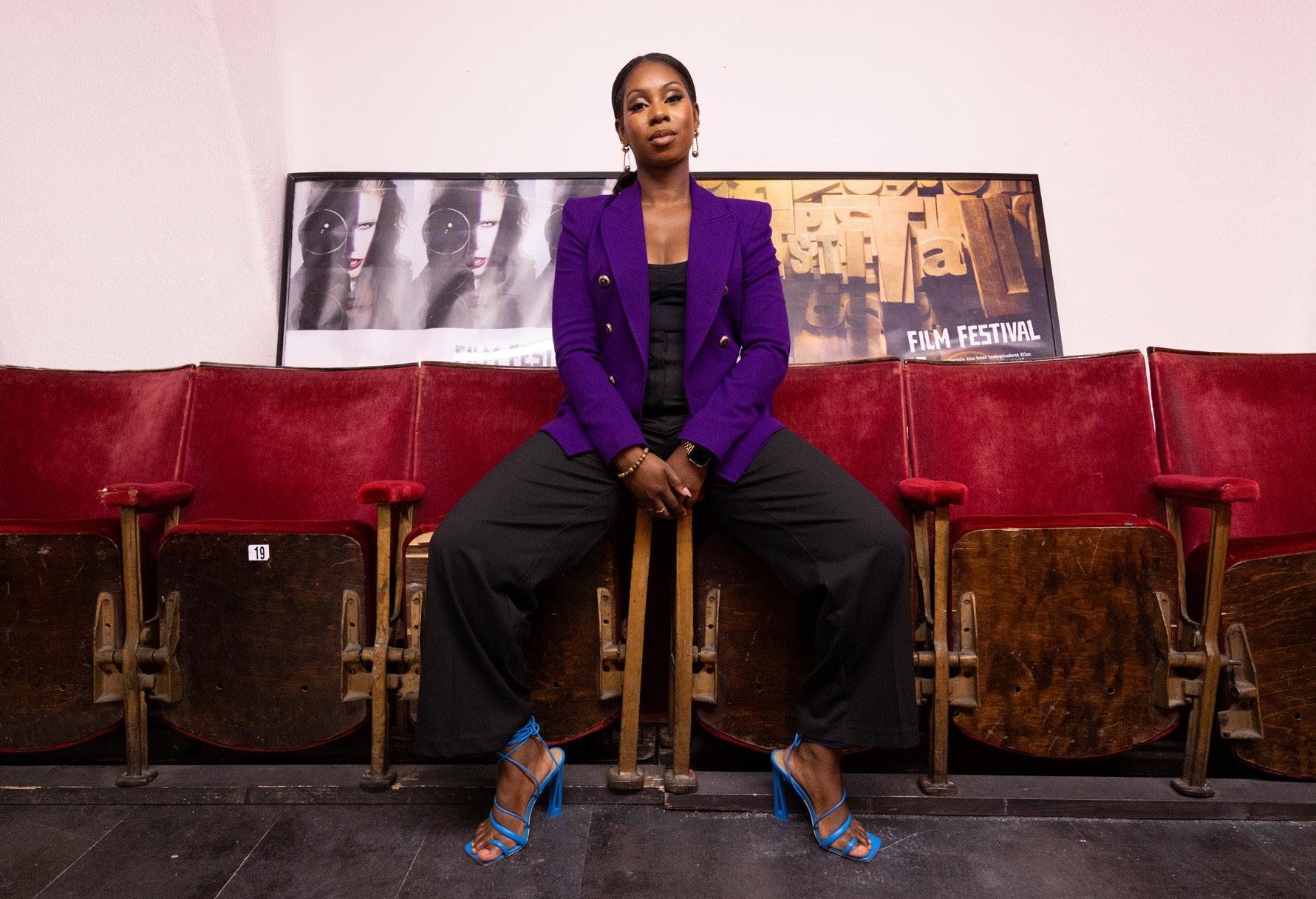
If you could give one piece of advice to young women entering tech or film, what would it be?
Never dim your light - know you are great at your work. And always negotiate your pay! Far too many women overlook this, but it’s crucial to knowing and securing your worth.
Favourite piece of tech you can’t live without?
My iPhone!
Scan the QR Code to learn more about Louisa Osei
director or filmmaker do you look up to the most?
Spike Lee for bringing topics within the Black community to the forefront. Also, Christopher Nolan. I love the complexity of his storytelling. Anything cerebral, I’m all in.
Threat or opportunity for creatives?
Oooh, that’s a tough one. It can be both! However, I’m going with the opportunity. You must keep learning and evolving your skills. Failure to do so will become a threat.
Describe your filmmaking style in three words.
Provocative. Insightful. Engaging.






Jedidiah’s journey from Commonwealth and Olympic Games athlete to entrepreneur is extraordinary. His story, which captivated a global audience of 250 million in CNN’s Human to Hero documentary, showcases his drive and determination.
Transitioning from the world of sports to business, Jedidiah has successfully led teams of over 80 staff at prestigious

brands like Soho House. Motivated by the growing need for businesses to meet the demands of omnichannel, 24/7 customer care, Jedidiah founded Agenly AI. This cutting-edge platform provides businesses with a digital workforce of human-like AI employees. This innovative solution serves customers and works seamlessly alongside human teams, driving efficiency and performance in customer service.
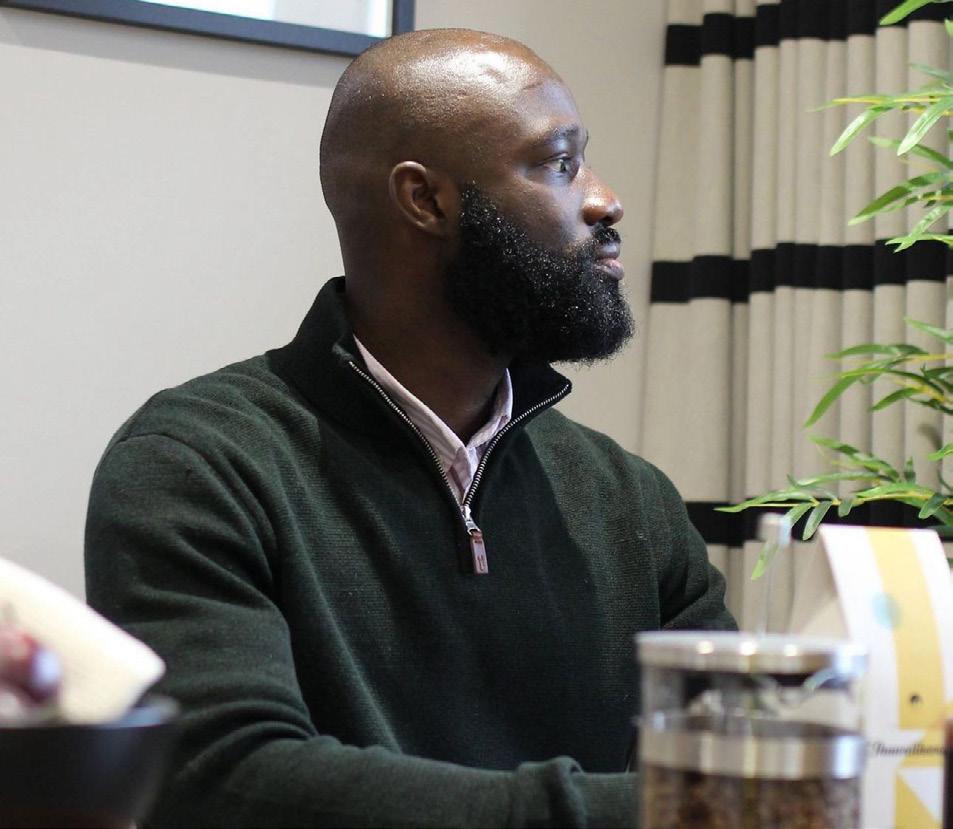

Your career journey has taken you from Olympic athlete to leader of teams in tech and wellness sectors. How did these experiences shape your approach to leadership and innovation, particularly in AI?
As an athlete, I learned the value of discipline, perseverance, and pushing boundaries, qualities that translate directly to the fast-paced world of AI development. Team dynamics in sports taught me the importance of collaboration and leveraging diverse strengths, which is crucial in GenAI, where interdisciplinary expertise is key.
In tech and wellness, I gained a deep appreciation for user-centric design and the potential for technology to improve lives. This perspective drives my focus on developing AI solutions that are technically advanced, ethical, and beneficial to society. The combination of a high-performance mindset from sports and a humancentric approach from wellness has helped me to lead teams that are both ambitious and responsible in their pursuit of AI innovation.
Agenly AI is positioned as a digital workforce solution. What inspired you to create this AI-driven platform, and how does it differentiate from other AI customer service technologies?
The inspiration for Agenly AI came from recognising the gap between modern customer expectations and traditional outsourcing limitations. We saw an opportunity to leverage GenAI to create a scalable workforce solution without compromising service quality.
Agenly stands out by offering a hybrid workforce, combining AI employees capable of reasoning and serving customers with human experts, all powered by an integrated Customer Relations Platform. This allows us to handle a wider range of customer interactions with greater nuance and personalisation. The AI employees are self-improving and continuously learning, reducing the need for constant retraining. They engage customers across various channels and work collaboratively with your team, addressing the high costs, productivity losses, and knowledge drain associated with employee turnover.
What excites you most about the rapid rise of Generative AI’s potential to transform industries, especially in customer experience and operational efficiency?
What excites me most about Generative AI is its potential to level the playing field for small and medium-sized businesses. Historically, large corporations had insurmountable advantages in several key areas that determine success due to their spending power. Now, GenAI is democratising these capabilities. A small team can leverage AI to provide 24/7 customer support, personalised experiences, and streamlined operations that rival or surpass those of industry giants. This efficiency boost isn’t just about cost savings; it’s about making work more meaningful. By automating routine tasks, we’re freeing people to focus on creative problem-solving and innovation. We’re on the cusp of a productivity revolution redefining how businesses operate and compete. The most thrilling aspect is that we’re just scratching the surface of what’s possible!
What are some common misconceptions businesses have about AI, and how do you help them understand the balance between AI integration and human touch?
Many businesses mistakenly view AI as a magic bullet that will solve all their problems instantly. They often think, ‘All we have to do is add AI,’ but forget that successful AI integration within their business requires a deep understanding of their workflow, data, and objections. It still amazes me how often businesses underestimate the value of their own data - it’s gold!
The business challenge then becomes, ‘How do we leverage our data?’ to improve XYZ, and that’s the unglamorous part. I think that’s why many prefer a plug-and-play solution.
Looking
at the broader tech landscape, what role do you think AI will play in
reshaping the future of omnichannel customer care?
I believe AI is going to completely redefine omnichannel customer care, but not in the way most people think. The real opportunity for innovators will be to create a seamless, intelligent layer that spans all touchpoints - an intelligent system that remembers your preferences across channels and anticipates your needs before you even articulate them.
The key will be harnessing GenAI to create a unified customer identity that transcends channels by building a living, evolving model of each customer that informs every interaction. The companies that nail this will create intuitive and personalised experiences that customers won’t even perceive as ‘customer service’ anymore. It’ll feel like the brand inherently understands them. That’s powerful!
As someone with deep operational experience, what challenges do you foresee in AI adoption across businesses, and how can leaders prepare their organisations for AIdriven transformation?
The biggest challenge in AI adoption isn’t technological. It’s cultural. Many organisations are still stuck in a mindset where AI is seen as a threat rather than a tool for empowerment. Leaders need to shift this narrative, focusing on how AI can augment human capabilities rather than replace them.
Another critical challenge is data readiness. Companies often need to pay more attention to the amount of clean, structured data required for effective AI implementation. It’s not just about having data; it’s about having the correct data.
But here’s the real kicker: the most profound challenge is reimagining business processes. AI doesn’t just optimise existing workflows; it enables entirely new ways of operating. Leaders need to cultivate a culture of experimentation and be willing to rethink how their business operates fundamentally. Those who approach AI as merely a cost-cutting tool will miss its transformative potential to create new value propositions and business models.
What advice would you give to startups looking to incorporate AI into their business models, especially in building scalable solutions?
My advice to startups looking to incorporate AI is simple: don’t do it just because it’s trendy. Start by deeply understanding your problem. Is AI truly the best solution? If so, focus on building a scalable data infrastructure first. Many startups rush to implement fancy AI models without realising their data is a mess. Clean, structured data is the foundation of any successful AI implementation.
Also, be mindful of the rapidly evolving regulatory landscape. The EU’s AI Act and similar regulations worldwide are reshaping how we approach AI development. Build ethics and transparency into your AI systems from day one. It’s not just about compliance; it’s about building trust with your users and potential investors.
Lastly, remember that some of the most successful startups in history didn’t start with cutting-edge tech. They started with a compelling vision and a team passionate enough to see it through. So, while AI can be a valuable asset, don’t let it overshadow the fundamental elements that truly drive startup success:
a clear mission, a great team, and the resilience to weather the inevitable storms.
Quick Fire Questions
Favourite AI tool or platform?
Bing AI.
Best leadership advice you’ve ever received?
Say what you mean and mean what you say.
What sport do you still follow closely?
Track cycling.
One book that changed your perspective?
The Lost Tools of Learning by Dorothy L. Sayers.
AI: Friend or foe in the future of work?
Friend…if used ethically.
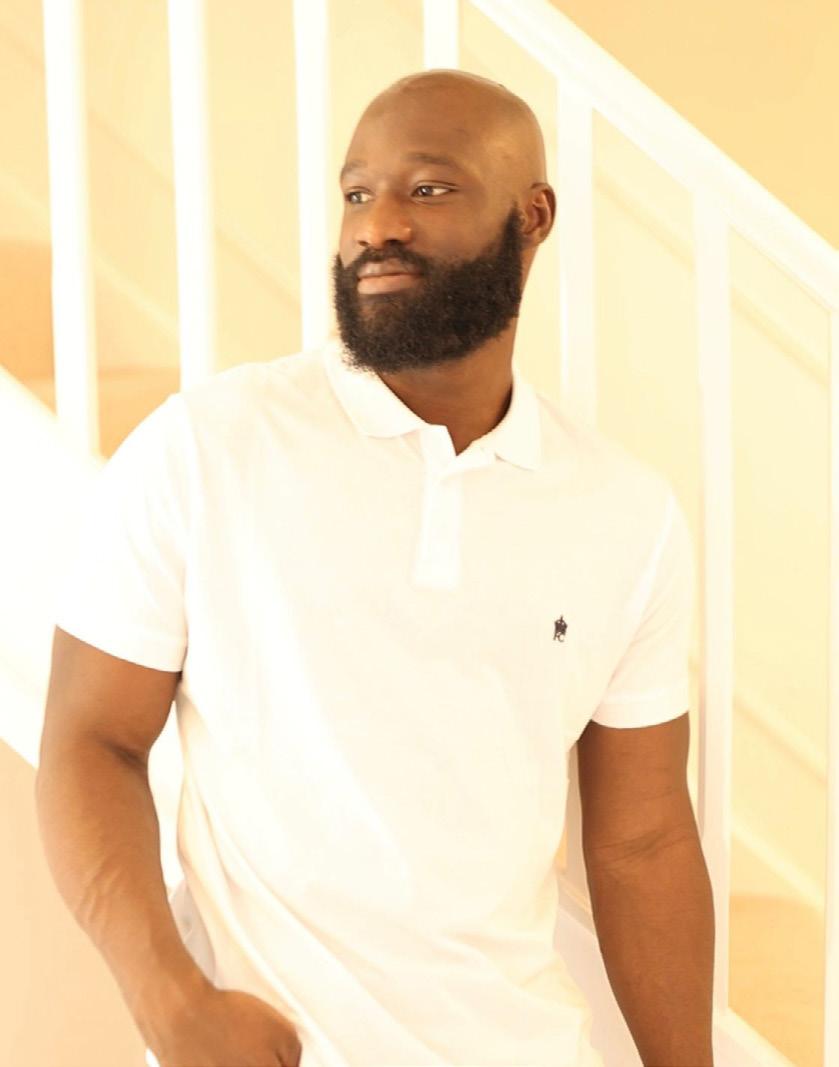
To explore more about Jedidiah, scan the QR code





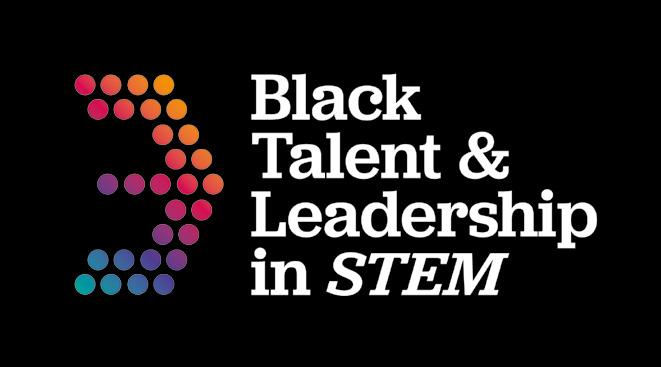
Olu Orugboh is the CEO and Founder of Synergy Solutions, a consultancy focused on helping businesses stay ahead of technological change and customer demands while future-proofing their operations. She also chairs Cambridge Wireless (CW) and co-founded Black Talent & Leadership in STEM to boost Black representation in STEM fields. With over 20 years of experience, Olu has guided startups to FTSE-listed companies through digital transformation, and she is committed to using technology to create more resilient, inclusive businesses and communities.
Synergy Solutions focuses on keeping companies ahead in the ever-changing world of customer experience. What inspired you to start the consultancy, and how has the role of customer experience evolved in the digital age?
I have always been interested in joining companies and working alongside them to help them solve problems. I started my life in consultancy, working with call centres, building them, and troubleshooting them to help them perform better. I firmly believe in placing the customer at the heart of everything. Companies that stop listening do so at their peril.
Customer experience has definitely evolved in the digital age. Customers expect personalised, easy-toaccess service on demand, whether placing an order with a couple of clicks from their device, receiving goods and services with ever-decreasing lead times, or transferring money to the other side of the world within seconds. Dissatisfaction and disgruntlement are widely
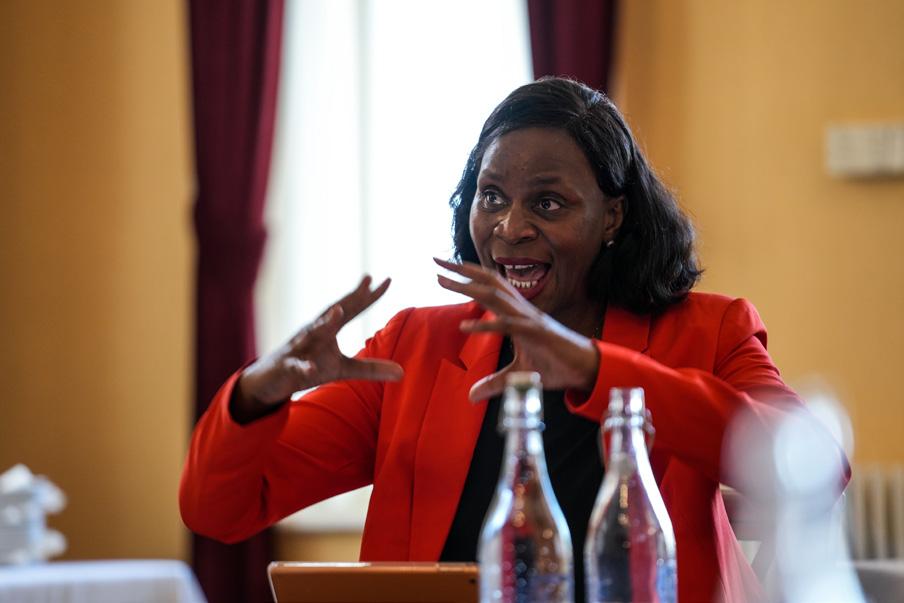
broadcasted through high-volume social channels.
As
Chair of Cambridge Wireless (CW), what are the key technology trends driving the future of business, and how is CW nurturing innovation within its community?
We have just completed Cambridge Tech Week, which, by the way, was 400% bigger than the previous year. In addition to seeing the vibrant conversations relating to AI and Quantum computing, underpinning these technologies is the convergence of hardware, software, connectivity and data to drive innovation.
Seeing the innovations amongst our startup community as part of Cambridge Tech Week was encouraging through our Innovation Alley, where some of the brightest early-stage companies demonstrated their cutting-edge technology in front of a global audience. These ranged from smart ways to tackle city challenges, such as pollution management and air quality, to solutions to real-world problems, such as reducing the carbon footprint, to technologies that enable businesses to automate the complex process of managing compliance. This allows them to focus on growth while maintaining regulatory adherence.
Investment in future skills is a big driver behind the ongoing growth in technology and innovation. In this instance, Tech Futures Day took place, providing the opportunity for young people to access some of the available technologies within the Cambridge Science Park and meet with employers, giving them insight into the career options available within the sector.
a pivotal
initiative to increase representation in STEM industries. What systemic barriers do Black professionals face in these fields, and how does your organisation work to dismantle them?
We have just had our Roundtable discussions as part of Cambridge Tech Week. One of the biggest observations is an over-focus on responding to the immediate industry needs relating to the digital skills gap. The UK has long been a global leader in scientific research and innovation. STEM (Science, Technology, Engineering, and Mathematics) disciplines are crucial in driving the country’s progress and economic growth. However, despite these achievements, the UK’s STEM workforce still lacks adequate representation of diverse backgrounds, limiting its potential and competitive edge on the global stage.
Despite these challenges, we hear from Black individuals and other minoritised ethnic communities that they are either struggling to access roles or, where they have successfully embarked on their careers, are struggling within the workplace. The numbers speak for themselves. Grouping race under one category masks the variations in numbers and the very specific experiences of each minoritised ethnic group. The STEM workforce has a comparable share of Black, Asian and racially minoritised workers to the rest of the UK workforce (12%), when the data is looked at in more granularity, STEM has a lower share of Black workers (2% in engineering, technology, science and maths compared to 3% in the rest of the workforce) according to the APPG on Diversity and Inclusion in STEM, 2021.
Beyond industry-related barriers, such as access to roles and discrimination in the workplace, what is clear from our research is that the issues occur much earlier in early education. Whether this be the lack of school resources to equip young Black people with the knowledge and skills required to enter the sector or the lack of role models. Young people are also struggling to get their foot in the door, and Black professionals are experiencing barriers in the workplace which are impeding their ability to progress into C-suite and board-level roles.
The reality is that a diverse workforce alone will not solve the problem. Creating an inclusive culture, with equitable pay levels that cultivate a sense of belonging, is vital to attracting, retaining and progressing Black individuals and other minoritised ethnic groups into the sector.
We addressed these challenges by setting up Black Talent & Leadership in STEM, a cross-industry partner initiative. Delivered in collaboration with CW (Cambridge Wireless), Homerton Changemakers, Homerton College, University of Cambridge and Synergy Solutions. The organisation brings together senior leaders from within STEM to urgently address the underrepresentation of Black talent within the sector and, in doing so, understand ways to alleviate some of the challenges relating to access to technical skills.
Some of our specific actions include working closely with industry leaders to provide the insight, tools and guidance needed to enable them to deliver meaningful impact within their respective organisations. This is in addition to engaging with Black talent early on in their career to provide workplace opportunities and support.
Digital technology has a significant impact on underserved communities. How do you see technology contributing to a more equitable society, and what more needs to be done to ensure that marginalised groups benefit from digital advancements?
It is really important to recognise that a one-size-fitsall approach will not solve the problem of creating a more equitable society. Working at a grassroots level with schools to increase the proportion of children from marginalised groups who study the subjects needed to enter into tech roles is key. Increasing the level of Black academic representation in further and higher education is paramount so that young Black people wanting to access roles across tech and the wider STEM sector see role models who look like them and feel supported as they pursue their studies. Working alongside the industry also ensures that we do not close the pipeline to up-and-coming Black talent, resulting in them experiencing barriers to getting their foot in the door and progressing within the industry.
We need to have representation. Diverse teams and organisations matter, and significant research shows the financial benefit of diverse teams. Separately, a lack of diverse teams creates the risk that tech will develop and will not consider the unique characteristics of a whole community. We often hear of cases where AI models have been developed with inbuilt bias, resulting in discrimination across a range of areas, including the justice system, with its associated repercussions.
As a Black woman and a technology and customer experience leader, what advice do you have for other women and underrepresented groups looking to break into the tech industry?
Getting plugged into the right industry networks, getting a mentor, and connecting to programmes that provide workplace opportunities for underrepresented groups breaking into the tech industry is really important. We have specifically created Black Talent & Leadership in STEM in response to this problem.
Your top tip for maintaining resilience in business?
Before creating resilience in your business, it is important to ensure that you have protected your personal resilience. I have seen leaders burn out as they juggle to deliver against increased demands.
The book or podcast that’s influenced your career the most?
Feel the Fear and Do it Anyway. After I had read it, I took the bold step of starting my own business. This was particularly daunting as the main breadwinner with two young children, but I did it and have not looked back since.
What’s the best piece of advice you’ve received?
My faith keeps me grounded. The best piece of advice for me is, “We are all here on this earth for a purpose; make it count,” and “There is no such thing as failure. It is just feedback on how to do things differently.”
What’s a project or initiative you’re most proud of?
Black Talent & Leadership in STEM. I am always wary of using the word “pride”, but I love the impact and progress that we are making both across organisations and to Black men and women striving to access and progress within roles in the field of STEM. Within a year, we have a growing and highly engaged community. Seeing our young people speaking on panels and at industry events was also lovely.
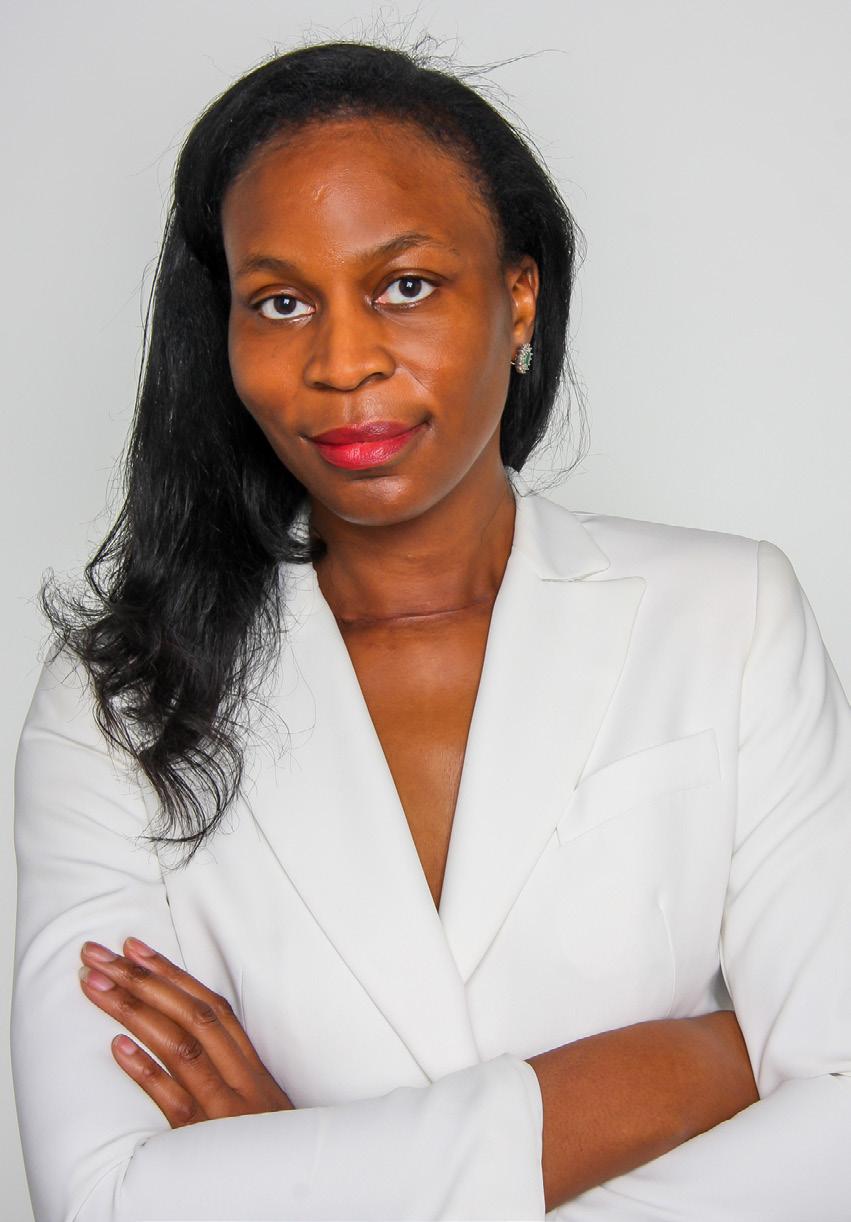
To explore more about Olu Orugboh, scan the QR code
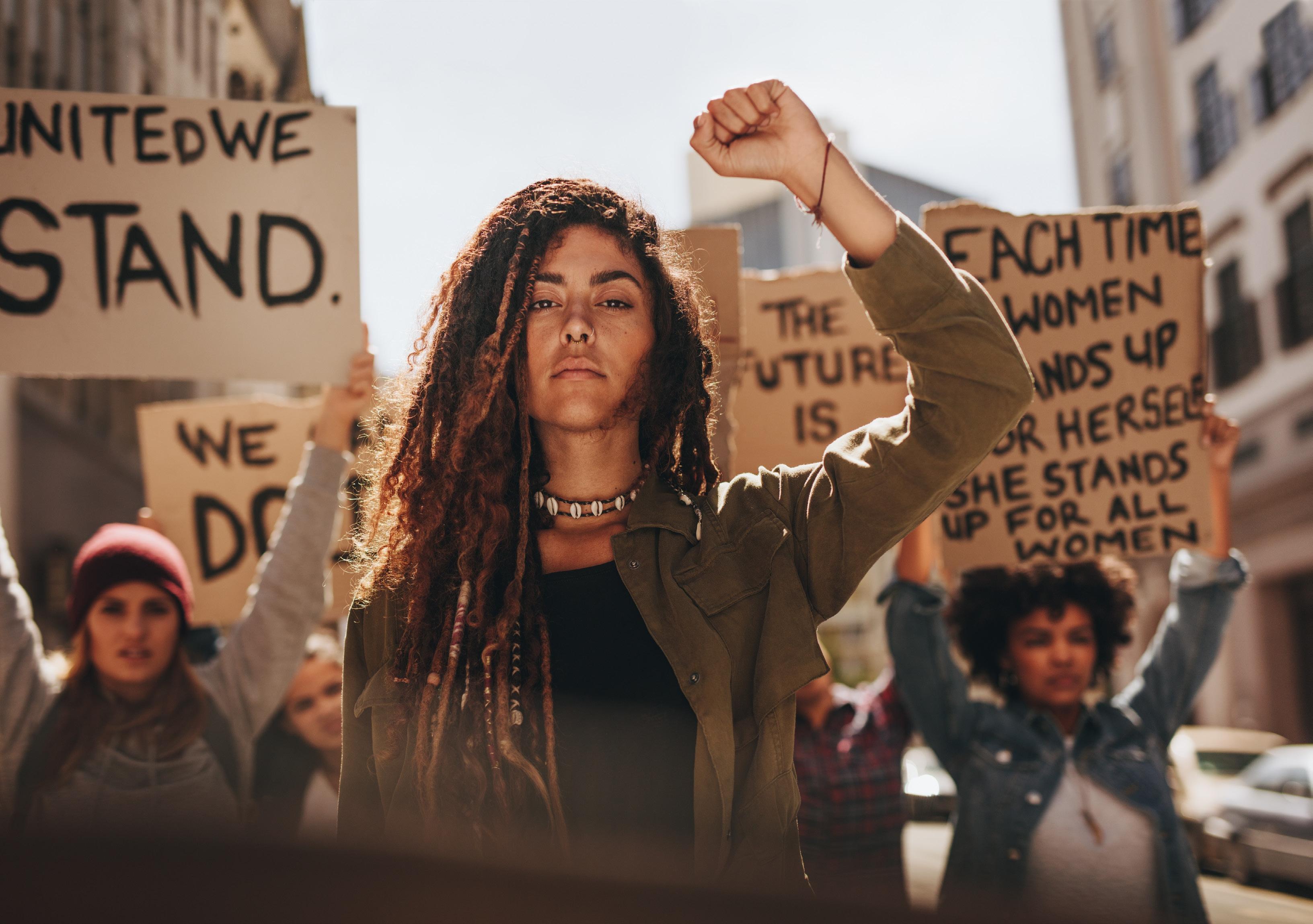
After the founder of Systematic-X, Dr Chantelle Larsen, almost died from Workplace Trauma, she knew it was not just her
75% of employees experience toxicity (culture amp 2024). It has surpassed epidemic numbers. Black people have been hit hard, and it’s time to be the change bottom up:
Call to Action: An equitable future depends on you taking our critical Marginalised Survey of past and current workplaces
A survey voice where you can thrive or avoid, led by the marginalised for the marginalised.



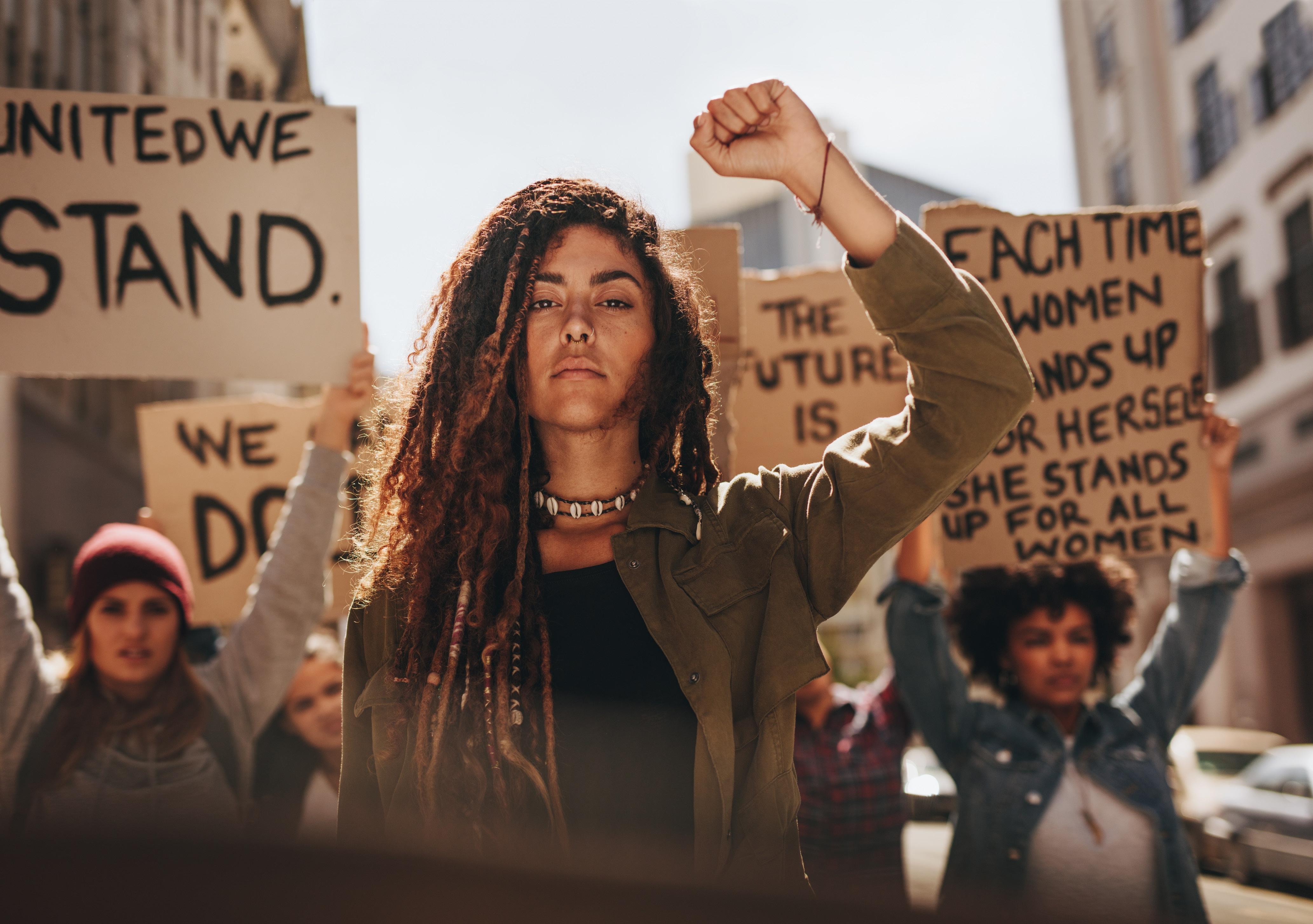
Affordable therapy, indigenous healing and coaching.
A railroad of support to roles and opportunities. The Equity Sanctuary Community (waitlist). www systematic-x com
hi@systematic-x com
By Rory D Chambers
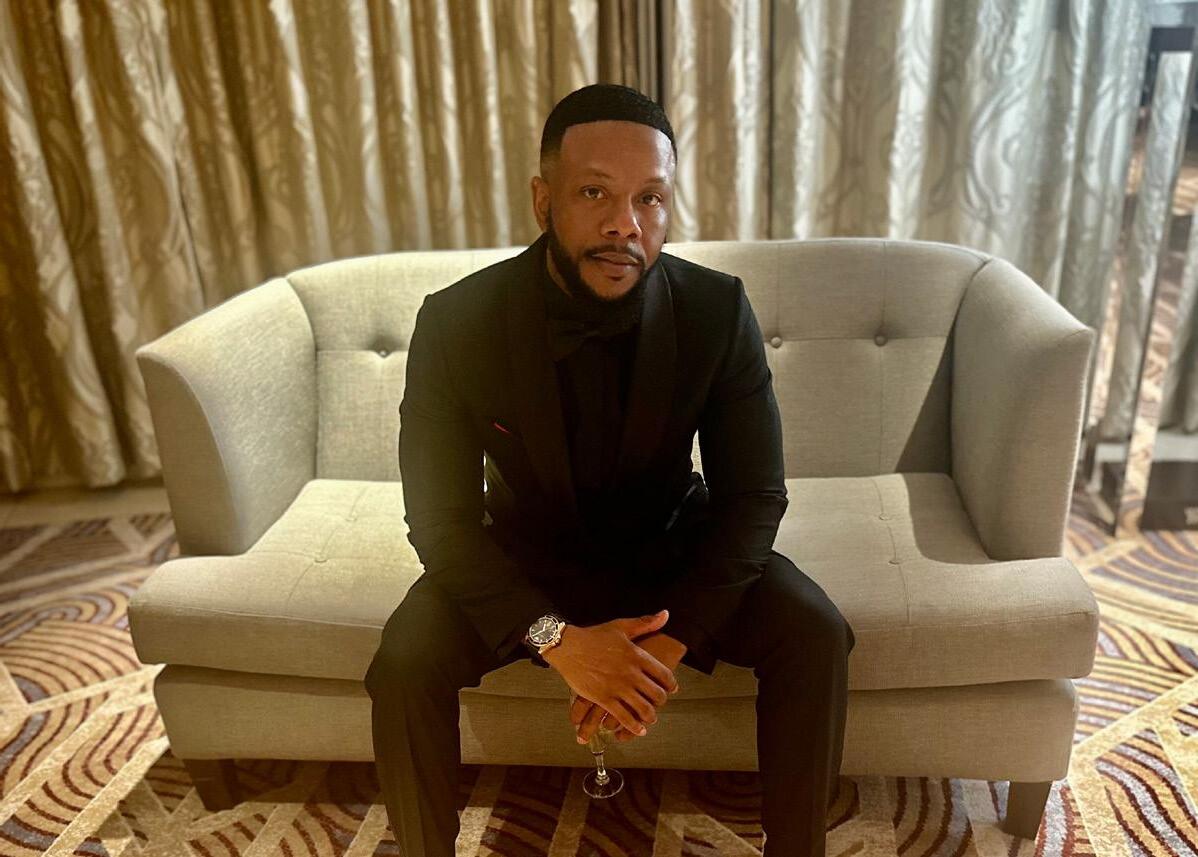
In today’s digital age, the ability to write compelling copy is more than just a skill. It’s a necessity for any business that wants to thrive. This is especially true for entrepreneurs, small business owners, and leaders who often struggle to juggle time, creativity, and costs to produce content that attracts and converts customers.
Here’s the exciting news: Artificial Intelligence (AI) is revolutionising how businesses create highconverting copy. AI offers powerful tools that allow you to craft engaging content in less time, with higher impact, and at a fraction of the cost.
As entrepreneurs continue breaking new ground, AI provides a unique opportunity to boost productivity and profitability through smart automation. In this article, we’ll explore how AI-powered copywriting tools can transform your business by generating persuasive sales copy, optimising marketing campaigns, and attracting the right audience, all without breaking the bank or spending countless hours on content creation.
Why Copywriting Matters: Traditionally, writing high-converting copy requires a deep understanding of your audience’s psychology,
a mastery of persuasive language, and expertlevel SEO techniques. This process has been timeconsuming and often costly for entrepreneurs, many of whom run lean operations with limited resources.
Enter AI: AI tools have disrupted traditional copywriting, offering automation without compromising quality. AI platforms like Jasper (formerly Jarvis) and Copy.ai can now produce highconverting sales copy, email marketing campaigns, and social media posts in a fraction of the time it would take a human writer. This means you can streamline content production and marketing efforts, freeing up time for other critical aspects of their business.
Speed and Efficiency: AI can generate multiple variations of a sales page, email, or social media post in minutes, allowing you to test and optimise copy for maximum conversions.
Data-Driven Insights: AI analyses past performance data to tailor copy that resonates with your target audience. This ensures each piece of content is optimised for engagement and conversion.
Cost Savings: AI tools are much more cost-effective than hiring full-time copywriters or outsourcing to expensive agencies, making them accessible to small business owners who need to stretch their marketing budgets.
Personalisation at Scale: Writing high-converting sales copy is critical for Black-owned businesses looking to scale. AI tools analyse industry data, competitor strategies, and even customer interactions to generate sales copy that truly resonates.
The Power of Personalisation: AI copywriting tools can personalise content based on customer data
like purchase history or preferences. This allows businesses to send targeted messages that speak directly to different audience segments, increasing the likelihood of conversions.
SEO Optimisation: Keeping up with the latest SEO rules is daunting for time-strapped entrepreneurs. AI tools automatically integrate SEO best practices into the copy, ensuring your content is optimised for search engines without requiring extensive technical knowledge.
Take, for example, an e-commerce brand specialising in skincare products. Using AI-powered tools, the business quickly generated SEO-optimised product descriptions tailored to various customer personas. The result? With less manual effort and time, an increase in organic traffic, improved search rankings, and higher conversion rates.
Content marketing is a powerful way to attract new customers, but it’s no secret that it can be time-consuming. This is where AI steps in, helping entrepreneurs create blog posts, social media updates, and even video scripts that engage audiences and drive conversions.
Tools like Frase and SurferSEO assist in generating content that is not only informative but also optimised for search engines. This makes it easier for business owners to reach a wider audience, build brand authority, and, most importantly, convert leads into loyal customers.
The Power of Trends: AI tools can analyse trending topics and conversations on platforms like Instagram and Twitter. This helps businesses create timely, relevant content that resonates with their followers and keeps them engaged.
More Time for Strategy: By automating social media copy creation, entrepreneurs can spend more time on strategy and audience engagement instead of getting bogged down with daily content creation.
Regular blog posts are essential for establishing authority and trust in any industry. AI tools can help
business owners generate blog topics, create outlines, and write full-length articles. This saves time and positions you as a thought leader in your field.
Tip for Success: While AI can generate content quickly, human oversight is still necessary. Ensure the tone and voice of your content reflect your brand’s personality and values, particularly when addressing a culturally diverse audience.
AI is more than just a passing trend - it’s the future of content creation and digital marketing. Black entrepreneurs who adopt AI tools today will gain a significant competitive edge by boosting their output while keeping costs low.
Scaling with AI
As your business grows, so too will your content needs. AI allows entrepreneurs to scale their content creation efforts without hiring large teams or external agencies. Whether you’re launching a new product or expanding into a new market, AI enables you to produce more content faster while maintaining quality and relevance.
Breaking Barriers with AI
Historically, Black entrepreneurs have faced systemic barriers, particularly in accessing capital and resources. AI helps level the playing field by providing affordable, efficient solutions to common business challenges like marketing, customer engagement, and content creation.
Now is the time for Black business owners to embrace AI as a tool for empowerment. Integrating AI into your copywriting and content strategy can save time, reduce costs, and achieve higher sales while staying true to your brand’s mission and values.
AI is transforming the way businesses create content. For entrepreneurs and small business owners, AI offers an invaluable tool to write high-converting copy, streamline marketing efforts, and drive profits. By leveraging AI for copywriting, you can focus on strategic growth, customer engagement, and staying ahead of the competition.
In a world where digital marketing is critical to success, AI empowers you to stay competitive, cut costs, and achieve greater outcomes with less effort. The future of AI in business is now, and it’s time for you to seize this game-changing opportunity.
Scan the QR Code to learn more

Z Digital’s Gabriel Imevbore and Anthony Ansah
Z Digital’s Gabriel Imevbore and Anthony Ansah are two forward-thinking entrepreneurs who have made significant strides in the tech industry. Anthony’s inspiring journey began with a bold decision to shift from studying law to pursuing a passion for software development. As a self-taught programmer, Anthony has gained extensive hands-on experience in web applications, mobile apps, enterprise software, and artificial intelligence. As founder of Z Digital, Anthony is now focused on helping businesses integrate software into their operations and providing accessible development services online.
Gabriel Imevbore is a visionary leader who became the youngest trustee in the 180-year history of YMCA Heart of England. As Sales Director of Z Digital and a multiple award winner, Gabriel is committed to driving growth in the tech landscape. His passion for social mobility and his belief in creating opportunities for hard-working individuals, regardless of their background, fuels his work at Z Digital.
Anthony, you transitioned from law to software development. What sparked this change, and how did you navigate the challenges of being a self-taught programmer?
I had an idea for an application which I wanted to build, but I didn’t have the money to fund its development, so I decided to attempt it myself; during that process, I developed a passion for software development and that made me realise that I was pursuing the wrong career. In terms of the challenges of being a self-taught programmer, they’re the same as the challenges of self-learning in any domain: maintaining consistency, accepting that you will spend a lot of time being ineffective and that improvements will be slow and incremental.
Gabriel, as the youngest trustee in 180 years at YMCA Heart of England, how do you balance this role with your
Balancing being a trustee and Sales Director at Z Digital isn’t too difficult. I’m lucky because we have our PA, Sabrina, at the YMCA. She’s great at planning ahead and keeping all of us as trustees up to date. I’m able to balance both of the roles mainly because of that support.
Anthony, you’ve worked with web applications, mobile apps, enterprise software, and AI. Which of these areas excites you the most right now, and why?
Artificial Intelligence. The nature of Artificial Intelligence allows advancements to feed off themselves, accelerating the rate of progress from what typical technological progress has looked like in the past. An example is that AI models were basic five years ago. Fast-forward to now, and we have models considered Turing Complete, a major breakthrough.
Gabriel, what are the biggest opportunities for Z Digital in the tech industry, especially when working with large organisations?
I believe Z Digital’s biggest opportunity will be delivering various tech solutions at the most cost-effective price while retaining our quality. This is the biggest opportunity for Z Digital to move forward when working with large organisations.
Anthony, how do you stay up-to-date with the rapid changes in technology, and what advice would you give to others pursuing a self-taught path in tech?
Understanding the technological baseline is key to knowing what to pay attention to and ignore. New shiny tools are always being released; many are just wrappers of existing technologies with some added functionality. Every so often, there will be some new progression worth paying attention to, so those are the ones I spend time trying to understand. In terms of advice, if you have an idea of something you’d like to see exist, try to build it in some form. In that process, you’ll encounter challenges and how you overcome those are the moments in which you’ll learn something new.
Gabriel, you’re passionate about social mobility. How does this belief shape your approach to leadership and decision-making at Z Digital?
Yes, I’m very passionate about social mobility, as it’s closely linked to my own career journey. It shapes my approach to leadership and decision-making by making me conscious of what type of company Z Digital will become.
Where do you envision Z Digital in the next five years, and what’s your shared mission for the company’s growth and impact in the tech landscape?
Five years from now, we’d like to see Z Digital as a consistent supplier to large organisations across multiple sectors. Supporting them with their tech solutions for the most cost-effective price. We’re confident that Z can make it into that position. We’re already working with two FTSE 100 companies, so our vision is to expand on that, deliver more and grow as we continue to do that.
Favourite podcast?
G: Huberman Labs – Andrew Huberman.
A: Shawn Ryan Show.
Dream dinner party guest?
G: Reginald F. Lewis.
A: Elon Musk.
Favourite Tech product?
G: Apple Mac Desktop.
A: Tesla self-driving technology.
What is your morning routine?
G: Gym, Sauna, Shower, Business.
A: Coffee, Shower, Coffee.
Who do you admire most?
G: God.
A: Marcus Aurelius.
To explore more about Gabriel Imevbore and Anthony Ansah, scan the QR code
Inspired by his mother’s battle with Alzheimer’s, Kevin Williams founded Smarter Home Technology in 2017 to improve the quality of life for those with life-impacting illnesses. His innovative solutions, like fall detection and wheelchair-friendly lighting systems, offer clients security, comfort, and independence. Driven by a desire to help others, Williams combines smart technology with personal care, creating bespoke services that support both users and their families. Smarter Home Technology stands out for its unique blend of innovation and compassion, helping clients regain control and improve their daily lives.
Smarter Home Technology was inspired by your mother’s diagnosis and life with Alzheimer’s. How did her experience influence the development of your company, and what motivated you to focus on using technology for health and safety?
My mother’s journey with Alzheimer’s gave me firsthand insight into the unique challenges that patients and their families face daily. Witnessing her struggle to navigate basic tasks motivated me to explore ways to use technology to ease the burden on both patients and caregivers. Smarter Home Technology was born to create a safer and more supportive home environment for individuals with dementia and similar conditions.
Your offerings range from home security to lighting controls for wheelchair users. What are some of the most innovative solutions you’ve developed, and how do they enhance your clients’ lives with conditions like dementia and autism?
We’ve developed several solutions, such as non-invasive lighting controls and motion-sensitive home automation systems. For dementia patients, lighting that adjusts automatically can reduce confusion during nighttime wandering. For individuals with autism, creating sensoryfriendly environments with customisable lighting and sound settings helps maintain a calm atmosphere. These solutions enhance safety and improve comfort by catering to their specific needs.
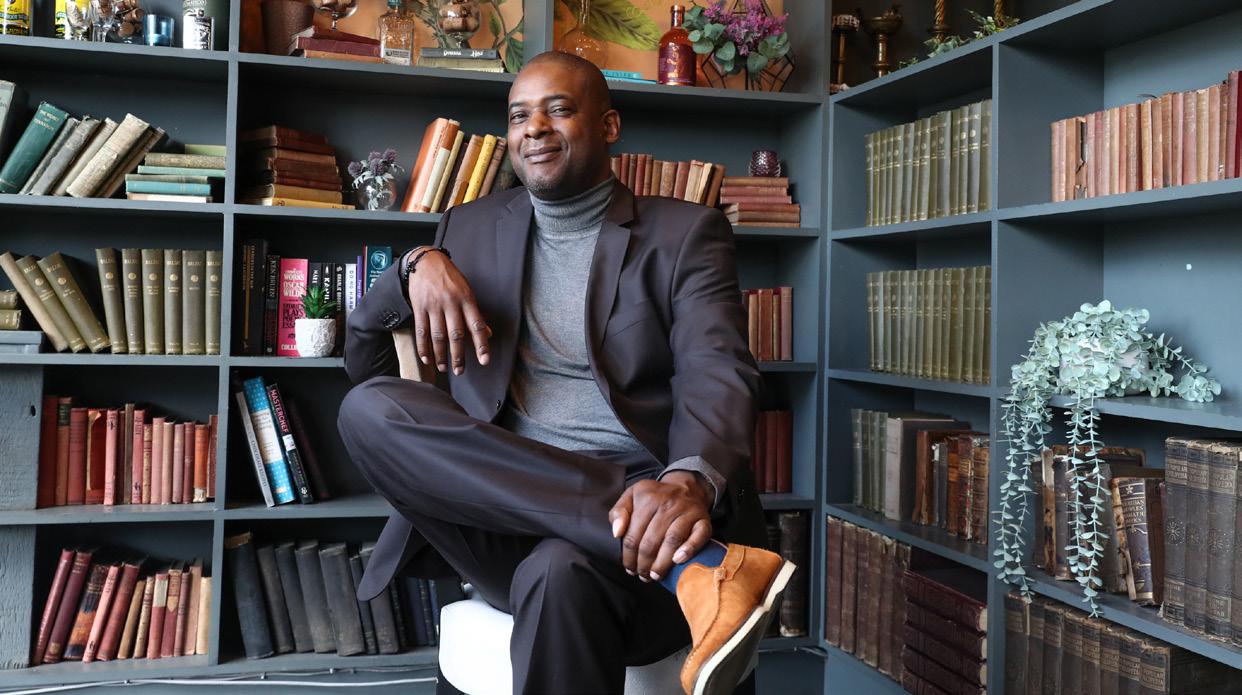
You’ve implemented non-wearable fall detection technology, which is incredibly thoughtful given the challenges dementia patients face. Can you explain how this works and why it’s crucial for families and caregivers?
While I didn’t develop the non-wearable fall detection technology myself, I sourced it to ensure that it meets the needs of dementia patients and their caregivers. Experts in the field design this technology to provide reliable and continuous monitoring, which is crucial for the safety and well-being of those with dementia.
In addition to functionality, Smarter Home Technology adds a touch of luxury to its solutions. What role do aesthetics and personal comfort play in improving clients’ quality of life, and how do you balance that with practicality?
Technology should serve a functional purpose and contribute to a home’s overall aesthetic and comfort. Our designs integrate seamlessly with modern home décor, ensuring that assistive technologies don’t feel intrusive or clinical. This balance is key because when technology is aesthetically pleasing and comfortable, clients are more likely to embrace and use it regularly.
Since launching in 2017, you’ve worked with clients facing various challenges. Can you share success stories where your technology has significantly improved a client’s daily life?
One of our clients, a gentleman with early-onset Alzheimer’s, was able to maintain his independence for longer due to our smart home system. We installed a combination of voice-controlled devices with automated lighting systems, allowing him to continue living in his home without constant supervision. The system provided reminders, adjusted the lighting for safety, and monitored his movements, helping his family feel secure while he remained more autonomous.
As someone with a background in IT, what challenges did you face when transitioning into the smart home technology industry, and how did your previous experience help shape your approach to this new venture?
The biggest challenge was understanding the unique needs of healthcare versus traditional IT, particularly the nuances of caring for vulnerable populations like dementia patients. My background in IT gave me a strong foundation in technology. Still, I had to develop a deeper understanding of creating user-friendly, accessible solutions for individuals struggling with cognitive or physical limitations. This transition taught me the importance of empathy in product design.
What is your long-term vision for Smarter Home Technology, and how do you plan to continue expanding your services to reach more people who need them?
My long-term vision is to expand our offerings to cover more healthcare-related needs, such as remote patient monitoring and AI-driven health alerts. We aim to make smart home technology accessible to a wider range of people, particularly ageing populations and those with disabilities, to ensure that technology can enhance the quality of life in a meaningful and affordable way.
Quick Fire Questions
What’s the most rewarding part of your work with Smarter Home Technology?
Knowing that our solutions help people live safer, more independent lives is incredibly fulfilling. What keeps me going is seeing the relief on caregivers’ faces when they know their loved ones are safer.
What would it be if you could introduce one new tech feature tomorrow?
I’d love to develop a more advanced AI system that can predict health issues before they happen, allowing families and healthcare providers to intervene early.
What’s the best piece of advice you’ve ever received?
“Solve a real problem, and the success will follow.” Focusing on creating meaningful solutions is key.
What’s one book or resource that has inspired your journey as an entrepreneur?
The Lean Startup by Eric Ries. It emphasises the importance of agility, learning from customers, and continuously improving your product.
What’s a key trait that entrepreneurs working in healthcare technology need to succeed?
Empathy: you must truly understand the people you’re serving to create technology that will improve their lives.
What’s one challenge you’ve overcome that made you a better business leader?
Learning to navigate the healthcare space has strict regulations and high stakes. It made me more detail-oriented and taught me the importance of compliance and trust in this industry.
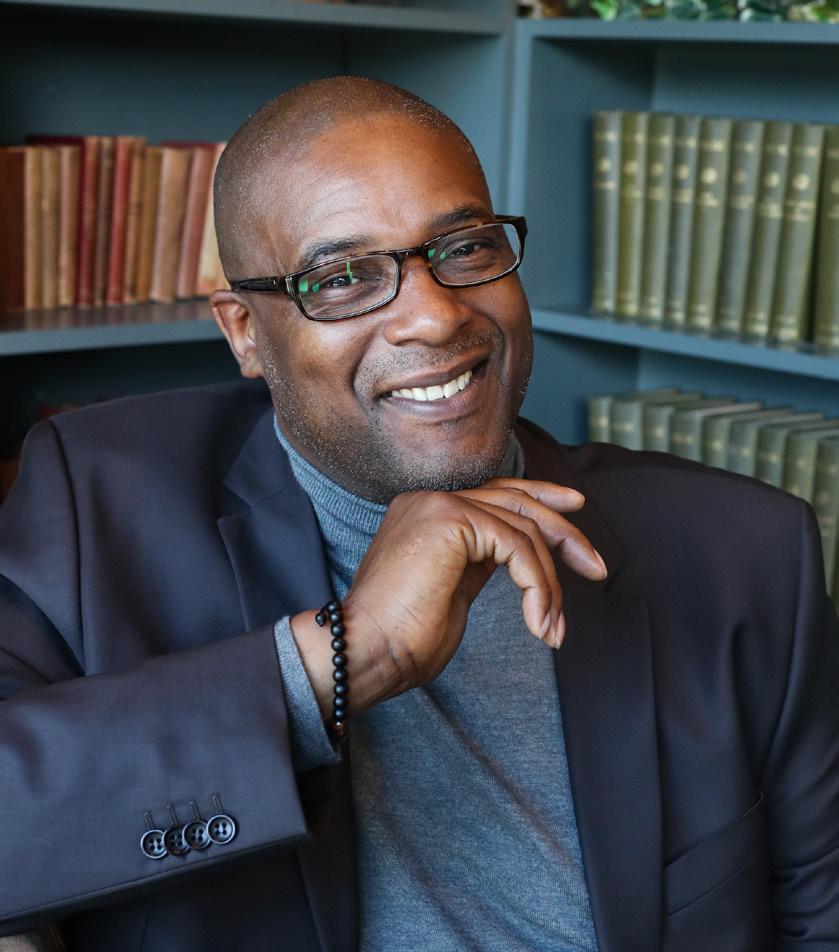
To explore more about Kevin Williams, scan the QR code
As the tech sector continues to grow, there is increasing recognition of the need for greater diversity and inclusion in the ecosystem. Blackowned tech companies in the UK are at the forefront of this movement, showing that diversity fuels innovation and success. With continued support and investment, these companies are poised to lead the future of tech, offering groundbreaking solutions that benefit everyone.
From fintech and cleantech to beauty tech and mental health, Black founders create profitable technologies, tackle social inequalities, and promote inclusivity. Here are our Top 10 Tech Brands to Watch.
Niyo Group is a multi-faceted digital enterprise focused on financial inclusion, wellness, and the creative industries. One of its most prominent ventures is Niyo Enterprise, which equips Black women with the skills and resources they need to enter the tech industry. The group’s fintech and talent-development platforms are revolutionising access to opportunities for underrepresented communities. Headed by CEO Oyin Adebayo, Niyo’s holistic approach to tech and empowerment is making waves in fintech and across creative and well-being sectors. www.niyo.co
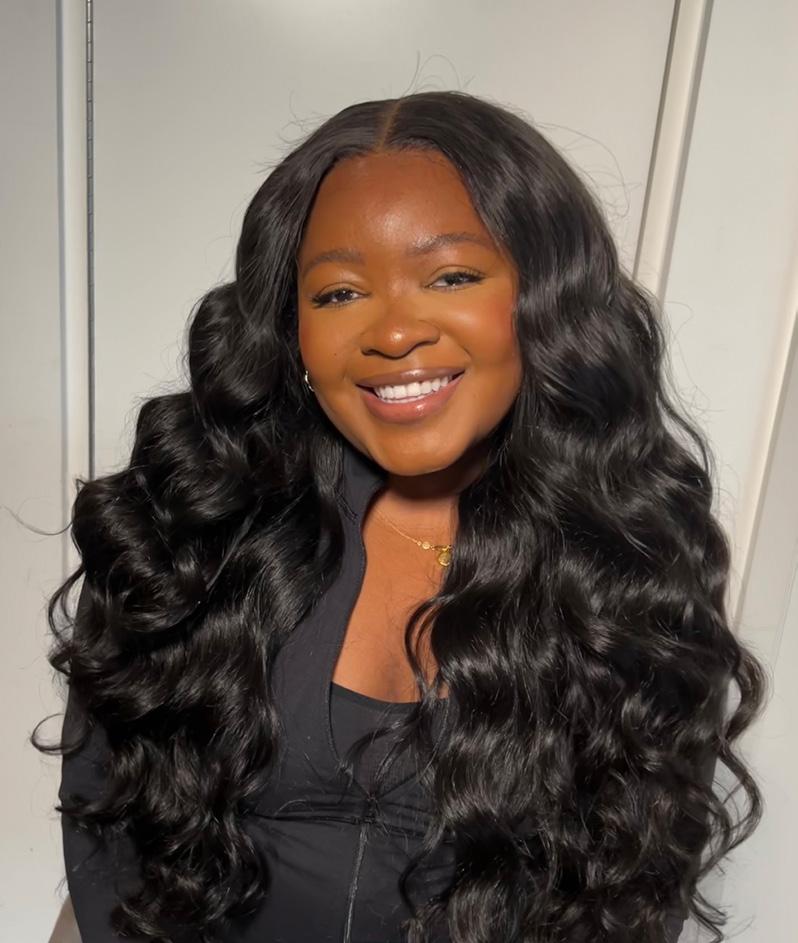
Co-founded by Tendai Moyo and Lendel Moatshe, Ruka Hair is revolutionising the beauty tech industry. The company leverages technology to create premium hair extensions for women with afro-textured hair. Ruka’s focus on sustainability and innovation has led them to develop hair products that combine the needs of their market with advanced tech-driven solutions. With a strong online presence and commitment to community, Ruka is changing the face of the beauty industry while centering on Black women and their unique beauty needs.
www.rukahair.com
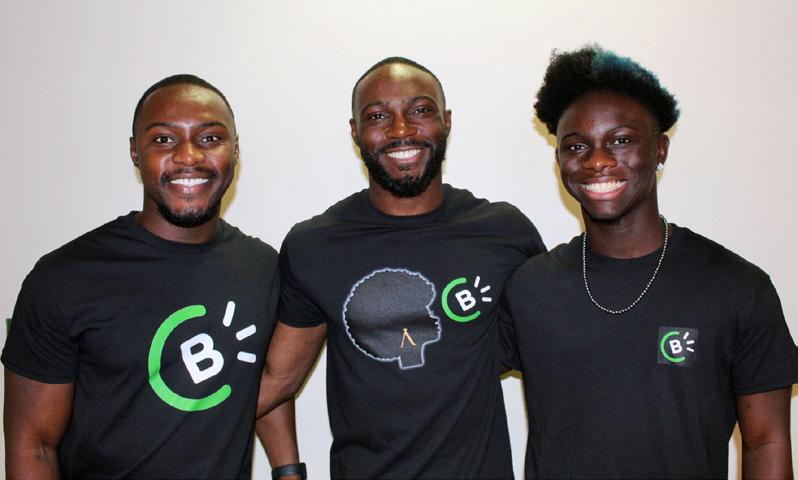
Cashblack is a groundbreaking platform that transforms the cashback landscape for Blackowned businesses. Founded by three brothers – Matthew, Jonathan, and Nicholas Addai – in the summer of 2020, Cashblack’s mission is to decrease the racial wealth gap by financially incentivising shoppers to support Black-owned businesses. Cashblack offers a robust network to connect consumers with over 700 Black-owned brands, integrating a user-friendly website and mobile app. It also has partnerships with food delivery giants Deliveroo, Just Eat, and Uber Eats, enabling members to order from local Blackowned food vendors.
www.cashblack.com
Ruby Jackson, a 23-year-old student midwife, has developed “Melanatal,” an app to raise awareness of how maternal and neonatal conditions like jaundice and pre-eclampsia present on black and brown skin. Inspired by a placement in Ghana and the alarming disparity in maternal mortality
rates for Black women in the UK, Jackson hopes to bridge this critical gap in healthcare. With support from the NHS Clinical Entrepreneur Programme, she plans to pilot the app in a healthcare trust soon. www.melanatal.com
Ade Hassan founded Nubian Skin, a pioneering fashion tech brand offering inclusive lingerie and hosiery for women of colour. Frustrated by the lack of nude options for darker skin tones, Hassan created a line that caters specifically to Black and brown women, combining innovative fabric technology with a range of shades that reflect the diversity of skin tones. The brand has gained international acclaim for challenging industry norms and promoting inclusivity in fashion. Nubian Skin’s digital fitting tools and commitment to representation make it a standout in the techenabled fashion space. www.nubianskin.com
Tech-driven lifestyle platform Yard + Parish connects consumers with Black-owned brands, specialising in sustainable fashion, beauty, and lifestyle products. The brand uses advanced e-commerce technology to highlight independent Black businesses and drive ethical consumerism. At the heart of the company is an ethos of support and celebration of BPOC businesses, aiming to make sustainable products more accessible. Each brand is steeped in tradition or specialises in style innovations for curly/Afro hair types and melaninrich skin.
www.yardandparish.com
Naitram is an event management platform that aims to enhance attendees’ experiences by offering more than just access to events. The platform, founded by Amari Lewis Simpson, is revolutionising the event and entertainment industry by integrating cutting-edge technologies such as blockchain, NFTs, and virtual reality. It provides features like a reward system, where participants can earn tokens ($MRT Tokens) for engaging with the platform and attending events, which can be redeemed for exclusive perks such as VIP access and meet-and-greets. Naitram is designed to revolutionise how people interact with events, whether a conference, festival or corporate gathering, by making the experience more interactive and rewarding.
www.naitramlive.com
JamboPay is a fintech company founded by Danson Muchemi that specialises in secure digital payments. While founded in Kenya, JamboPay has expanded its services to the UK, helping businesses and consumers easily manage online payments and transactions. With a strong focus on offering solutions to the unbanked and underbanked populations, the company’s technology empowers users across borders to manage their finances securely and efficiently. JamboPay’s commitment to financial inclusion makes it a leader in the fintech space.
www.jambopay.com
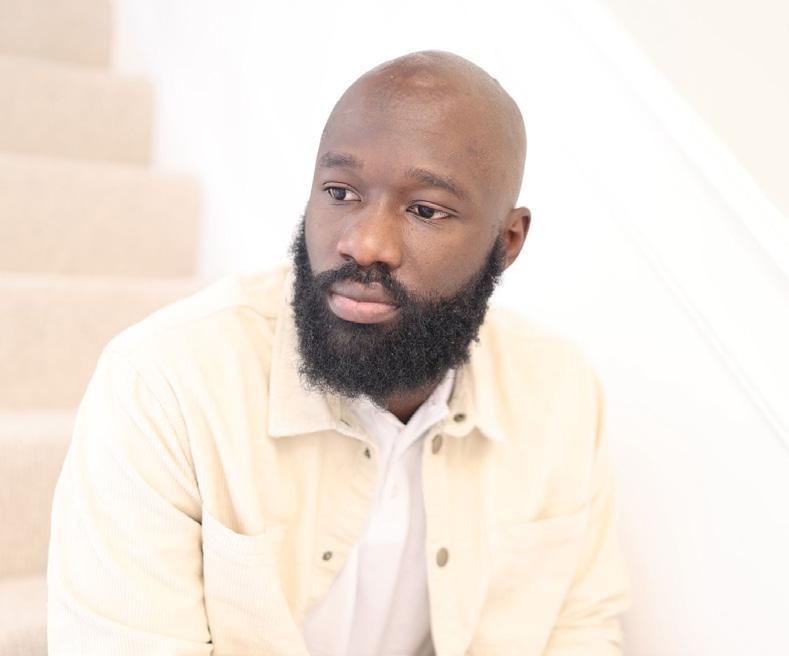
Agenly AI is a tech company that provides artificial intelligence-driven solutions for businesses. Founded by Jedidiah A-Ackah, Agenly AI helps you create human-like, multilingual AI agents trained in your company’s data and brand voice. It offers tools to streamline operations, enhance decision-making processes, and improve customer engagement through automation and data analysis. By leveraging cutting-edge AI technology, Agenly AI aims to help businesses optimise their workflows, increase efficiency, and deliver better results.
www.agenly.ai
Established by Kevin Williams in 2018, Smarter Home Technology specialises in creating customised smart home solutions designed to cater to the unique preferences of individuals and families seeking a more convenient and efficient lifestyle. Smarter Home Technology integrates many home automation needs into a cohesive, intelligent, and user-friendly system. It provides seamless control and accessibility for all aspects of a smart home and ensures a personalised experience tailored to the user’s requirements. www.smarterhometechnology.co.uk
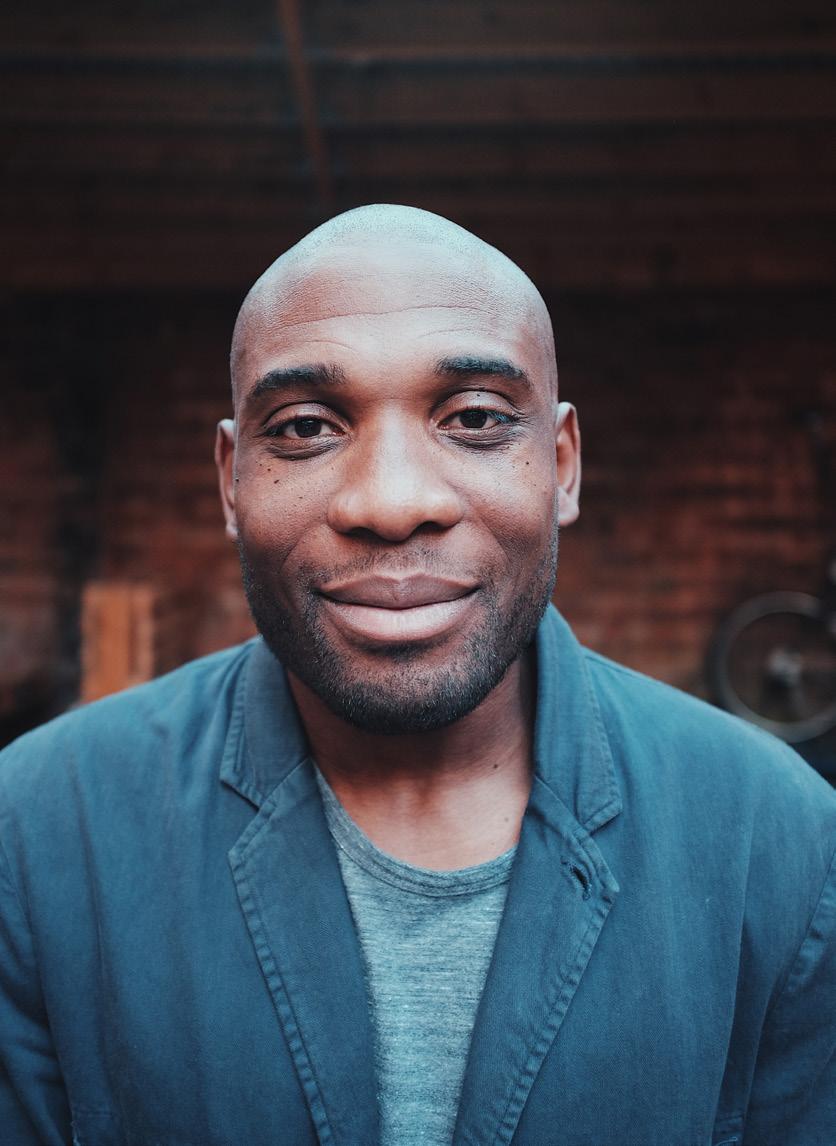
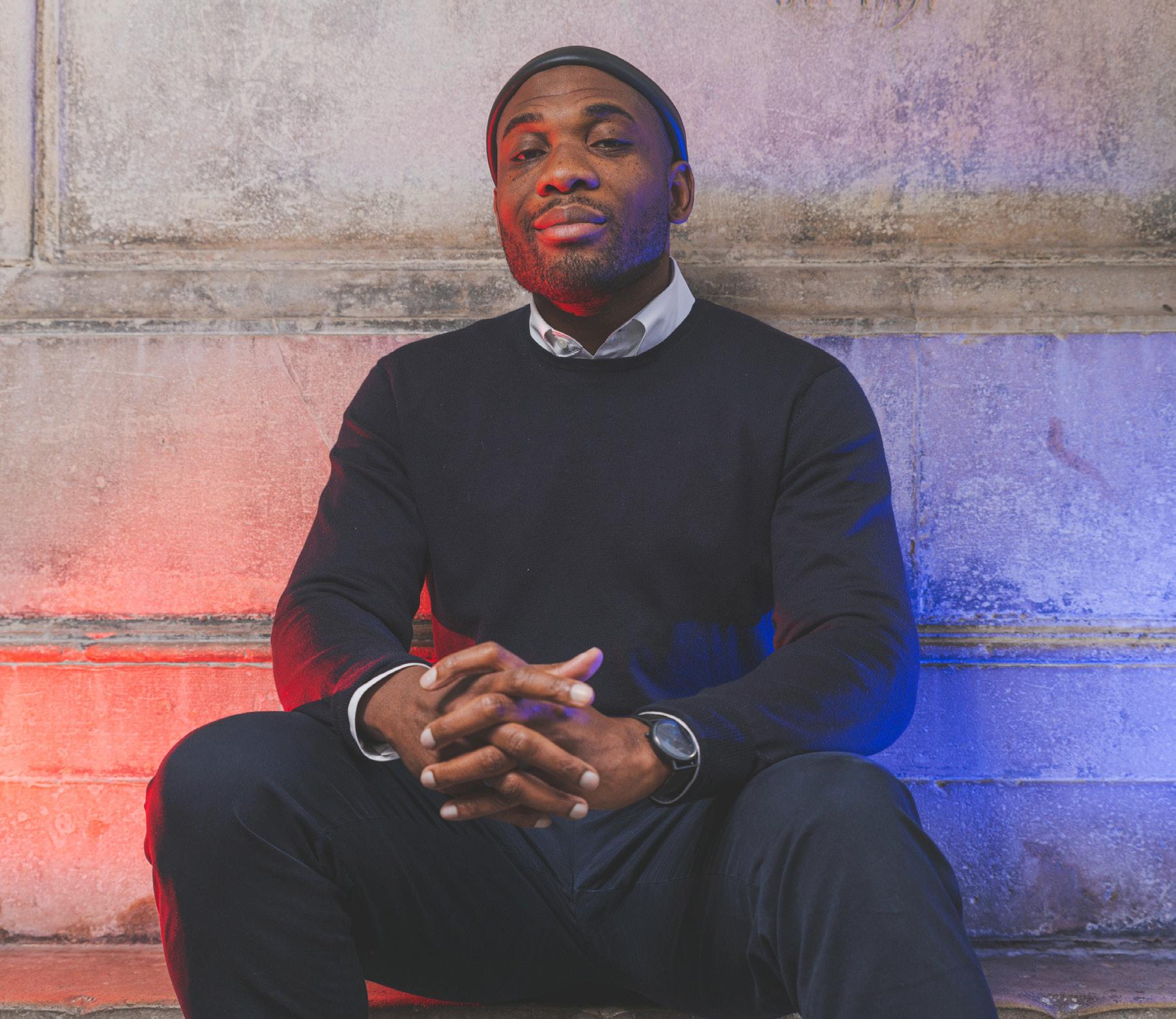

Ben Lindsay OBE is a passionate leader in the fight against youth violence and founder of Power The Fight, the 2023 Charity of the Year, according to Charity Times. Since launching the charity in 2019, Ben has raised £3 million to empower communities to tackle youth violence head-on. A winner of the Charity Times Social Media Leader of the Year 2023 and Rising Leader Award 2022, Ben is also a recognised voice in London’s influential circles, named one of The Evening Standard’s Progress 1000 in 2018.
With over 19 years of experience working with high-risk youth, Ben has developed impactful programmes across London, including the knife crime prevention initiative Double Edge. His work extends to serving on the Mayor of London’s Violence Reduction Unit and authoring the No.1 bestseller We Need To Talk About Race. Ben was awarded an OBE in King Charles’ first New Years Honours List for services to communities in South East London.
Power the Fight has been instrumental in addressing youth violence. What motivated you to focus on this issue, and how has your experience shaped the charity’s vision?
For 25 years, I have worked with vulnerable young people and families in schools, youth offending services, community safety teams, and a mental health charity. In 2016, while pastoring a church in SE London, I found myself supporting the community following the death of a popular local boy – Myron Yarde – who was killed in New Cross. I had known Myron since he was a baby. At his funeral, his best friend Leoandro Osemeke gave a eulogy to Myron. It was heartbreaking to hear a young person speak about the death of their friend, another child. Leonandro delivered his speech with youthfulness and sorrow. Four months later, Leoandro was killed in Peckham. Two young men were gone, and a collective trauma engulfed the community. At Leonandro’s funeral, 500 children in school uniform came to say goodbye. There were only a handful of adults in attendance. After this devastating experience, I decided to use my expertise as a mentor, pastor, and facilitator, as well as my experience of policy engagement and family support, to launch Power The Fight, which empowers communities to end violence affecting young people.
You’ve worked extensively in some of London’s most challenging areas, including Brixton and Lewisham.
What are the unique challenges facing Black communities when it comes to youth violence, and how does Power the Fight address these issues?
It’s important to say that violence affecting young people is not a Black issue. However, we must acknowledge that in inner city areas such as parts of London and the West Midlands, for example, knife crime disproportionately impacts Black and Brown communities. Often, the media headlines point to absent fathers and UK drill music as the cause for the disproportionality. Still, the media rarely talks about structural and systemic issues that have impacted Black communities for decades.
Our work falls under three pillars:
1. Supporting young people and families
Power The Fight supports young people and families by providing access to culturally sensitive therapeutic, financial, and legal support.
2. Training and resources
Our training and resources educate, equip, engage and enable communities, working alongside statutory and strategic organisations, to be part of the solution to the issue of violence affecting young people in the UK.
3. Advocate for system change
We advocate for system change by engaging with policymakers such as the Mayor of London’s Violence Reduction Unit (VRU) and local and central government, ensuring that communities and individuals within those feel safer, supported, and heard.
Power the Fight has raised over £3 million in just five years. What do you think has resonated most with donors and supporters, and how do you ensure that the communities most affected by violence benefit directly from this funding?
Knife crime and violence affecting young people - while topical - is not an easy cause to fundraise for. When a child is diagnosed with cancer, the general public rightly responds with compassion and empathy. With youth violence, there is often a suspicion that it’s the child’s fault, about the area they are from or their upbringing. Power The Fight has worked very hard to challenge these misconceptions and humanise the stories of young people and families connected. We’ve been able
to broaden the conversation to include mental health, violence affecting women and girls, and the education system. Widening the lens to include systemic, institutional, and structural issues helps us engage people interested in investing in tackling root causes. We have a solid evidence base that shows the work we are doing is having an impact. Money raised has allowed us to build an incredible cross-disciplinary team of youth practitioners, psychologists, counsellors, and trainers working with local communities. Money raised also goes to communities impacted by violence and community projects.
Your book We Need to Talk About Race focuses on the Black experience in white-majority churches. How has this experience influenced your leadership and your approach to advocating for Black communities in your work?
One of my favourite quotes is, “Accessibility is being able to get in the building. Diversity is getting invited to the table. Inclusion is having a voice at the table. Belonging is having your voice heard at the table.” The book is about belonging. While the book was about the UK church, the content transfers into multiple areas of the Black experience in UK life. As one of the few Black male CEOs in the voluntary sector, I navigate spaces that often discriminate, alienate or stereotype Black men. Writing a book that gives Black people the language and confidence to push through these barriers has been affirming. I’m proud to have built a diverse team at Power The Fight and an all-female senior leadership team. Many white church leaders I’ve encountered sadly lacked cultural sensitivity, which I’d define as the lifelong process of self-reflection, self-critique, and commitment to understanding and respecting different points of view and engaging humbly, authentically, and from a place of learning. This has made me determined to take a different approach to leadership. Communities need humble servant leaders who are community champions, not empire builders.
The
intersection of race, mental health, and youth violence is a significant issue in the UK.
What role do cultural understanding and sensitivity play in tackling these issues, and how is Power the Fight working to provide support that is genuinely relevant to Black communities?
It is widely acknowledged that violence affecting young people devastates the lives of young people, families, and communities. What has become clear is that communities impacted by violence do not readily access therapeutic support – specifically culturally sensitive therapeutic help. Evidence shows that race and gender are significant factors in the relationship between the prevalence of mental health conditions, access to treatment, and positive health outcomes, suggesting severe gaps in the way in which diverse communities are being served. In 2021, Power The Fight released the Therapeutic Intervention for Peace (TIP) Report - Culturally Competent Responses to Serious Youth Violence in London. One of the questions the report tried to answer was whether the lack of cultural sensitivity among therapeutic professionals contributes significantly to the low uptake of therapy by Black and brown communities. Two of the key findings included:
1. Marginalised groups often deeply distrust organisations and institutions due to consistent experiences of structural harm through inequality in health care, education, and criminal justice systems.
2. For Black people, particularly, trusting relationships with professionals, rely greatly on representation and cultural sensitivity. Young people and families are likelier to speak with practitioners who share or understand their ethnic background and culture.
Power The Fight addresses these two points through our Therapeutic Intervention for Peace (TIP) Programme, a co-developed and culturally sensitive conduit model of partnership work that aims to reduce interpersonal violence affecting young people through preventative, holistic, and whole systems change. In the last three years, Power The Fight has engaged 175 young people at two mainstream secondary schools and one alternative provision in group work and 1:1 therapeutic sessions. 89% of the students showed a positive change in their emotional health and wellbeing.
You’ve been involved in policy and advisory roles, including with the Mayor of London’s Violence Reduction Unit. What are some of the fundamental changes or interventions that you believe would make a difference in reducing youth violence?
I believe that the issue of violence affecting young people needs to be addressed through three stages of intervention:
1 INDIVIDUAL: Co-developed therapeutic group work, 1:1 sessions with young people, and supported referrals to services or therapies.
2 SOCIAL: Cultural sensitivity training, co-produced reflective practice spaces for practitioners and professionals, co-produced reflective practice spaces for parents and families, Auditing, consultancy, and incident response support.
3 STRUCTURAL: Meet and engage with policymakers, increase academic scholarship, use evaluation and research to inform evidence-based practice, provide accessible mental health services for those most impacted by structural violence, and promote systemic change.
From your years of experience, what are the most critical steps that need to be taken to break the cycle of youth violence, and how can local organisations, faith groups, and even businesses contribute to this mission?
Our training equips people to engage with the issues of violence affecting young people at a community level. We advocate working through co-production and co-design with communities impacted by and experiencing violence. This requires local authorities, local organisations, and faith groups to show humility and take a posture of learning. Financial support is also vital – particularly the release of unrestricted funds (finance not connected to a particular timesensitive project). This allows for innovation and flexibility when building grassroots, youth-focused organisations. Cultural sensitive statutory services such as schools, police, NHS, and social services who genuinely have a cultural awareness and intelligence to engage with diverse communities. We must also acknowledge racism as a safeguarding issue. At Power The Fight, we have a fantastic community of supporters. Our Patron’s Circle is just one of how individuals and businesses can engage with us and contribute to our mission to end violence affecting young people.
What’s next for Power the Fight? As you continue to expand, how do you hope to deepen your impact in Black communities, and what are your long-term goals for addressing the root causes of youth violence?
We will continue to be a beacon of light in a dark place, offering hope, empathy, and compassion. We will continue to support young people and families at risk of violence and continue to speak truth to power. Interest in our training continues to grow across the UK, and we will expand our school’s programme by building on the findings of our recent impact report. We also have exciting partnerships lined up for 2025. Watch this space.
Quick Fire Questions
What’s the first thing you do when you start your day?
Pray. Read. Run.
Who has been the biggest influence in your life or career?
Three incredible women: Grandmother. Mum. My wife.
What book or podcast are you currently enjoying?
Moses Mckenzie – An Olive Grove In Ends and Darcus Beese – A Rebel with a Cause.
What would you be doing if you weren’t leading Power the Fight?
Still supporting my local community.
What’s one thing people would be surprised to learn about you?
I’m the best DJ you’ll ever hear!
What’s your favourite place in London?
Stamford Bridge.
If you could give your younger self one piece of advice, what would it be?
Invest in property.
To explore more about Ben and Power The Fight, scan the QR code
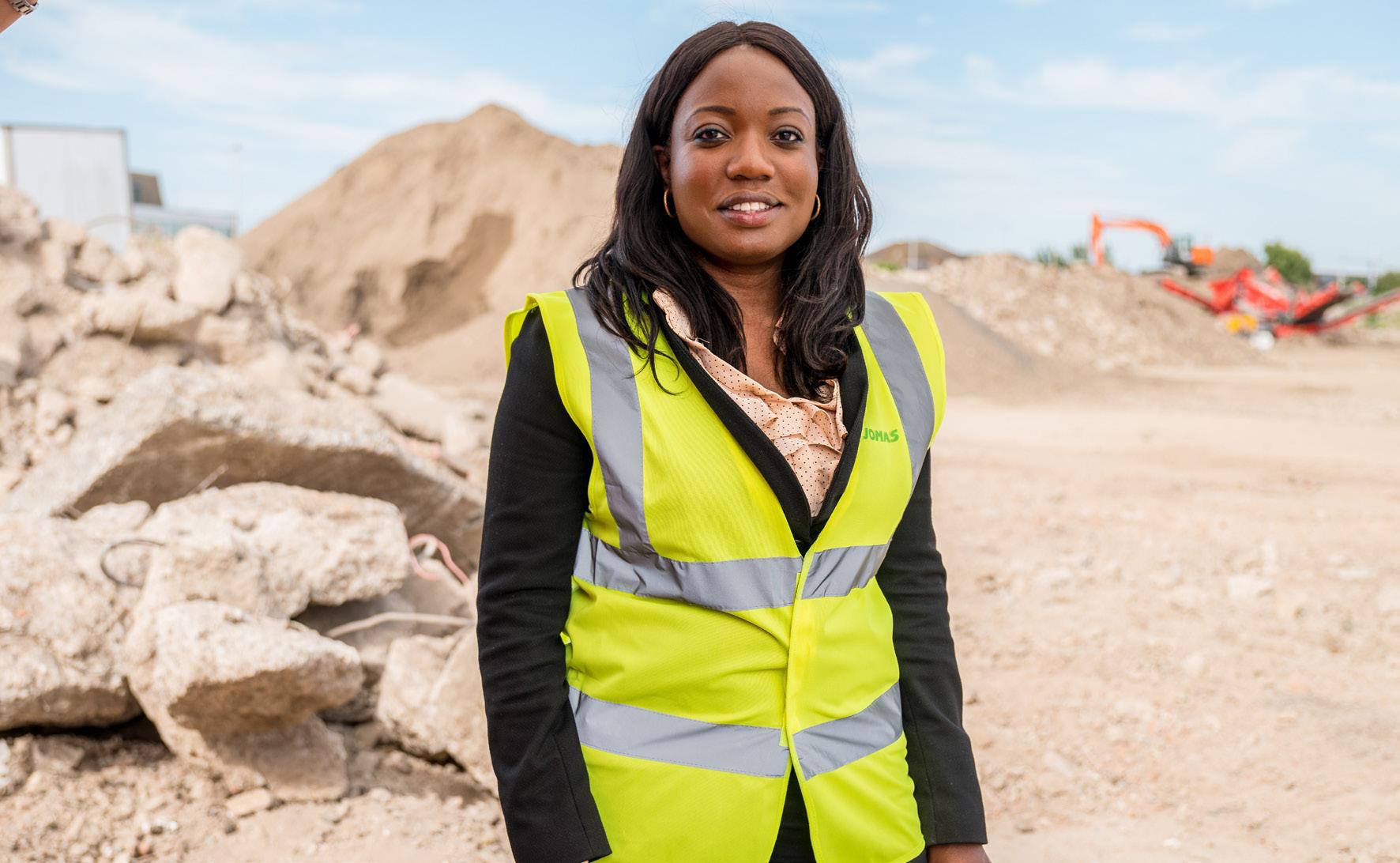
Dr. Roni Savage, named Most Influential Woman in Construction 2022, is a Chartered Engineer, Chartered Geologist, and the founder of Jomas Associates, a leading engineering consultancy. A passionate advocate for diversity, gender equality, and social mobility, Roni’s work spans major UK construction projects and influential roles, including Policy Chair for Construction at the Federation of Small Businesses. Recently awarded an honorary doctorate for her contributions to the industry, she continues to inspire others through her leadership and dedication to empowering future generations in engineering and entrepreneurship.
From founding Jomas Associates to being named the UK’s Most Influential Woman in Construction 2022, can you describe your career journey and the pivotal moments that have defined it?
My career in the construction industry began with a strong foundation in engineering. I graduated from the University of Portsmouth with a BEng
(Hons) in Engineering Geology and Geotechnics, followed by an MSc (with distinction) in Environmental Management from the University of Exeter. My industry journey commenced with significant time spent driving my white van, working on construction sites, and supervising site investigations. This exposed me to various construction projects, including widening the A406 and M25. I worked my way up the ladder and was incredibly lucky to work within supportive teams and be sponsored by a phenomenal leader.
In 2009, after gaining industry experience, I founded Jomas Associates. This was a pivotal moment for me, as it allowed me to create a company that provided high-quality geotechnical and environmental engineering services and championed diversity in a predominantly male industry.
One of the defining moments in my career was being recognised by Goldman Sachs as a high-growth company in 2017, which led to my participation in their 10,000 Small Businesses program at the University of Oxford. This experience was instrumental in redefining my business acumen and planning for the expansion of Jomas Associates.
Being named the UK’s Most Influential Woman in Construction in 2022 was a humbling validation of the hard work and dedication I have put into my career and my commitment to inspiring other women in the industry. Mentorship and giving back have always been important to me. I volunteer my time to mentor and coach others, particularly women and young people, to help them navigate their own career paths and overcome obstacles.
The journey has been filled with both peaks and pitfalls, but each experience has been a stepping stone to where I am today. I’m incredibly proud of the team at Jomas Associates and our impact on the construction industry.
You have an impressive list of credentials and achievements. Which accomplishment are you most proud of and why?
My greatest accomplishment is my three sons. Being a mum to my amazing boys, who are my inspiration and motivation, watching them grow into high achievers filled with empathy and love makes me feel complete and proud.
Of course, I am also incredibly proud of what we have achieved at Jomas Associates. Building a company from the ground up around my clear mission to deliver high-quality geotechnical and environmental engineering services to the construction industry, focusing on customer service, has been a remarkable journey. Successfully serving my clients and assisting them to achieve their own goals is rewarding.
The opportunity to challenge the status quo and champion diversity in a predominantly male industry represents my commitment to excellence, innovation, and breaking down barriers for women in construction. I’m proud of Jomas Associates’s impact and the team that stands with me, sharing the same values and vision.
I have many “pinch me” moments, including receiving an honorary university doctorate last year in the presence of my elderly parents, being elected to fellowship of the Royal Academy of Engineering this year, and advising the UK government on business matters.
Balancing your career with being a mother to three boys is no small feat.
What personal triumphs have you experienced along the way, and how do you juggle these responsibilities?
One of my personal triumphs is proving that you don’t have to choose between being a present mother and having a successful career. Watching my first son excel in his studies for an Engineering degree, my second son acing his GCSEs and getting mind-blowing predictions for his A Levels, and my third son achieving the form prize for achievement at a grand ceremony in his first year at secondary school last year – these are triumphs I didn’t foresee when I fell pregnant with my first 20 years ago. More than the academics, it is watching how they treat people and one another and how they also want to be role models to others. I feel like I can hang up my hat now!
It hasn’t always been easy, and I’ve had to sacrifice and find creative ways to manage my time. However, I believe showing up fully in both roles is possible. I rely on a strong support system and communicate my choices to balance my many hats effectively. I’m proud to be a role model for my children, teaching them the value of hard work, resilience, and balance.
What were some of the biggest obstacles you faced as a Black woman in a predominantly white, maledominated field, and how did you overcome them?
Sadly, people often conform to stereotypes until they are exposed to new perspectives or educated otherwise. Stereotypes can lead to bias and underestimation, which in turn fuel the dreaded imposter syndrome. Working in the construction industry, this was an issue, particularly in the earlier years of my career. Overcoming these obstacles requires immense self-belief and resilience. I focus on delivering high-quality work and building a reputation for excellence because that is ultimately what the world needs. I also recognise that visibility is crucial to dispel stereotypes and to create a better environment for those who come after me.
What key strategies or practices can businesses adopt to create greater diversity and inclusion, particularly in STEM fields?
Creating greater diversity and inclusion in STEM fields requires a multifaceted approach. Businesses should
start by recognising the value of diversity, noting that diverse teams drive innovation and enhance problem-solving. Implementing training programs to address unconscious bias and fostering inclusive leadership are crucial steps. Leaders must ensure a safe environment where all team members feel valued and heard.
Enhancing the visibility and representation of diverse role models is essential to inspire and motivate others. To support this, I launched an Inspirational Business Women initiative in STEM & Construction. This program showcases female entrepreneurs in these maledominated fields and pairs them with young females for mentorship and sponsorship.
What advice would you give aspiring Black women aiming to excel in male-dominated industries like construction and engineering?
My advice is to believe in yourself and your abilities. Self-belief and resilience are crucial in overcoming the biases and stereotypes you may encounter. Focus on delivering high-quality work and building a reputation for excellence, as this will help you gain respect and recognition. Don’t be put off by the lack of representation – be the trendsetter – the opportunity is immense!
Seek out mentors and allies who can provide guidance and support. Building a strong network is essential for navigating challenges and finding growth opportunities. Additionally, visibility is key. Be proud of your achievements and share your story to inspire others and challenge stereotypes.
Remember, you are paving the way for future generations. Your success will help create a more inclusive environment for those who come after you. Stay determined, stay focused, and never underestimate your impact.
Reflecting on your career, what key lessons have you learned that you want to share with aspiring entrepreneurs and professionals, especially those from underrepresented backgrounds?
The most important lesson I’ve learned is that persistence, and a clear vision pays off. Success is not linear, and there will be setbacks, but you have to keep pushing forward. Have a clearly defined ‘Why’.
Building strong relationships is also critical. People do business with those they trust. Don’t be afraid to ask for help; collaboration is key.
Also, stay true to your values and vision; authenticity resonates, and your integrity will take you far.
Which book has had the most impact on your life?
Why by Simon Sinek
What career would you have pursued if you weren’t in construction and engineering?
Medicine, but blood makes me nauseous.
What’s a hidden talent or hobby people might be surprised to learn about you?
I watch rubbish TV to unwind.
Who is your biggest inspiration?
My biggest inspiration is my mother. She instilled in me the values of hard work, perseverance, and believing in yourself, no matter what.

To explore more about Dr. Roni Savage, scan the QR code

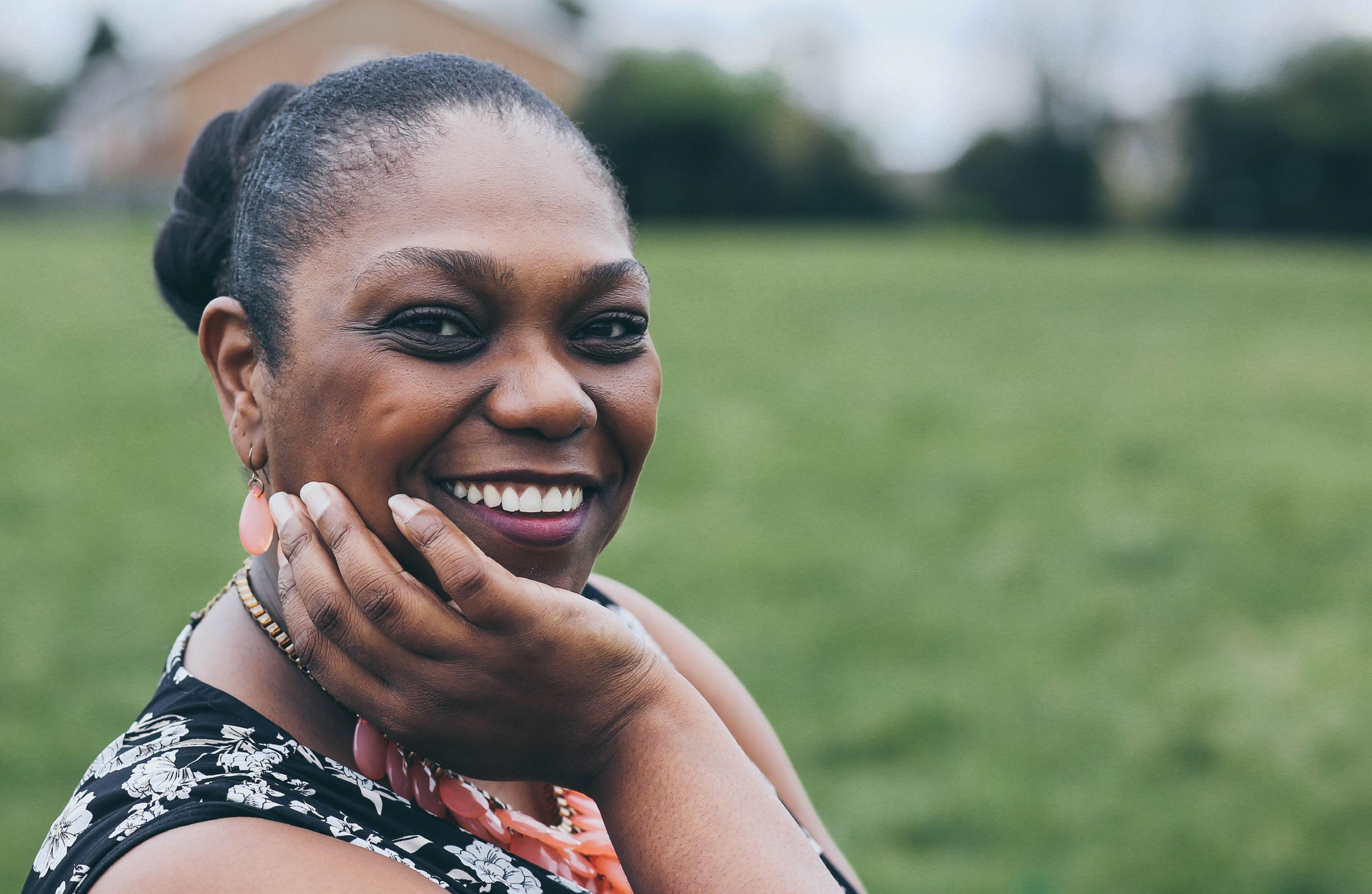
Annmarie Lewis OBE is a multi-award-winning Leadership and Culture Specialist with a career that spans over three decades. Renowned for her innovative approach to integrating business strategies with justice principles, Annmarie has driven transformative change across various sectors. As a leader within His Majesty’s Prison & Probation Service, she has tackled critical issues like racial equity and inequality, establishing herself as a powerful voice for systemic reform.
A criminologist and founder of Rainmakers Worldwide, Annmarie has championed entrepreneurial opportunities for marginalised youth, earning her an OBE in 2019 for her youth justice and entrepreneurship services. From being the UK’s first Black female prison officer in a Young Offenders Institute to pursuing her third master’s degree at Cambridge University, Annmarie’s unique blend of academic rigour and professional expertise positions her as a leading force in shaping highperformance, inclusive workplace cultures.
Annmarie, your career spans over three decades of transformational work in leadership and justice. What inspired you to integrate business strategies with justice principles, and how has this approach evolved?
I can hardly believe it - 30 years! From the outset of my career, I was driven by a passion for justice and equity, believing these principles should extend beyond traditional boundaries and into the heart of business and leadership. The inequities I witnessed as a Black and female prison officer at a Young Offenders Institute fuelled my determination to advocate for systemic change.
I first recognised the synergy between business strategies and transformative justice in 2012 while partnering with the London Business School to deliver executive education workshops for global organisations. Over a dynamic 12-year journey, working with leading business schools and academic institutions, founding my social enterprise, and holding senior management and leadership roles in the public sector, I’ve witnessed how diverse sectors can enrich one another through curiosity and mutual learning approach.
I’ve developed strategies that address institutional shortcomings while enhancing organisational effectiveness and social impact. These strategies have evolved through intentional application, observed practices, and continuous growth. They allow me to integrate justice-oriented practices with strategic business insights, creating cohesive frameworks that drive equitable and sustainable outcomes in every context I engage.
You were the UK’s first Black female prison officer in a Young Offenders Institute. How did that experience shape your views on diversity, inclusion, and justice in institutional systems, and how have you translated those lessons into your leadership work today?
I joined Feltham YOI and RC in 1999, and my time there was utterly transformative. It sharpened my awareness of the stark disparities within our justice system and the pressing need for diverse voices, representation, and meaningful integration within institutional structures. Witnessing the barriers faced by marginalised and minoritised groups firsthand deepened my commitment to driving significant cultural transformation.
These experiences have become the cornerstone of my leadership philosophy. I enable organisations to recognise, understand and appreciate the value visible diversity brings and the importance and need for diversity of thought, empowering them to actively embrace and integrate inclusive perspectives into their strategic frameworks and cultures. I collaborate with leadership and management teams to design innovative programmes and high-performance workplace cultures that leverage diverse insights, enriching decision-making processes and enhancing organisational resilience.
Today, through my work with Just Leaders Ltd, I focus on preparing leaders at all levels to create environments that celebrate diversity and embed equity at their core.
You’ve been a consultant for FTSE 100/250 companies and over 500 organisations, driving strategic culture transformation. How do you ensure justice-oriented practices enhance social systems, business effectiveness, and employee experiences?
Ensuring that justice-oriented practices enhance social systems and business effectiveness begins with a deep commitment to understanding and aligning organisational visions and goals with broader justice and equity principles. My consultations involve identifying clients’ unique challenges, opportunities, and context through organisational and culture diagnostics. This allows my team and I to partner with our clients to develop and implement tailored, evidence-based strategies that resonate with their objectives.
My approach goes beyond streamlining operations, good governance, and compliance. However, it is important to reshape narratives and refine systems and structures to create environments where every voice is valued, and all individuals can thrive.
You recently launched Just Leaders Ltd, a leadership and culture consultancy. Can you share more about your decision to venture into consultancy work and what you hope to deliver to your clients?
Launching Just Leaders Ltd was a natural progression in my career. Issues like the Windrush scandal, Partygate, controversies with the Met Police, the 2021 Race Commission report, severe austerity measures, and scandal after scandal across sectors have exposed a leadership crisis marred by corruption, outdated practices, and arguably becoming morally bankrupt. In a landscape where leadership often appears out of touch and ethically compromised, I recognised a critical need for an approach that is not just effective but ethically grounded.
Justice and equity are the foundation of all leadership and should drive every decision and action, advancing the collective good. Just Leaders Ltd was born out of my desire to redress these imbalances and cultivate exactly that, ‘just leaders’, those who place justice, equity, and service at the forefront of everything they do.
We provide leaders with the necessary knowledge, strategies and tools to discover their highest purpose, fulfil their potential, and create the highest impact. We help our clients increase their risk appetite and encourage experimentation in a thoughtfully managed way to avoid unnecessary harm. We do this through:
• Cutting-edge coaching and executive education
• Strategic consulting and culture transformation
• Customised leadership development.
I am passionate about working in collaboration and partnership to build more just and equitable futures anchored in values of integrity, courageous action, sustainable practices and continuous growth. My core commitment is for Just Leaders to nurture trust and foster accountability, serve with compassion and care, champion curiosity and innovation, and lead with wisdom and understanding.
Faith plays an important role in your life and work. How does it guide your leadership approach, especially when navigating challenging conversations about equity, justice, and transformation?
Faith is a fundamental pillar of my life and work, serving as a compass that guides my leadership approach, particularly in courageous conversations about equity, justice, and transformation. It inspires me to lead with integrity, compassion, and a steadfast commitment to doing what is right, even when the path is not easy. Faith gives me the courage to challenge systemic inequities and advocate for transformative change with empathy and sensitivity, fostering cultures of learning rather than defence and blame.
When navigating complex discussions, my faith helps me create environments of kindness and active listening, ensuring every voice is heard. It drives my focus on the greater good, promoting decisions aligned with justice and equity. This faithcentred approach helps me remain resilient and hopeful, enabling me to guide others through complex change, aiming for organisational excellence and high impact. By integrating these values, I cultivate inclusivity and purpose, empowering others to contribute positively whilst bringing fun and enjoyable experiences into challenging circumstances. Leaders I work with often emerge refreshed and inspired, with a renewed sense of hope, courage and rigour, ready to lead purposefully and fulfilled, especially in difficult times.
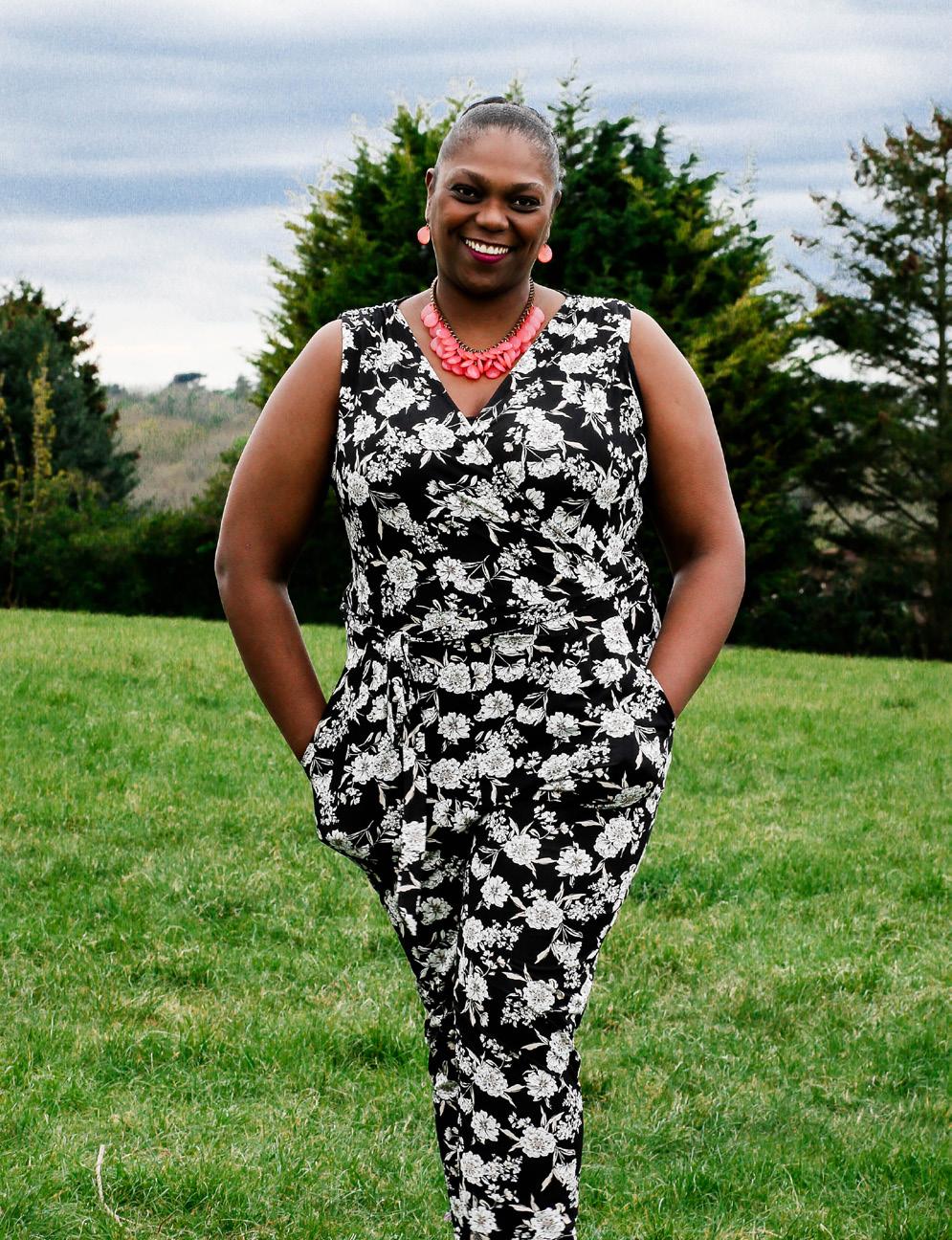
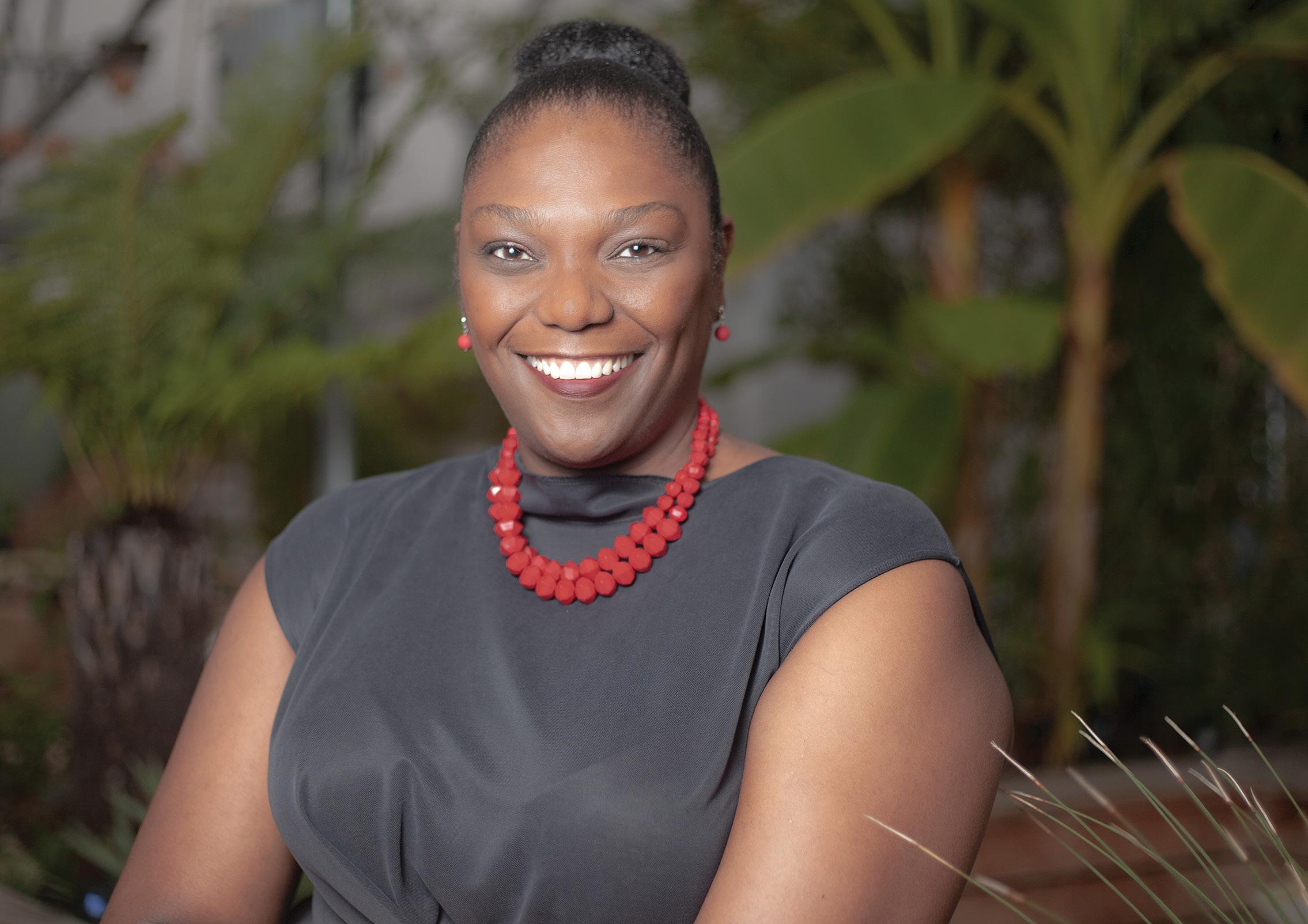
Best piece of advice you have received?
Identity is imperative, and understanding your purpose is key. It is crucial to know who you are, why you were born, why you are here, and what you are mandated to do.
has been your proudest achievement to date?
My three standouts are founding my social enterprise Rainmakers Worldwide in 2010, for which I received an OBE in 2019 for services to young people, being awarded a Winston Churchill Fellowship in 2017, where I researched entrepreneurship and criminal justice across 5 US states, and in 2023 being accepted to study a Master’s in criminology, penology and management at the University of Cambridge. But the most recent one is the launch of my new venture, Just Leaders Ltd, in May of this year.
What advice would you give young people seeking to make a difference in their communities?
Do not wait for anyone’s permission to do what you are called to do, but seek the right counsel, support, and advisors to help you along the way. Being younger is not a barrier but an advantage when leveraged in the right way. Belief is the bedrock of success; you cannot reach the pinnacles of success if you do not first believe that it is possible and second that you can do it!
one leadership lesson that has shaped your career?
The ability to influence from any position, whether leading from the front, supporting from behind, or collaborating alongside peers.
The Diary of a CEO.
To explore more about Annmarie Lewis OBE, scan the QR code


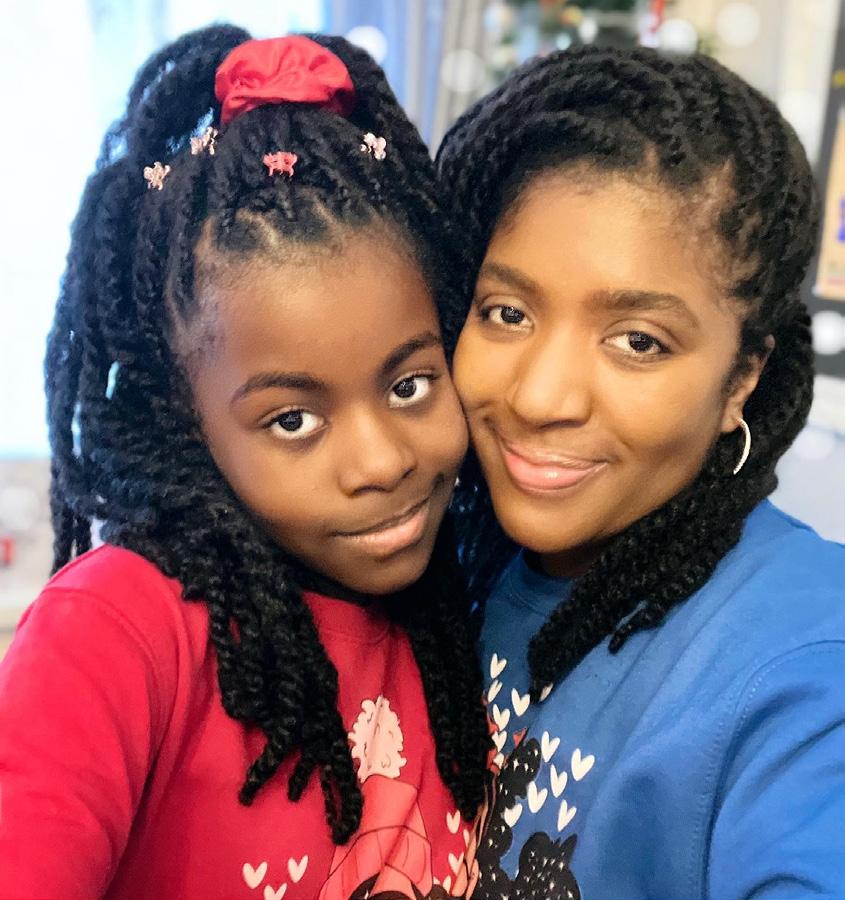
Yvonne and Alyssa Ottley are the dynamic mother and daughter duo behind Frobelles, the UK’s first Afro-hair championing dress-up game. Inspired by Alyssa’s question at age six about why none of her game characters had Afro hair like hers, Yvonne set out to create a fun and empowering solution.
Together, they launched Frobelles, which celebrates curly and coily-haired children and has over 100,000 downloads. With a focus on representation, education, and empowerment, Frobelles has become more than a game - it’s a community. Alyssa, now 12 and an awardwinning young entrepreneur, hopes to inspire others to make a positive impact. We had the opportunity to speak to Yvonne and Alyssa to learn more.
Can you share the story behind the creation of Frobelles and how it has evolved since its inception?
Alyssa has always been into playing games, but she asked me why none of her game characters had
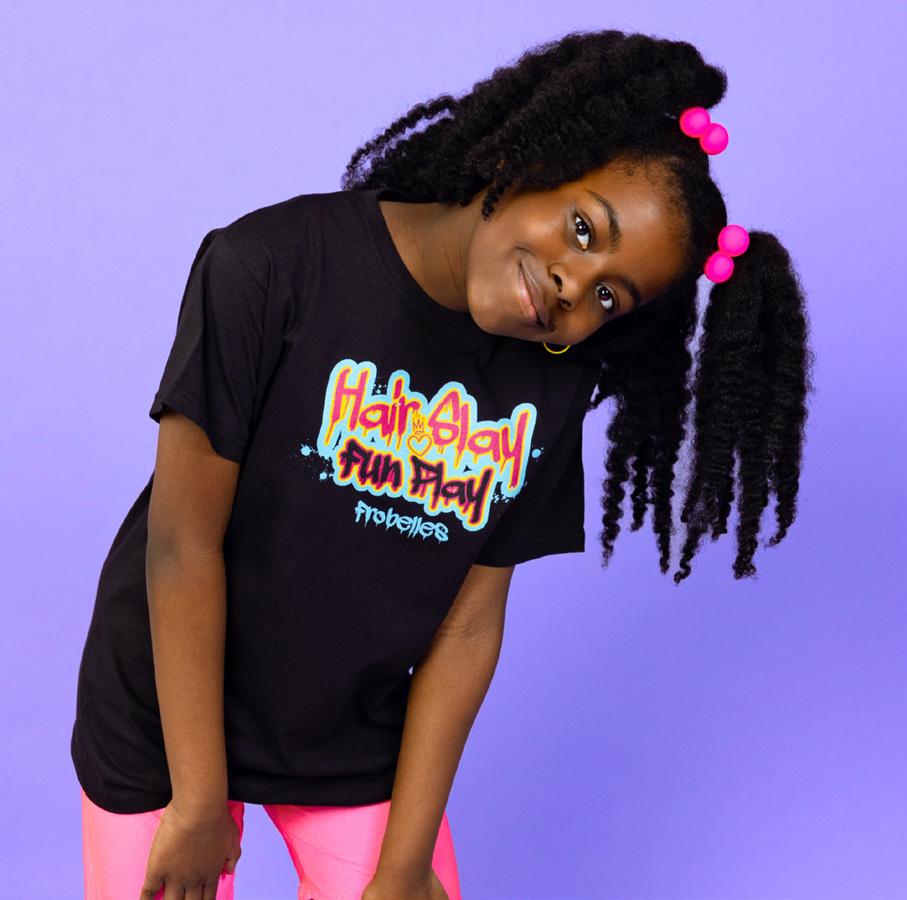
natural hair like hers. When I looked, I found that either the characters were Black but had little to no Afro-hair options or, in the case of many games, afro-hair styles were depicted in a culturally appropriate way.
I have some graphic design experience, so I told Alyssa we should create our own game. I thought I’d bitten off more than I could chew, but she threw so much passion, energy, and creativity into the project, it naturally started to take shape.
We created three characters: Coco, Kelli, and Krista. They all have beautiful Afro hair that can be styled in various ways. A brilliant illustrator brought them to life before we enlisted the help of a freelance app developer.
We most recently launched our story mode. This new feature teaches kids how to care for their Afro hair, style it and prepare for the day. Unfortunately, not every child has someone to do this, and Afro hair has many nuances.
We now have a thriving community of over 100,000 users, regular offline events, and fashion collaborations. We’ve partnered with both Apple and GooglePlay for Black History Month campaigns. We made the Startups 100 list, have won numerous awards, and just launched in the US.
Yvonne, as a Black woman in business, what challenges have you faced in the industry, and how have these experiences shaped your approach to entrepreneurship?
One of the most significant challenges I’ve faced as a Black female entrepreneur is dealing with self-doubt triggered by external opinions. Despite our accomplishments, I’ve often felt the sting of impostor syndrome when others don’t understand or share my vision for the brand.
To keep my mental well-being intact, I’ve learned to tune out unnecessary noise and limit interactions with people who might unknowingly plant seeds of doubt. This focus has allowed me to stay committed to my goals despite skepticism and criticism. I think this is crucial advice for anyone starting a new journey. You’ll always have people try to put you down, so limit what they know and keep working hard.
In an interview last year, I advised like-minded entrepreneurs to trust their instincts, especially in the app-based tech field. If you’re an app user, you have what it takes to be an app creator. Trust your gut.
Alyssa, as a young entrepreneur, what advice would you give to other children who aspire to pursue their entrepreneurial ventures?
Many people say I’m too young to be a founder, but creativity doesn’t have an age limit. I would tell other children to believe in themselves and their ideas. Be curious, research, ask questions, and never be afraid to try something new.
Also, find supportive people who encourage you and can help bring your ideas to life. This might not be a parent or sibling - it might be your favourite teacher or a youth worker. Someone you trust to be constructive.
heart. Can you elaborate on the community aspect of Frobelles and how it nurtures empowerment and Education?
We have a fan club, a magazine, giveaways, and regular offline events with raffles, creative competitions, and workshops. The community aspect was really important to us. We wanted Frobelles to be a safe space where children can connect, meet, have fun, and learn together. Our next step is hosting workshops with our brand partners centred not just around hair care and experimentation but also entrepreneurship.
With Alyssa now being an award-winning entrepreneur at just 12 years old, we want to show other kids how they can be the change-makers of the future, create their own business ideas, and make a real difference. We want to show them that anything is possible.

Your journey as a mother-daughter duo in founding Frobelles is truly inspiring. How has this unique partnership influenced the vision and direction of the company, and what lessons have you learned from working together as a family?
Because we’re so close, we naturally have a deeper level of communication and understanding, so the vision has always been shared. Alyssa had brilliant ideas; I could shape and strategise them, so it worked well.
Frobelles isn’t just a game; it’s a community with sisterhood at its
Naturally, there were some ups and downs, but as a parent, you are your child’s biggest advocate, so
if they show potential, you want to help them run with it to give them the best chance in life.
Alyssa’s perspective as a young girl who just wanted to see herself represented has been invaluable. She has a keen eye for detail and natural leadership qualities, and her friendship group acted as the perfect testbed. This partnership has taught us the importance of collaboration and respect for each other’s strengths (roles and responsibilities) and how powerful a shared vision can be.
If Frobelles characters were real, which one would you each be and why?
I would be Coco because she reminds me of myself as a child. Alyssa would be a mix of Kelli and Krista, because she loves fashion and experimenting with hairstyles like Kelli but also resonates with Krista’s love for books and music
What’s the most surprising or
unexpected
thing you’ve discovered about each other while working together?
The most surprising thing we’ve discovered about each other is how naturally we’ve settled into our respective roles. Alyssa has shown strong leadership and analytical skills, especially in testing the game and shaping ideas for the brand, whereas I’ve always enjoyed storytelling and creating. It’s been wonderful to see how our different strengths complement each other.
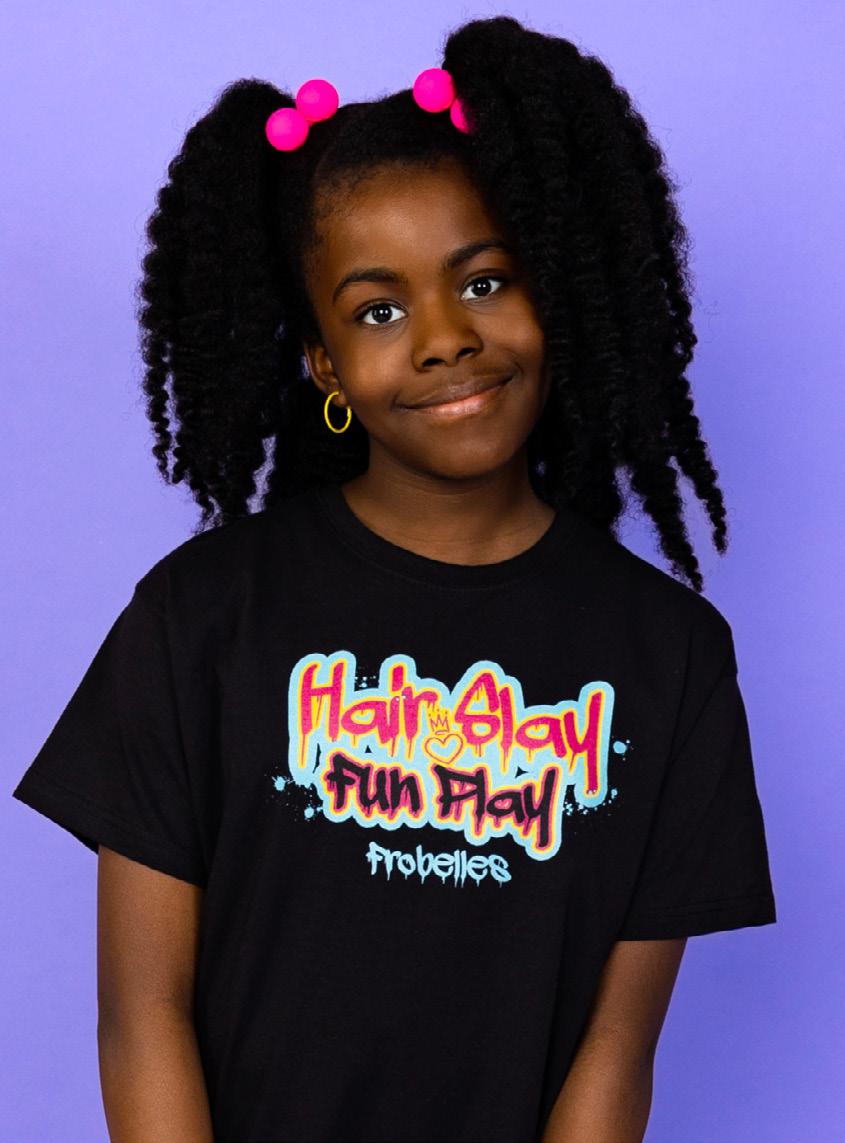
If you could invite any celebrity to play Frobelles with you, who would it be and why?
We’d love to see British actress India Amarteifio, who portrayed Queen Charlotte on Netflix, and singer Halle Bailey play Frobelles. When Rihanna has a baby girl, we hope she discovers our brand for those allimportant affirming conversations!
For more information, visit www.frobelles.fun
To explore more about Yvonne and Alyssa Ottley, scan the QR code


Clockflower Solutions is an awardwinning social media marketing agency that empowers businesses to elevate their brand visibility, grow online communities, and boost their revenue.
Founded by Hannah Spence, who transitioned from a 10-year career as a primary school teacher in 2023, our mission is to help entrepreneurs and businesses thrive in the digital landscape.
To date, we’ve generated tens of thousands of pounds in revenue for our clients, including notable names like serial entrepreneur Bianca Miller-Cole and Axel Blake, winner of Britain’s Got Talent. We’ve proudly collaborated with Black Tech Day and the University of Greenwich to nurture the future generations of entrepreneurs.
Our services include:
Social Media Management
Brand Strategy & Growth
Content Creation
Profile Optimisation
Social Media Masterclasses
Speaking Engagements
Whether you want to engage your online community, generate content ideas or overcome the challenges of social media marketing, we’re here to help.

Connect with us for a free audit and consultation.
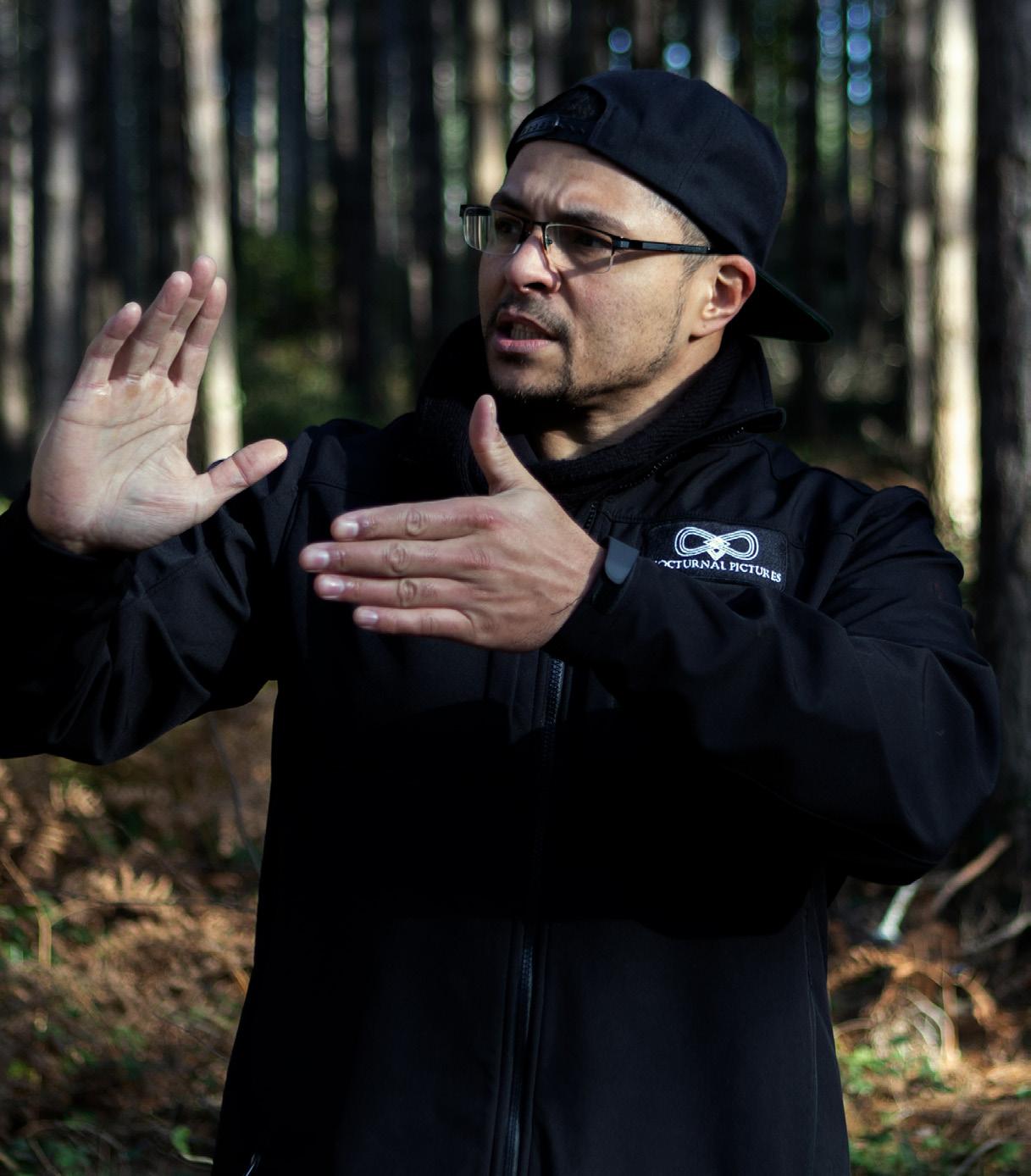
Leroy Kincaide, a seasoned entertainment professional with over 15 years of experience, has made a name for himself in front of and behind the camera. Once a heavyweight wrestling champion featured on WWE’s Smackdown, Leroy transitioned from the wrestling ring to the world of filmmaking, driven by a desire to control his narrative.
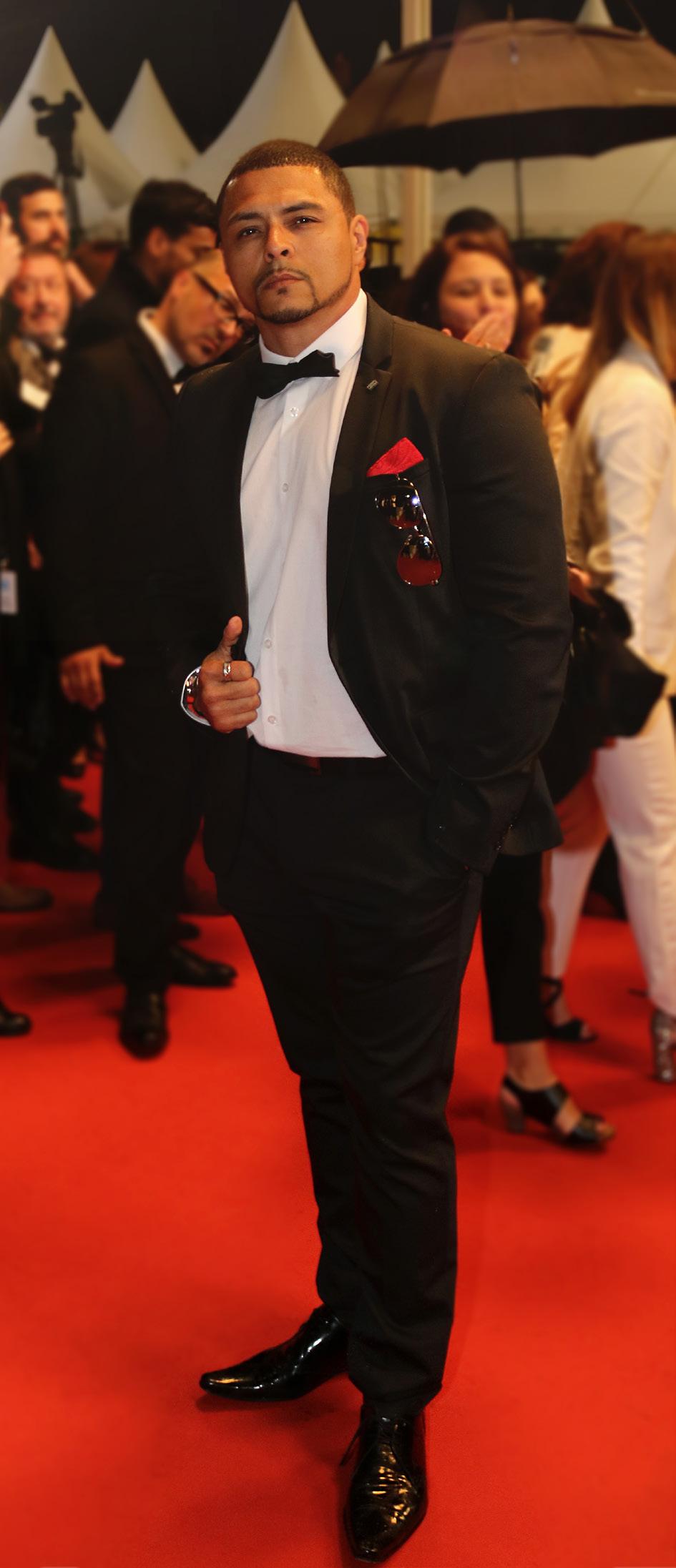
In 2014, he founded Nocturnal Pictures, pouring his passion into writing and directing films. Samuel Goldwyn Films picked up his directorial debut, The Last Rite, and is now streaming on Hulu and Sky TV. Leroy’s dark, thought-provoking storytelling has established him as a rising force in genre filmmaking.
Leroy, you transitioned from a successful wrestling career to becoming a filmmaker. What sparked this change, and how did your experience in the wrestling industry shape your approach to storytelling and directing?
The change was sparked by the unfortunate, or you could say fortunate, love lost for the desire to be a pro wrestler. Throughout my life, I have always had a love for film and a burning curiosity about cinema. Eventually, I made my own short films and used my wrestling experience to transition that presence and action development onto the screen.
My overall experience as a wrestler and actor helped me communicate a message as a director to my actors. Thus, this helps my cast dive even deeper and become more immersed in the world that we are creating.
Founding Nocturnal Pictures in 2014 marked the beginning of your journey as a director. What were some of the biggest challenges you faced in the early stages of building your production company, and how did you overcome them?
The toughest challenge I had to overcome was not knowing how to communicate a message through visual language on screen. For a good few years, I spent a little while hating my work, not because I didn’t like it, but because I couldn’t get across what I saw in my mind on screen.
Over time, this frustration became one of my strongest attributes as a director because, to overcome this hurdle, I had to learn everything I needed to know as a cinematographer to build and find my own style in my work. By becoming a student of cinema and learning what was required to elevate my game, I found my current style and aesthetic in the types of movies I wish to create.
Your debut feature film, The Last Rite, has received critical acclaim and earned you a nomination for the Screen International “Genre Rising Star” Award. What inspired the story, and what sets your approach to horror apart from others?
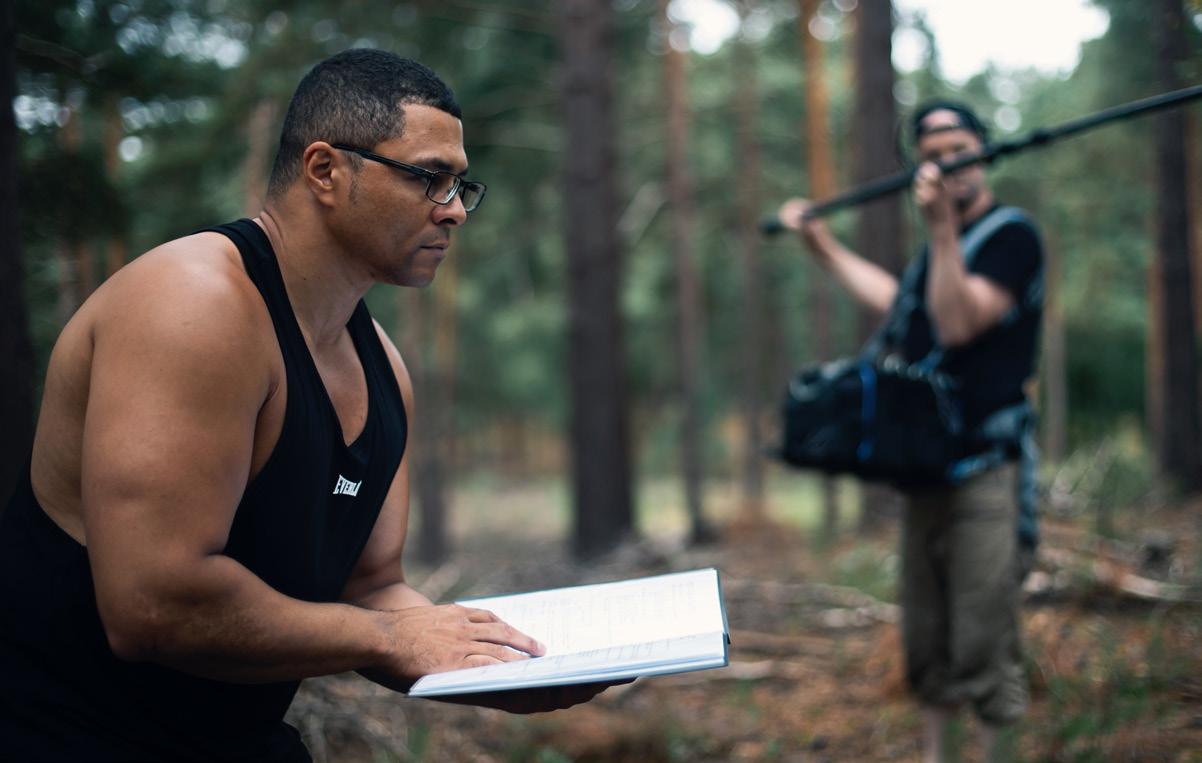
The inspiration behind my debut horror feature film was my own experiences with sleep paralysis, as I felt that it would be a subject I knew closely enough to tell a compelling story. Having a deep curiosity about the supernatural and life after death, I began researching other “true event” stories. I realised that more people had also had similar experiences to mine.
Armed with firsthand information, I started writing the story, inspired by some of my true-life experiences and others. With a vast curiosity and knowledge of the dark and macabre, my unique life perspective helps me dive into smaller and more nuanced levels of storytelling that would leave the faint of heart in shock.
As a Black filmmaker in a competitive industry, how have you navigated the challenges of breaking through in the UK film market, and what advice would you give aspiring filmmakers from underrepresented backgrounds?
There are most definitely challenges in the film industry. In my approach to my work, I have made it my mission not to be known solely as a Black film director but as a director who tells good stories. The world tries to put us in a box, and in a formless creative industry, I always want to sit just outside that box.
The key advice for any filmmaker who wants to tell good stories is to trust your voice and write closely to what you know, but never be afraid to venture outside your comfort zone. You have inside of you all that you would ever need to move forward, but you just need to find your unique voice.
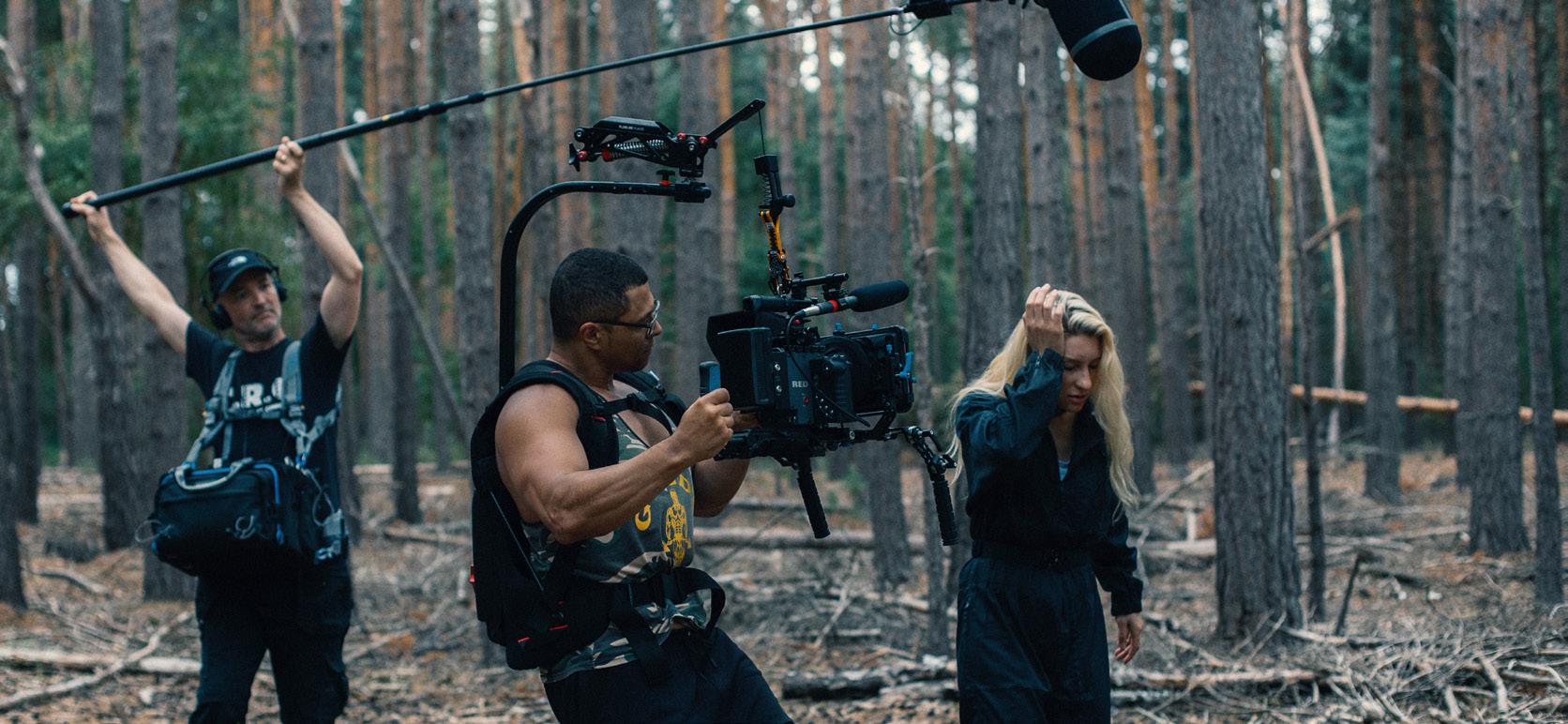
You’re known for your distinctive dark vision and thought-provoking storytelling. What draws you to darker narratives, and how do you balance creativity with commercial success in the genre film space?
My overall dark vision and thought-evoking take on stories are heavily inspired by my time as an undertaker. This experience shaped my life perspective, which helped me communicate something unique on the page that most people won’t know.
The balance of my work solely comes from my intuition, which means I can only write what I am spiritually nudged to do. It just so happens that these creative nudges are in my favourite genres, action and horror.
For a very grounded approach to my work, no matter what it is, I find that nothing fully feels complete until I add what I call the light to it. No matter how dark the story is, there must always be a throughline that grounds it so that the horror and violence aren’t overbearing.
Having spent time in front of and behind the camera, how has your experience as a performer influenced your work as a director and producer?
Being a performer in front of the camera has helped me massively bridge the gap between the actor-director relationship. Thus, I can dive deeper and give more to my cast so they can trust that they are in safe hands and with a director who knows what he wants.
What do you see as the future of genre films, particularly in the horror and action space, and how do you plan to build upon the success of The Last Rite with your upcoming projects?
The future of genre films is and will always be a huge backbone of the film industry, as some of the first films ever created were, in fact, both horror and action movies. With this in mind, I understand the power of the storytelling medium with a level of escapism entwined in its DNA. For me, it’s the genre film that allows the viewer the biggest hit of adrenalin to live out their wildest dream or darkest fears, all in the comfort and safety of their living room.
Beyond the success of my debut feature film, my goal is to keep pushing the levels and growing as a creative. I’m currently on an action roll with my writing and directing, so I want to keep focusing on that arena and infuse it with a touch of horror.
If you could collaborate with any filmmaker or actor, past or present, who would it be and why?
I would love to collaborate with Nicholas Cage or Denzel Washington, as they are two really strong and compelling actors whose work and legacy I love. In the future, it would be amazing to create projects with actors like them who leave nothing on the floor and give everything to their craft. Let’s make it happen.
To explore more about Leroy Kincaide, scan the QR code
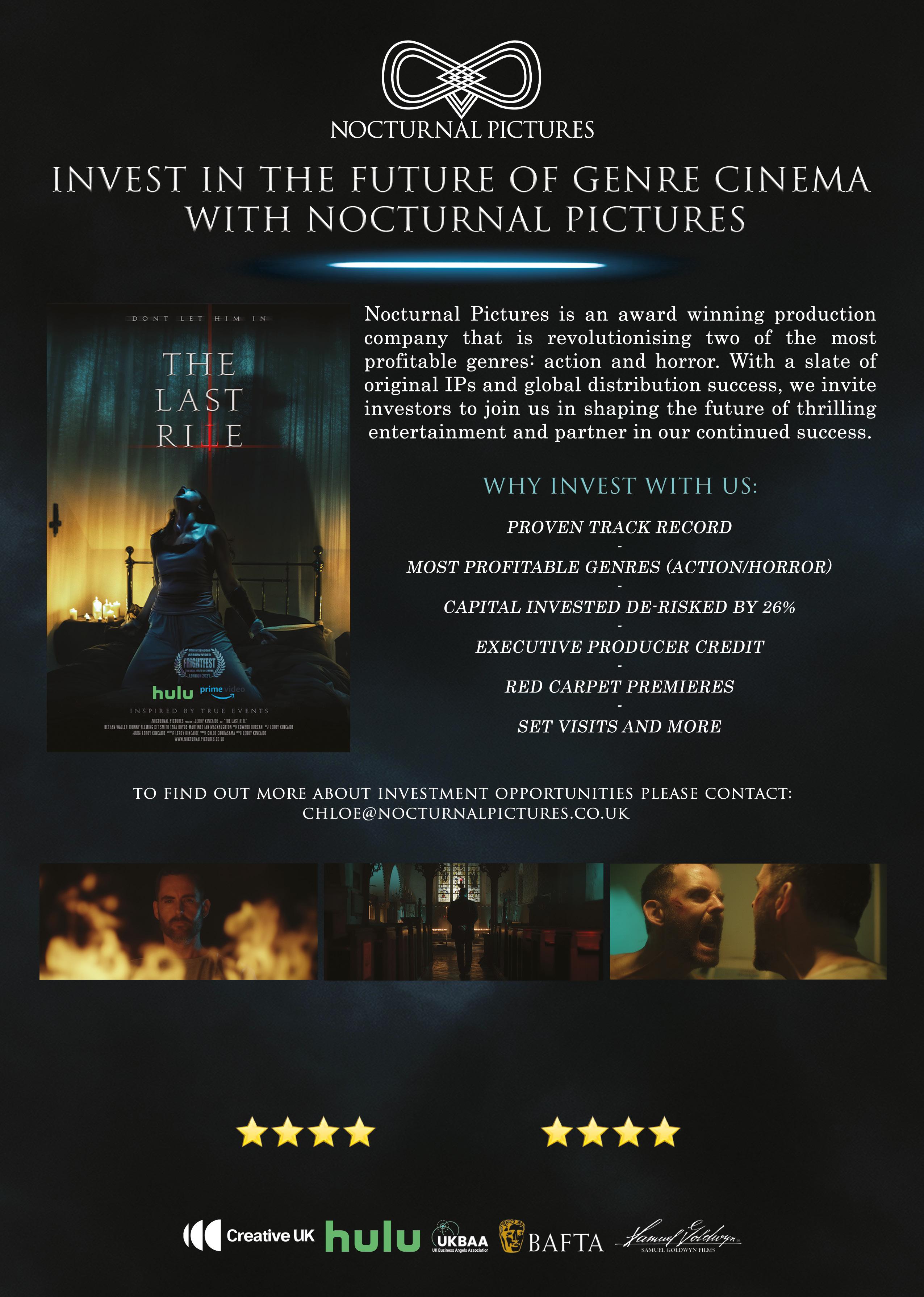

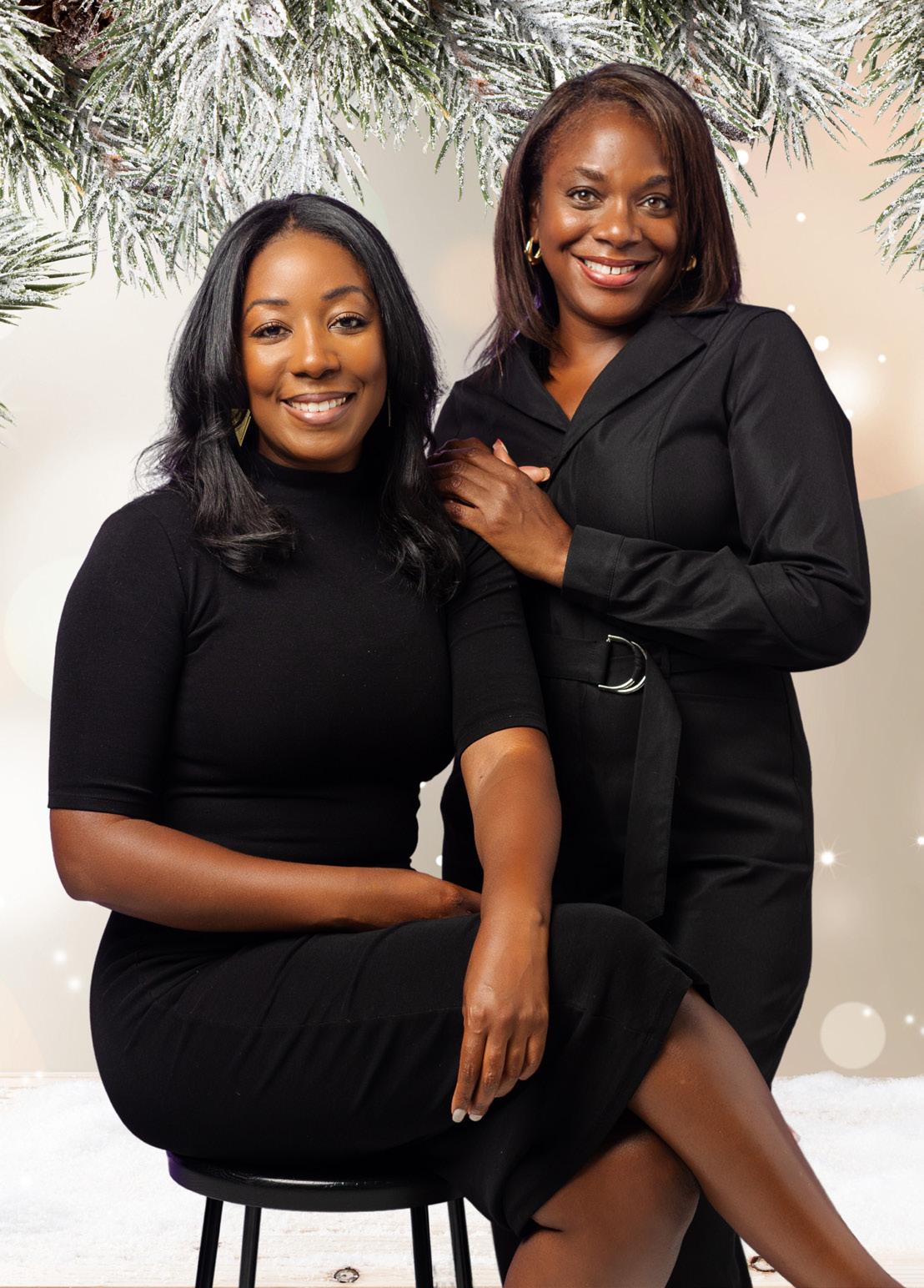

Alison Burton and Natalie Duvall, founders of March Muses, lead the way in inclusive Christmas decorations. Frustrated by the lack of representation for their daughters, the Croydon mums launched a range of black-and-brown angels and Santa baubles. Their creations, carefully crafted with attention to skin tone and hair design, have gained listings in Selfridges and Liberty London, and in 2022, they secured £50,000 on Dragons’ Den.
In 2023, they made history with a five-year deal with Tesco, expanding their diverse decorations and yearround gifting products. March Muses is dedicated to ensuring everyone feels represented during celebrations.
March Muses was born out of a desire to ensure your daughters saw themselves reflected in Christmas decorations. How did you go from an idea sparked by personal experience to building the UK’s leading brand for inclusive festive ornaments?
Natalie: The idea for March Muses came when I was decorating the Christmas tree with my daughter Sophia, and she asked me if Christmas angels could have brown skin. We were hanging up white angels and Santas at the time. It dawned on me that none of my decoration collections reflected us as a family or community. This personal moment sparked a mission
to ensure that question was never asked again. Alison and I began researching, designing, and creating. We couldn’t believe this huge gap in the market and knew there was a chance to own this space.
You’ve succeeded with listings in places like Selfridges and Liberty London and a £50,000 investment from Dragons’ Den. What were your biggest challenges early on in your entrepreneurial journey, and how did you overcome them?
Alison: One of the biggest challenges early on was getting through the door. We knocked on every retailer, emailed, and called, but it wasn’t opening. We soon realised we wouldn’t get into these spaces traditionally (through the buying team). My motto is “If you’re getting a ‘no,’ you’re speaking to the wrong person.”
So, as we couldn’t get through the front door, we went through the back and climbed through the window instead. Gatekeepers are very good at what they do, but so are we. We called on allies via our Instagram, brand diversity teams within companies, and our network of customers to get listings. It wasn’t easy, and we work very hard to maintain these relationships to ensure upfront and centre product placement, significant repeat orders, and new designs to stay fresh. Persistence and passion for representation keep us going
What was it like pitching your brand on Dragons’ Den, and how has the experience of working with Peter Jones and Deborah Meaden influenced your business growth?
Natalie: Pitching on Dragons’ Den was nervewracking but an incredible experience. I can’t believe entrepreneurs go in there alone sometimes. Although only 13 minutes of our pitch was shown, we were in there for 2 hours, standing in heels with no break. It was intense!
Alison: Securing investment from Peter and Deborah added huge credibility to our mission. Their expertise has been instrumental in guiding our business decisions, especially as we expand into large-scale retail. They helped us refine our strategy, allowing us access to their legal teams to review contracts, which instinctively allowed us to think bigger.
Securing a five-year deal with Tesco is a significant milestone. How has this partnership shaped the future of March Muses, and what advice would
you give to other entrepreneurs trying to scale their businesses through large retail partnerships?
Natalie: The partnership with Tesco has been a game changer. It’s allowed our brand to reach a much wider audience and ensure that inclusive decorations are available on a larger scale. When we first discussed wholesale, they needed 300-400k of each SKU. I couldn’t even comprehend that number and the costs involved in making them. So, a licensing deal was the best option. We design, and they manufacture. It’s allowed us to have a unique Christmas offering and an ‘always on’ offering for other occasions like Mother’s Day.
Alison: For entrepreneurs looking to scale, the key advice is to be ready, both in terms of supply, designs, and infrastructure, before approaching large retailers. Staying true to your brand and values is crucial, as this authenticity resonates with consumers. It’s important not to get lost in a big machine like Tesco.
As Black female entrepreneurs, what unique challenges have you faced in building March Muses, and how have your backgrounds helped shape your vision for the brand?
Natalie: One challenge is still navigating spaces where we often don’t see ourselves represented, whether in retail or business. It’s 2024, and sometimes it feels like we have gone full circle. We recently went to a large Christmas event and saw no diverse offerings. It can be intimidating and anger-producing, but it also fuels our passion.
Alison: We’ve faced challenges around access to funding and breaking into high-street retailers. However, our corporate and creative backgrounds have helped us bring a fresh perspective to the industry, and our personal experiences shape every product we create. We only create products we would buy ourselves. We know the importance of representation firsthand, and that drives our commitment to ensuring our brand reflects diverse communities.
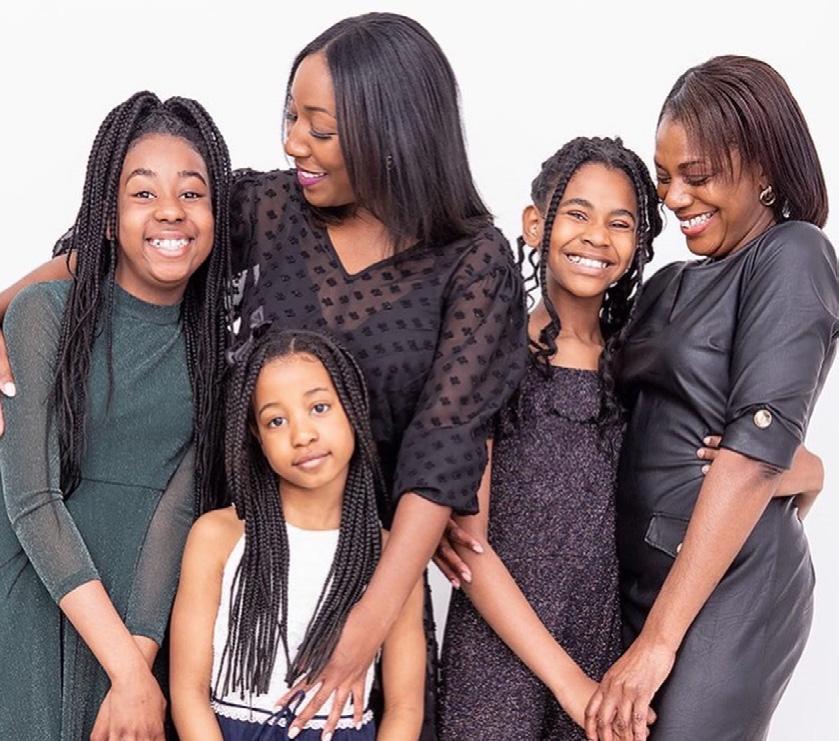
Representation is at the heart of your mission. How do you ensure that every design, from Christmas decorations to Mother’s Day gifts, truly reflects the diversity of the communities you aim to serve?
Alison: We work closely with our diverse designers and regularly consult with our community to ensure our designs are authentic and culturally relevant. Representation isn’t just about making products. It’s about ensuring people feel seen and valued. We take great care to celebrate and reflect different skin tones and facial features in our products, from ornaments to other gifts.
You’ve managed to turn a gap in the market into a thriving business. What key elements have helped March Muses stand out in the competitive holiday and gifting market?
Natalie: Consumers are increasingly looking for brands that reflect their values, are authentic, and are cost-effective. March Muses delivers on that promise by offering something that didn’t previously exist in the UK. We are more than just a decoration; we are a movement, a statement, a mission.
Alison: Quality and attention to detail are also important; our customers know they get beautifully crafted, meaningful decorations. Christmas is about tradition, and we have become a part of so many families’ traditions by decorating their trees, setting tables, and gifting. Additionally, storytelling and community engagement have helped build a loyal customer base.
How do you plan to continue expanding March Muses beyond festive ornaments, and what are your long-term goals for diversifying celebrations year-round?
Natalie: Our vision is to expand beyond Christmas and offer products celebrating diversity throughout the year. We’re already exploring categories like Mother’s Day, Easter, and weddings, and we aim to create a full range of inclusive products that reflect the beauty of diversity in all celebrations. In the long term, we want March Muses to become a household name synonymous with inclusion in Christmas decor and beyond.
Alison: We also want to establish footholds in the US, EU, AUS, and African Markets and be considered authorities in the diversity and empowerment
conversation. I truly believe our story is an inspiration. We bravely challenged a White Christmas, and the response has been amazing. As Black women in business, we are passionate about empowering other female-led brands. We love to see our community winning.
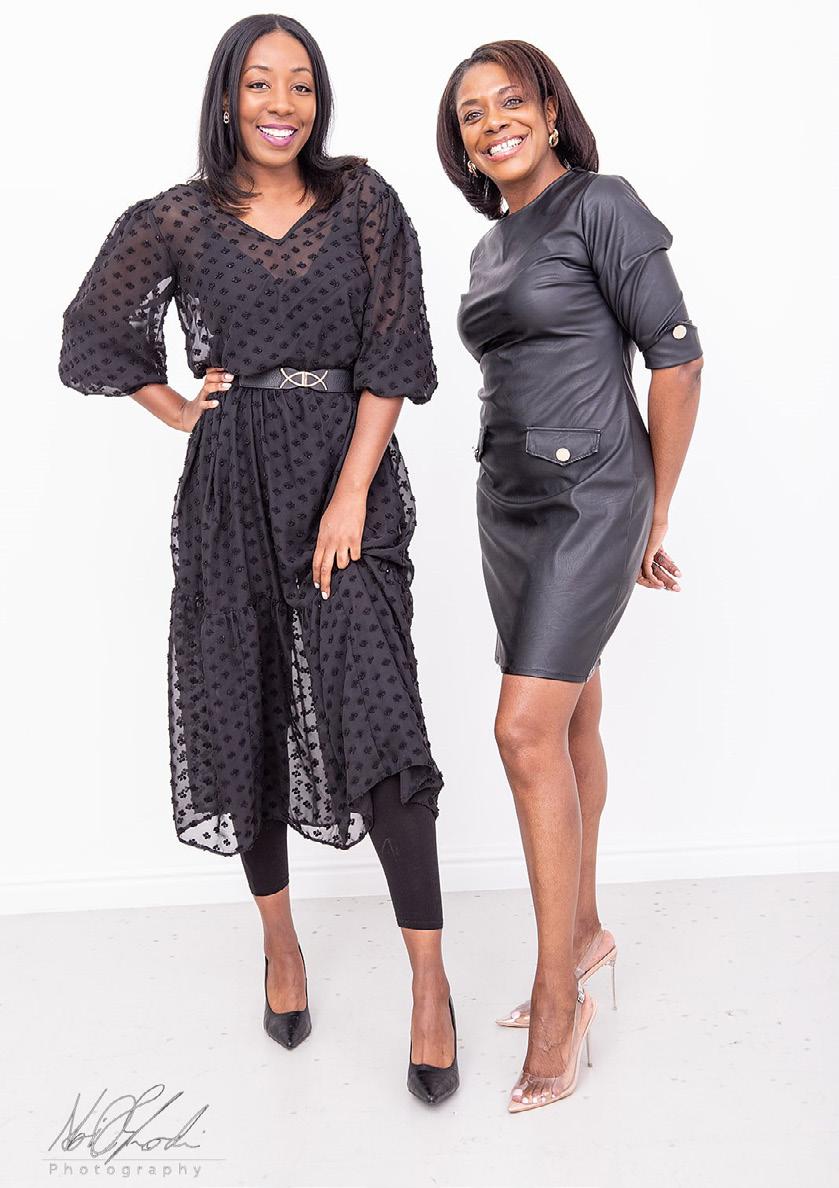
What’s the first thing you do every morning?
Natalie: The school run! Every day, it’s the scene from Home Alone when they wake up late and run to the airport.
Alison: Drink a turmeric and ginger shot, review and create my To Do List and a 30-minute workout.
What’s your favourite Christmas decoration from your collection?
Natalie: We have a new angel, Beverly, inspired by a March-born UK soulful singer. The dress, her hair, everything about it makes me smile.
Alison: A new male angel named Will, carrying an armful of gifts, demonstrates kindness. Let’s be honest: we all love a gift.
inspires you as an entrepreneur?
Natalie: We are Emma Grede fans over here. She balances work and TV opportunities and supports female-led brands and communities while balancing motherhood and marriage.
What’s your go-to source of motivation during tough times?
Natalie: I have a mantra/quote that I repeat every day: “Nothing is constant in life apart from change.” It reminds me that tough times are only temporary.
Alison: I tell myself, “I have no other option but to keep going.” This somehow makes the challenges we face feel smaller and that we can overcome them.
What’s your favourite holiday tradition?
Natalie: Christmas PJS. I buy them for the whole family.
Alison: I love the Christmas prep…present shopping, food and drink, and cooking. It always feels like such a special time.
If you could expand March Muses into any new product category, what would it be?
Natalie: Home decor for year-round, something that brings joy every day, not just during the holidays.
Alison: I’d also say home decor, as we could have many different products for all rooms and the whole family.
What’s your favourite holiday movie and song?
Natalie: Home Alone. It’s not Christmas unless I’ve watched 1 and 2.
Alison: It’s hard to pick just one movie, but I watch Love Actually and Best Man Holiday every year. The Christmas Song by Nat King Cole is one of my favourites.


Scan the QR Code to learn more about March Muses
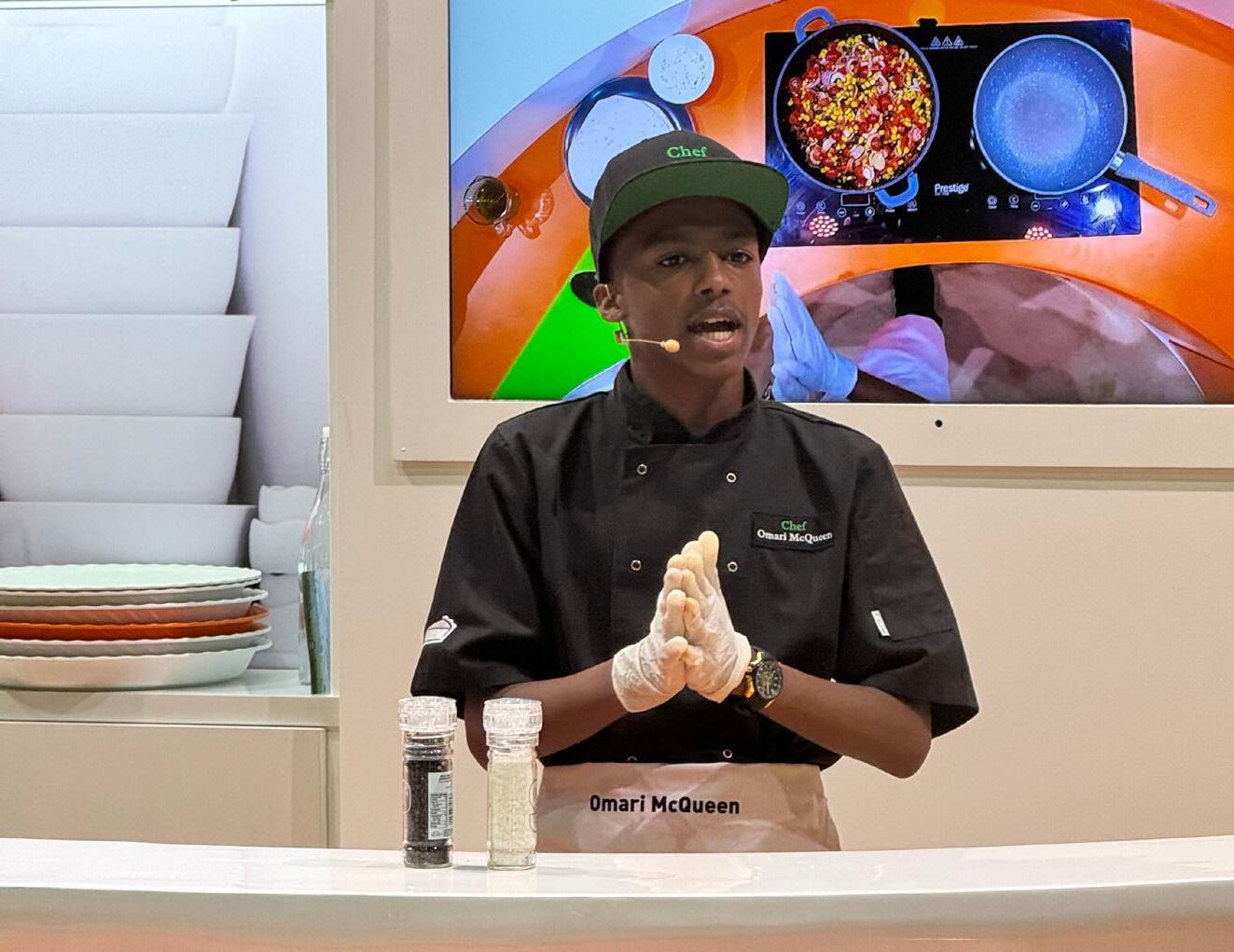
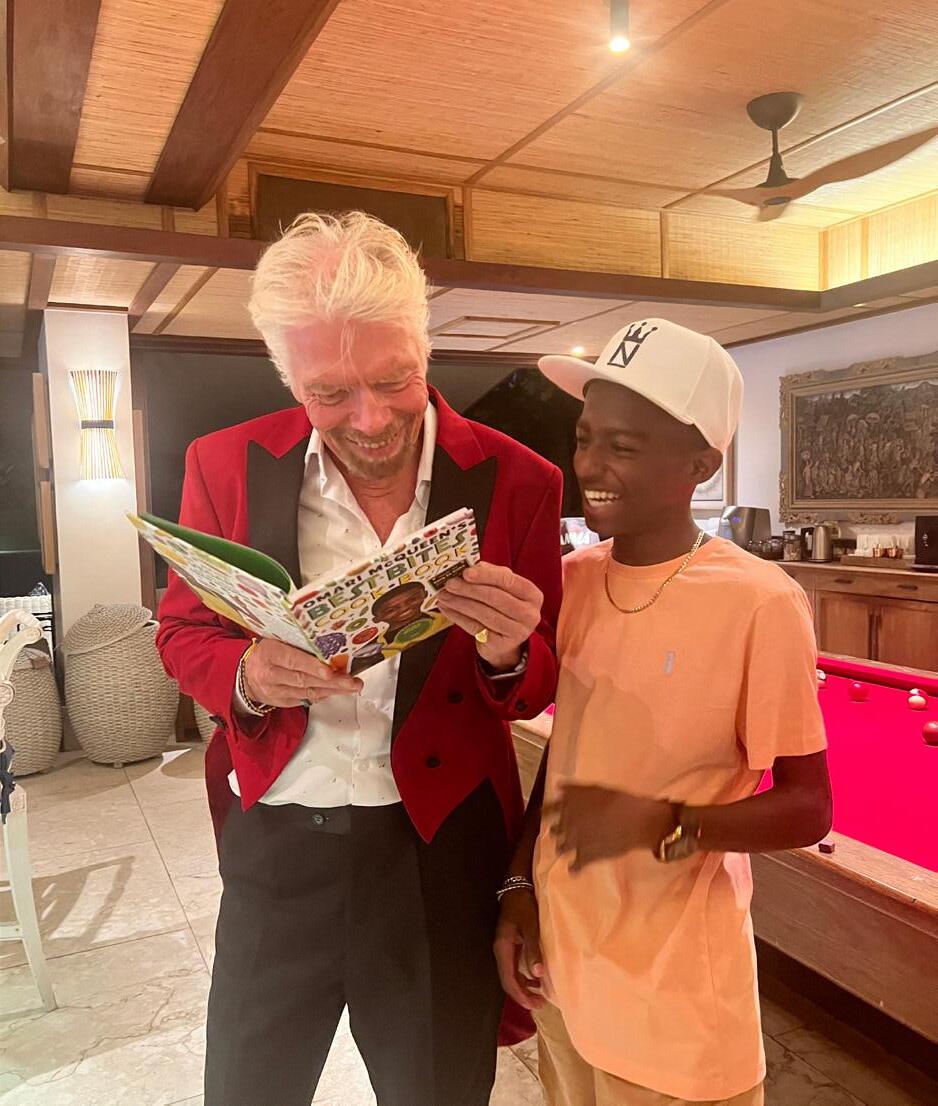

At just 16 years old, Omari McQueen is a visionary vegan chef, television personality, entrepreneur, and author transforming the plant-based eating world. Known for his popular TV shows Meet the McQueens and What’s Cooking, Omari? he brings fun and creativity to healthy cooking while empowering young people to pursue their passions.
With two bestselling vegan cookbooks and a family picture book promoting inclusivity, Omari’s influence reaches far beyond the kitchen, inspiring a global audience through social media, international workshops, and advocacy for dyslexia awareness.
Omari, you’ve achieved so much at such a young age. What inspired you to start cooking, and how did you turn that passion into a career that promotes veganism and healthy living?
I’ve always been inspired by the love of cooking and its power to bring people together. I started at eight years old when my mum got really ill. I loved experimenting with different recipes and discovering the benefits of vegan eating and food, especially as I was trying to heal my mum through food.
Turning my passion into a career involved hard work and determination. I wanted to show that vegan food can be delicious and exciting, not to mention healthy. By focusing on creativity in the kitchen and making vegan eating fun, I’ve turned my love for cooking into a platform for promoting a healthier lifestyle and veganism.
You host two popular TV shows, Meet the McQueens and What’s Cooking, Omari? How do you balance making plant-based eating fun and accessible while educating families on the benefits of a healthy lifestyle?
Balancing fun with education is key in my shows, and being relatable is important. We focused on creating engaging, interactive segments that make plantbased eating appealing to families. I use colourful ingredients and playful recipes to excite children about healthy food.
Simultaneously, I share straightforward, practical tips for families on how to incorporate these meals into their daily lives by showing how it works in a family setting with my own family in a fun way. It’s about bringing people together through food.
You’ve written two successful vegan cookbooks and a family picture book. Can you tell us about the creative process behind these projects and why it’s important to you to promote inclusivity and diversity through your work?
Writing my cookbooks and family picture book was a deeply personal experience. I have dyslexia, and this made it one of my biggest challenges. The cookbooks were about making vegan cooking approachable and fun. At the same time, the family picture book was aimed to celebrate diverse family structures and promote inclusivity, as my family isn’t the norm. I have six siblings, including my little cousin, who has lived with us since he was one.

The creative process for my picture book involved collaborating with illustrators and writing quotes about family that are important to me to ensure the message was clear and engaging for children. Promoting diversity and inclusivity is essential to me because it helps children see the beauty in different types of families and encourages a more empathetic and understanding world. When it came to my cookbook, there was a lot of trial and error and experiments, and in the kitchen, taking family taste testing was an experience I will never forget.
Your presence on social media is both inspirational and educational. How do you use platforms like Instagram and YouTube to connect with your audience, and what’s your favourite part of sharing your journey with your followers?
Social media allows me to connect with my audience in a personal way. On my Instagram and YouTube,
I share laughs and behind-the-scenes information about what I am getting up to, cooking tips and recipes, and motivational messages. My favourite part is interacting with my followers and seeing how they incorporate my recipes into their lives. It’s rewarding to receive DM’s for inspired followers and know that my work is making a positive impact on others, even if it is just allowing kids to see that they can be whatever they want to be or if it is encouraging families to try more plant-based meals or inspiring other young people who want to become chefs.
As an ambassador for Made By Dyslexia, you’ve been vocal about your experiences and advocating for a greater understanding of dyslexia. How do you hope to inspire young people who may feel limited by learning differences?
As an ambassador for Made By Dyslexia, I aim to share my experiences to help others understand that dyslexia doesn’t define one’s potential. I hope to inspire young people to embrace their unique learning styles and pursue their dreams despite challenges. By being open about my dyslexia and showing how it has shaped my journey, I want to encourage others to see their differences as strengths rather than limitations.
You’ve had the opportunity to teach children about vegan cooking and entrepreneurship worldwide, from the UAE to Sir Richard Branson’s Necker Island. What has been the most rewarding part of your international outreach efforts?
Teaching around the world has been exciting and incredible. The most fulfilling part is seeing little children’s faces light up when they learn about vegan
cooking and entrepreneurship - it reminds me of the feeling I first had. Each location brings its unique cultural flavour, and sharing these experiences with other kids has shown me the universal appeal of healthy eating and the importance of nurturing young talent; even though I’m still young, I see how much it impacts children younger than me.
You are not only a chef but also a young entrepreneur. What challenges have you faced in balancing both roles, and what advice would you give other young people looking to start their own businesses?
Balancing being a chef and an entrepreneur comes with its challenges. Time management is crucial, and I’ve had to learn how to prioritise tasks. My school work comes first, and my parents have always taught me to work on my mindset and have fun before anything else; luckily for me, cooking, presenting and acting is fun and also it’s a huge part of meditation, so having a passion for cooking and making it into a business is a win-win.

My advice for other young people is to find their passion, be prepared for hard work, and seek a parent/parents or mentors who can guide you. It’s important to remain adaptable and open to learning from every experience, both successes and setbacks. I’m not a huge reader, but I listen to many audiobooks. Building on your knowledge and mindset is important because business is not always fun and exciting.
What’s next for Omari McQueen? Are there any exciting new projects or goals on the horizon that you can share with us?
I’m excited about continuing to inspire young people through new projects. I’m working on developing more interactive content and possibly launching something new next year that combines my passion for healthy eating in families with educational outreach. My goal is to keep innovating and finding new ways to positively impact the world and make my family proud. My parents and siblings have sacrificed a lot for me to be here, so this is just the start. I’ve still got a lot of stuff to do.
Quick Fire Questions
Favourite dish to cook?
My jerk mushroom tacos are a crowd-pleaser in my house.
inspires you the most?
My family, especially my parents and siblings. They’ve always supported my dreams and taught me the value of hard work and kindness. My Mum goes hard for us. She is the goat. Her mind is incredible and so selfless.
One thing you always have in your kitchen?
I can’t choose one thing, but fresh herbs and seasoning add so much flavour to dishes.
A book or resource that has helped you on your entrepreneurial journey?
I live by two books: Robert Greene’s The 48 Laws of Power and Grant Cardone’s The 10X Rule.
Most exciting place you’ve travelled to for cooking?
Necker Island was hands down the most exciting place. Cooking there was a fantastic experience, with beautiful surroundings, amazing people, and a great vibe.
Best advice you’ve ever received?
“Stay true to yourself and your vision.” It’s a reminder to trust your instincts and stay focused on your goals.
essential ingredient for success as a young entrepreneur?
Passion fuels your drive and helps you overcome obstacles.
To create a global platform that educates and inspires young people about healthy living.
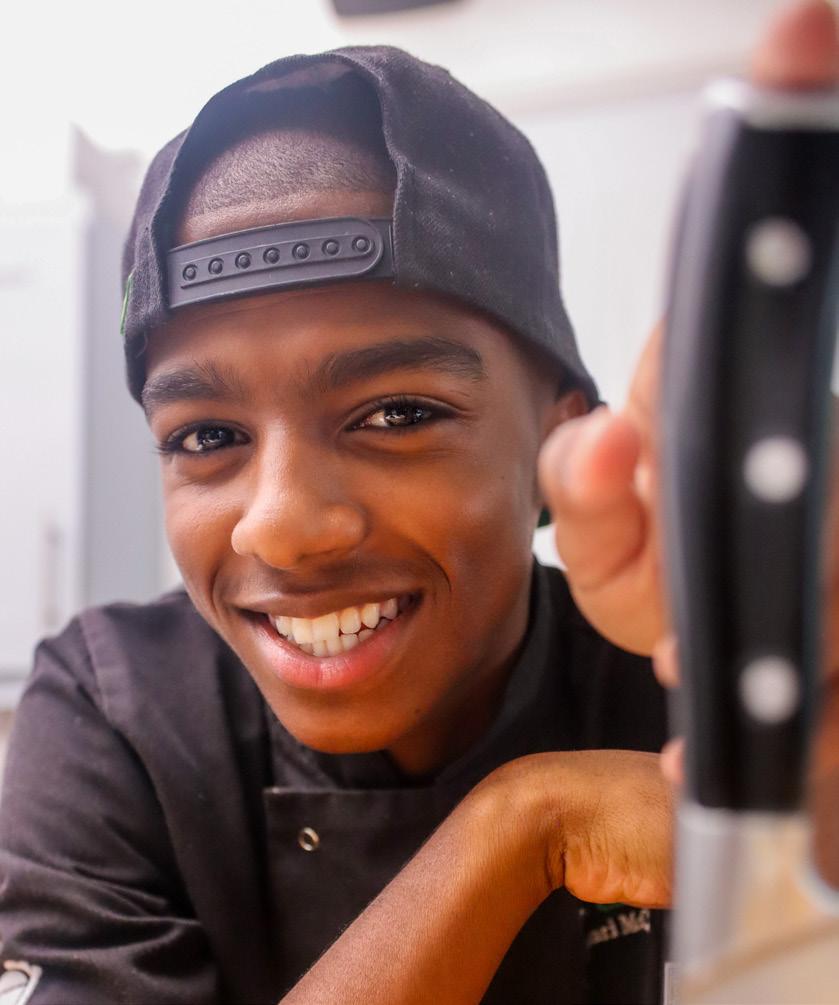
To explore more about McQueen, scan the QR code
Elizabeth Solaru is a leading luxury business consultant, author, and globally renowned cake artist. As the CEO and Founder of the Diversity in Luxury Awards, she advocates for greater inclusivity in the luxury industry. Starting her career as a microbiologist and headhunter, Elizabeth gained international recognition for her intricate cake designs, catering to UHNWIs and royalty, before moving into luxury consulting.
Her book The Luxpreneur is praised as a must-read for aspiring luxury entrepreneurs. She is featured on BBC and Sky TV as a sought-after speaker and mentor dedicated to promoting creativity, diversity, and authenticity in the luxury world.
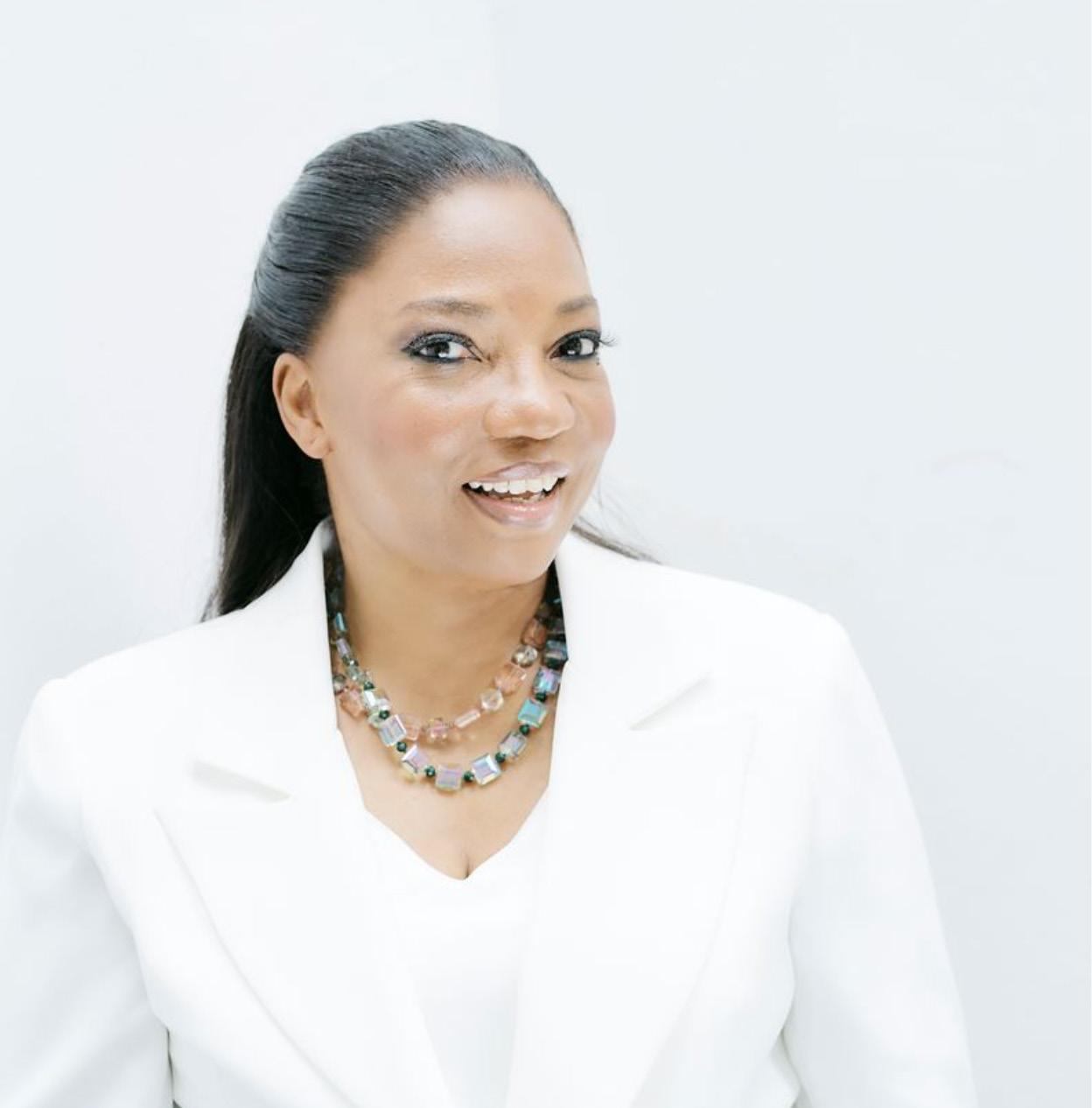
Elizabeth, your journey from microbiologist and headhunter to world-renowned cake artist and luxury business consultant is inspiring. What motivated you to make such a bold career shift, and how did those early experiences shape your entrepreneurial approach?
People thought I’d lost my mind when I jumped from lab coats to luxury cakes.
But being a microbiologist wasn’t just about Petri dishes; it was a crash course in precision, with everything written down in large Standard Operating Procedures (SOPs) files. .
And headhunting? That was my PhD in reading people as a “matchmaker,” where psychology and what makes people tick are crucial. But I had this creative itch that I couldn’t let go of. It turns out that making cakes was my ticket to blending art with luxury in a way no one could have predicted, least of all me.
Everything was secretly preparing me for the luxury world. Science taught me consistency and how to tackle problems head-on - super handy when making it in a cutthroat market. And all that time, matchmaking job seekers taught me how to build rock-solid relationships with high-flying clients.
Whether it’s bacteria or buttercream, it’s all about not sweating the small stuff and loving what you do. Now, I can take all that and help luxury brands tell their stories.
As the CEO and Founder of the Diversity in Luxury Awards, you’ve been a leading advocate for inclusivity in the luxury sector. What inspired you to launch this initiative, and how do you see diversity transforming the future of luxury?
The Diversity in Luxury Awards idea was sparked during the 2020 pandemic. Like many others, I had time to reflect on my industry and the needed changes and knew that posting a black square on social media or a few models of colour was not enough.
I remember Googling the phrase “diversity in luxury” and coming across a paper by a professor stating that there wasn’t much diversity in the luxury sector. It was a wake-up call for me. As someone who’s worked with
luxury brands for years, I knew firsthand how exclusive the space could be and how diverse luxury clients are. That realisation pushed me to take action and create the Diversity in Luxury Awards to spotlight the voices and brands working to make the industry more inclusive. Diversity in all ramifications isn’t just a trend; it’s the future. As the world evolves, luxury brands that embrace inclusivity will resonate more deeply with a global audience. It’s about opening doors, breaking down stereotypes, and reflecting the rich variety of people contributing to the luxury world. That’s where true innovation and growth, which the industry needs to thrive, will come from.
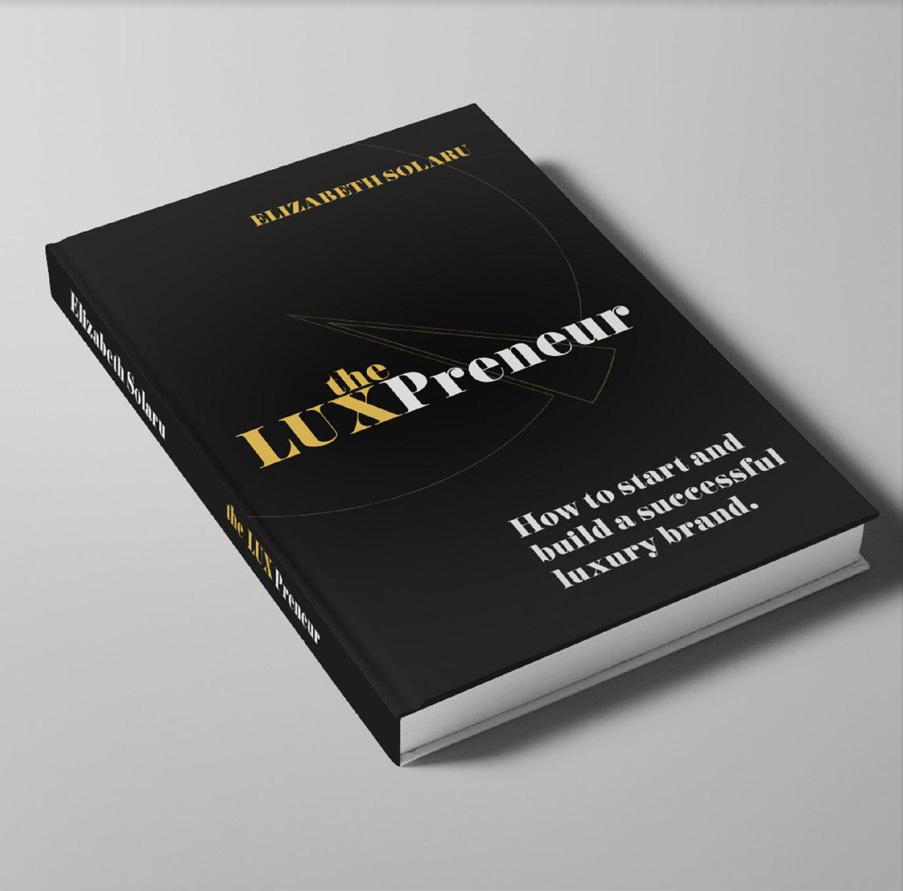
Your book The Luxpreneur has been hailed as a blueprint for building a luxury brand. What fundamental principles should aspiring entrepreneurs focus on when entering the luxury market?
In The Luxpreneur, I emphasise five essential pillars in setting up a luxury brand because a luxury brand goes far beyond a high price tag or exclusivity. Aspiring entrepreneurs should focus on a few key principles. First, craftsmanship and quality are non-negotiable. Your product needs to be good, and I surprise people by saying that while your product or service must reflect an unwavering commitment to excellence, it doesn’t necessarily have to be the best. Next, storytelling is crucial. Luxury is more than the product; it’s about the narrative behind it, evoking emotion and setting your brand apart.
Equally important is exclusivity with authenticity. Scarcity should be driven by genuine value, not just deliberate limited access and coercing people. Then,
there’s the exceptional customer experience, of course. Every touchpoint must feel personal, memorable, and, most importantly, frictionless. Finally, vision and longevity are critical. Build your luxury brand to last with values that transcend trends.
Master these principles, and you’ll craft a brand that captures the hearts of discerning clients and weathers the storms of changing trends.
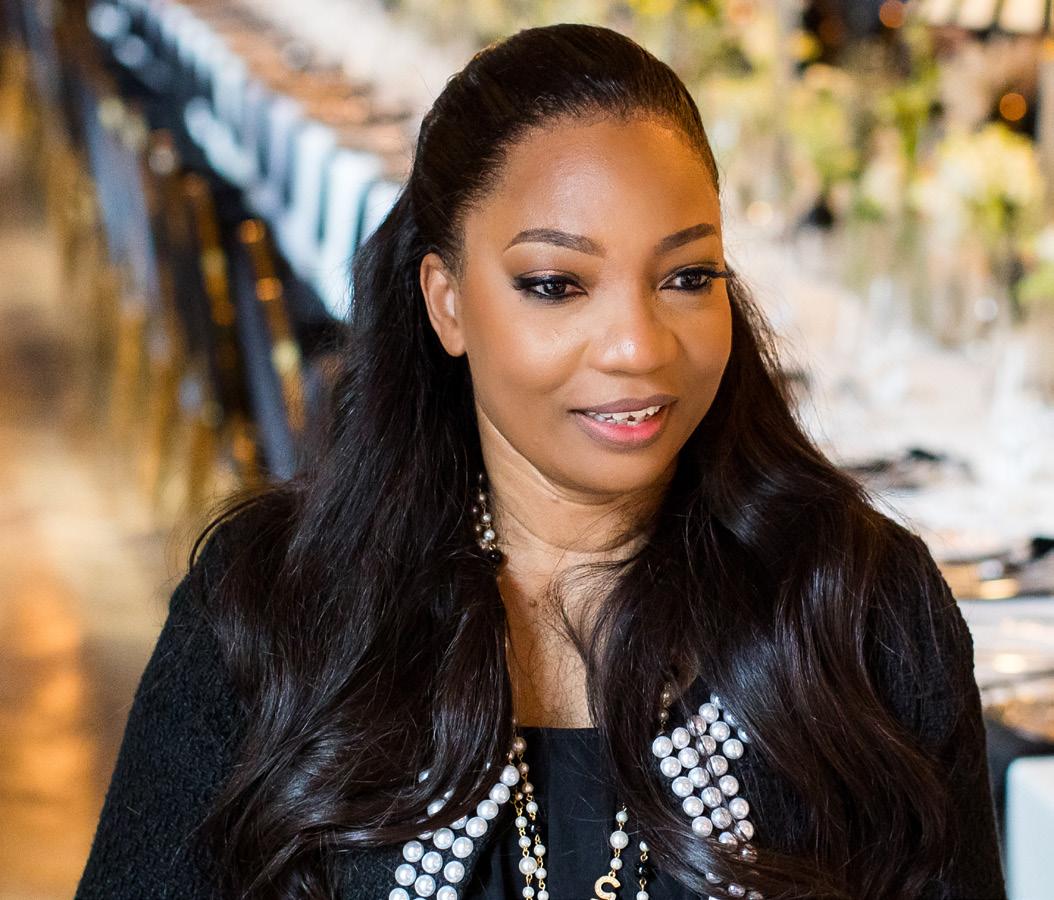
With clients that include UHNWIs and royalty, you’ve mastered the art of understanding the high-end consumer. What is the biggest misconception about the luxury sector, and how do you guide brands to navigate these complexities?
The biggest misconception I encounter is about highend clients. In my book, The Luxpreneur, I break down the different types. They are not monolithic; each client type has unique preferences, values, and expectations.
The second misconception I encounter is that luxury isn’t just about high prices and exclusivity; it’s about creating personalised experiences that resonate deeply with individual clients. I help brands focus on authentic storytelling, tailored services, and building trust.
Understanding clients’ diverse needs, whether UHNWIs or royalty, is crucial. It’s not about selling products; it’s about curating products and services that align with each client’s aspirations, creating invaluable offerings, not merely expensive ones.
Luxury often conjures images of exclusivity, yet you are a strong proponent of creativity, diversity, and authenticity. How can luxury brands maintain exclusivity while staying inclusive and authentic?
Luxury often conjures images of exclusivity, yet you’re right - I am a strong proponent of creativity, diversity, and authenticity. This isn’t a contradiction but rather the evolution of luxury in our modern world.
The reality of luxury today is that its clientele is incredibly diverse, spanning the globe from Shanghai to São Paulo, Lagos to Delhi. This geographical and cultural diversity and sensitivity is the key to understanding modern luxury.
Luxury brands must recognise that exclusivity now means creating experiences that resonate across cultures while maintaining the highest standards of quality and service. It’s about being globally relevant yet locally nuanced.
The key is redefining exclusivity. It’s not about keeping people out but creating something unique and valuable that it naturally appeals to a discerning audience. True luxury is inclusive in its vision but exclusive in its execution.
What have been some of the most significant challenges you’ve faced as a Black woman in the luxury industry, and how have you overcome them to become a global leader in this space?
When asked about the challenges I’ve faced as a Black woman in the luxury industry, I often say that I find myself in a paradoxical position - hypervisible yet invisible. I stand out as one of the few Black women in leadership roles in this sector. My presence is often noticed and sometimes celebrated, but it can also be ruthlessly scrutinised. However, I’ve been fortunate that my clients largely transcend these industry dynamics because, to a large extent, the UHNWI hasn’t got time to waste. They either like you or they don’t. They respond to what I produce - the quality of my work, the uniqueness of my perspective, and the results I deliver. In the world of luxury, excellence speaks volumes, and I’ve found that by consistently delivering exceptional products and experiences, I’ve been able to build a reputation that precedes any preconceptions.
This client-focused approach has been my path to becoming a global leader in my space. By letting my work speak for itself, I’ve built a brand that resonates across cultural and geographical boundaries. It’s a testament to the power of authenticity and excellence in the luxury world - when you consistently deliver value, clients respond, regardless of your background.
In my book, I delve deeper into how aspiring luxury entrepreneurs can navigate these complexities, turning potential challenges into unique selling points. It’s about leveraging your unique perspective to create luxury experiences that stand out in a crowded market.
You’re passionate about mentorship and empowering the next generation of luxury professionals. What advice do you give young entrepreneurs or creatives looking to enter the luxury market?
To young entrepreneurs eyeing the luxury market, I say this: master your craft relentlessly, but don’t forget to infuse it with your unique perspective. Luxury isn’t just about high prices; it’s about creating unforgettable experiences and unparalleled value. Embrace the global nature of luxury, build genuine relationships, and always prioritise quality and ethics. Be patient and resilient. Rome wasn’t built in a day, and neither are luxury empires. Stay curious and adaptable, and never stop telling your brand’s story. The parts of your story you try to hide could be what resonates with clients the most. Remember, in luxury, you’re not just selling products; you’re curating dreams and lifestyles. It’s challenging but oh-so-rewarding when you get it right.
Are there any upcoming projects or initiatives you’re excited about that will further your mission of advocating for diversity and innovation in luxury?
Alongside the launch of The Luxpreneur, I’m thrilled about the upcoming Diversity in Luxury Awards in January 2025. We’ve partnered with the Fashion Minority Alliance and the Gen Z club with the hopes of rolling out a comprehensive mentorship programme, an innovation lab fostering collaboration between brands and diverse creatives, and a global dialogue series exploring cultural nuances in luxury markets. These projects aren’t just about discussing diversity and innovation – they’re about actively moulding a more inclusive, creative, and responsible future for luxury. It’s an exciting time to be at the forefront of this transformation.
What’s the best piece of advice you’ve ever received?
Never underestimate the power of relationships. Whether in luxury or any other industry, success often comes down to how you treat people - clients, colleagues, or collaborators. Building trust, listening, and delivering more than expected create long-term success. This advice has been a guiding principle throughout my career.
What’s your favourite luxury brand and why?
My favourite luxury brand is Chanel. Coco Chanel was far from a saint. She was flawed and had questionable morals, yet she was incredibly resilient. What I admire most is her ability to innovate and redefine what luxury meant in her era. She broke the rules, pushed boundaries, and created timeless designs that spoke to independence for women, elegance, and strength. Chanel’s legacy reminds you that you don’t have to be perfect to make a lasting impact - you just need to be bold and authentic.
If you could have dinner with any entrepreneur, who would it be?
Dolly Parton and Oprah Winfrey. Both women have built empires from the ground up, but what really stands out is their blend of authenticity, resilience, and generosity.
What’s one thing you can’t live without in your daily routine?
My morning cup of tea and custard creams. It’s the one part of my day that balances everything else.
What’s the most memorable cake design you’ve ever created?
If I have to pick one, the most memorable cake design I’ve ever created was a breathtaking 20-tier gold and white cake for a private client who married at Palais Liechtenstein in Vienna. Delivering it was like an epic quest, which involved navigating through winding roads and grand halls and ensuring everything was delivered intact - a journey worthy of a storybook!
What book or podcast are you currently loving?
The Tim Ferris Podcast and Diary of a CEO.
If you had to describe the future of luxury in one word, what would it be?
Diversity!
To explore more about Elizabeth Solaru, scan the QR code
A Conversation with Emmanuel Asuquo on His New Book The Ultimate Guide to Money
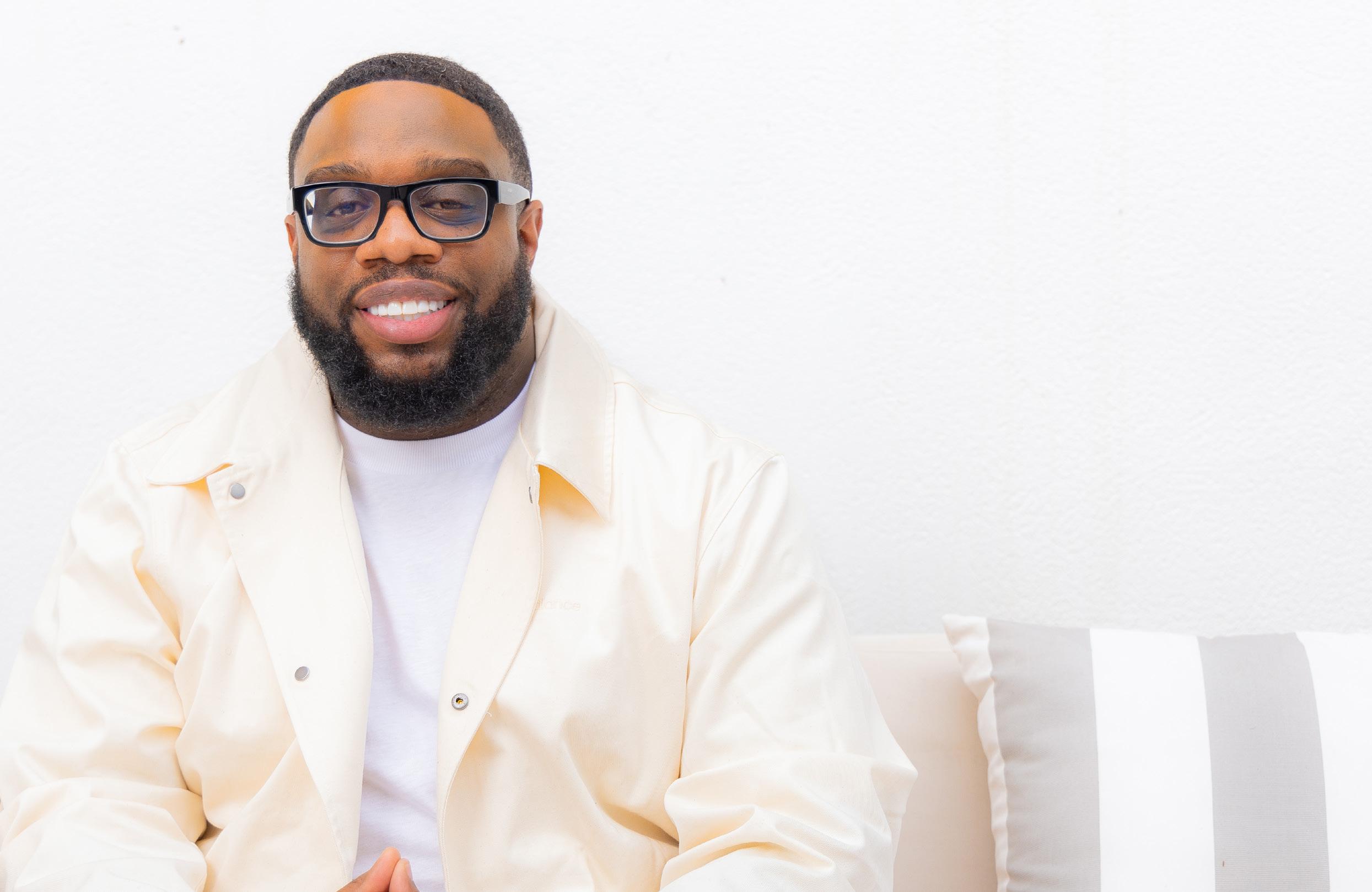
Emmanuel Asuquo is a seasoned Financial Adviser with over 15 years of industry experience. Known for his powerful talks that have inspired over 50,000 people nationwide, Emmanuel has become a trusted voice in financial literacy. He has shared his expertise on major media platforms such as BBC Radio, Channel 4, Jeremy Vine, and ITV, reaching millions of households across the UK.
As the founder of The Eman Effect and a partner at Belvedere Wealth Management, Emmanuel empowers individuals, families, and businesses on their journey to financial independence. In addition to his work as a financial expert, Emmanuel serves as an ambassador for the NSPCC, Prince’s Trust, and My Bnk. He dedicates himself to financial education and helping others break free from economic hardship, which inspired his latest book, The Ultimate Guide to Money.
What inspired you to write The Ultimate Guide to Money specifically for children, and why do you think it’s so important to introduce financial literacy at a young age?
My four children inspired me to write The Ultimate Guide to Money. As a parent, I wanted to teach them about finance and money from an early age, using language they could easily understand. At home, I quickly realised that simply talking to them about money didn’t resonate as much. However, discussing
business ideas and ways they could earn money made a greater impact. They began to grasp the value of money when they worked for it; putting in effort to earn it made them more likely to save, manage it wisely, and avoid spending it on unnecessary things. They developed a deeper appreciation for money.
As I started giving talks in schools, I noticed a similar response. Children became excited about starting a business, using creativity, and adding value. But too often, they were only given money to spend without the opportunity to see it as a tool for growth. Their interest and enthusiasm grew when they understood that money could be used to create more wealth and positively impact others. They became eager to apply their ideas and understand the true meaning of financial independence.
This experience inspired the book and reinforced my belief that teaching financial literacy from a young age is essential. Money management is not just a skill but a life lesson that empowers children to confidently navigate their future.
Your book presents complex topics like stocks, shares, and taxes in a way accessible to kids. What was the biggest challenge in making these concepts easy to understand and engaging for young readers?
The biggest challenge in simplifying complex concepts is making them relevant and easy to grasp. Concepts like stocks, shares, and taxes are usually introduced in adulthood, but I aim to break them down for younger audiences using relatable examples and simple language. I aim to present these topics in a way that young people can understand.
From my feedback so far, I believe I’ve succeeded. Many young people have expressed that they now understand concepts they once thought were too complicated.
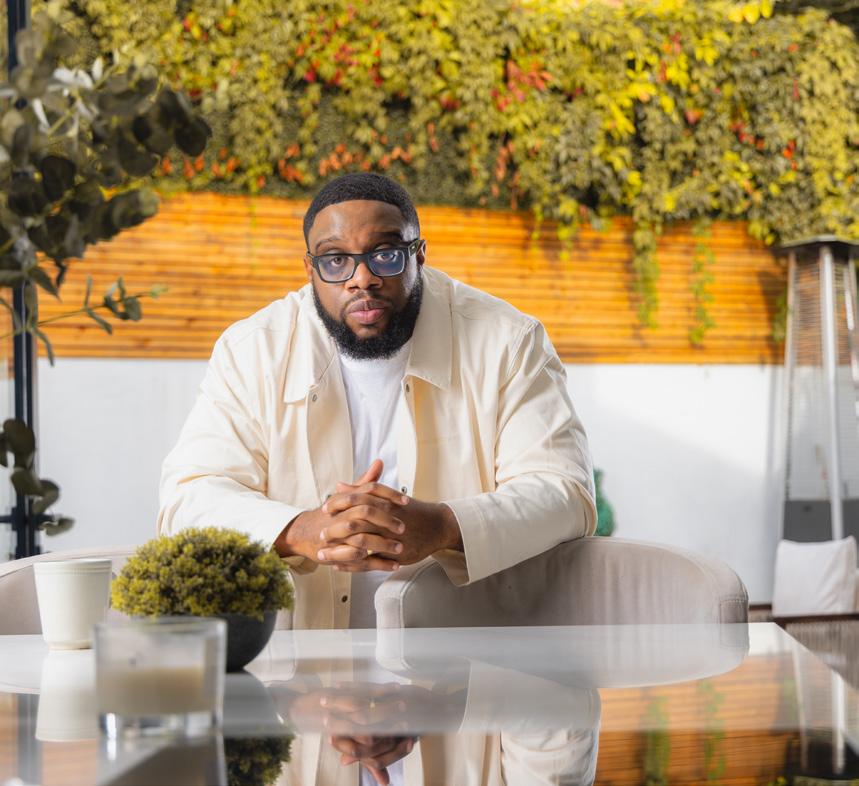
In the book, you introduce different characters with varying approaches to money. How did you develop these characters, and how do they help children see the diverse ways people think about money?
The characters were inspired by the idea that, in real life, we often turn to friends for advice rather than financial advisors. We all have different attitudes toward money - some people are spenders, others are savers, some are risk-takers, while others are more cautious. We wanted to represent these various traits through different characters.
Each character embodies a unique approach to money, and throughout the story, you see how these traits play out in different situations.
Financial literacy is not always taught in schools. What vital financial principles do you believe every child should learn to build a foundation for future economic success?
In the book, we discuss the 50/40/10 rule as a guideline for budgeting. I believe budgeting is a crucial skill that everyone should have. Many people work hard to earn money but never really learn how to manage it effectively, so it often disappears before the
end of the month, leaving little room to save or invest.
Budgeting is a valuable skill that helps with day-to-day finances and lays the foundation for future financial success. A strong understanding of allocating money wisely will benefit anyone as they begin to earn and build wealth over time.
Many parents may feel overwhelmed by financial topics themselves. How does The Ultimate Guide to Money equip both children and parents to learn together about managing money effectively?
The Ultimate Guide to Money provides a valuable tool for parents to initiate conversations about money with their children. It introduces key financial topics in a way that encourages open dialogue, allowing parents to easily guide and expand on these subjects.
The central idea, teaching kids how to turn £1 into £1 million, offers numerous examples of how children can start making money, with opportunities for parents to get involved. While the goal may not necessarily be to make a million, parents can support their child in starting a side hustle, working together on real-world business ideas. This collaboration strengthens the parent-child bond and equips children with a deeper understanding of finance and business. Ultimately, the book serves as a great conversation starter about money, helping to foster financial literacy from an early age.
Your book mentions entrepreneurship and improving the world through financial knowledge. How can kids begin to think like entrepreneurs, and what impact do you hope this book will have on their mindset toward money?
When it comes to entrepreneurship, an entrepreneur is simply someone who solves problems. The term “business” can sometimes sound intimidating, so in the book, we focus on simplifying it by framing it as helping people, which is the essence of entrepreneurship. It’s all about addressing a problem that people are facing and finding a way to solve it.
I encourage kids to think about how they can help someone. Whether washing a neighbour’s car, running errands or mowing their lawn, the key is identifying problems you can solve. If you can do that and earn money from it, you’ve already tapped into the core of entrepreneurship. It’s all about solving real-world issues and positively impacting others while learning valuable skills.
Looking ahead, do you have plans for any future books or resources to continue promoting financial literacy, and what role do you see yourself playing in shaping the next generation’s understanding of money?
We’re currently working on various tools and resources, including apps, content, and a financial school, all aimed at delivering financial knowledge in an easyto-understand way. Our goal is to empower people to make better financial decisions. I believe this is my role. Money and finance are my passions, and helping others understand these concepts is what I feel I’ve been called to do. I’m always exploring new ways to help people.
We also have ideas for new books in the pipeline, especially focused on addressing common financial challenges. For instance, we’re looking at issues teenagers and young adults face as they start their careers, and there will likely be a book on that in the future. Ultimately, our mission is to continue finding innovative ways to empower people in money, finance, and business, ensuring they have the tools to thrive.
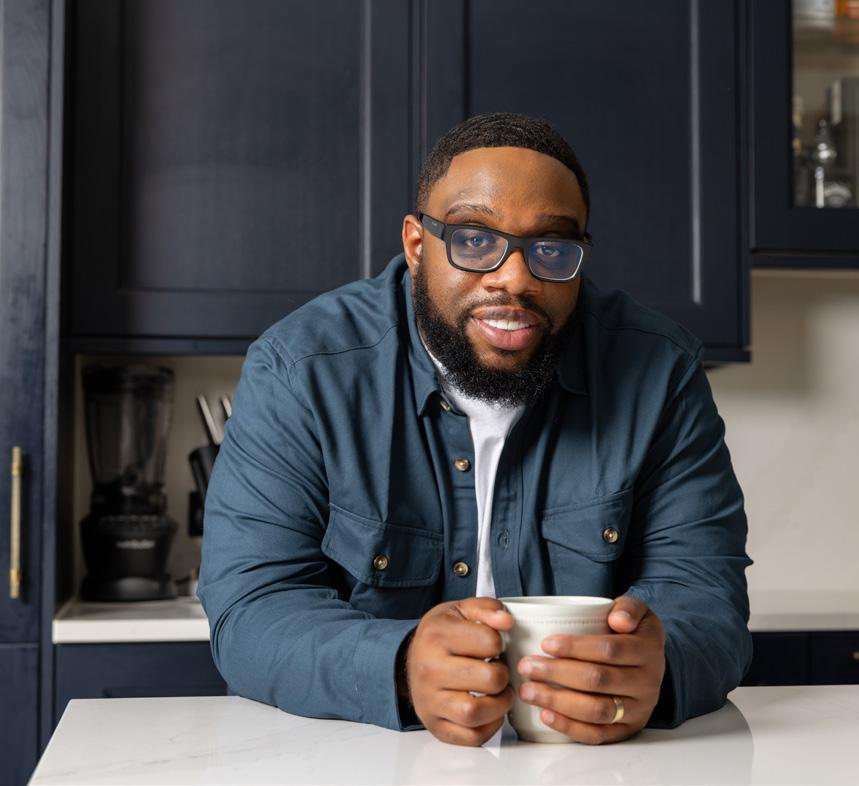
Scan the QR Code to learn more about Emmanuel Asuquo
Quick Fire Questions
What’s the best money advice you’ve ever received?
Love myself. If I love myself, I won’t need to buy many different things to feel loved. I’m already loved, and I’m really special.
What’s one thing every kid should know about money?
Money is a tool to make more money; it is not just something used to buy sweets; it is a tool to create more money.
Saving or investing – which is more important?
Savings are great for building the habit, but investing is what will get you to build wealth.
What’s the first thing you bought with your own money?
Jordans.
Who is your most significant financial inspiration?
Robert Kiyosaki – Rich Dad, Poor Dad.
What’s the most common money mistake people make?
Instant gratification.
If you could teach one lesson about money in every school, what would it be?
If you can add value to people, money will follow. Don’t think about how I can make more money; wake up every day thinking about how I can help people.
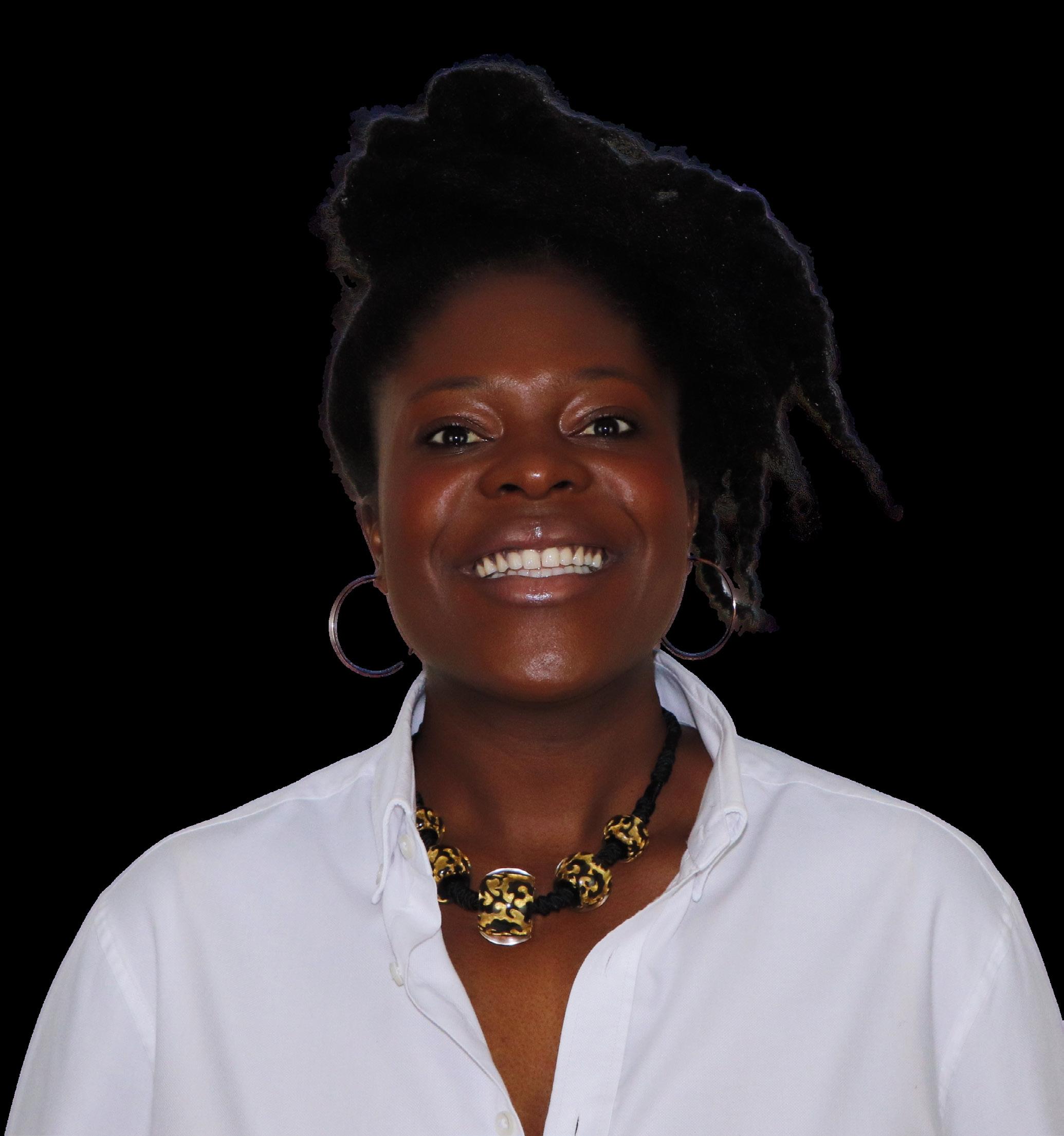
At pRESPECT, we deliver a comprehensive suite of services designed to elevate your organisational culture and empower your people. Our bespoke programs drive career advancement and help organisations build equitable, inclusive environments where everyone thrives.
We specialise in:






Inclusive Conversations Masterclass: Enabling meaningful dialogue to create an inclusive workplace culture.

Public Speaking & Communication: Equip yourself or your team with confidence and communication skills.
Ignite Ambition Programme: A holistic approach to career development, unlocking individual potential.
Implementation of DEI & Belonging Strategies: Build sustainable diversity, equity, and inclusion systems.
Proven Frameworks for Anti-racism: Practical strategies to dismantle racism and promote allyship.
Business Startup Advice: Support for emerging entrepreneurs to launch and grow their businesses.

With over 30 years of combined expertise, our multi-award-winning social impact organisation provides the tools, guides, training and frameworks needed to create lasting transformation.

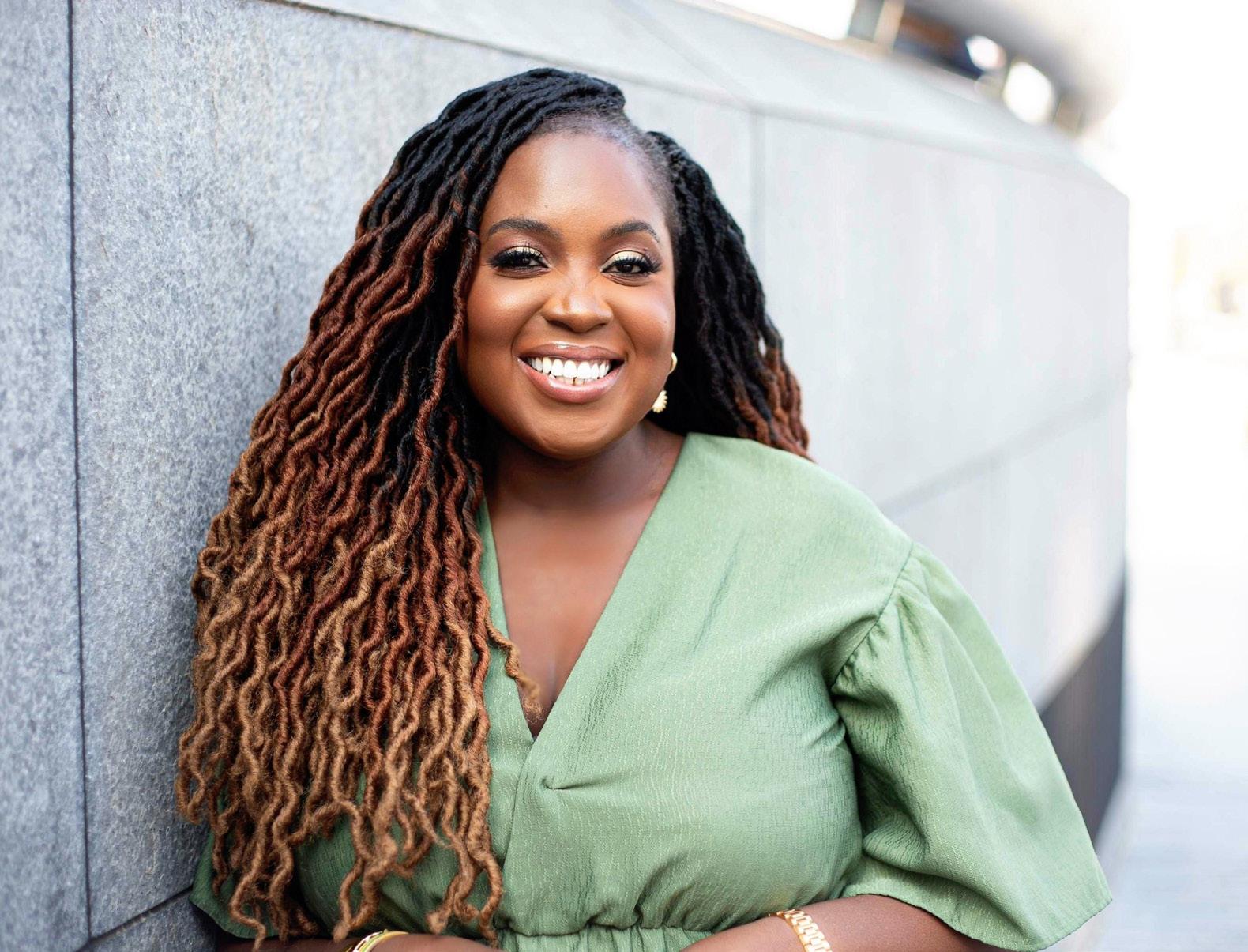
Afua Hagan, the newly appointed Managing Editor of Black Business Magazine, brings a wealth of experience from a diverse career in broadcasting, journalism, and public speaking. Her journey into this role is a testament to her passion for storytelling and dedication to amplifying underrepresented voices.
“When I first discovered Black Business Magazine, I was instantly captivated by the quality of its content,” she shares.
“I was heavily involved in broadcasting at the time but thought, if I were to return to magazines, this would be the one.”
A chance connection with Dr. Tru Powell, whom she hosted on a podcast for Arden University, led to her joining the team.
“We really hit it off, and the rest,
as they say, is history.”
Hagan’s extensive media background, from music publishing to TV presenting, uniquely positions her to elevate Black Business Magazine’s editorial direction.
“I’ve had the privilege of meeting people from all walks of life, and what I’ve learned is the power of storytelling - whether it’s on screen, on a podcast, or in print,” she explains.
“My goal is to inspire our readers with stories that resonate and reflect their experiences.”
Championing diversity and inclusion has been central to Hagan’s career, and she plans to continue this mission at Black Business Magazine.
“It’s crucial to hold space for voices that are often overlooked,” she says.
“These are the stories that linger long after you close the magazine. We aim to spotlight those who deserve to be seen and heard.”
Her previous roles at Glam Africa and Pride Magazine have prepared her for the dynamic world of magazine publishing.
“Working under tight deadlines, often while juggling personal challenges, taught me resilience and adaptability,” Hagan reflects.
“At Black Business Magazine, I’m grateful to be part of a team that values my contributions and keeps me engaged.”
Hagan’s commitment to amplifying Black voices extends beyond her editorial work. She’s also a respected presenter, commentator, and keynote speaker. Her TEDx talk, “Too Dark for Daytime TV,” is a powerful reflection on representation in the media.
“Black Business Magazine is the perfect platform to continue this
advocacy,” she notes. “We’re here to tell the stories of Black-owned businesses in a genuine and impactful way.”
Balancing her various roles requires careful planning and self-care.
“I make sure to move my body every day, whether it’s a workout at home or a walk outside. It’s vital for my mental and physical well-being,” she says.
“I’m also learning to say no to certain commitments and truly value my downtime.”
Afua Hagan’s leadership promises to take the magazine to new heights, inspiring and empowering the Black business community with every turn of the page.
Scan the QR Code to learn more about Afua Hagan
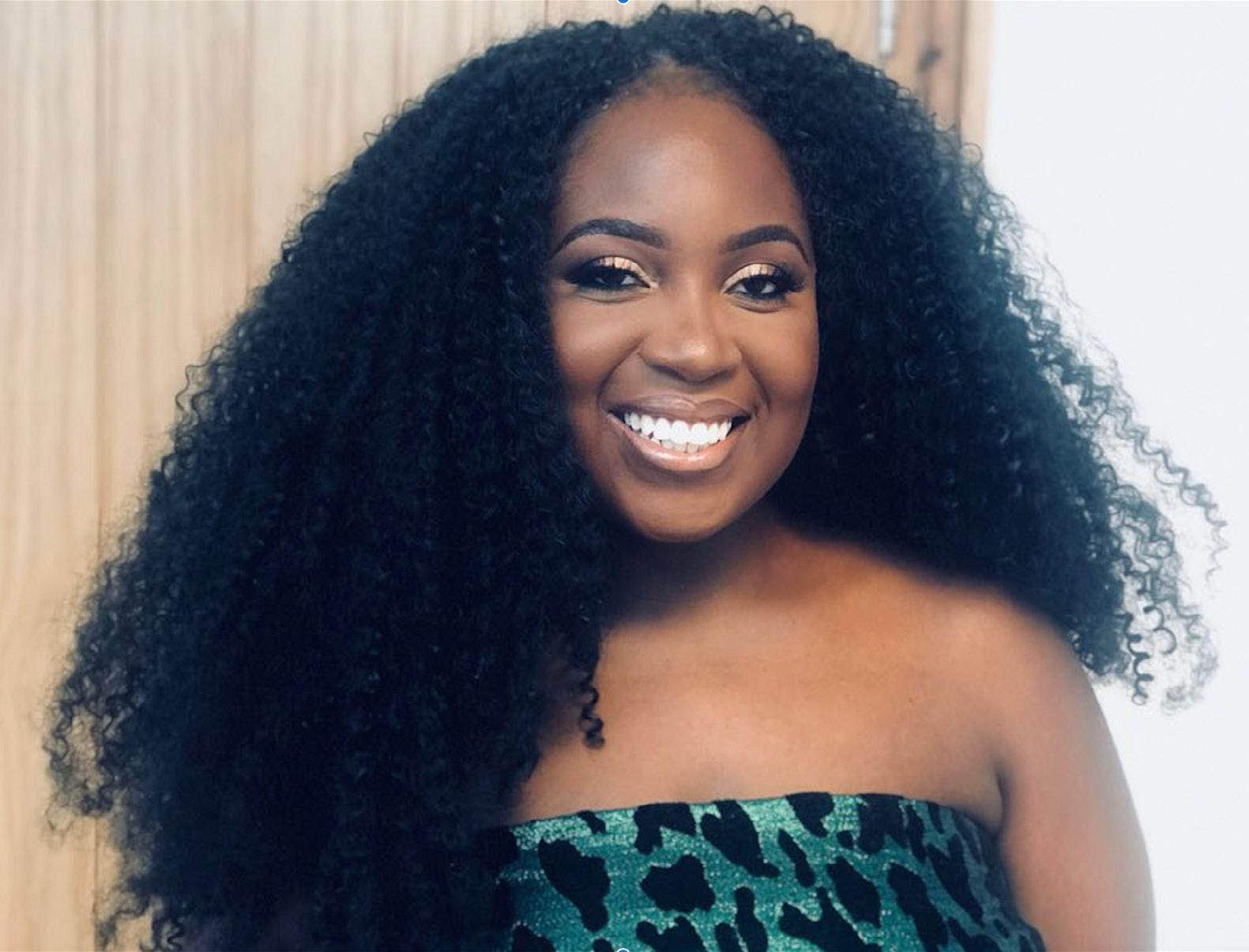
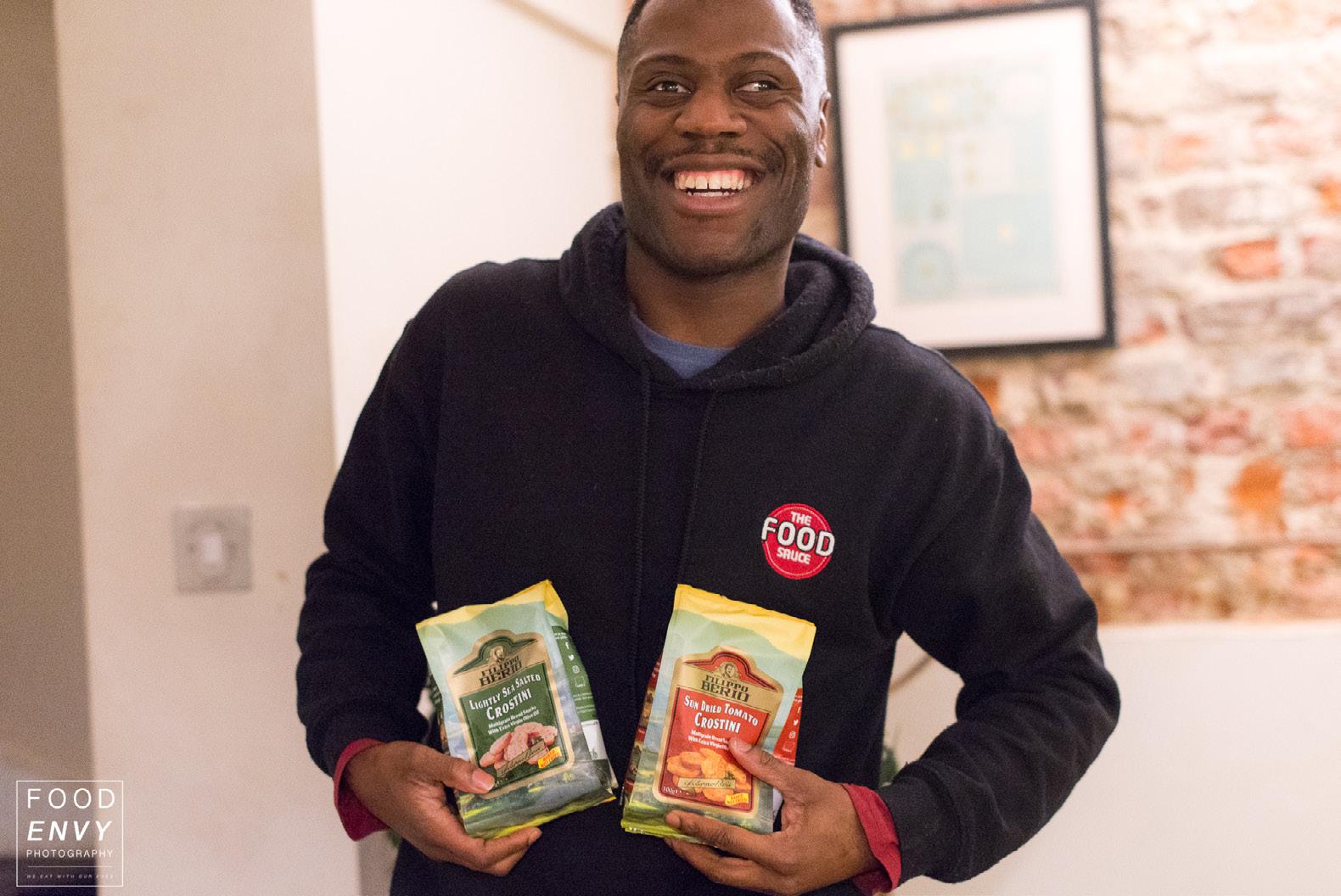
Colin Mordi’s journey in the marketing world is one of determination, resilience, and innovation. A seasoned marketing professional with a background in Digital Marketing Communications, Colin has worked with globally recognised brands such as Samsung and Procter & Gamble. But despite his experience, securing a permanent role in the field proved to be a frustrating challenge. However, this hurdle became the catalyst for a transformative journey that led Colin to not only carve out his own path but to create meaningful change in the food and drink industry through his two ventures, Food Sauce Media and Spill the Beans.
While working as a Catering Assistant in a care home, Colin yearned to keep his passion for marketing alive. So, he launched Food Sauce Media, a blog that initially served as an outlet to connect with fellow food lovers and promote independent food and drink producers.
“I needed a way to stay involved in marketing, even if I wasn’t working in the field full-time,”
What started as a side hustle soon evolved into something much bigger. Food Sauce Media began gaining traction as a platform that celebrated and amplified the voices of small and independent food producers. Colin started running giveaways and competitions across social media, building a community of engaged food enthusiasts. These activities eventually led to partnerships with emerging food brands, further expanding Food Sauce Media’s reach and impact.
“We started hosting events, and brands began to sponsor them, which allowed us to grow,”
One significant moment was when they hosted a blogger event at Levi Roots Caribbean
Smokehouse restaurant, creating content to promote his menu. It was a pivotal experience, demonstrating Colin’s ability to connect brands with their target audiences while offering them a platform to thrive.
As Colin delved deeper into the food and drink space, he couldn’t help but notice the lack of diversity, particularly among decision-makers in the industry.
“There’s a real gap in representation in the food industry,”
Frustrated by the underrepresentation of Black and ethnic minority food producers, Colin decided to take action. That’s when Spill the Beans was born.
Launched as the UK’s only event dedicated to connecting Black and ethnic minority fastmoving consumer goods producers with supermarket buyers, Spill the Beans provides a unique platform for underrepresented food entrepreneurs to showcase their products, gain exposure, and build vital industry connections. The aim? To open doors for producers who otherwise may not have access to the same opportunities as their counterparts.
“Breaking into retailers is tough, especially for minority-owned businesses, the industry often favours established brands, and smaller producers struggle to get their foot in the door.”
Spill the Beans seeks to level the playing field, giving these talented entrepreneurs a chance to shine.
The industry response has been overwhelmingly positive. Buyers from major retailers like Tesco, Sainsbury’s, Selfridges, and Ocado have attended the events, keen to discover new and exciting products from a diverse range of producers. And the results speak for themselves. Colin proudly shares the success stories of brands like Vegan Patty Lady and Superfoodio, who have secured distribution deals with major retailers after connecting with buyers through Spill the Beans.
For Colin, the challenges facing underrepresented producers extend beyond product placement.
“Access to funding is a major issue,”
“Many minority-owned businesses struggle to secure investment, often due to a lack of connections or systemic bias.”
Marketing and visibility also pose hurdles, as small producers frequently lack the resources to promote their products effectively. Through Spill the Beans, Colin aims to break down these barriers by providing producers with direct access to buyers and the knowledge, mentorship, and networking opportunities they need to grow their businesses.
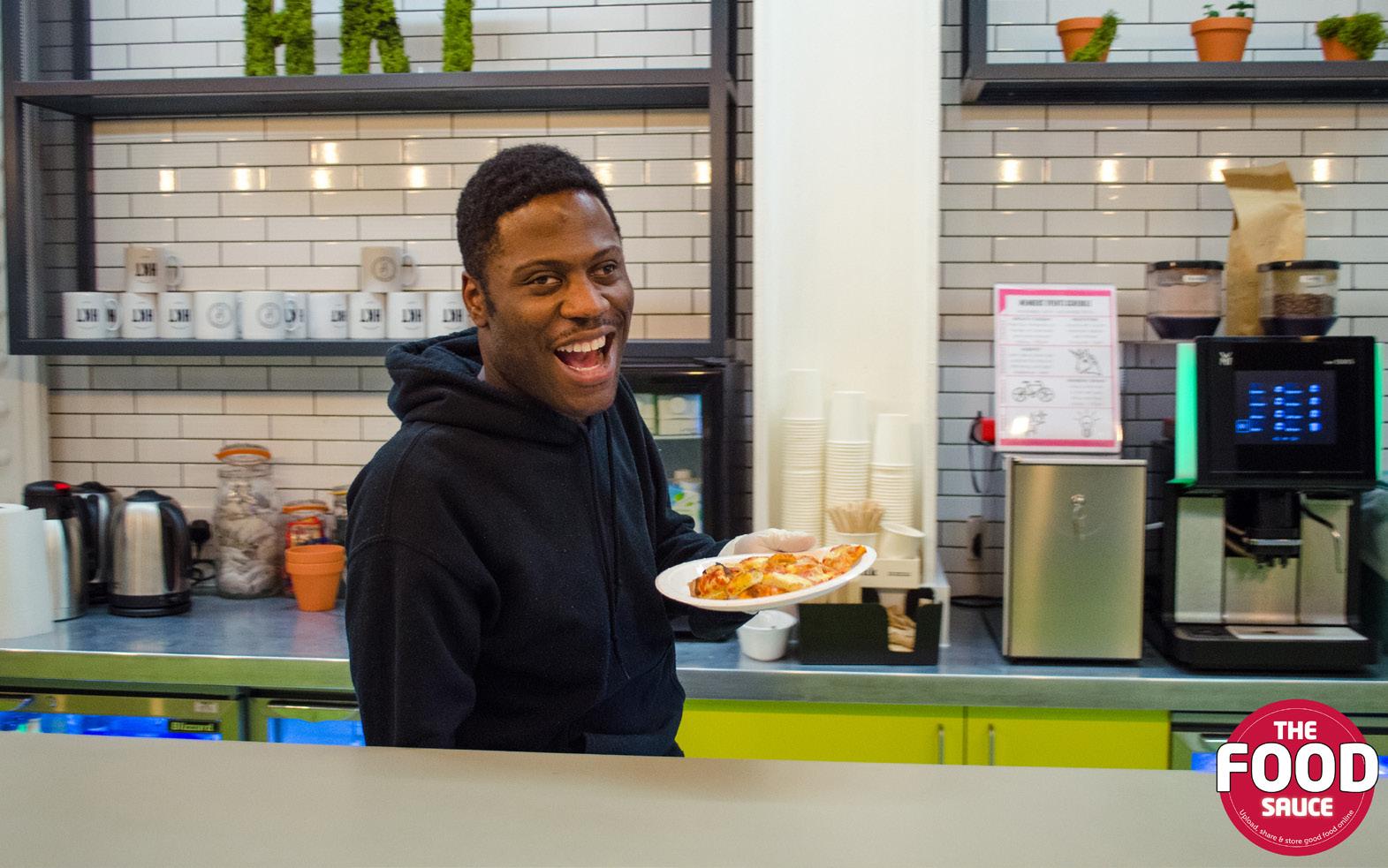
“It’s not just about getting products on shelves; it’s about creating a sustainable ecosystem where these businesses can thrive.”
Since its inception, Spill the Beans has become a vital platform for showcasing the creativity and innovation of minority producers.
“Brands like Jim Jams, Moju, and the Oppo brothers all featured on Food Sauce Media early in their journeys,”
“It’s been incredible to see them grow and gain recognition within the industry.”
For Colin, these collaborations highlight the importance of supporting small, independent producers as they enter larger markets.
“Our goal has always been to provide a space where new and exciting products can shine and where diversity is celebrated, not overlooked.”
As Colin looks to the future, his ambitions for Food Sauce Media and Spill the Beans continue growing. He envisions expanding Food Sauce Media’s focus on storytelling, using creative content to spotlight the journeys of underrepresented producers.
“We want to be more intentional about telling the stories behind the brands,”
“It’s about connecting with audiences on a deeper level and highlighting the passion and hard work that goes into these products.”
On the Spill the Beans front, plans are already underway to host multiple events in the coming year, each building on the momentum of
previous successes. Colin is also working on a new initiative, a ‘sister’ event focusing on a complementary aspect of the food and drink industry. Additionally, a larger conference is in the works, bringing together retailers, investors, and other key players to discuss the challenges and opportunities for underrepresented producers on a broader scale.
Colin’s vision is clear: to create lasting change in the food and drink industry, ensuring it reflects our rich multicultural society. He’s making that vision a reality through Food Sauce Media and Spill the Beans - one underrepresented producer at a time.
What’s your go-to comfort food?
Rice and oxtail stew with black-eyed beans.
Anything with broad beans.
Who is your biggest inspiration in the food and drink industry?
Nix & Kix, Littlepod, Jim Jams, and Moju - they have supported me on my journey from the beginning.
What’s one marketing tip every small food producer should know?
Storytelling.
If you could collaborate with any brand or chef, who would it be?
Andie Oliver.
Coffee or tea to keep you going during long workdays?
Peppermint tea.
Scan the QR Code to learn more about Colin Mordi

By Judith Pelucchini

When discussing wealth in business, the first things that come to mind are profits, assets, and financial growth. But there’s another form of wealth that’s just as critical to success and often overlooked: mental wealth.
According to a recent study in the UK, four in five business owners report experiencing common symptoms of poor mental health at least a few times a year. Furthermore:80% reported experiencing symptoms of poor mental health.
Mental wealth isn’t about your net worth. It’s about your mind’s worth. It’s the emotional, psychological, and mental resources you bring to the table every day. In an era where burnout, stress, and anxiety are at an all-time high, cultivating mental wealth is the most important investment you can make for yourself, your team, and your business.
Mental wealth is the collection of skills, habits, and
mindsets that allow you to maintain mental clarity, resilience, and focus in facing challenges. Like financial wealth, it grows through smart investments, like selfcare and emotional intelligence. It’s about keeping your mind strong, agile, and capable of handling the pressures of modern business without crashing. The reality is that without mental wealth, financial wealth becomes unsustainable. You can’t build a lasting empire if your mind is constantly in survival mode.
Clarity and Decision-Making Mental wealth gives you the clarity to make sound decisions, even when under pressure. Leaders with mental wealth don’t let stress cloud their judgment. They think clearly, make better choices, and avoid costly mistakes. In business, every decision matters, especially the tough ones. Having a clear mind is your competitive advantage. You can
support your teams without being overly emotional, receive feedback without taking things personally and have a long-term vision, setting everyone up for success.
Resilience in the Face of Adversity Business is full of highs and lows. Success isn’t just about how well you perform when everything’s going great. It’s about how you manage when the pressures are on. Mental wealth builds resilience, allowing you to bounce back from setbacks, adapt to changes, and keep moving forward, no matter what challenges arise.
Emotional Intelligence and Leadership Great leaders aren’t just measured by their technical skills. They’re defined by their ability to connect with and inspire others. Emotional intelligence, a key part of mental wealth, helps leaders understand, manage, and leverage their emotions and those around them. This creates a healthier, more productive work environment where people feel seen, valued, and motivated.
Sustainable Growth Many businesses chase shortterm gains at the expense of long-term health. But if you’re constantly grinding without regard for your mental well-being, it’s only a matter of time before you hit a wall. Mental wealth is about playing the long game, creating a sustainable pace that allows you to maintain peak performance over the years, not just the next quarter.
Like financial wealth, mental wealth requires intention, discipline, and consistent effort. Here’s how you can start building yours:
Invest in Self-Care Self-care isn’t just bubble baths and holidays. It’s the daily habits that keep you mentally and emotionally sharp. This could mean carving out time for exercise, spending time with friends, watching comedy and laughing consciously, or simply getting enough sleep. The better you care for yourself, the more equipped you’ll handle whatever business throws your way.
Practice Meditation: Meditation isn’t just a buzzword - it’s a proven tool for managing stress and staying present. In business, being mindful allows you to focus on what matters most, eliminate distractions, and make better decisions. Simple practices like mindful breathing or even a few minutes of quiet reflection, journaling your day, and people watching while having a cup of tea can make a huge difference.
Set Boundaries Success in business often comes at the cost of personal boundaries, but protecting your mental wealth means knowing when to say no. Create boundaries that protect your time, energy, and mental well-being. You don’t need to be available 24/7 to be successful. Having clear boundaries will improve your productivity and creativity.
Stay Curious Mental wealth isn’t just about maintaining your current state of mind. It’s about continuously growing it. Curiosity keeps your brain active, engaged, and adaptable. Whether it’s learning a new skill, adopting a childhood hobby you let go of, or scheduling short breaks to travel away from home and explore the world. Curiosity ensures that your mental wealth continues to expand.
Create a Mentally Healthy Work Environment Mental wealth isn’t just a personal pursuit. It’s something you should cultivate across your entire organisation. Encourage open conversations about mental health, provide resources like therapy or coaching, and lead by example regarding work-life balance. A mentally healthy team is a more engaged, productive, and loyal one.
In business, it’s easy to get caught up in the numbers, the deadlines, and the relentless drive to succeed. But if you’re neglecting your mental health, you’re not just risking burnout. You’re putting your entire life at risk. Mental wealth is your greatest asset, one you can’t afford to ignore.
“The best investment you can make is an investment in yourself … The more you learn, the more you’ll earn”Warren Buffet
Start treating your mental wealth with the same care and attention you give to your financial wealth. The returns won’t just show up in your bank account. They’ll show up in your decision-making, your leadership, and your ability to create a business that thrives longterm.
Ultimately, true success isn’t just about what you’ve achieved. It’s about how you feel while achieving it. Building mental wealth is the key to achieving more without losing yourself in the process.
Your mind is your most powerful asset. Invest in it. Grow it. Protect it.
Scan the QR code to discover more about Judith
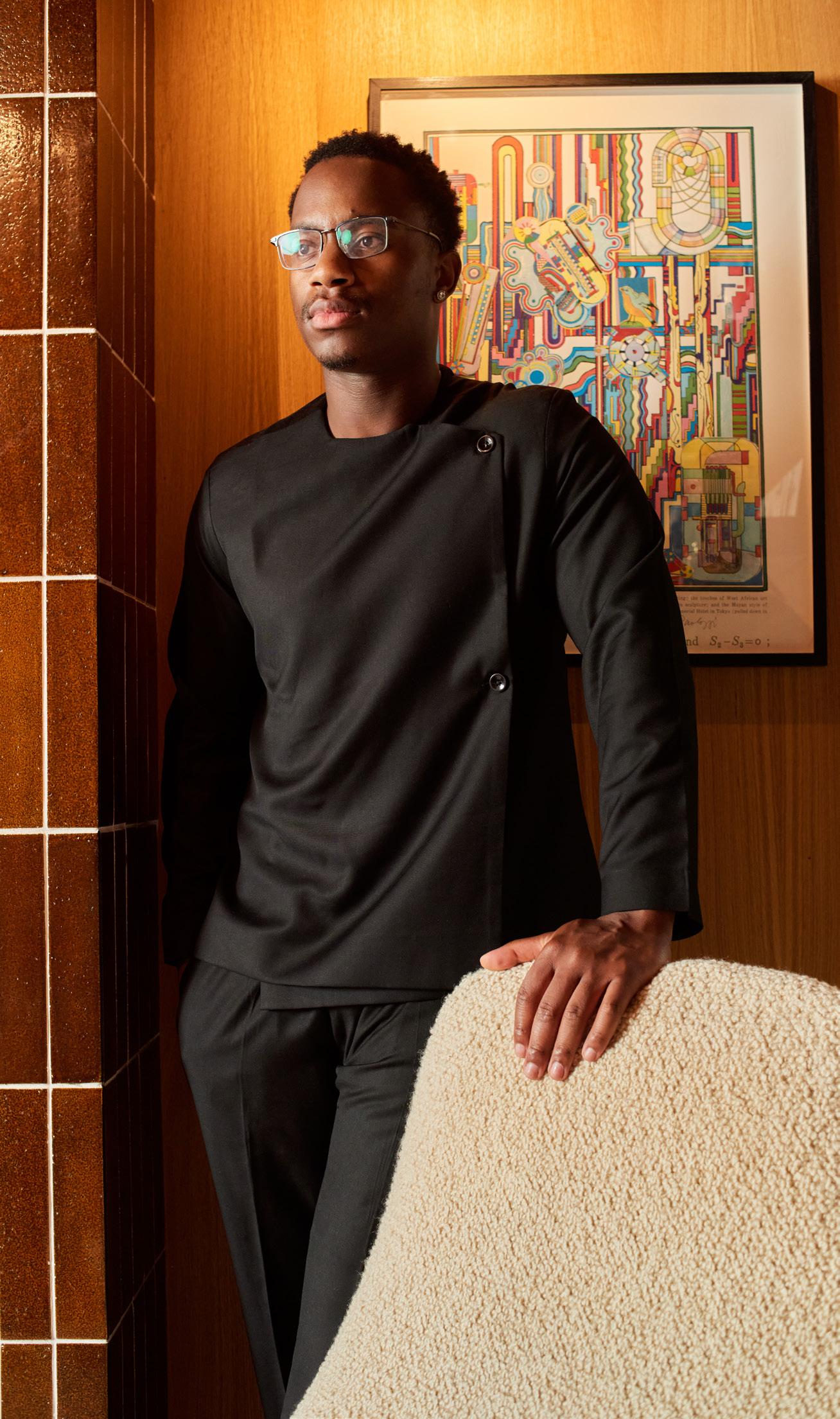
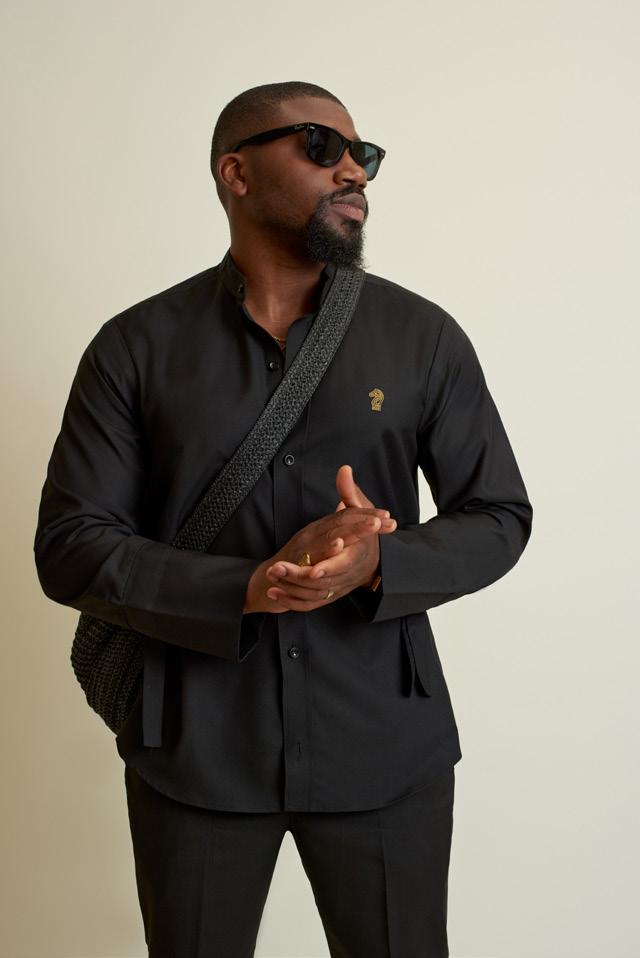
Entrepreneur Philip Dada Jr, is a qualified barrister who left the courtroom to pursue his true passion—fashion.
Combining his legal expertise with creativity, Philip founded his namesake luxury brand, Philip Dada Jr, which blends European design’s elegance with Africa’s vibrant spirit. With studios in London and Abuja, his brand has dressed high-profile clients like Ian Wright and Timo Armoo. Philip’s journey from law to fashion is a bold testament to following one’s dreams and redefining luxury on a global scale.
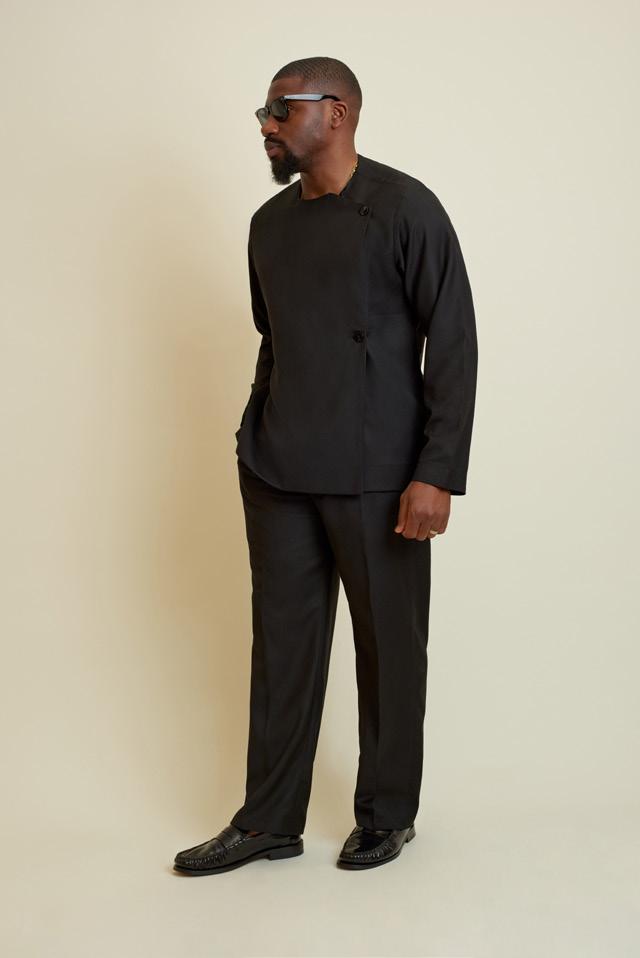
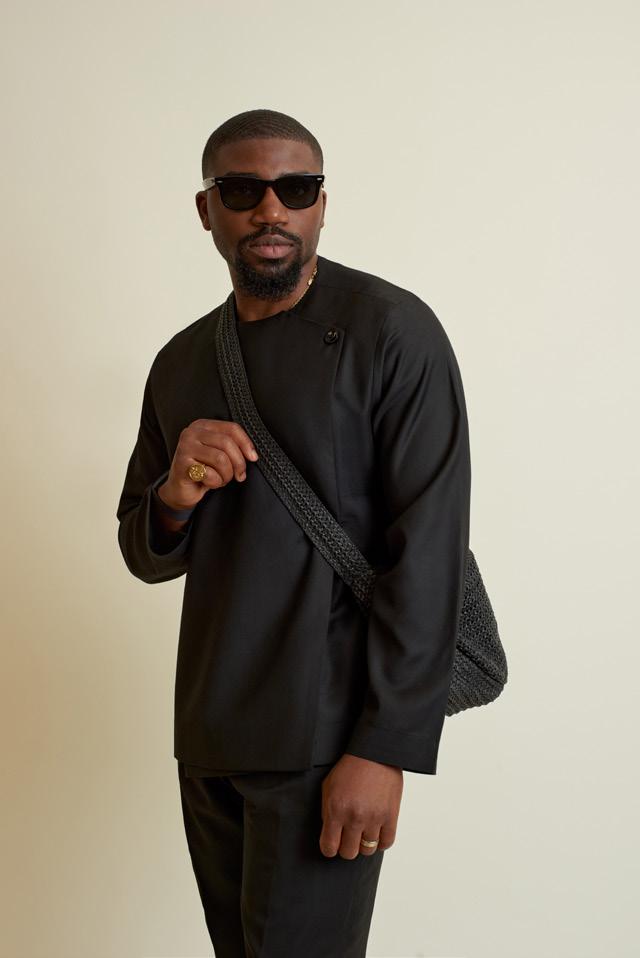
You have a strong legal background as a barrister. What skills from your legal training have you found most beneficial in your fashion career?
My legal background as a barrister has been invaluable in building Philip Dada Jr (PDJ). Skills like attention to detail and precision in tailoring directly parallel my legal training. Negotiation skills help secure partnerships and deals, while critical thinking aids in solving business challenges. Understanding contracts and intellectual property ensures the brand’s legal protection and effective communication enhances client relationships. These skills have been key to scaling the brand and maintaining excellence in both craftsmanship and business operations.
Can you describe the moment when you realised that fashion was your true passion? What prompted that decision?
In 2019, I had a defining moment when I realised that fashion was more than just a creative outlet for me—it was the gateway to building a business that could merge my love for craftsmanship with entrepreneurship. While my legal career provided structure and security, fashion offered something more dynamic: the chance to create, innovate, and shape an entire brand from the ground up. What prompted the decision was the realisation that through fashion, I could express my vision and establish a business that reflected my values, ambition, and desire for impact through fashion. That’s when PDJ truly came to life as a purposeful venture, merging creativity with business acumen.
How did your family’s expectations shape your initial career path, and how did they respond to your transition into fashion?
My family’s expectations played a significant role in shaping my initial career path. Like many Nigerian families, there was a strong emphasis on pursuing a prestigious, stable profession, which led me to study law and become a barrister. I fulfilled their dream by achieving that, but deep down, I knew I had a passion for something more creative and entrepreneurial.
When I transitioned into fashion, it was met with mixed
reactions. There was initial hesitation and concern, as fashion seemed unconventional compared to law. However, as the brand started to gain recognition and success, they saw that my decision was grounded in purpose and business potential. Over time, they’ve become incredibly supportive, especially as they’ve witnessed the growth and impact of the brand.
Your brand emphasises craftsmanship and individuality. Can you elaborate on how these principles are integrated into your designs?
For me craftsmanship and individuality are at the heart of every design. I think it is important that people like what they buy from me, so each piece is meticulously crafted to reflect the unique style and personality of the wearer. We focus on precision, using high quality materials and tailoring techniques to ensure each clothing is a perfect fit. The truth is sometimes, to get to perfection is tough but the journey is always worth it when I satisfy the vision my customer had in mind—not just in terms of measurements but in expressing the client’s identity.
Individuality is celebrated through personalised touches, from custom fabric selections to intricate detailing that sets each garment apart. Our designs are more than fashion; they’re a statement of who the client is, what they are about and where they are going. By integrating these principles, we create clothing that’s not only luxurious but deeply personal.
You aim to redefine
African
and
European
luxury. What does that mean to you, and how do you convey that through your
collections?
I’ve always been passionate about challenging the idea that African products are somehow lesser than Western ones. For me, redefining African and European luxury means bringing together the rich cultural heritage of Africa with the craftsmanship and refinement often associated with European design. It’s not about one being better than the other—it’s about creating a new standard that reflects both with sophistication, minimalism, and timeless quality. With each collection, I strive to create pieces that not only answer our customers’ needs but also reflect where I am on my creative journey—an intimate fusion of their desires and my evolving artistic vision.
How do you balance modern luxury with cultural fusion in your designs?
I’m from the Northern part of Nigeria and growing up, I always admired my dad’s kaftans and all his traditional pieces. He always looked regal! I dreamt of a day when I could build something with elements of his African style, blended with the sophistication of an English suit. The balance comes by integrating traditional elements with contemporary design, while maintaining a focus on sophistication and minimalism. For example, our kaftans, which are manufactured in Nigeria, reflect a cultural heritage that’s deeply rooted in African tradition, but we approach them with a modern aesthetic so that people are confident to wear it as part of their everyday wardrobe and not just to weddings. That’s the whole idea of what an initiative we have created themed #PDJkaftanrevolution.
What have been some of the biggest challenges you faced in transitioning from law to fashion, and how did you overcome them?
One of my biggest challenges in transitioning from law to fashion was navigating the uncertainty. Since I didn’t practice law extensively, I never had the security that comes with building a legal career. Moving into fashion meant stepping into an entirely new industry without that safety net.
I overcame this by focusing on my vision for Philip Dada Jr and applying the discipline and problemsolving skills I gained from my legal training. Surrounding myself with mentors in both fashion and business also helped me learn quickly and make informed decisions. Staying committed to my purpose and being adaptable in the face of challenges allowed me to build a brand from the ground up.
My advice to upcoming entrepreneurs and designers is to stay true to their vision but be flexible with the process. I have had to do this personally. When first starting out, you need data on what works and what does not work. The only way to get that is to try things out and not be afraid to fail. I always say in business, your first 2-5 years are really for collecting data, then the real work begins. Also, pay continual attention to building a solid foundation—whether it’s through honing your craft, understanding your market, or learning from others in your field.
Dressing high-profile individuals like Ian Wright and Eddie Kadi is impressive. How do you approach creating bespoke pieces for such clients?
Creating bespoke pieces for high-profile individuals like Ian Wright and Eddie Kaddie involves a meticulous and personalised approach. First, I prioritise understanding their unique styles and preferences, beginning with an in-depth consultation to discuss their vision. I use this meeting to find out if there are any specific design elements they have in mind. For example, Ian is more likely go with a minimalistic design while Eddie would most likely go for something more eccentric.
Once I have a clear understanding of their requirements, I focus on craftsmanship and quality, by prioritising things like reviews of design sketches and fabric sampling. My tailoring team then use premium fabrics and tailoring techniques to create a piece that not only fits well but also enhances their personal style. I’m grateful for the opportunity to work with such inspiring people!
With operations in London and Abuja, how do you navigate the cultural differences in fashion preferences between these regions? What strategies have you implemented to expand your brand internationally while maintaining its authenticity?
Navigating cultural differences in fashion preferences between London and Abuja involves recognising each market’s similarities and unique aspects. The internet has made the world feel like a small village, leading to shared influences and trends. Excellence in design and craftsmanship is a global language that resonates across cultures.
However, I also acknowledge and navigate cultural differences by tailoring designs to reflect local tastes. In Abuja, I focus on traditional styles, vibrant colours, and rich fabrics, while in London, I emphasise sophistication and minimalism. To expand my brand internationally while maintaining authenticity, I leverage these cultural insights, ensuring that the core values of craftsmanship and individuality remain central to our offerings. This approach allows me to create collections that appeal to diverse audiences while staying true to the brand’s essence.
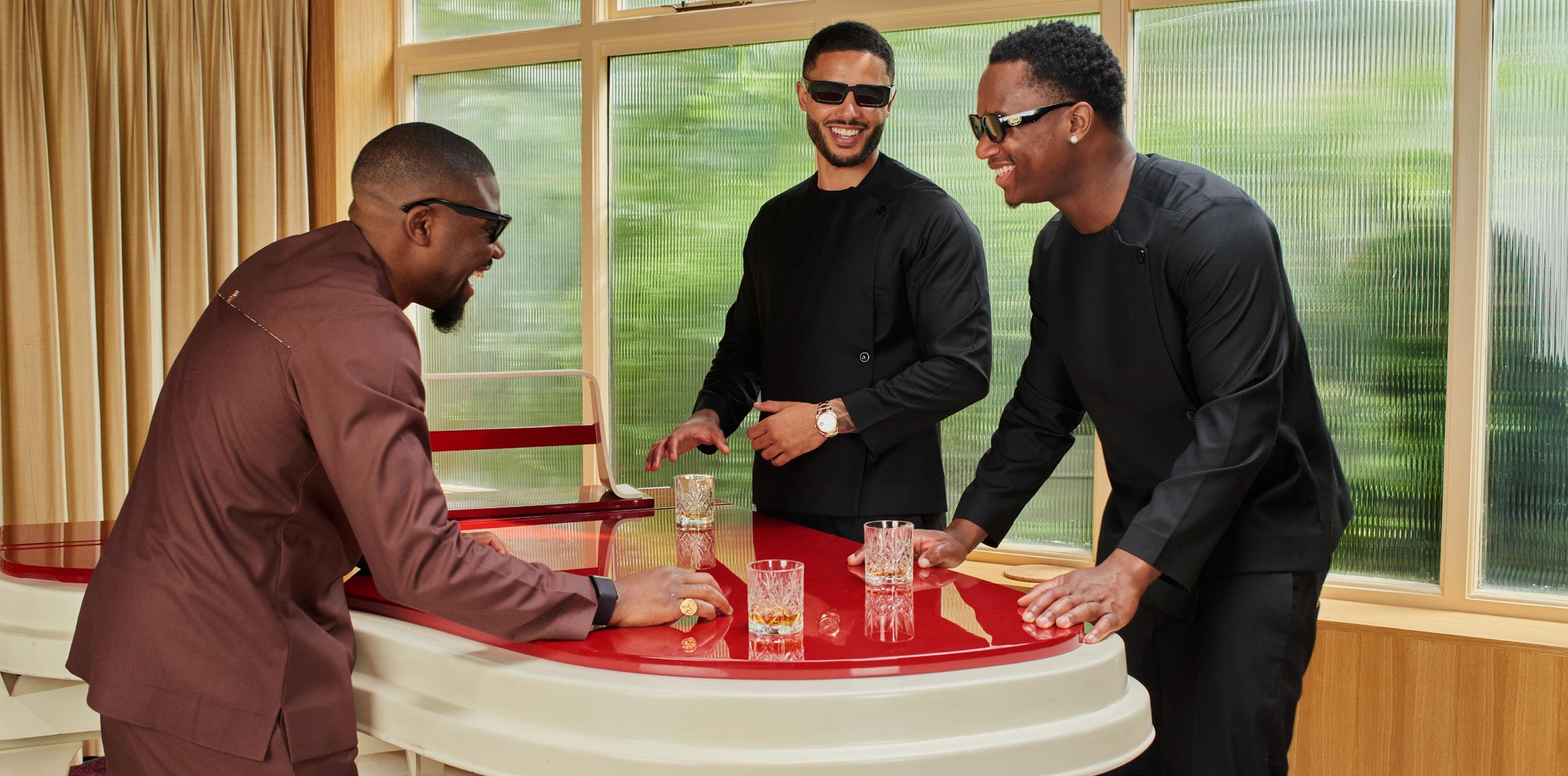
If you could collaborate with any designer or brand, who would it be and why?
If I could collaborate with any designer or brand, it would be Ralph Lauren or Loro Piana. I admire Ralph Lauren for his consistency and cultural relevance in the fashion industry; his ability to create timeless pieces that resonate across generations is something I aspire to emulate. On the other hand, Loro Piana stands out for their unparalleled emphasis on craftsmanship and quality, as well as their sophisticated communication of luxury. Collaborating with either of these brands would not only elevate my designs but also align with my vision of merging tradition with modern elegance, enhancing the narrative of PDJ.


Scan the QR code to discover more about Philip Dada Jr’
On July 19th, Black Business Magazine hosted its highly anticipated Anniversary Gala at The Grand Hotel in Birmingham. The elegant event celebrated the magazine’s Women of Influence edition, spotlighting powerful female voices and trailblazers in various industries. The highlight of the evening was the unveiling of the cover featuring the dynamic Candice Brathwaite, whose influence continues to shape conversations around motherhood, identity, and empowerment.
The night was filled with inspiring speeches, networking opportunities, and connecting with like-minded professionals and leaders. Guests enjoyed a sophisticated ambience, fine dining, and uplifting moments that reinforced the importance of representation and leadership for women of colour. The event was a remarkable celebration of achievement, resilience, and community, inspiring attendees to continue breaking barriers and making a difference.
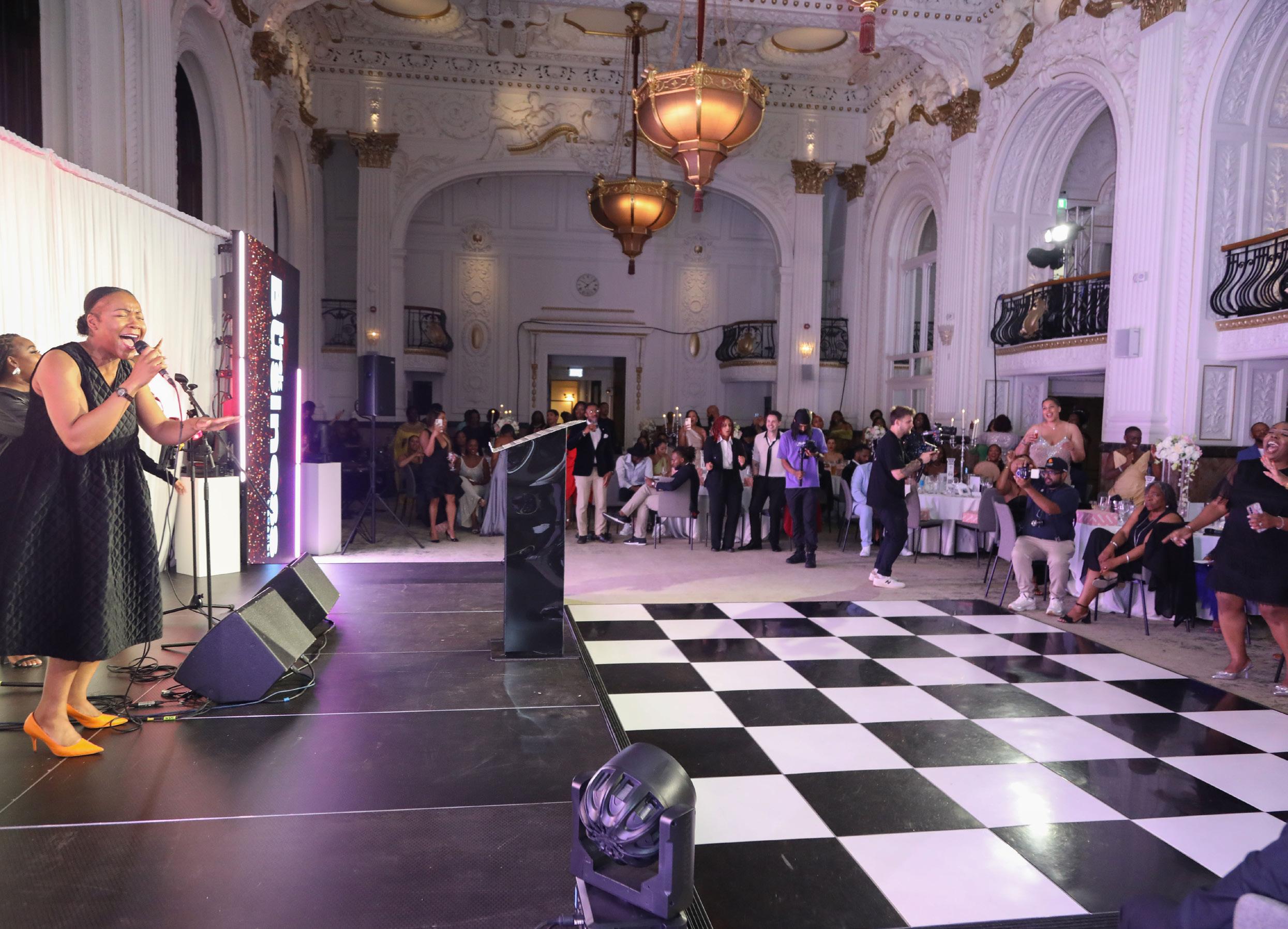
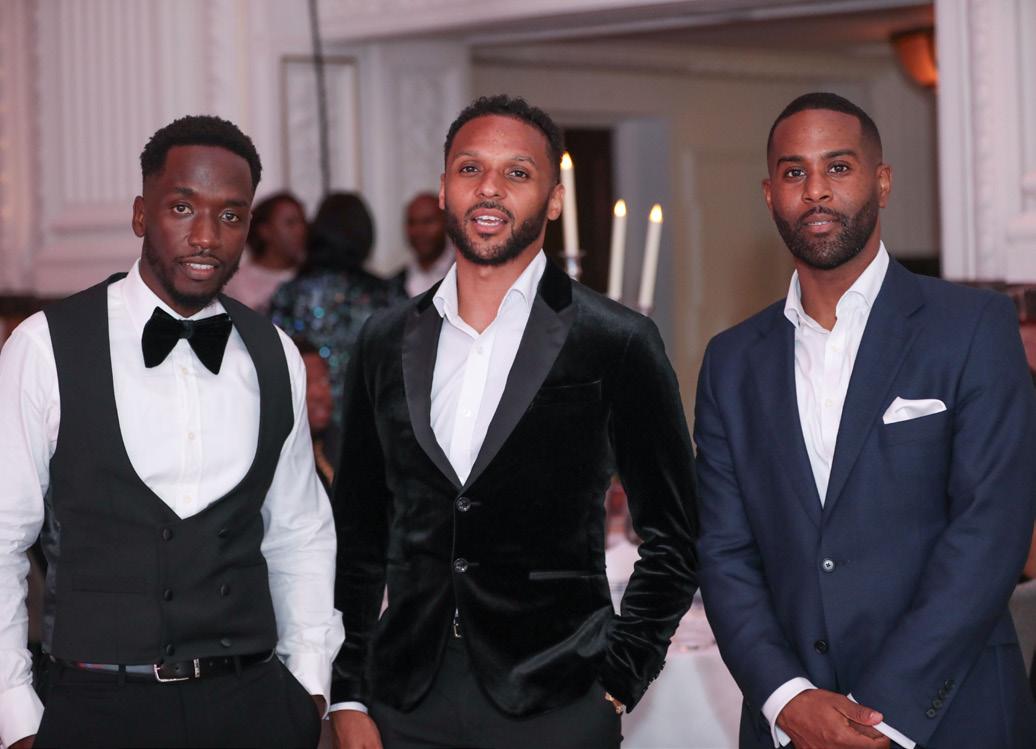

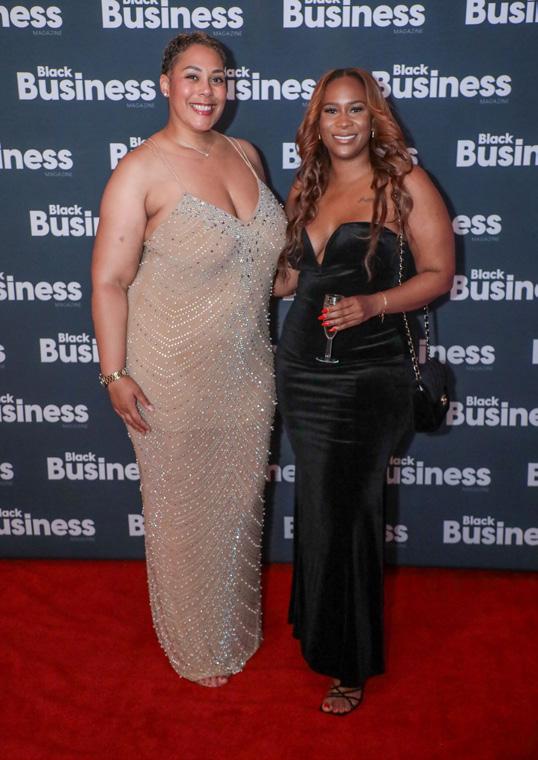
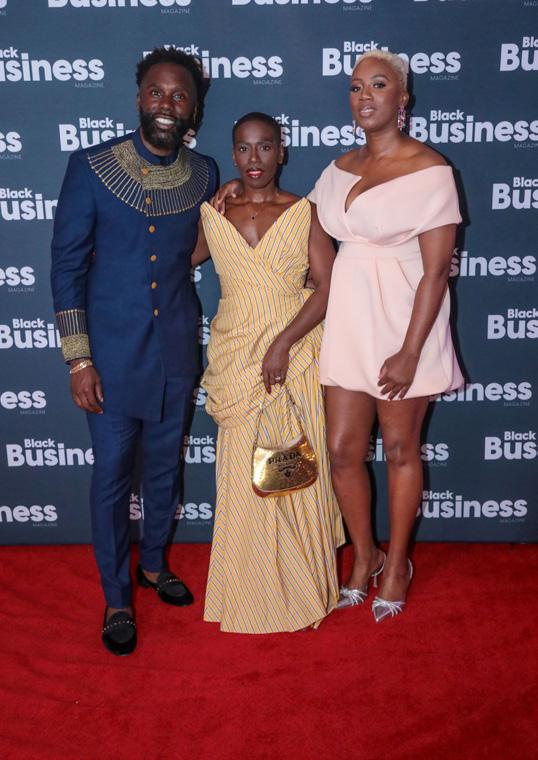
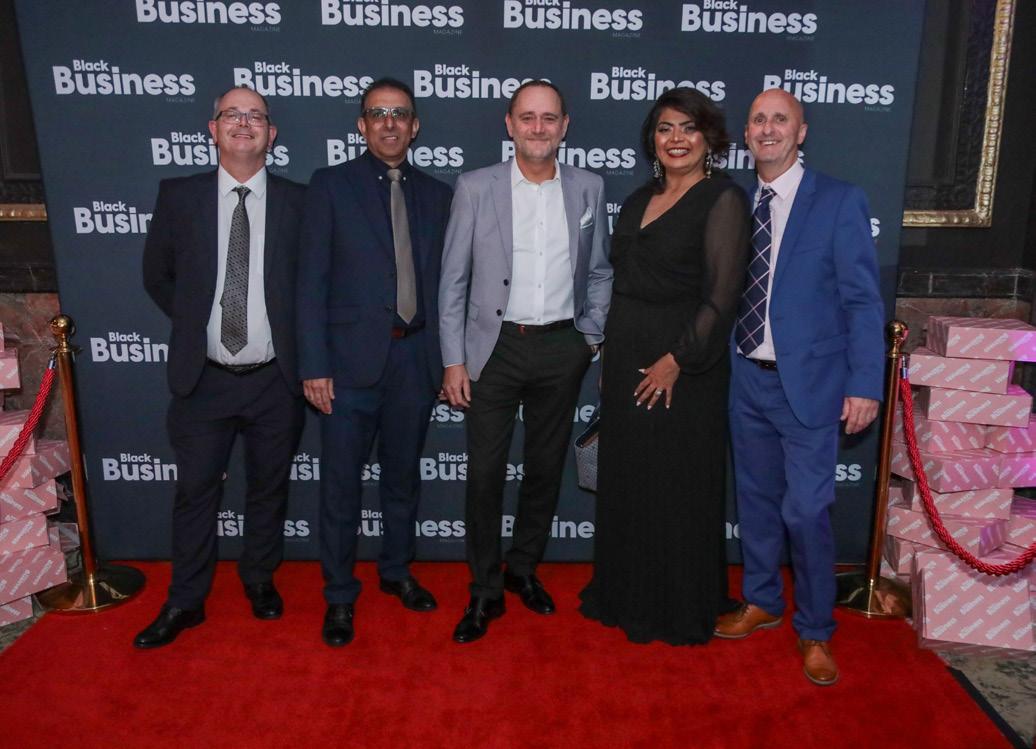
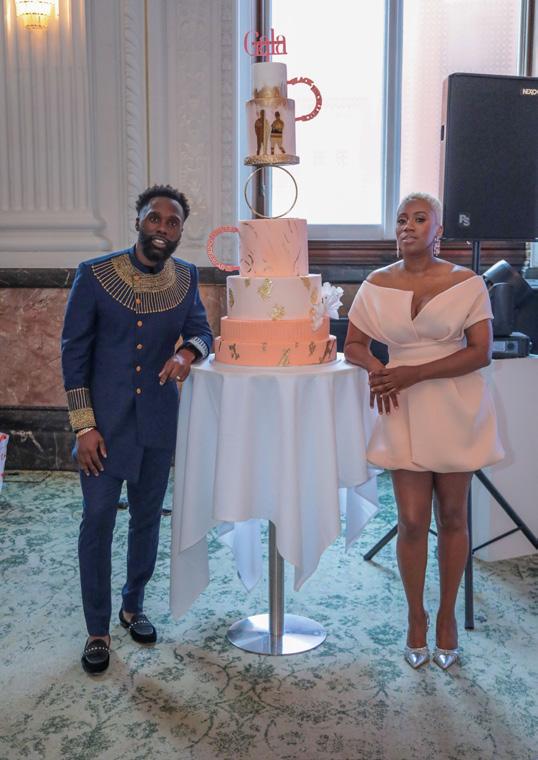

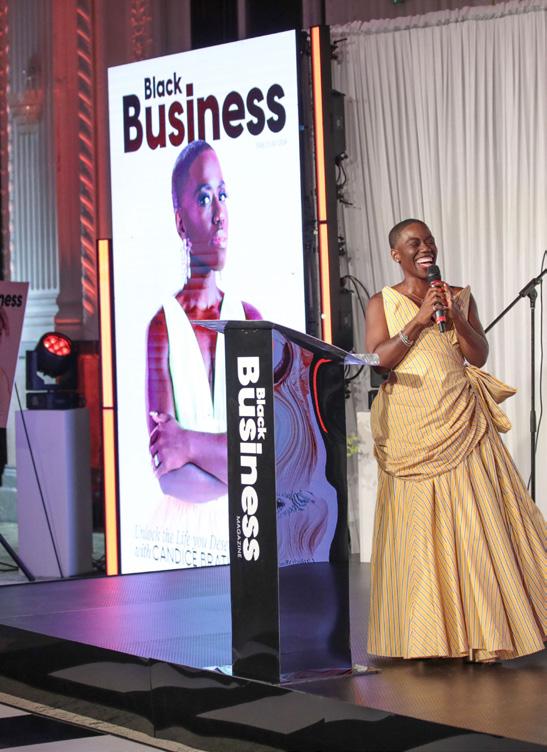
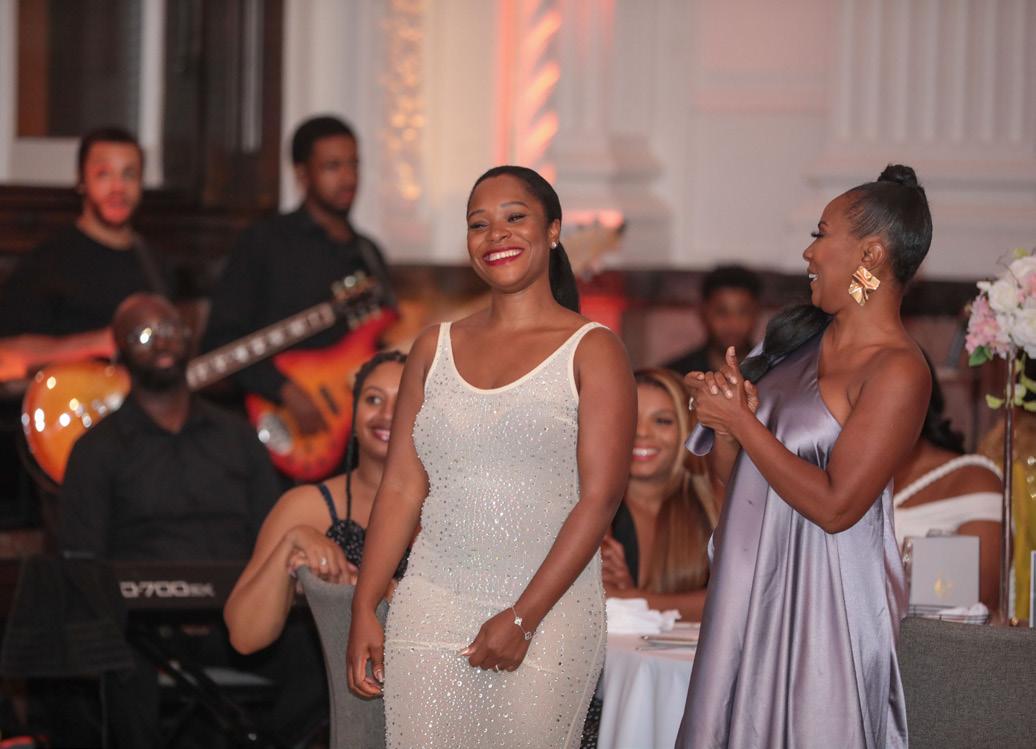
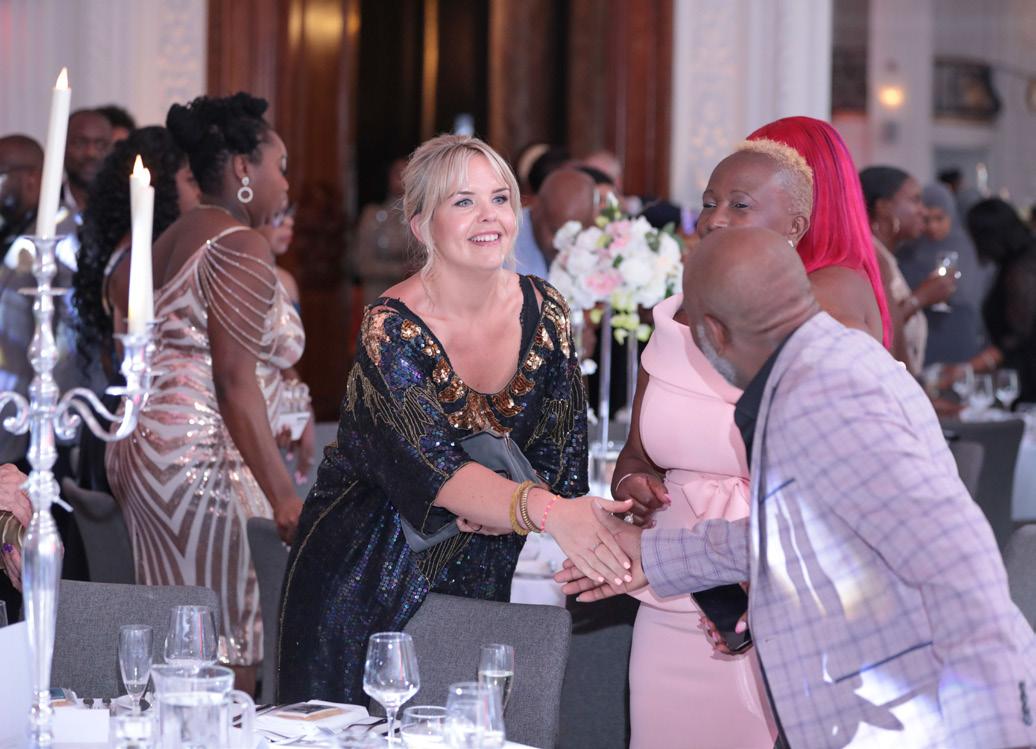
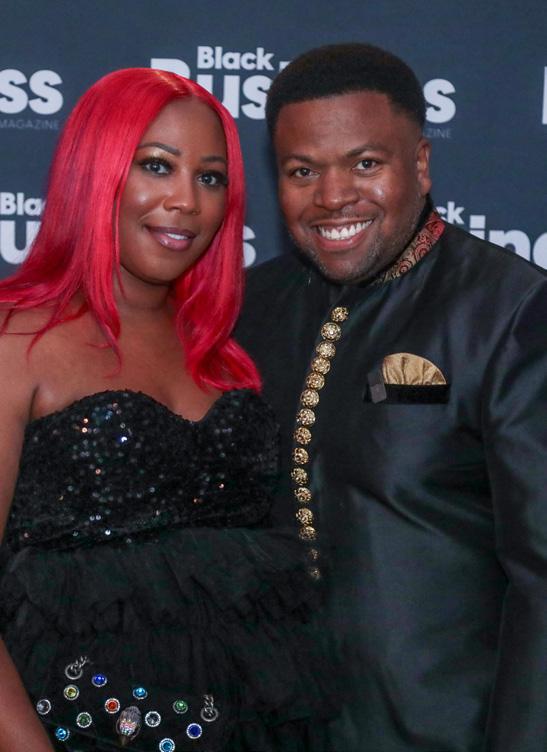
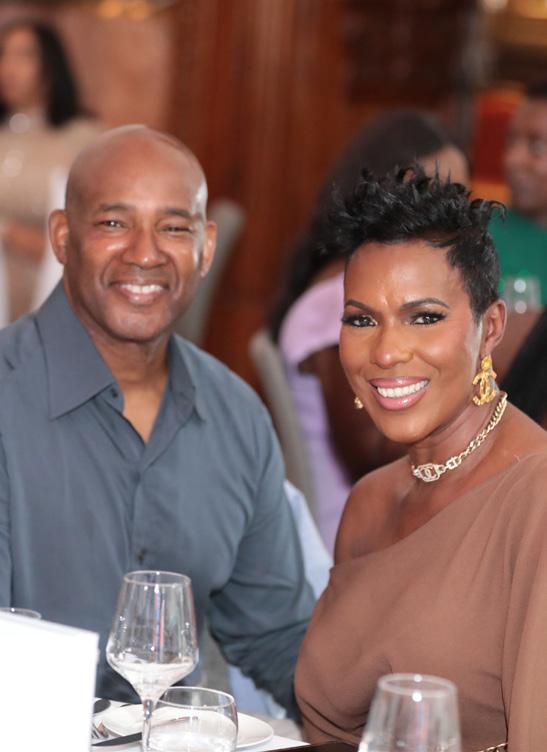
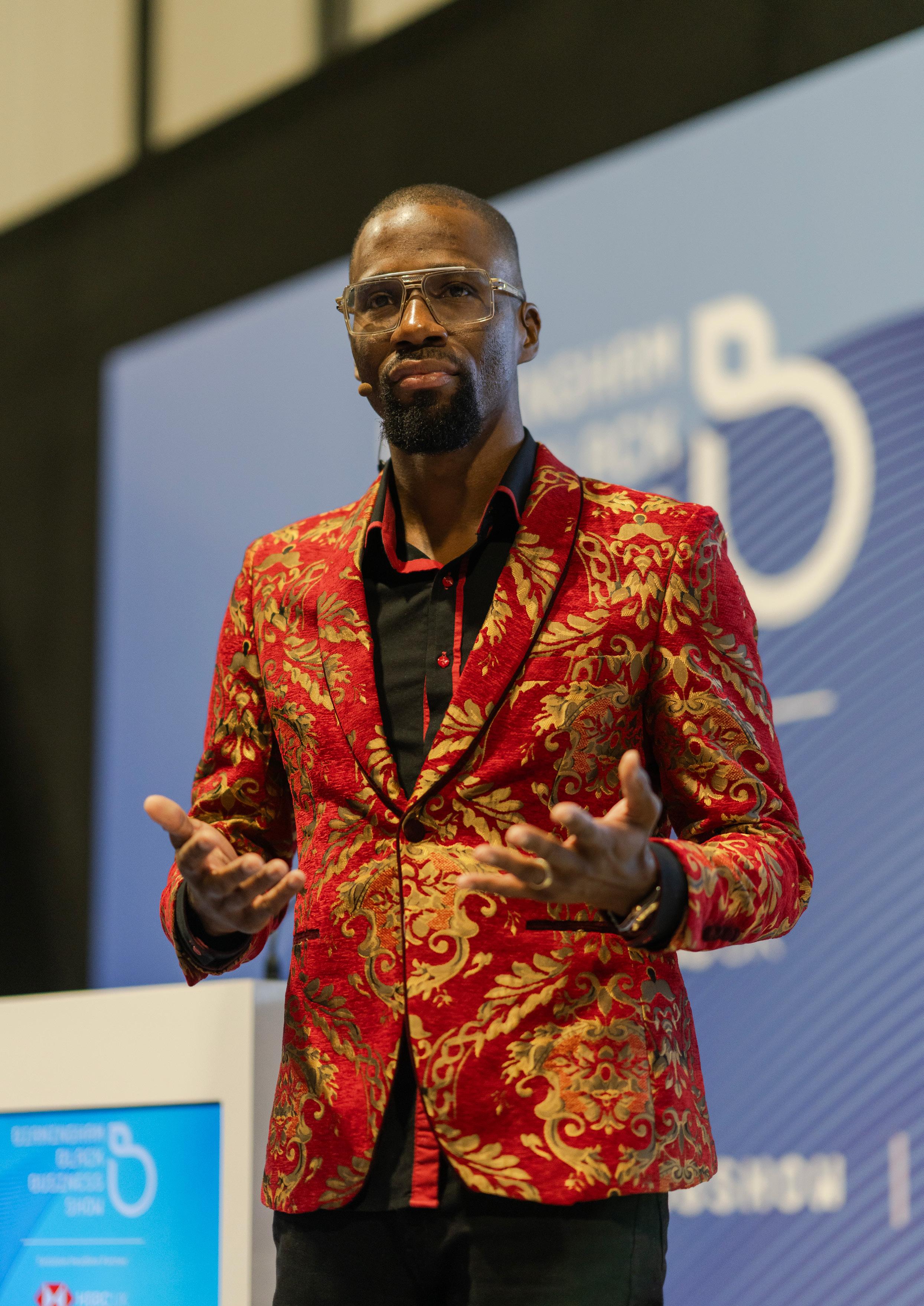
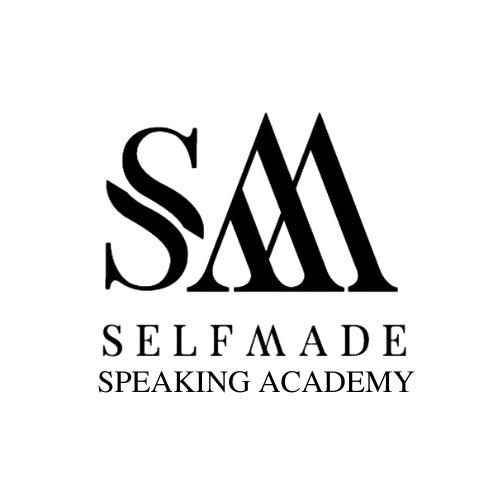
For those looking to harness the benefits of professional speaking, the Self Made Speaking Academy is a live in person comprehensive 2 day training programme designed to help individuals hone their speaking skills, refine their message, and build a successful paid speaking career. Founded with the mission to empower aspiring speakers to unleash their full potential, the academy will teach you the exact blueprint Bianca Miller-Cole and Dr Byron Cole have used personally for attracting high-paying speaking gigs while giving you a life-long mastery of communication for your business and life.
If you have an incredible message or story you want to share with the world, gain the necessary skills to deliver a Ted Talk, or simply want to gain more confidence in delivering a keynote speech, the Self Made Speaking Academy will help you to develop a level of confidence to excel as a paid speaker and command your audience’s attention.
For more information and to secure your place visit: www.selfmadespeakingacademy.uk
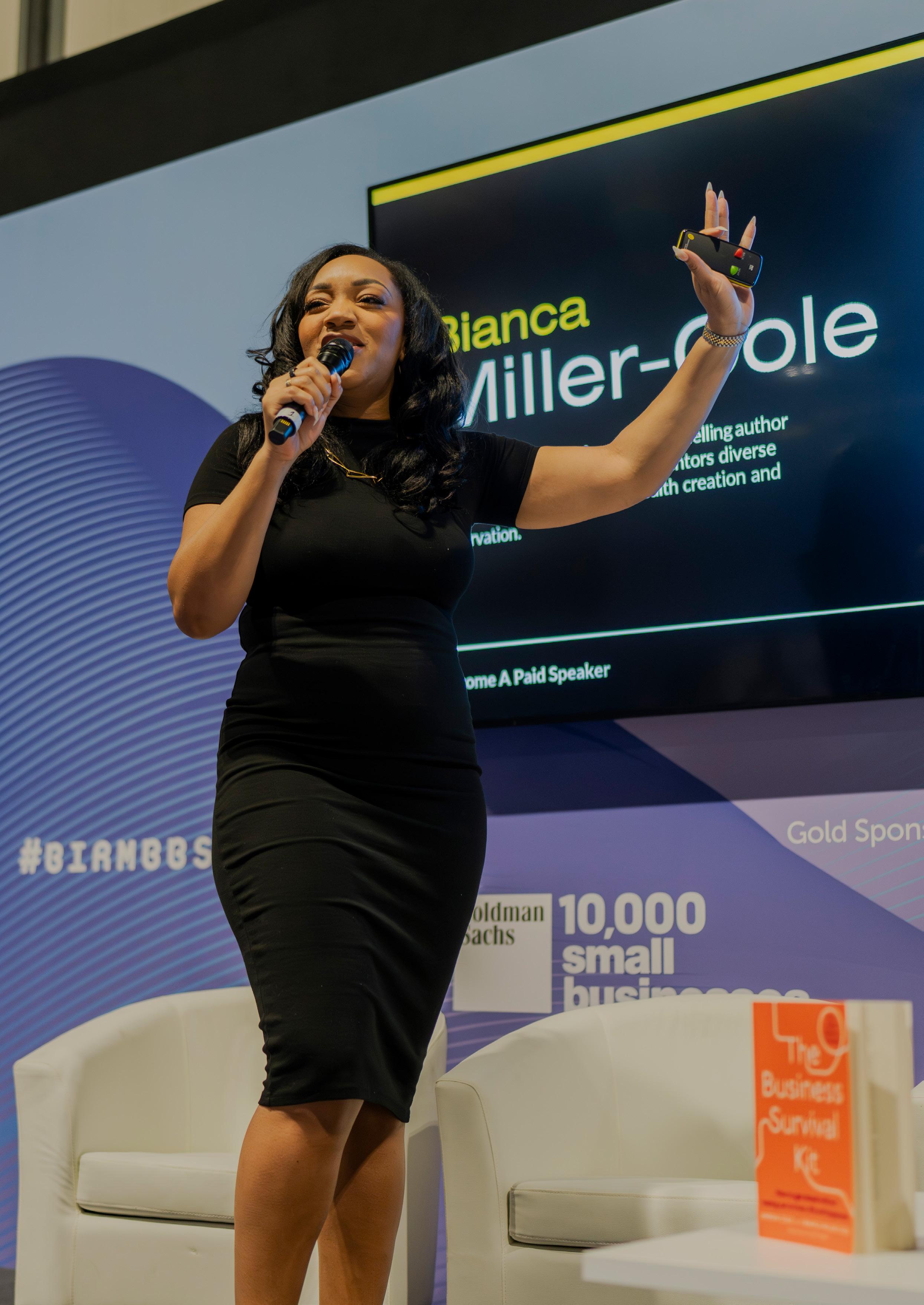
“I was initially nervous about signing up as I was not sure if I could ever make it happen, but I decided to put the money down and went for it. It is a small, intimate group which helped an introvert like myself to feel included and able to ask all my questions and get all the knowledge from Dr. Byron and Bianca. I landed my first paid speaking gig only months in generating over £2,000 for just an hour of my time, and secured another international speaking gig in Malta with wonderful fees at a prestigious company! I thank the Self Made Speaking Academy for this opportunity to open doors for me.”
Samantha Tulloch
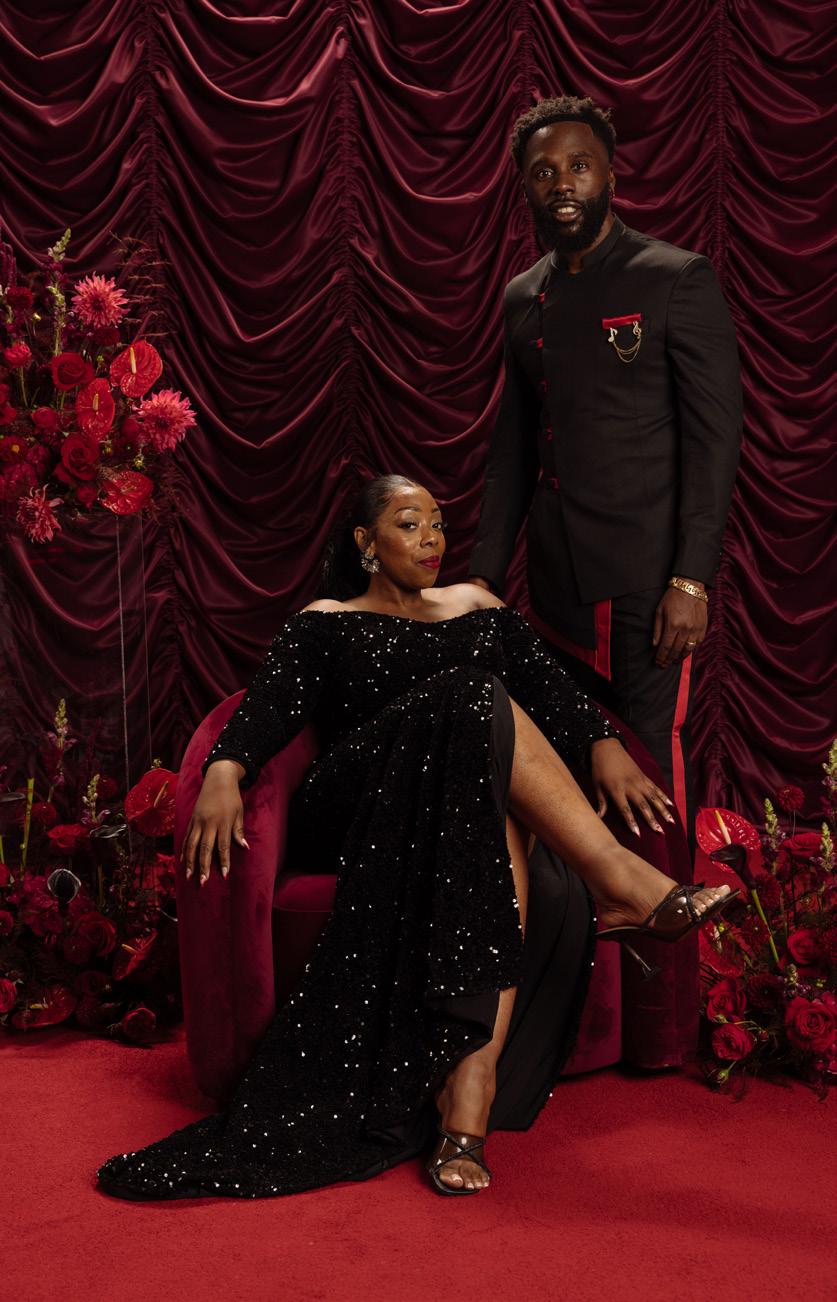
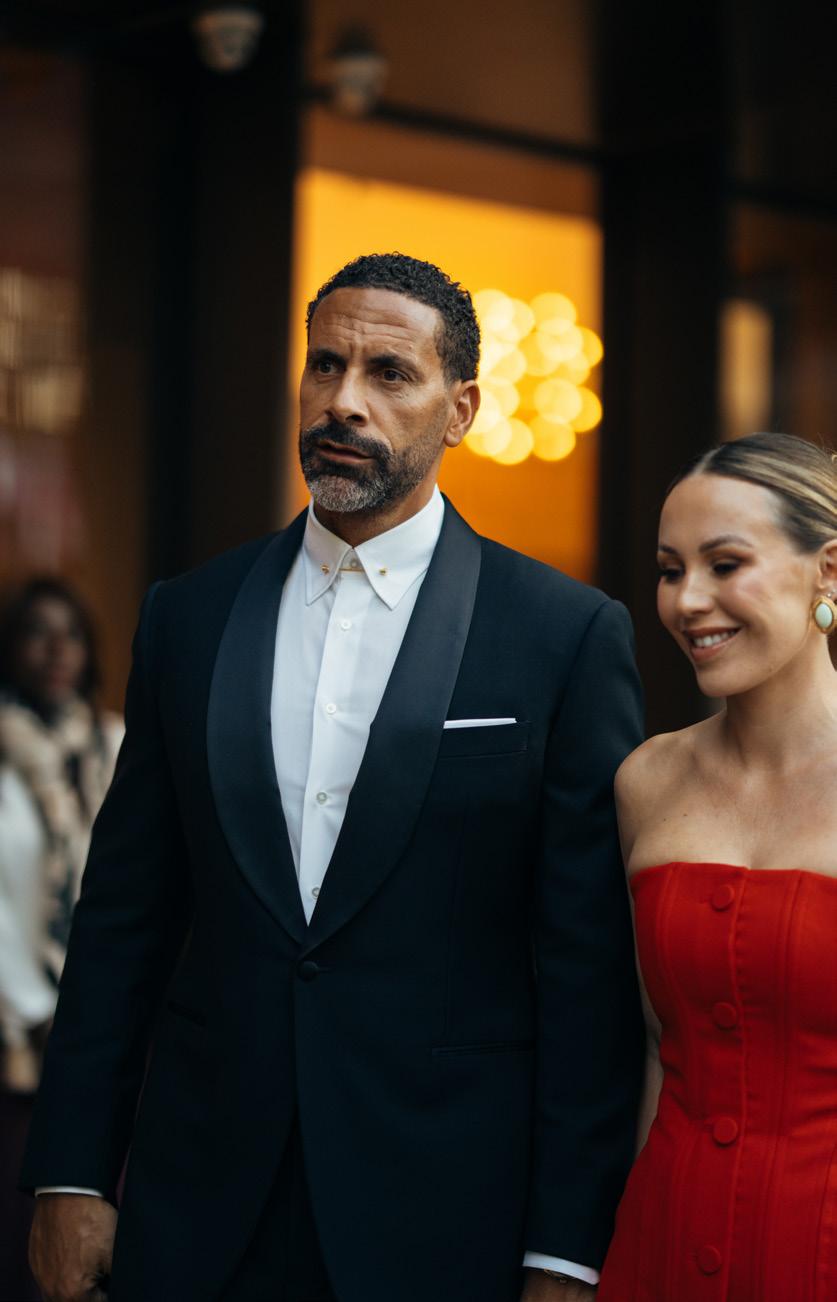
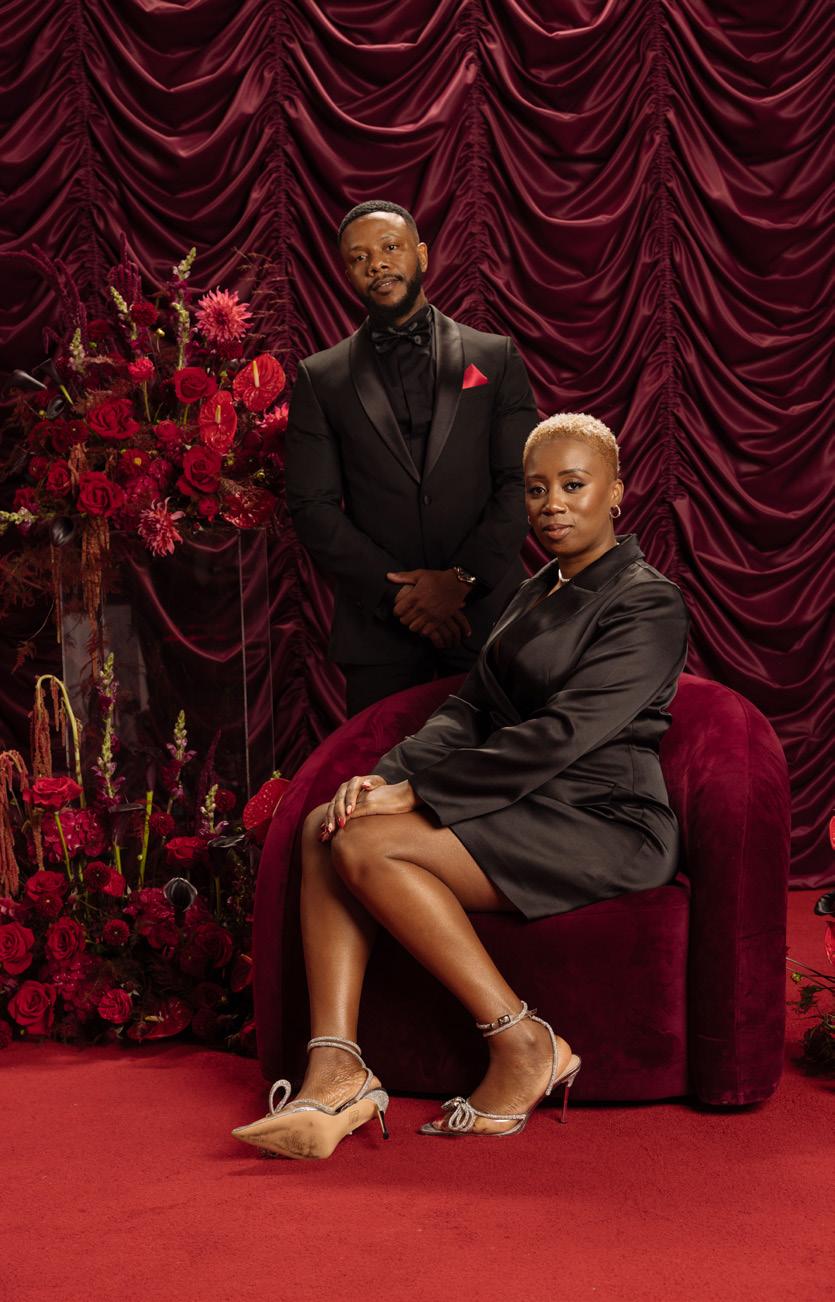
On 14th September our Editor in Chief and CEO, alongisde their esteemed guests had the privilege of having a table at the Forbes Family Group Fundraising Gala, an extraordinary event held at the Royal Lancaster Hotel in London. The evening was not just a display of glitz and glamour, but a profound celebration of community, compassion, and hope.
The atmosphere was electric. The sight of football legend Rio Ferdinand mingling amongst the cast from the Netflix series Supacell set the tone for a star-studded night. The warmth and excitement were palpable as everyone came together for a noble cause— the ACLT charity, which supports individuals battling blood cancers and disorders.
The gala aimed to raise awareness about the urgent need for blood donors from Black heritage, particularly in the context of conditions like Sickle Cell Disease. We were struck by the powerful testimonies shared throughout the night, especially from Dean Forbes, whose family’s own journey with blood cancer propelled him to spearhead this initiative. His words resonated deeply, highlighting the impact of community support and the lifesaving importance of blood donation.
An exclusive silent auction sparked both friendly competition and generous giving. The sense of camaraderie among attendees was uplifting; with everyone eager to contribute and make a difference. Hearing stories of hope and resilience from ACLT leaders like Orin Lewis OBE reinforced the purpose of our gathering.
The gala successfully raised an incredible £360,000, a testament to the unity and generosity of everyone involved. We were so inspired by the commitment shown by both high-profile guests and everyday attendees alike, all dedicated to making a tangible impact.
The event was a beautiful reminder of the power of coming together for a common cause. It was not just a celebration of success, but a heartfelt call to action—an invitation to be part of a vital movement that could change lives. We were uplifted and motivated to spread the message of blood donation, knowing that every effort counts in the fight against blood cancer. It’s a profound reminder of our collective responsibility to support our community.
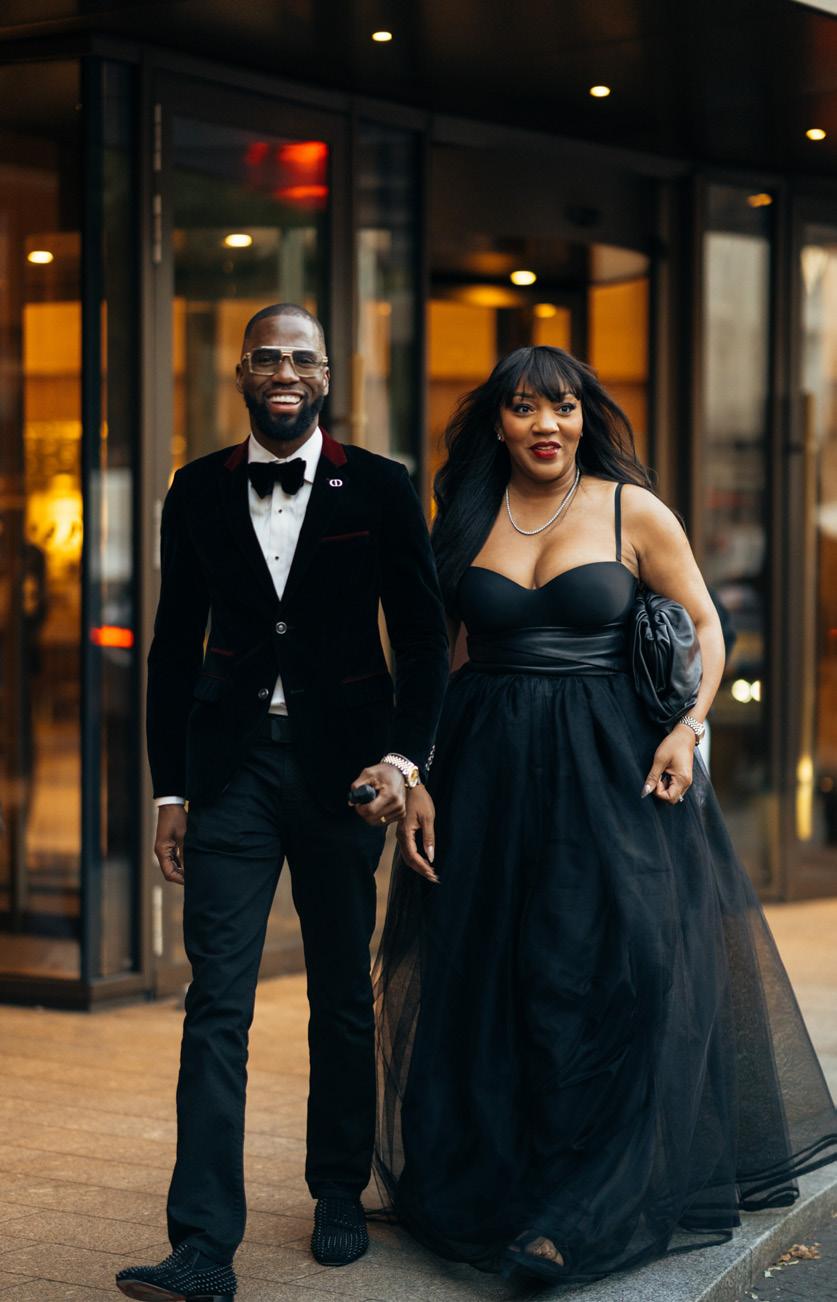
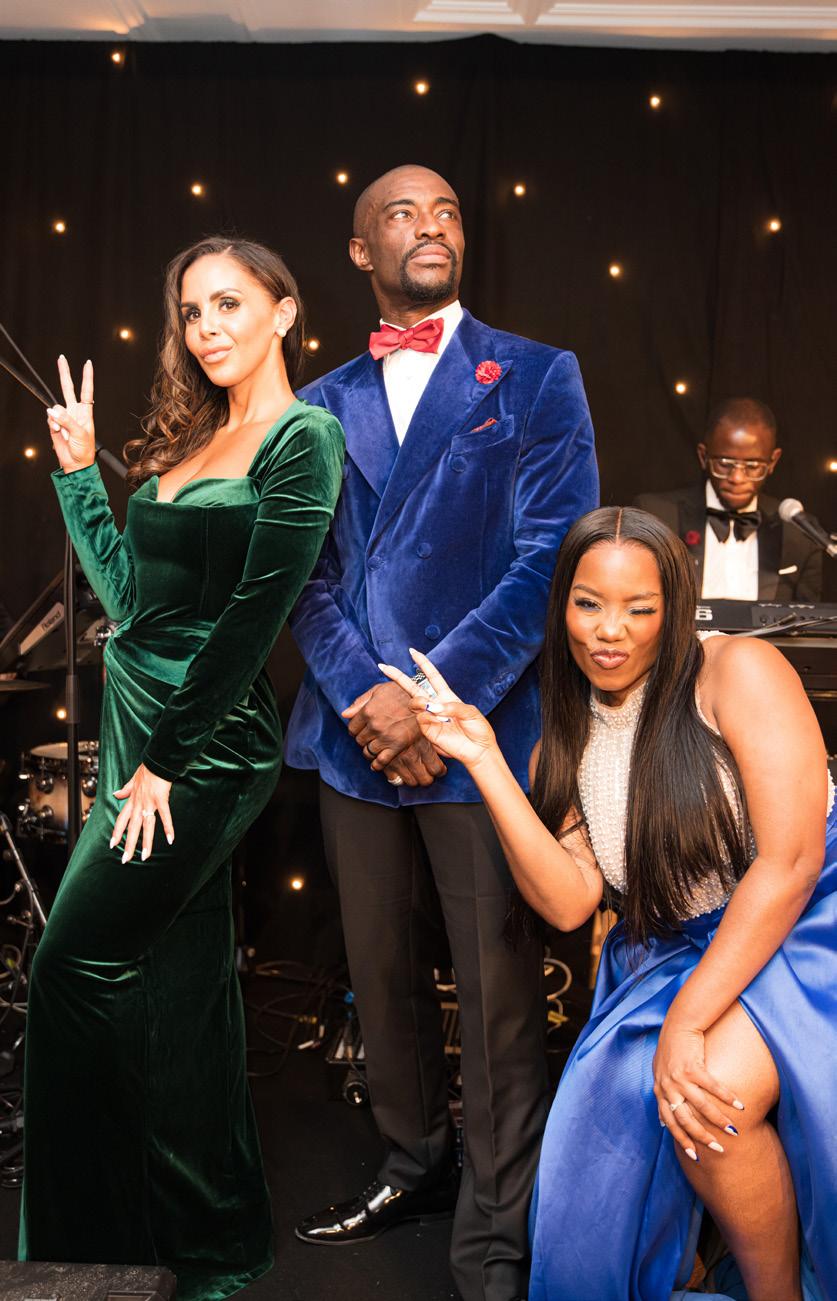
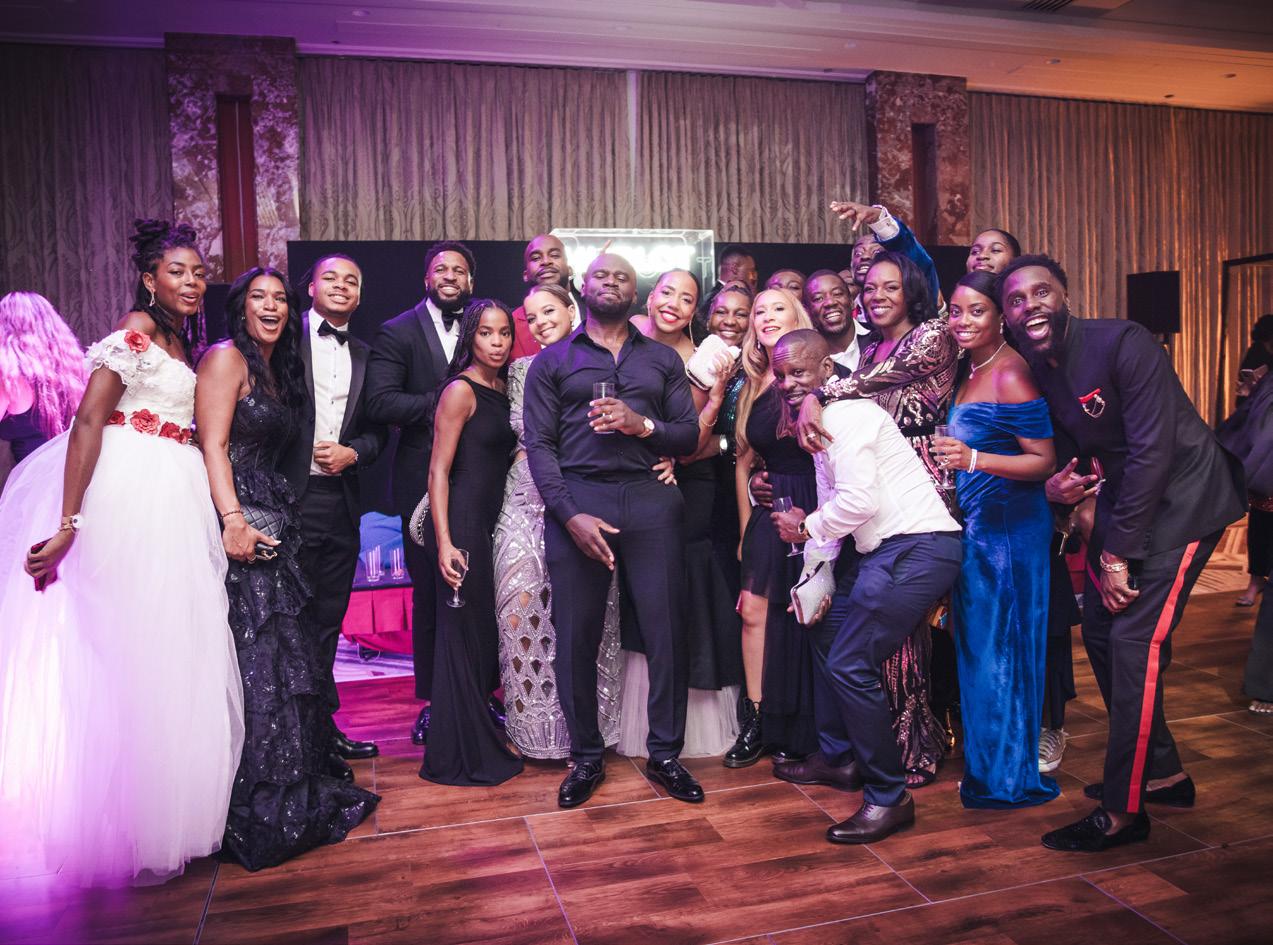

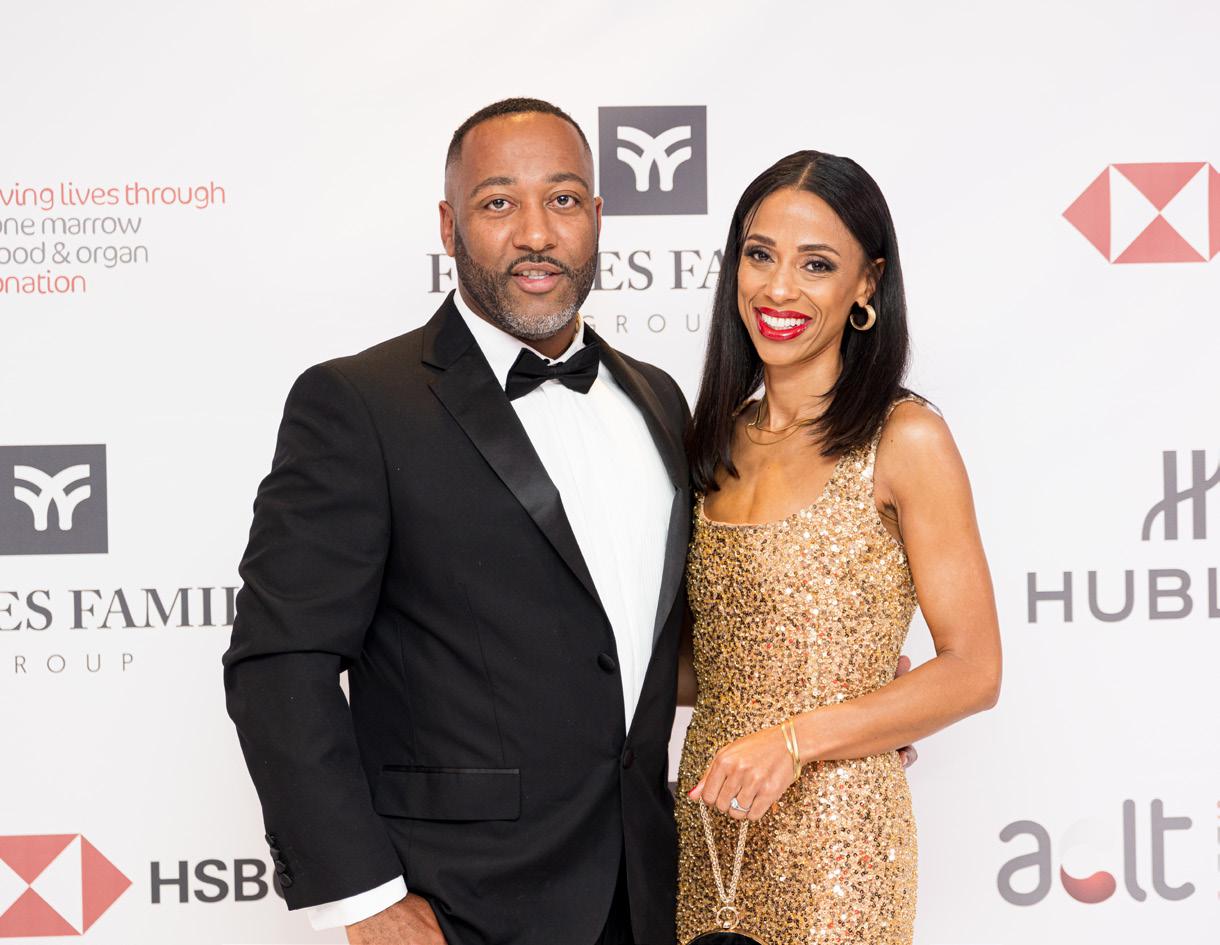
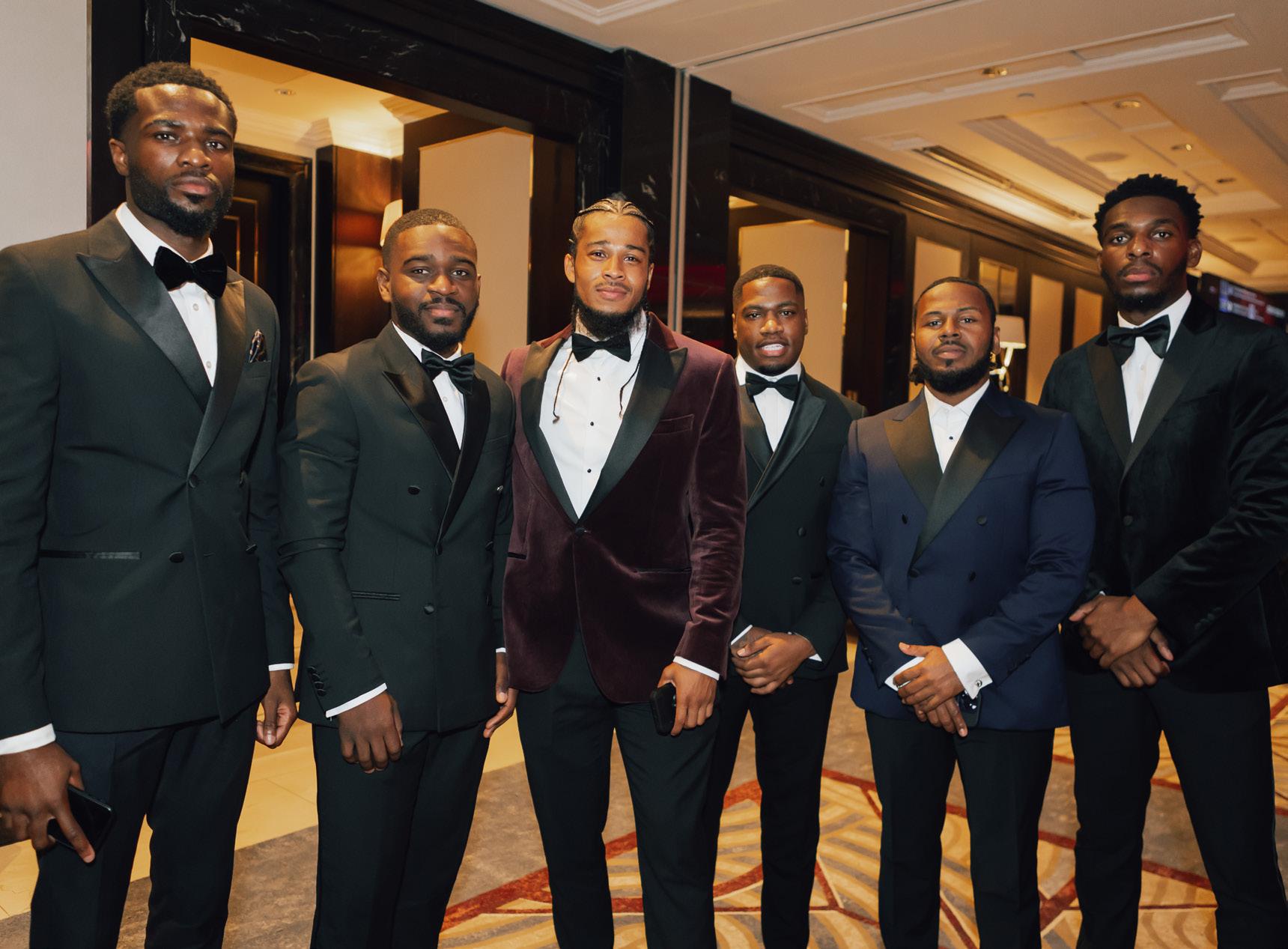

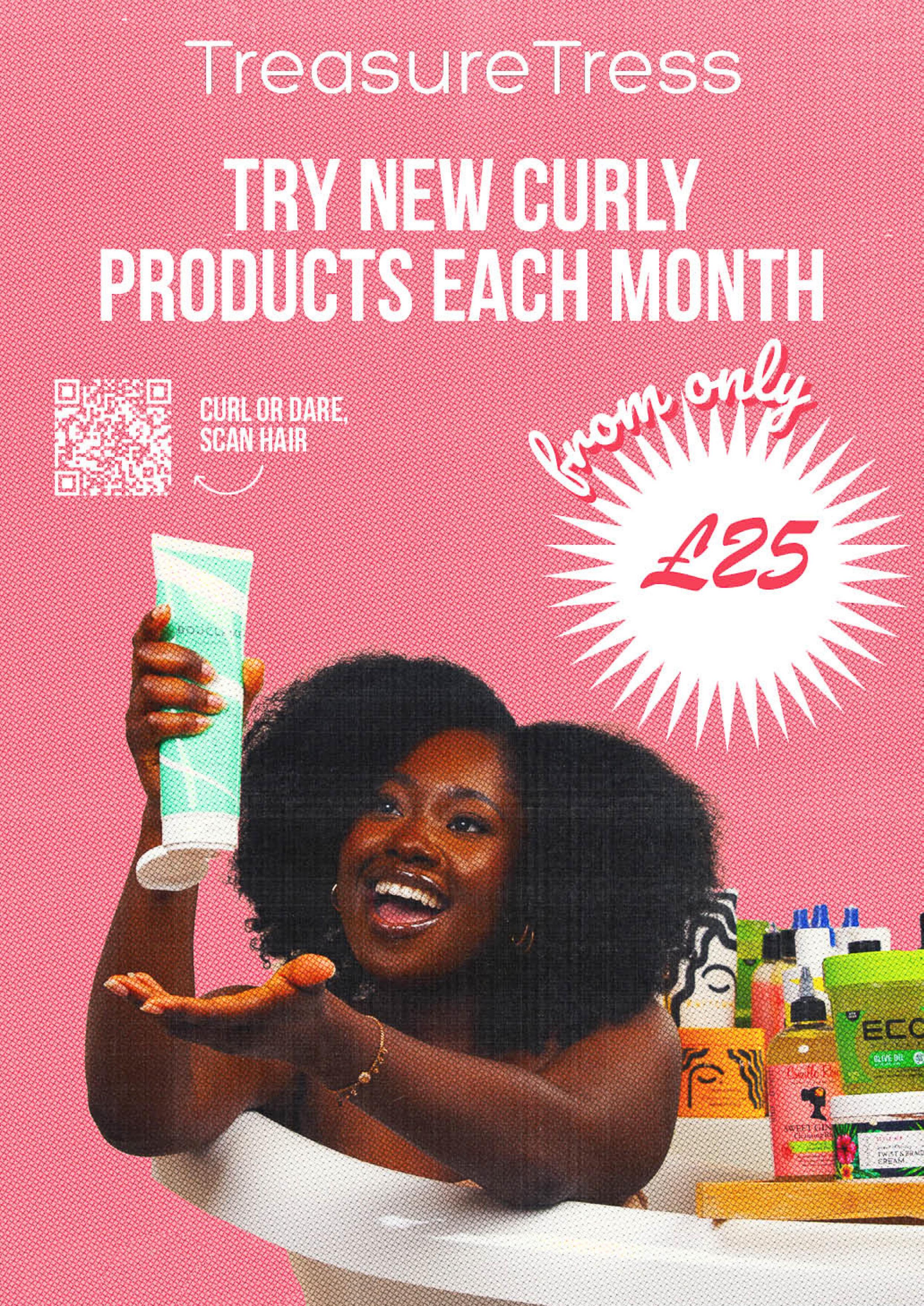


Explore more opportunities for your business. Talk to us about accelerator programs, networking events, finance options and more.
Scan the QR code to find out more
Lending is subject to status.